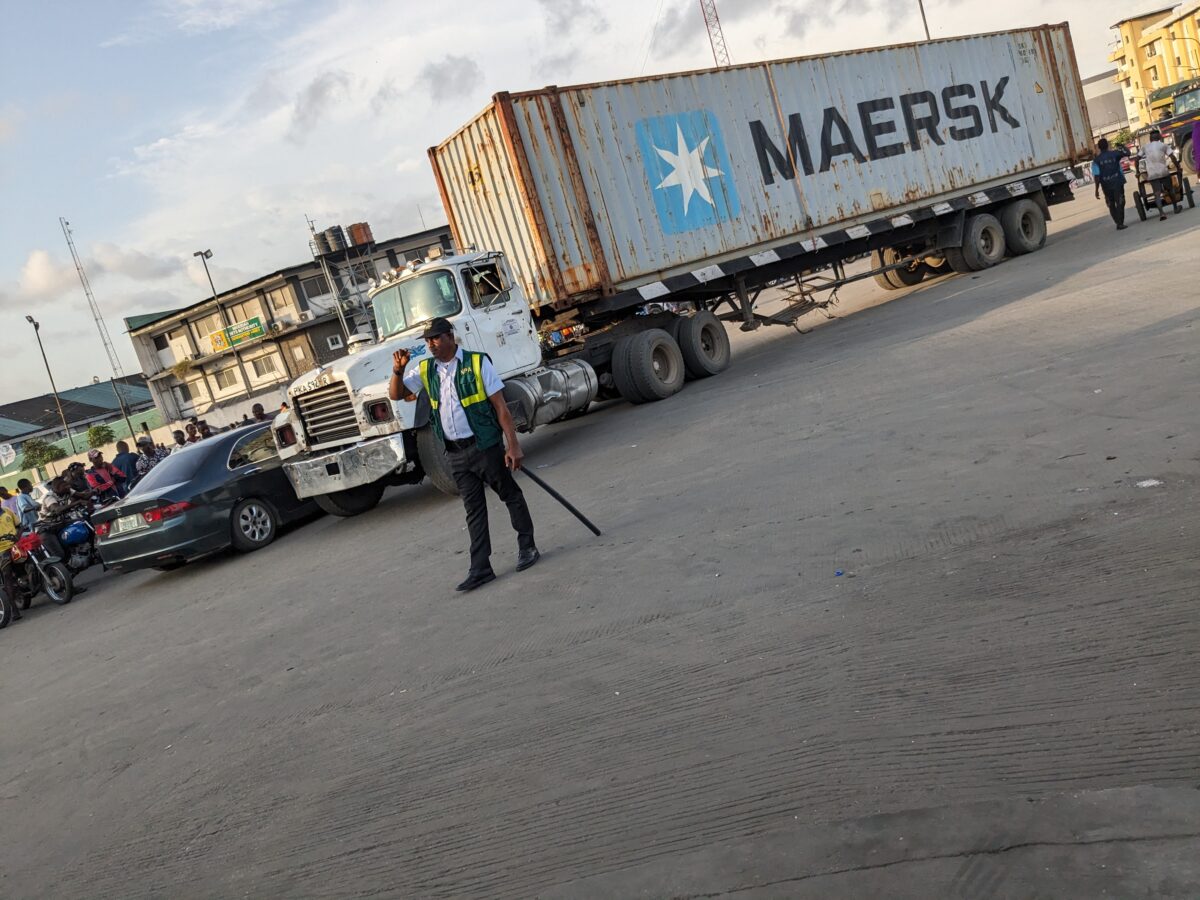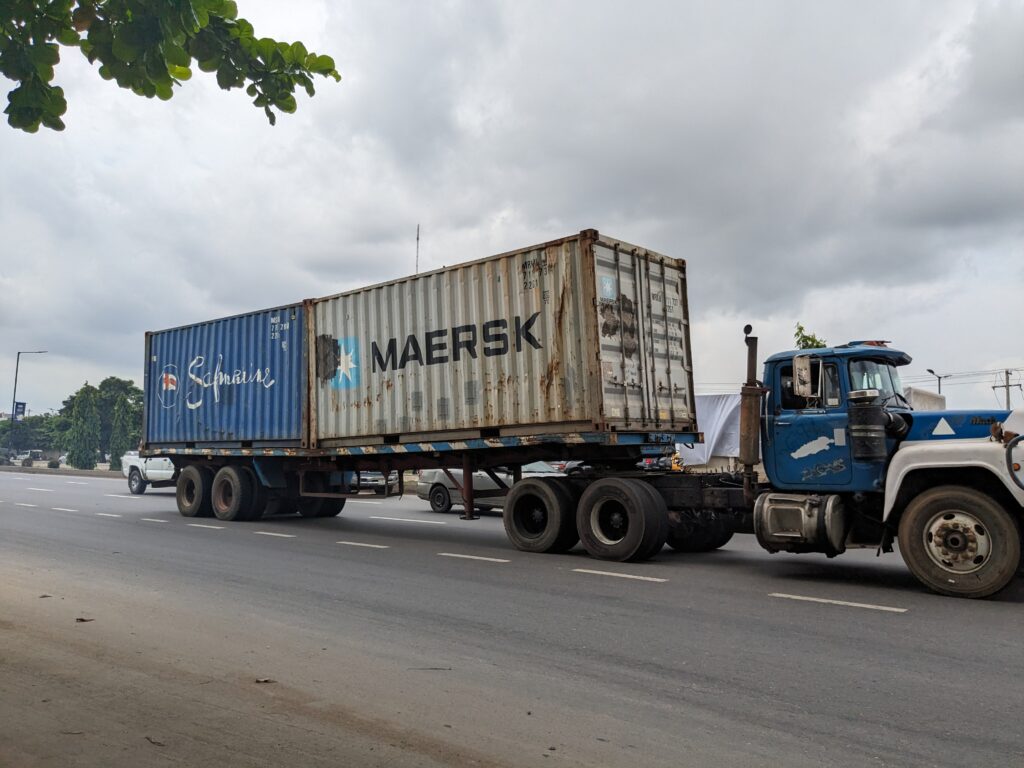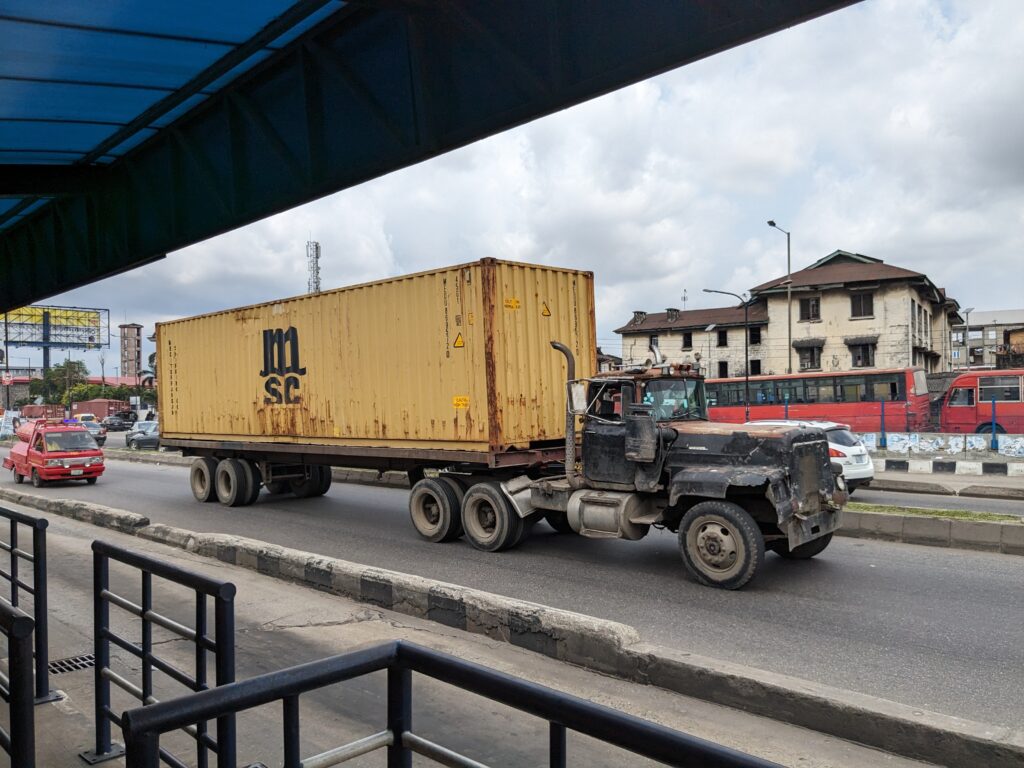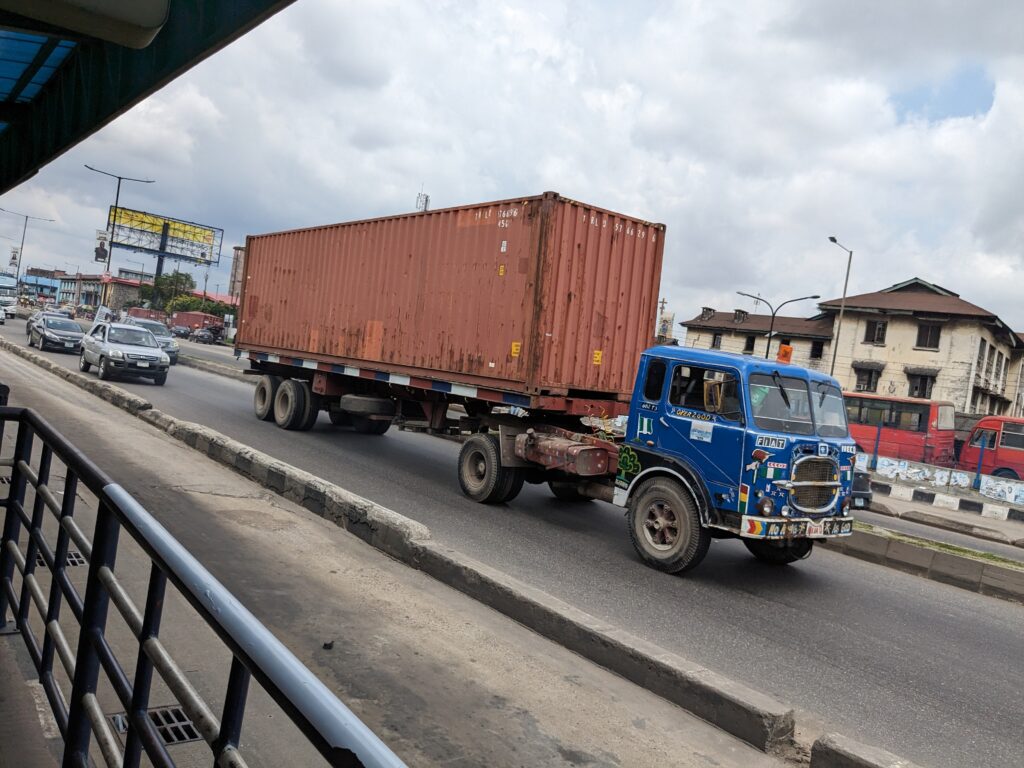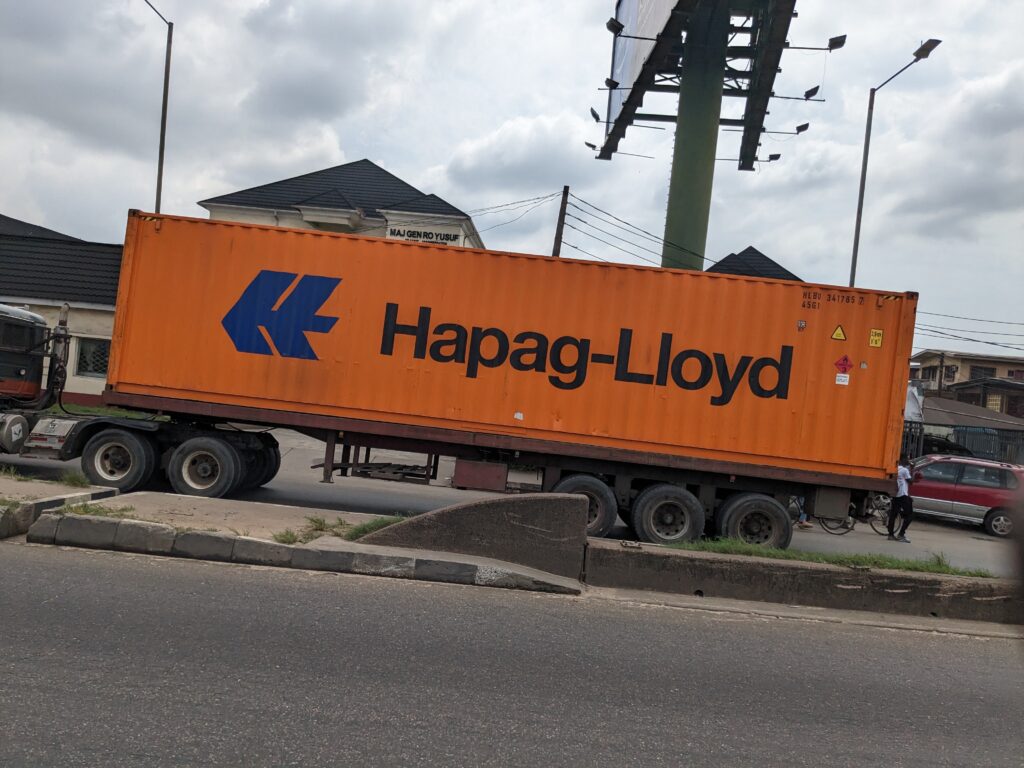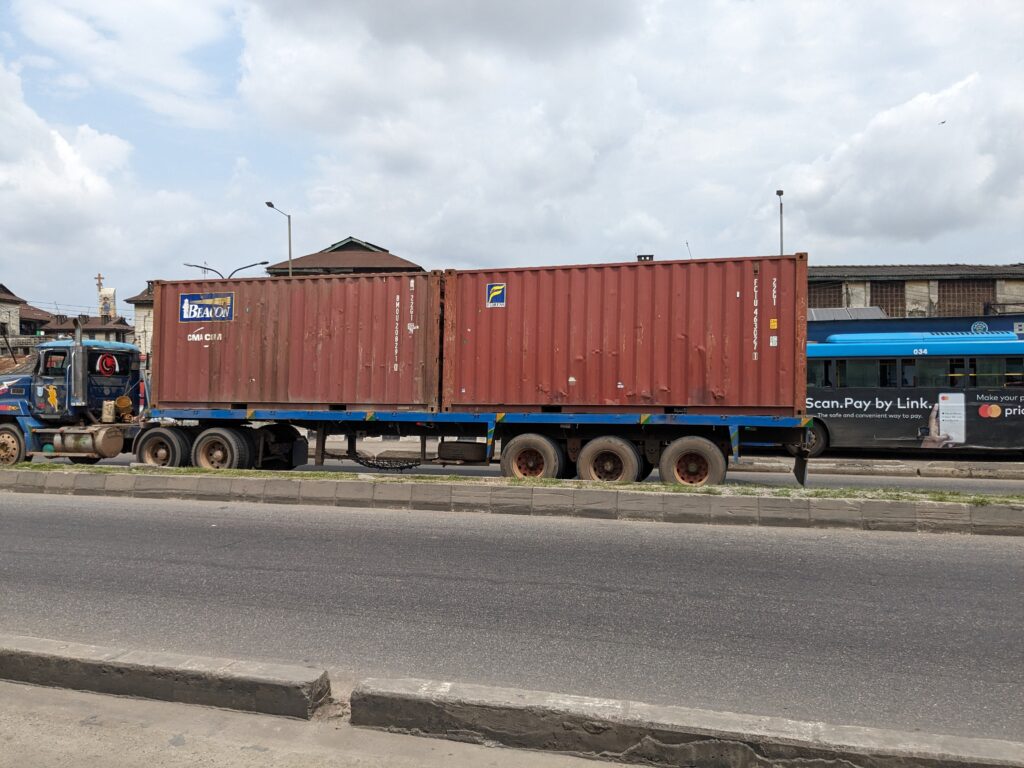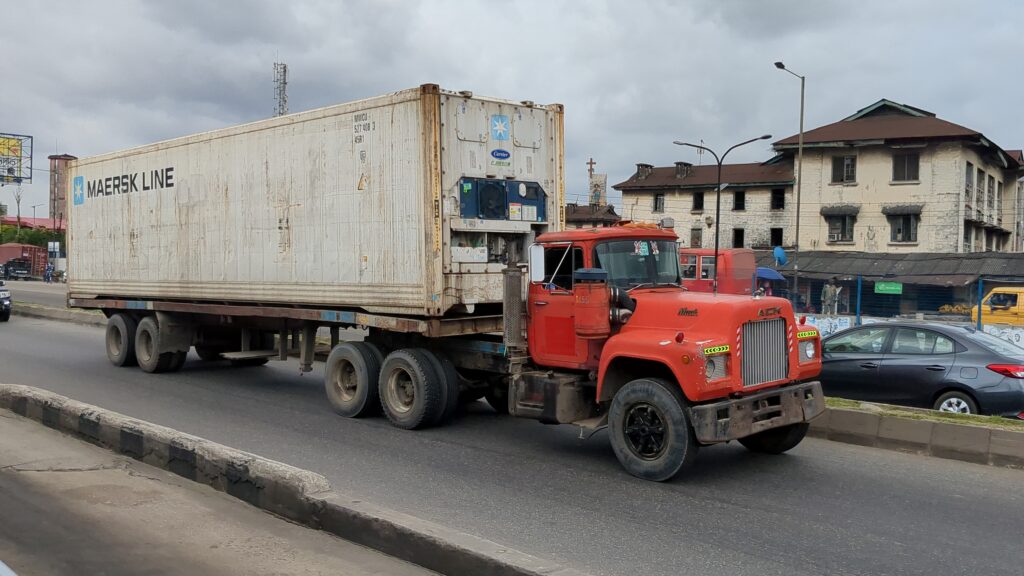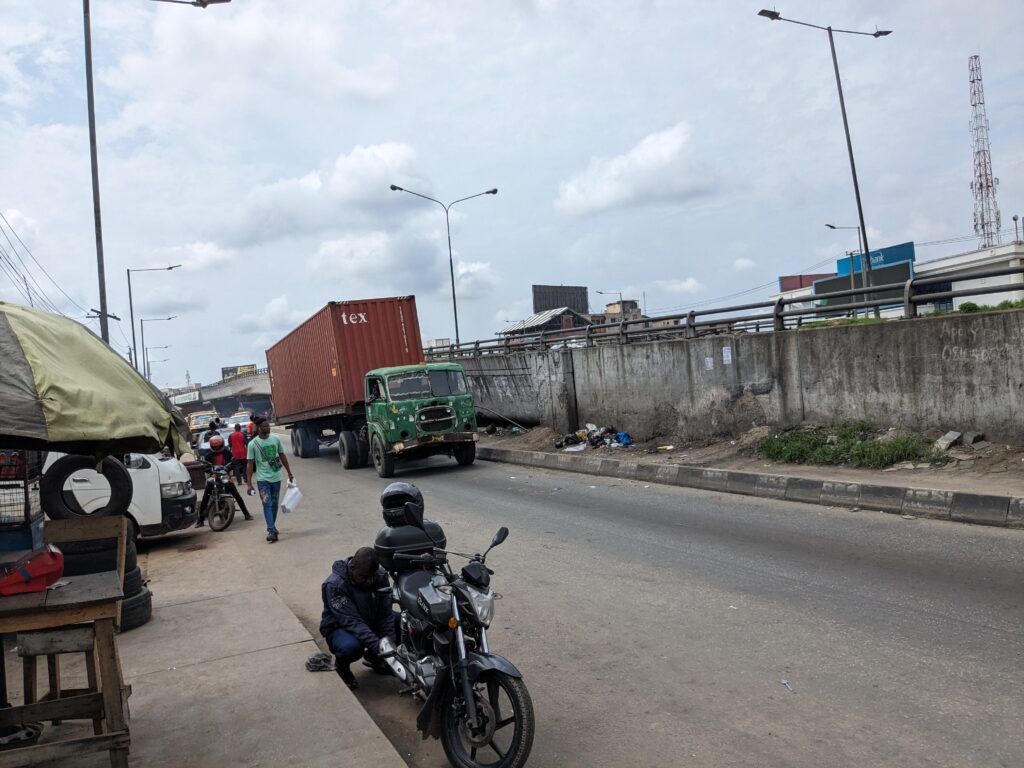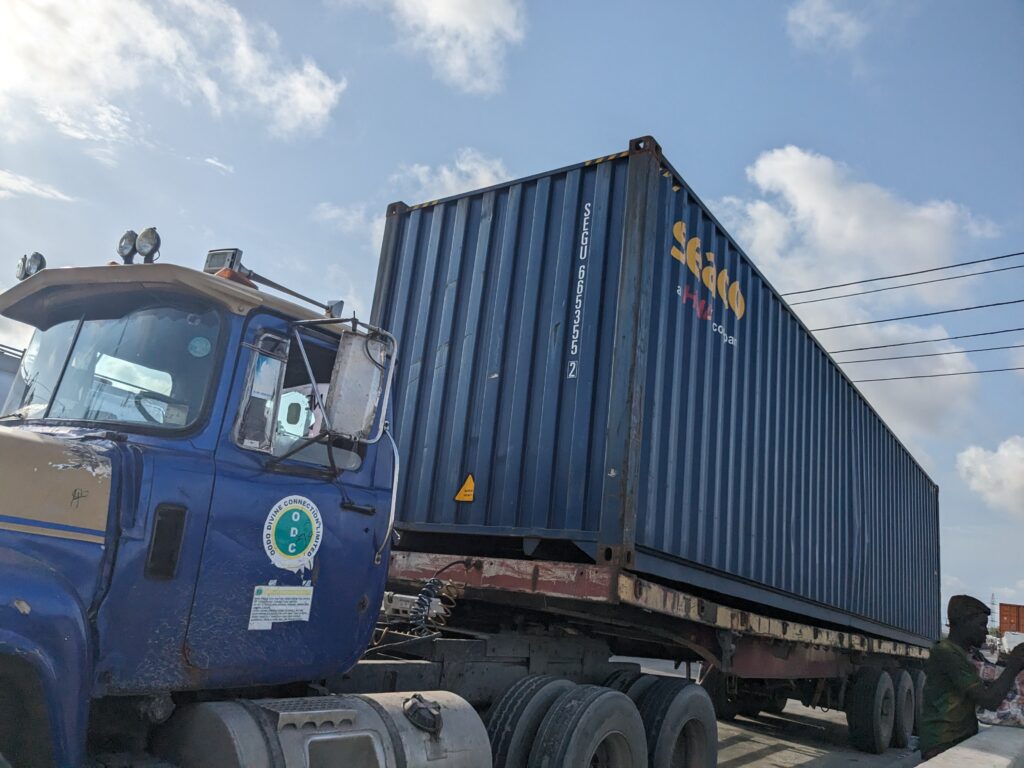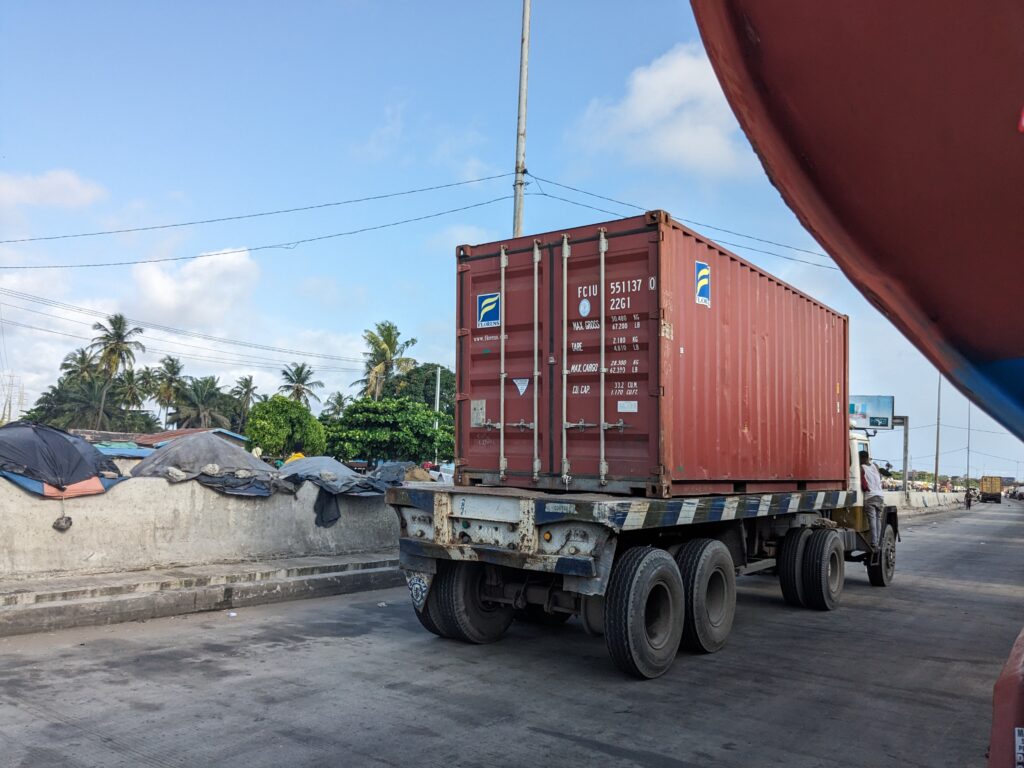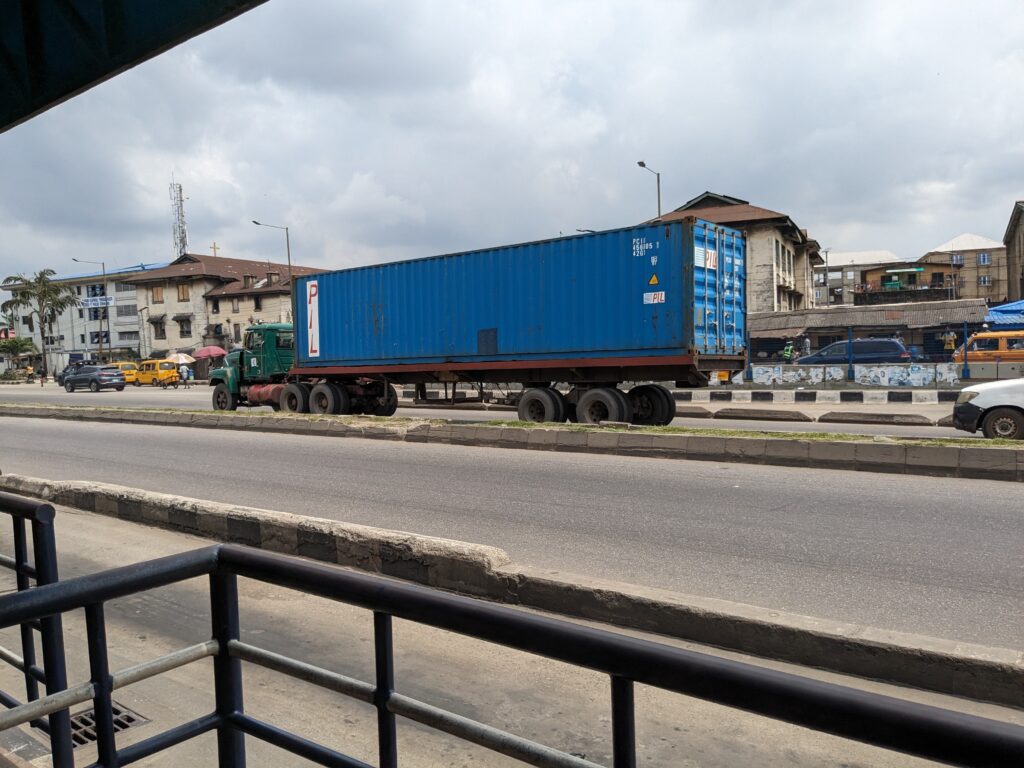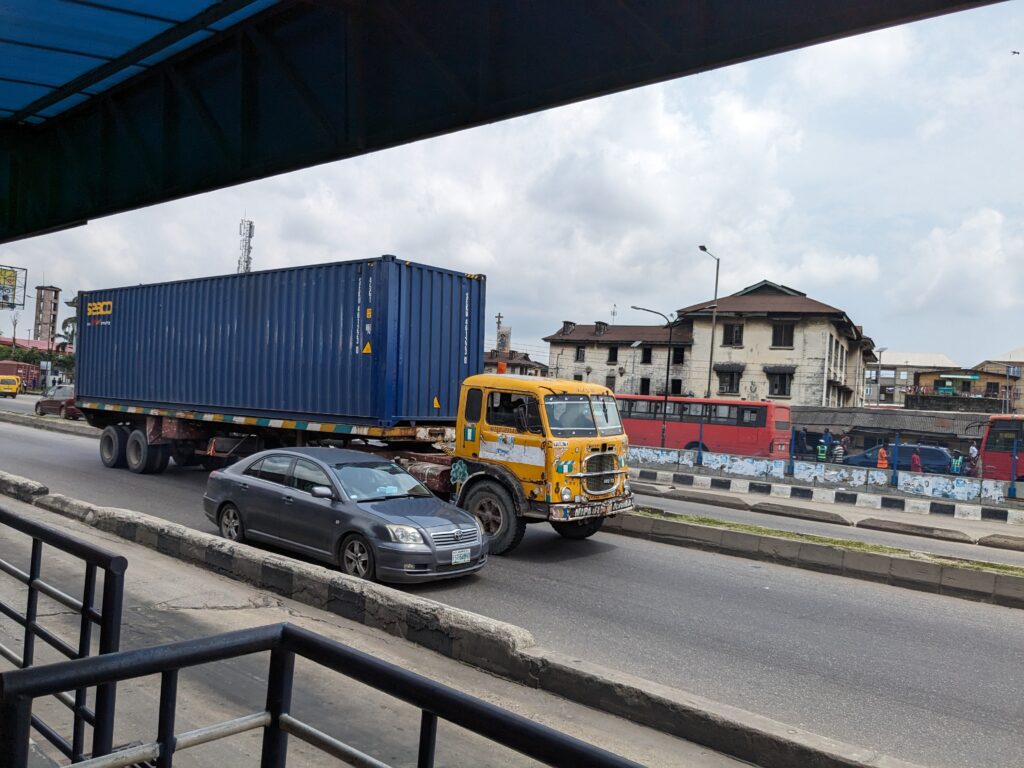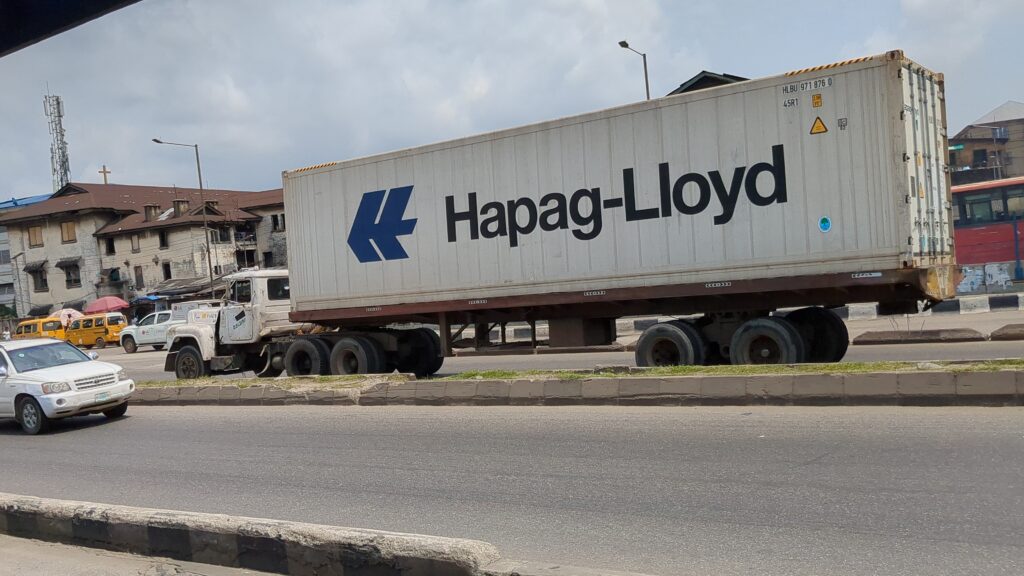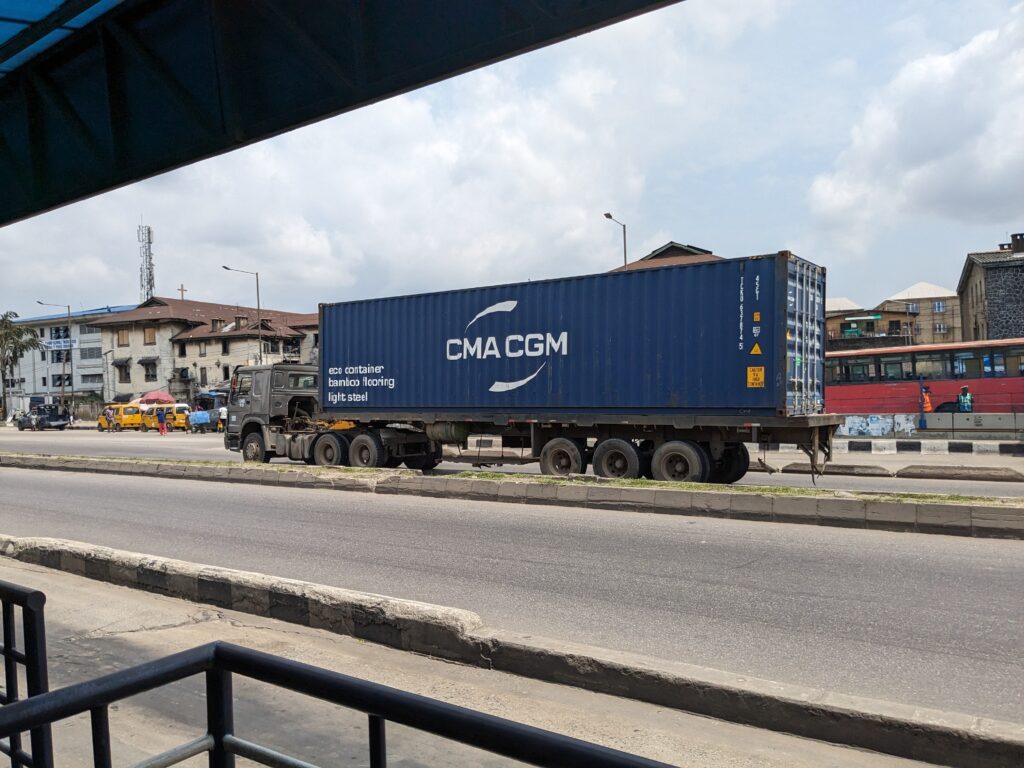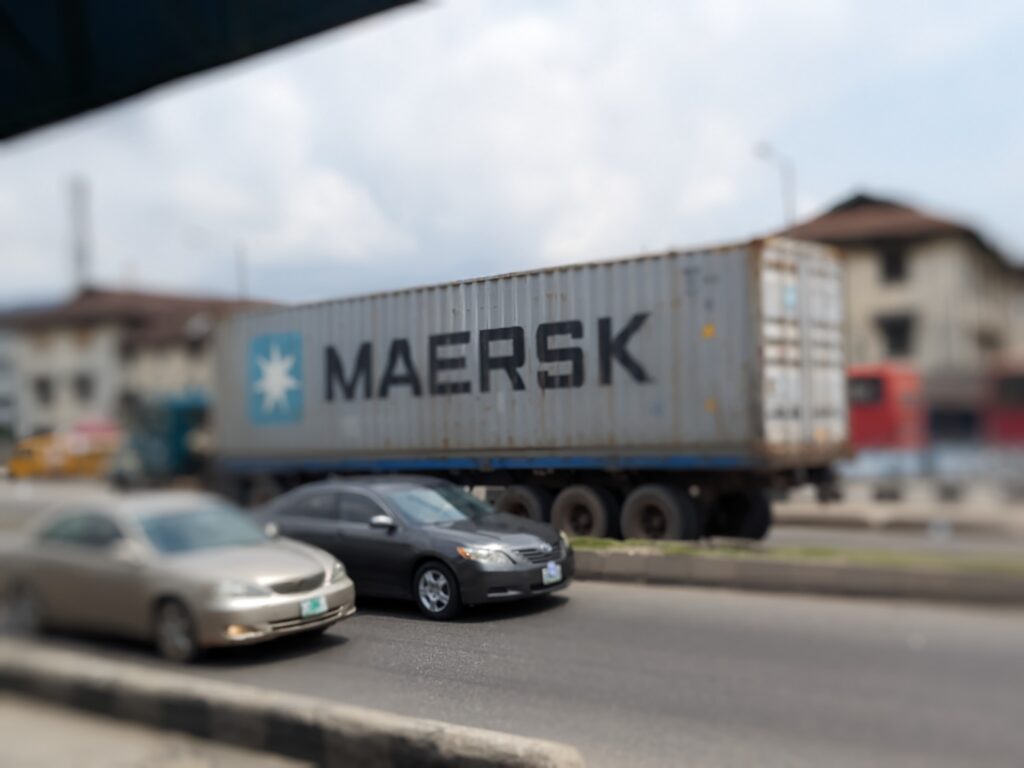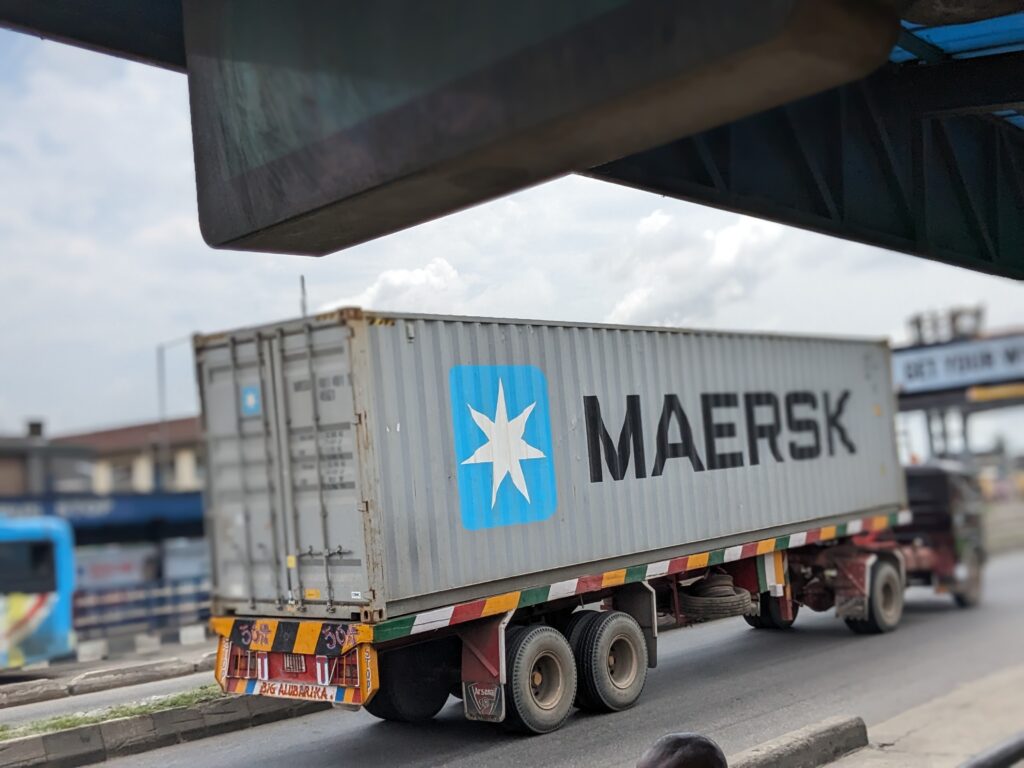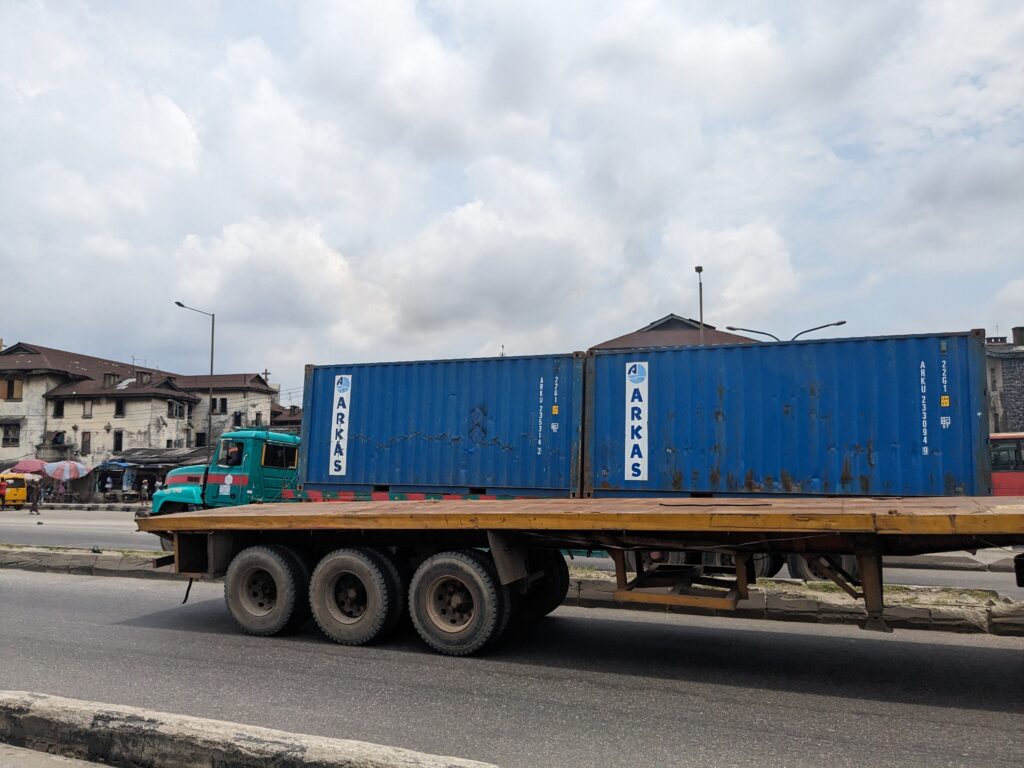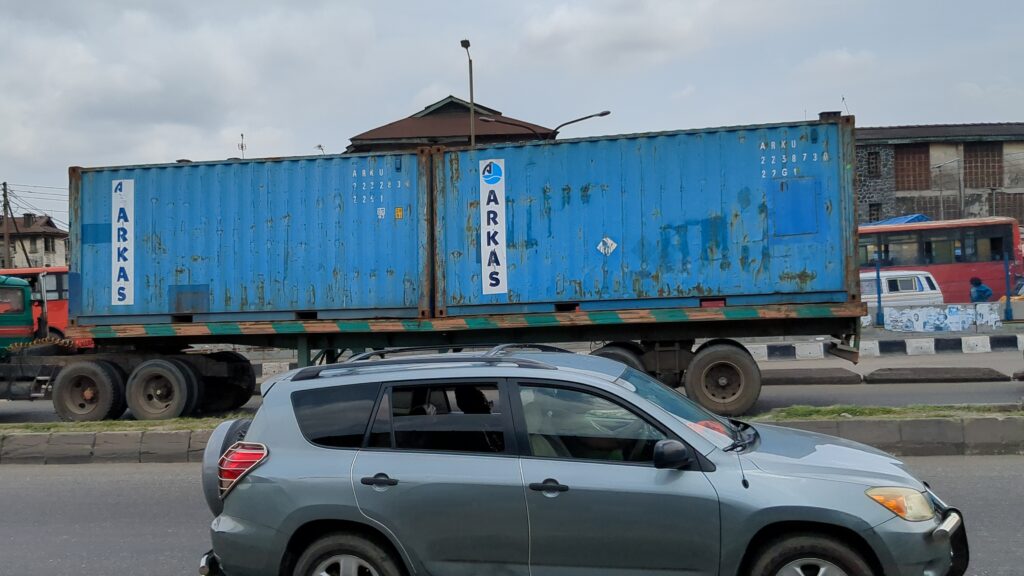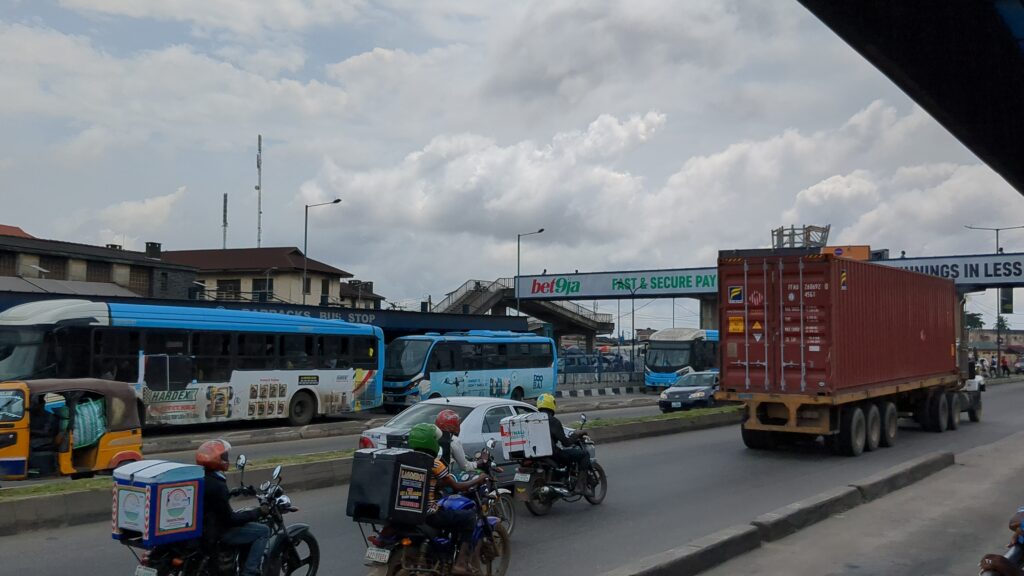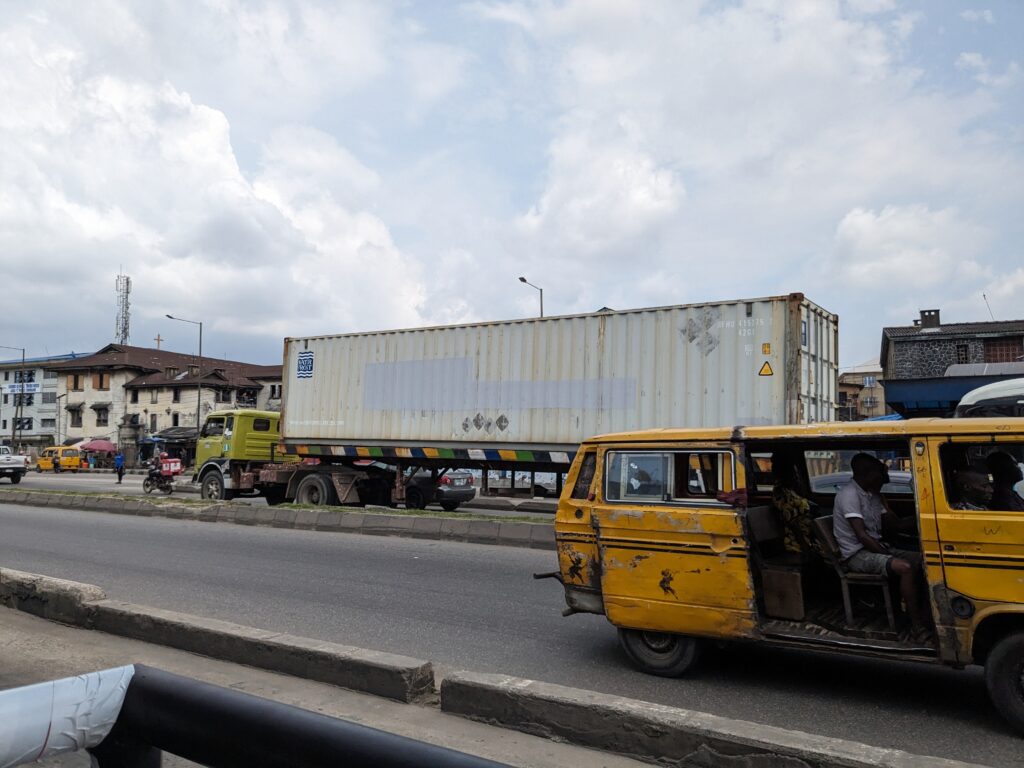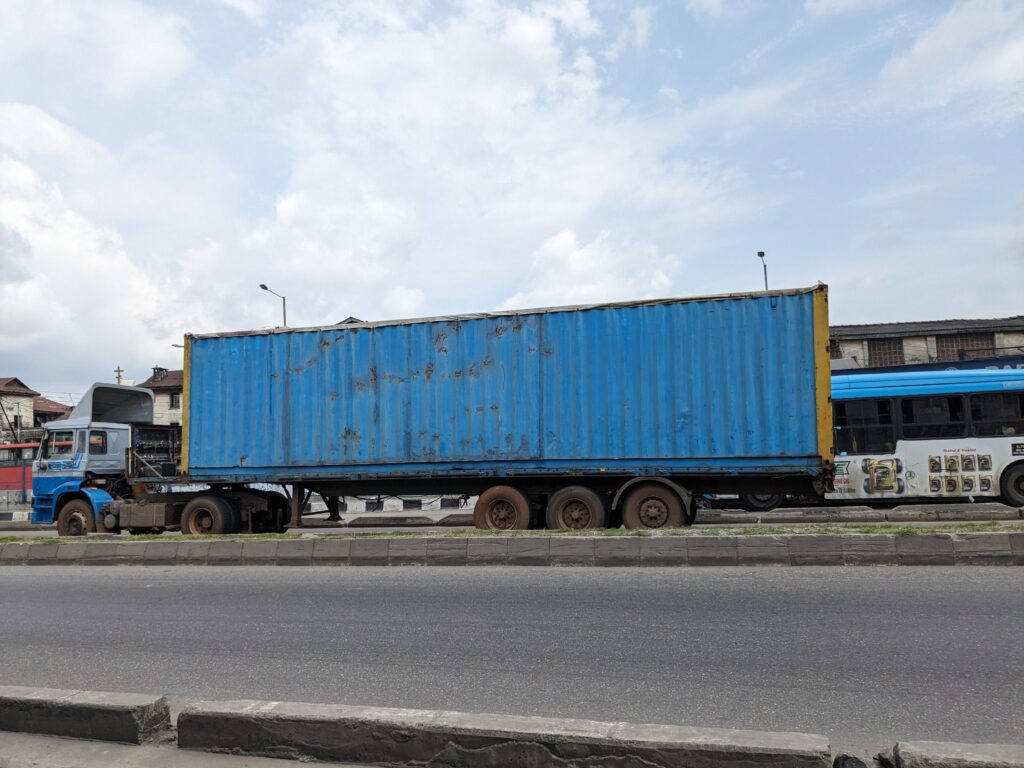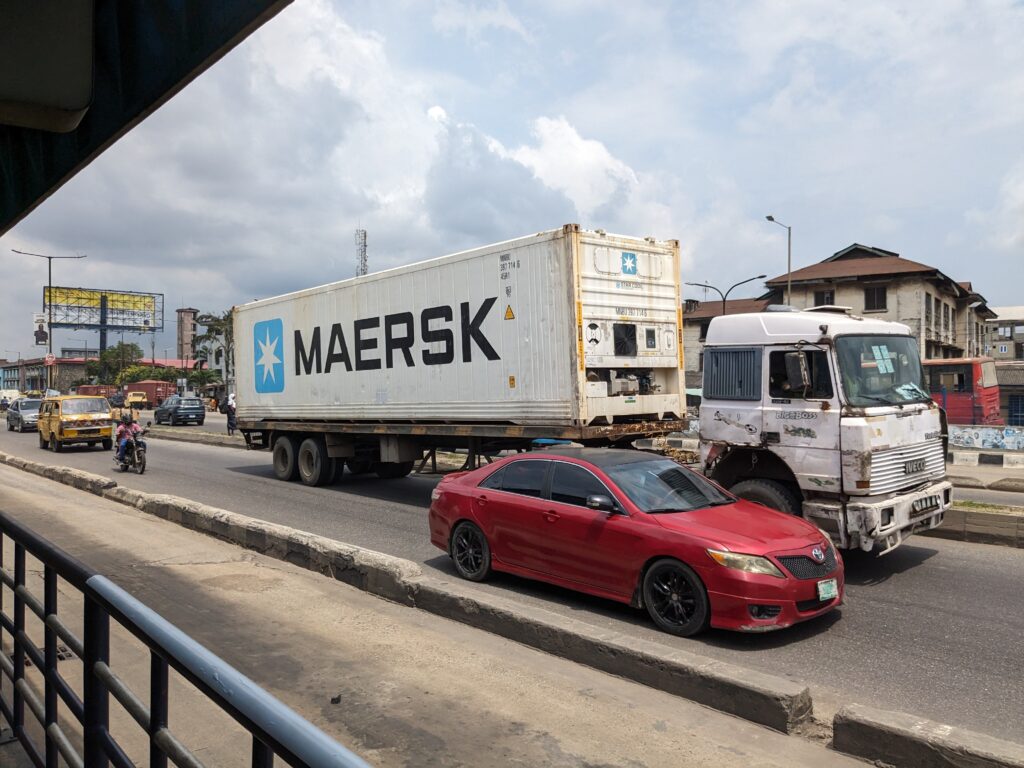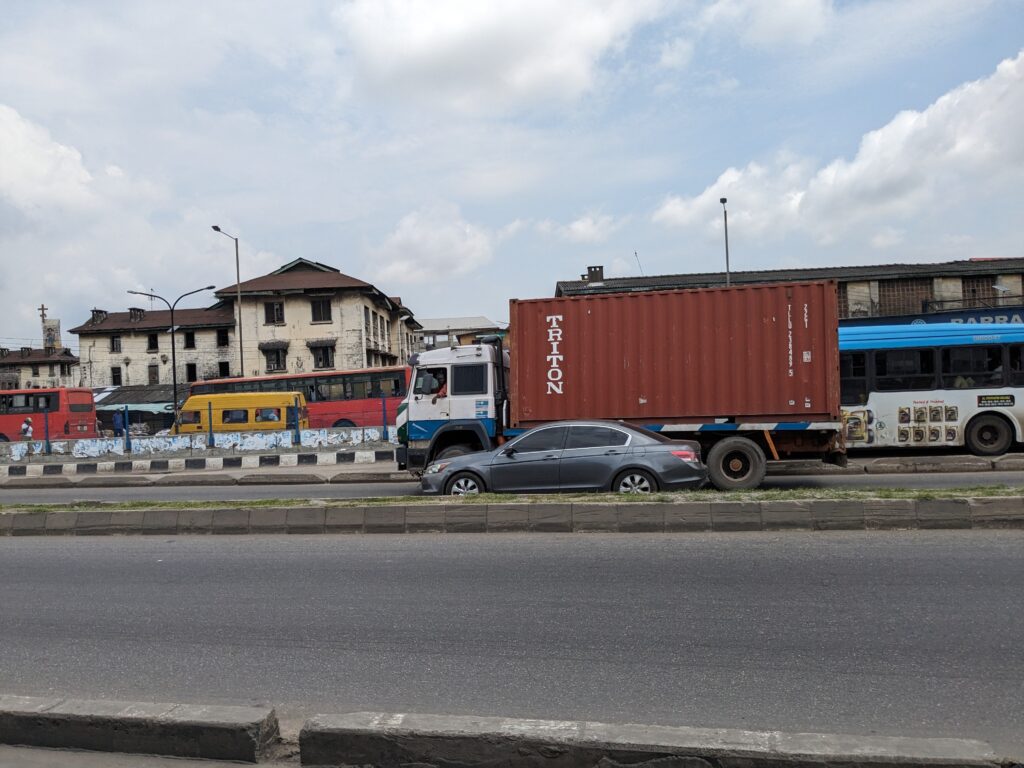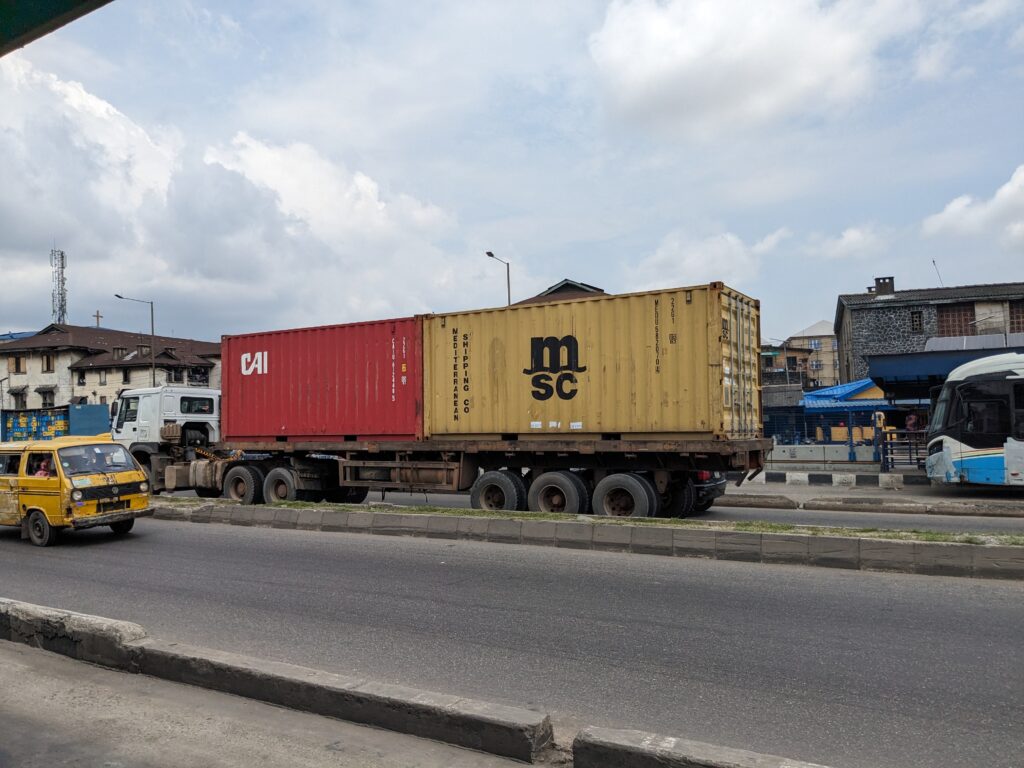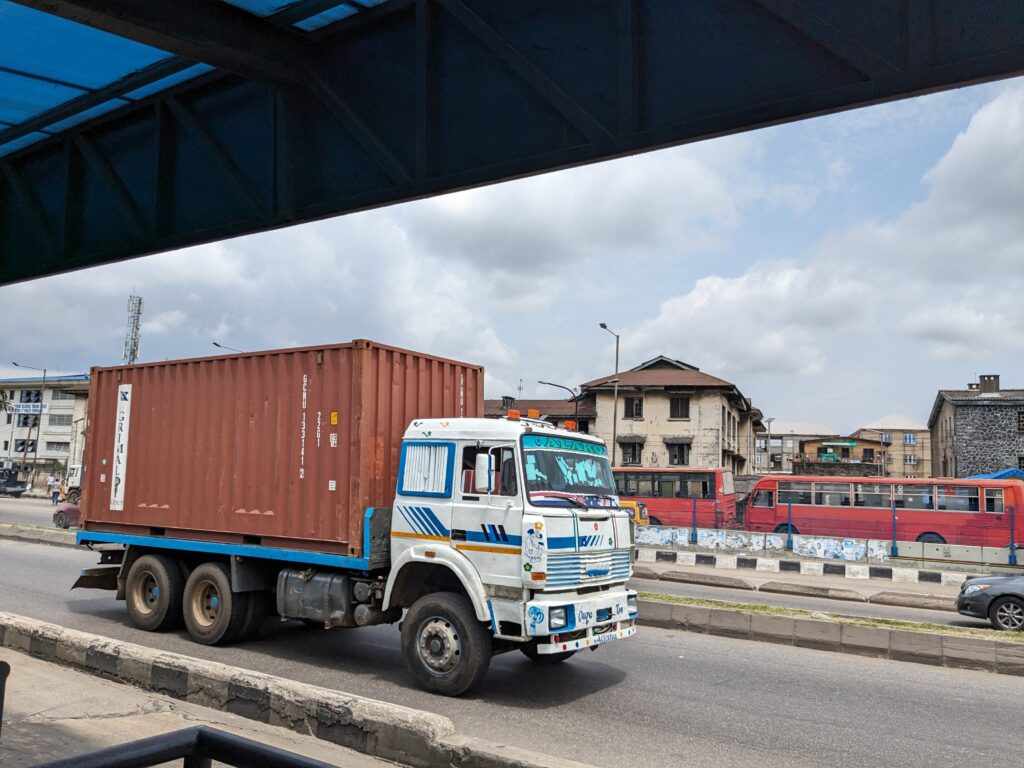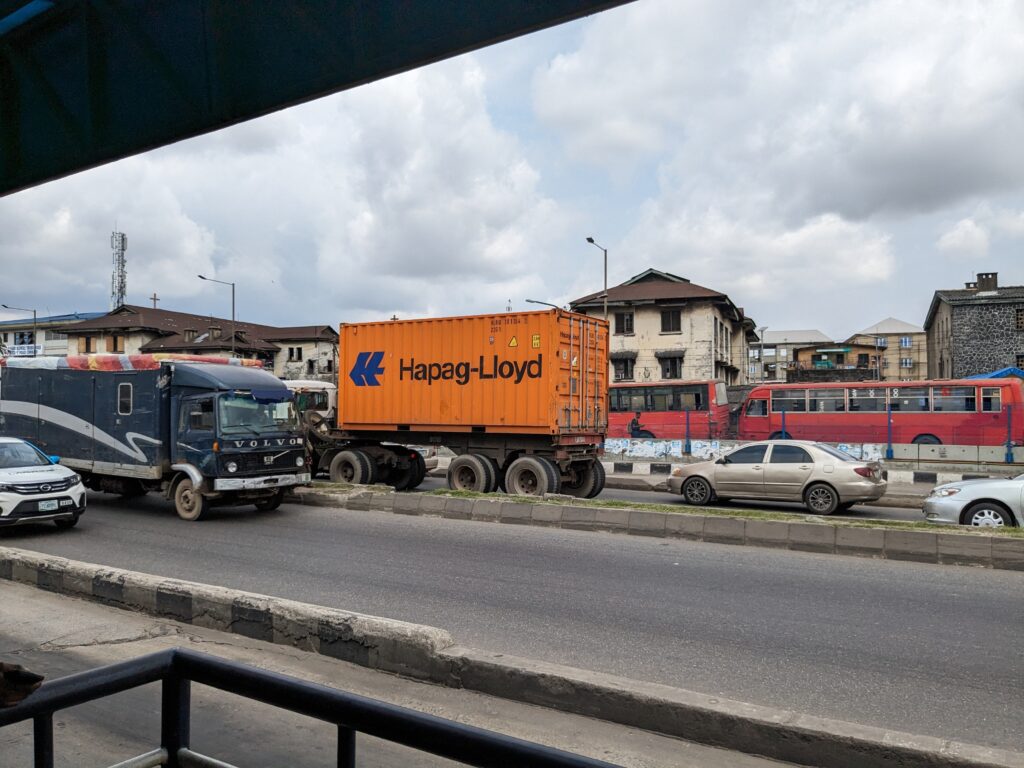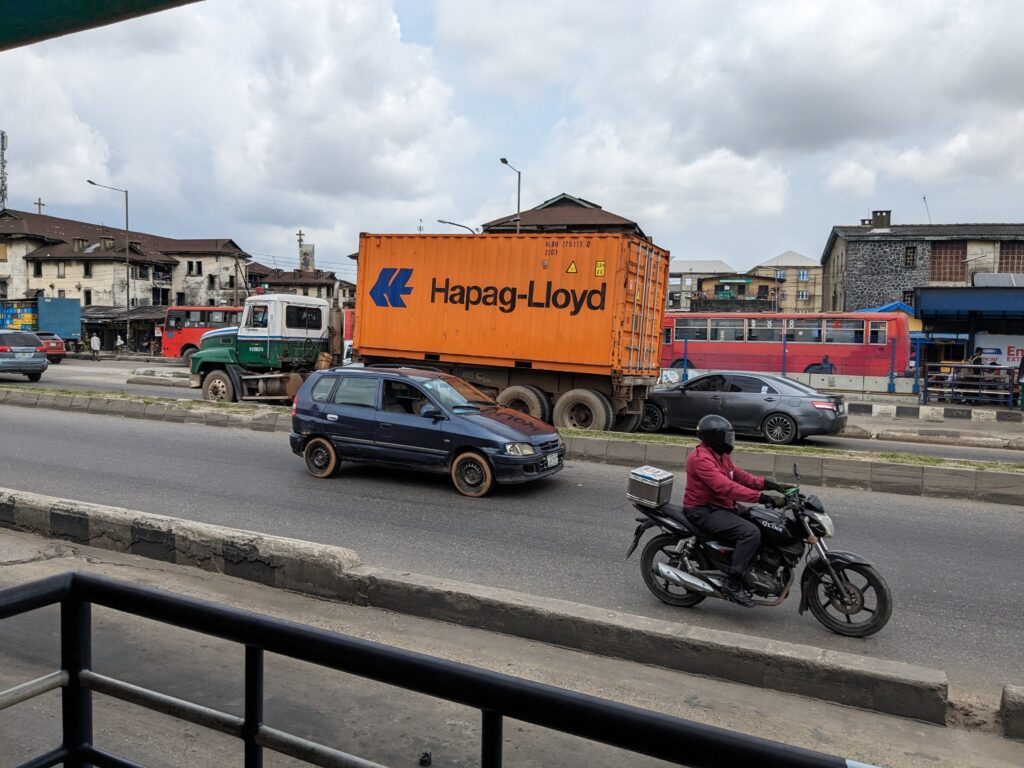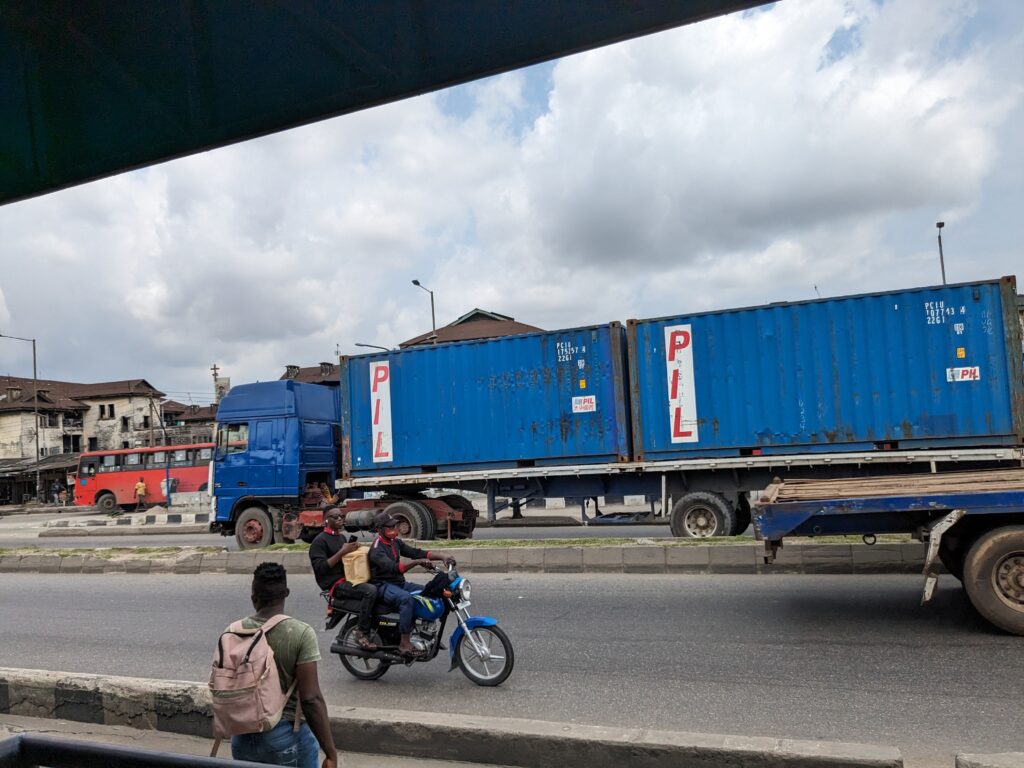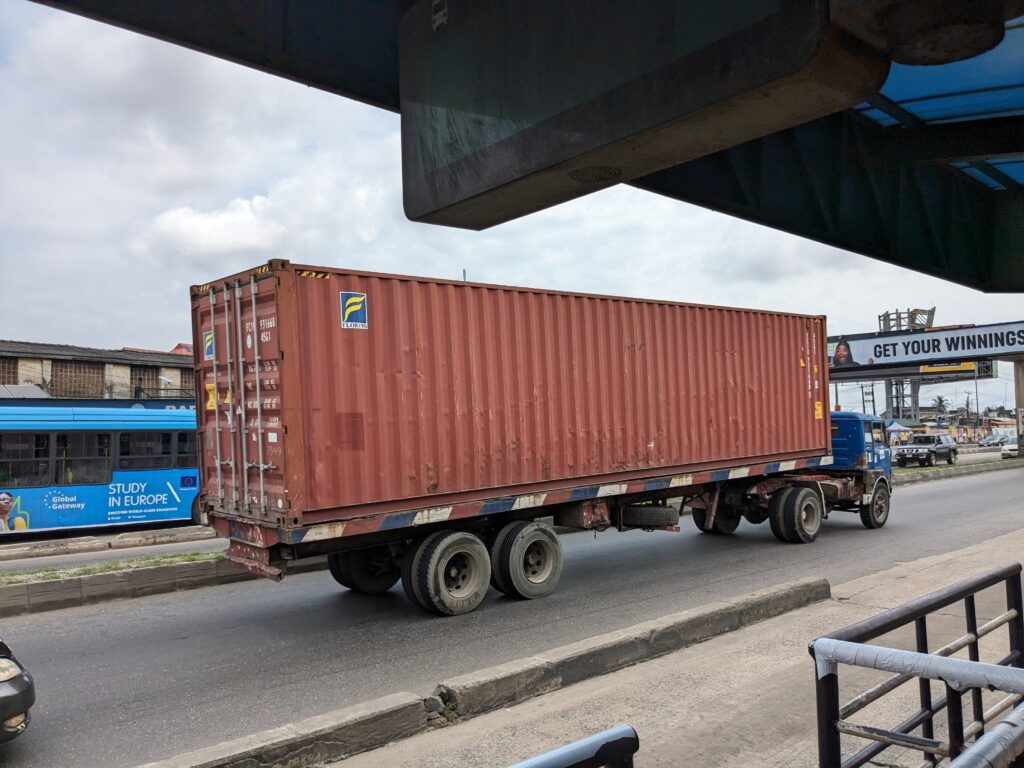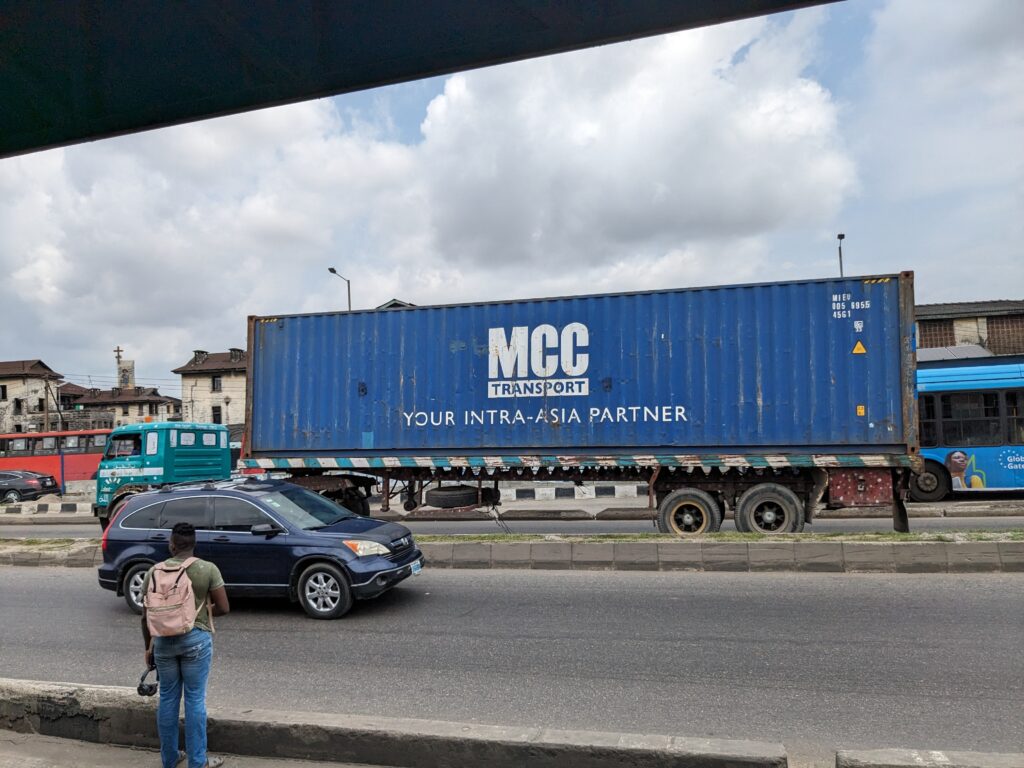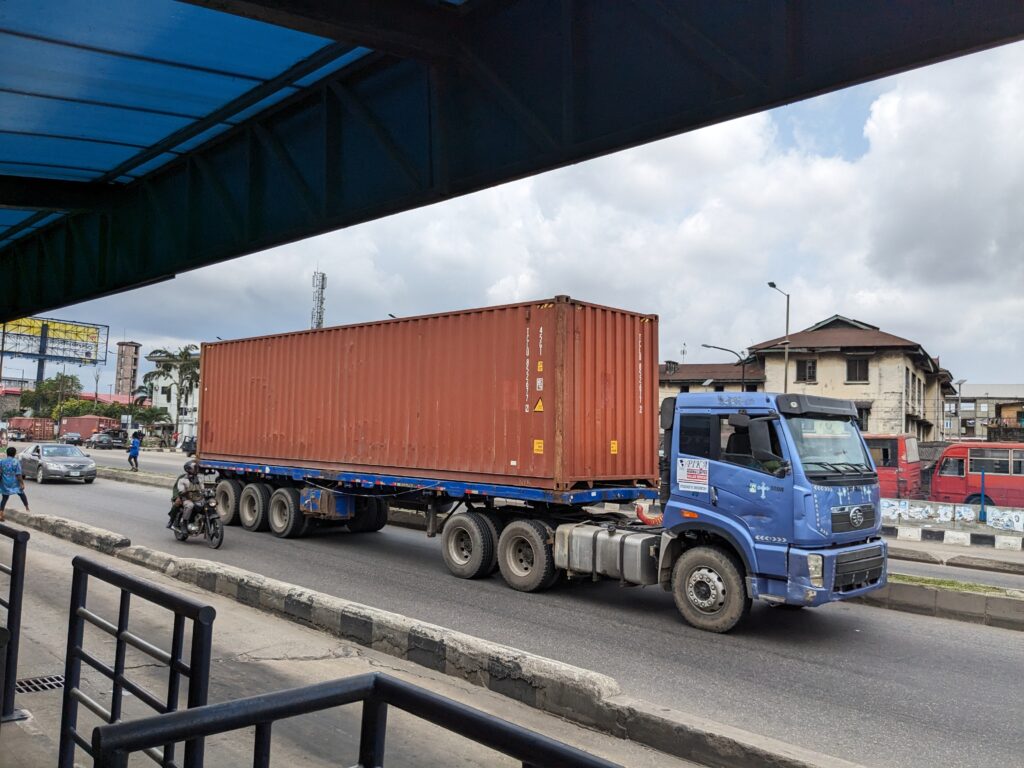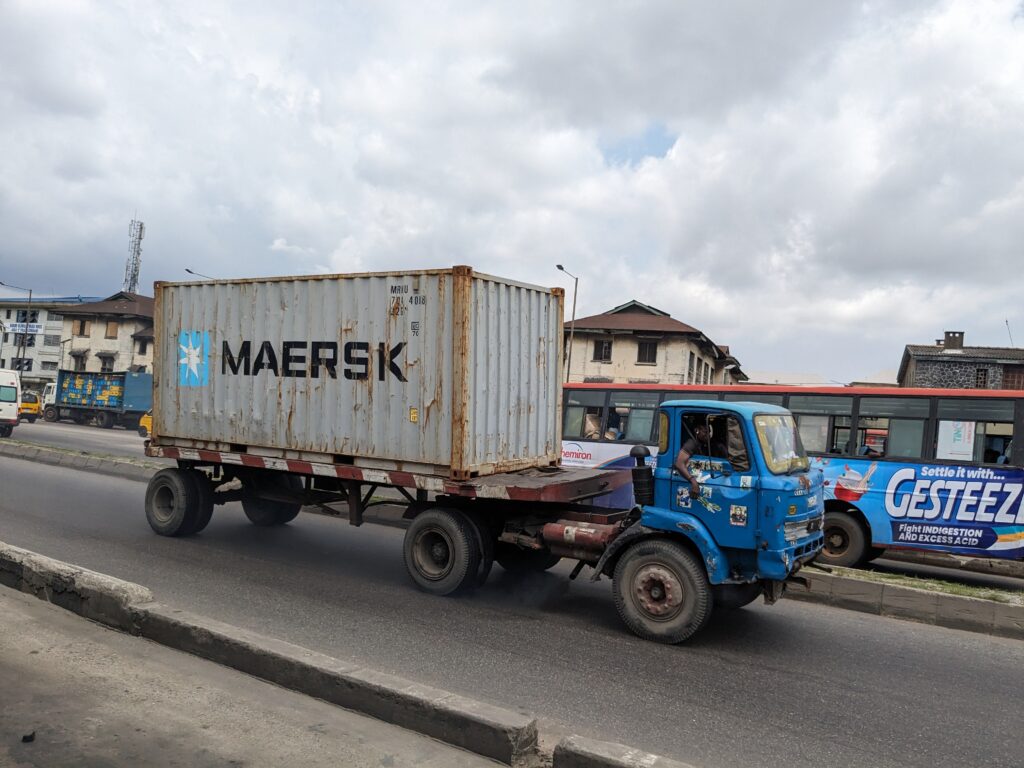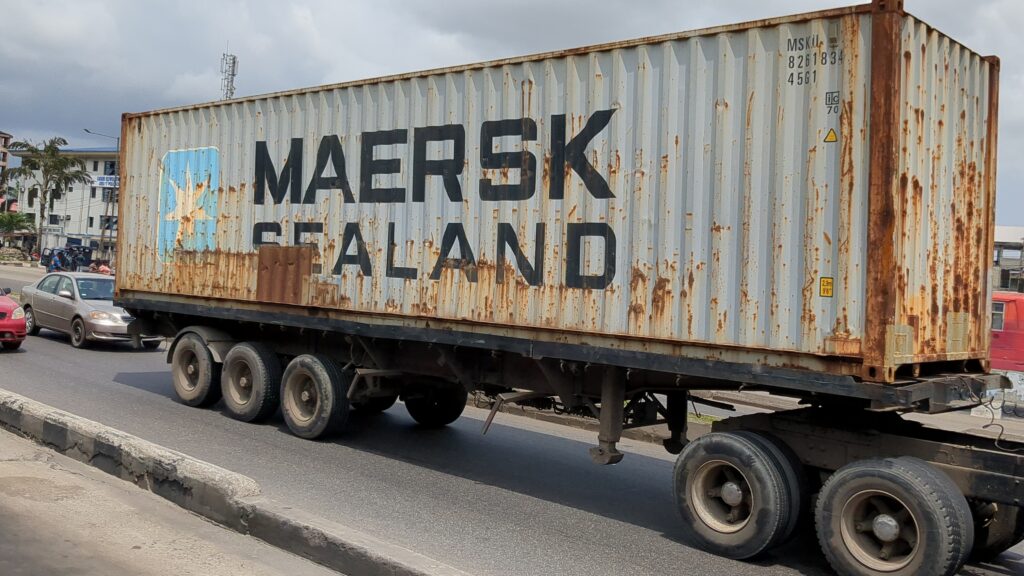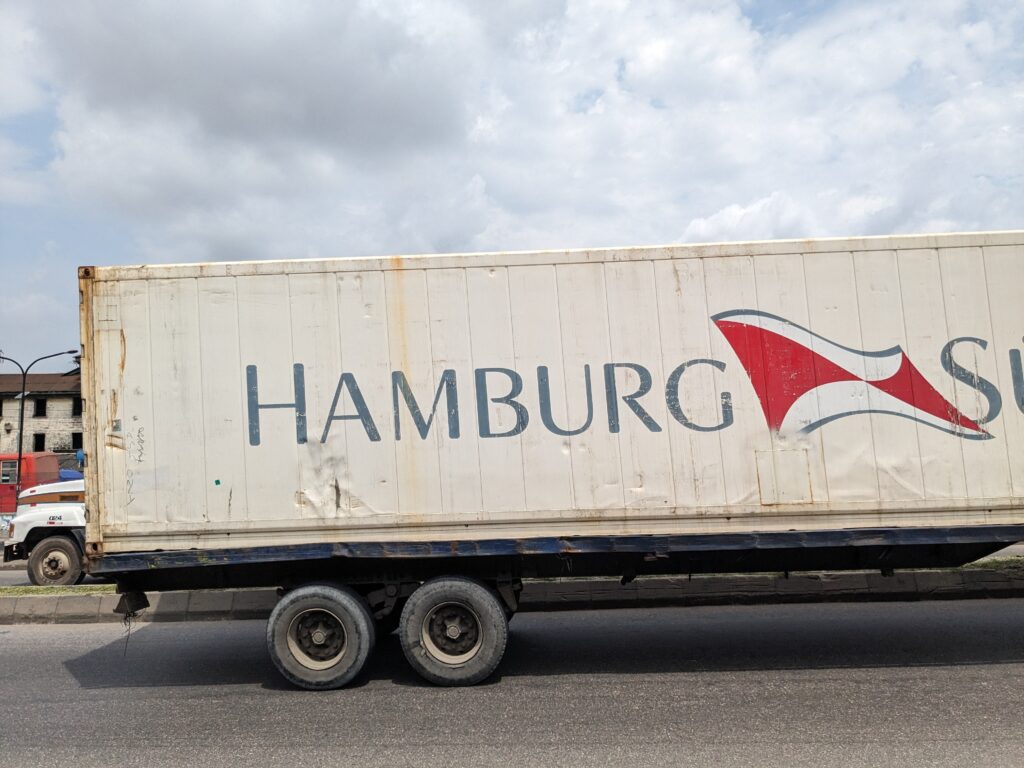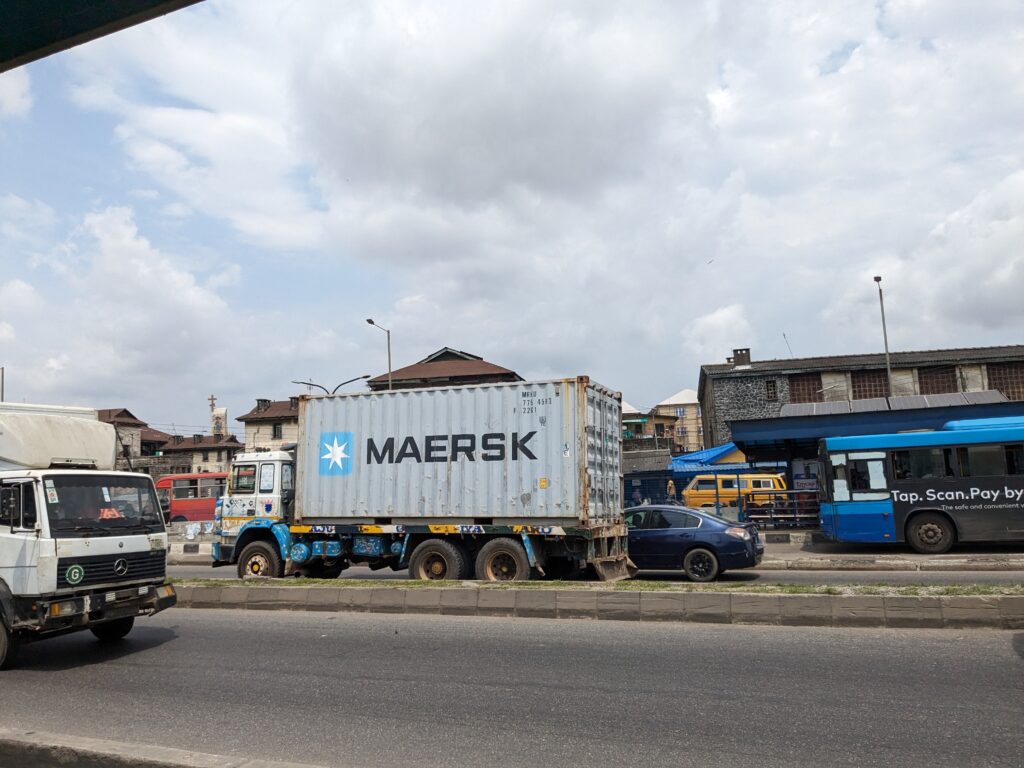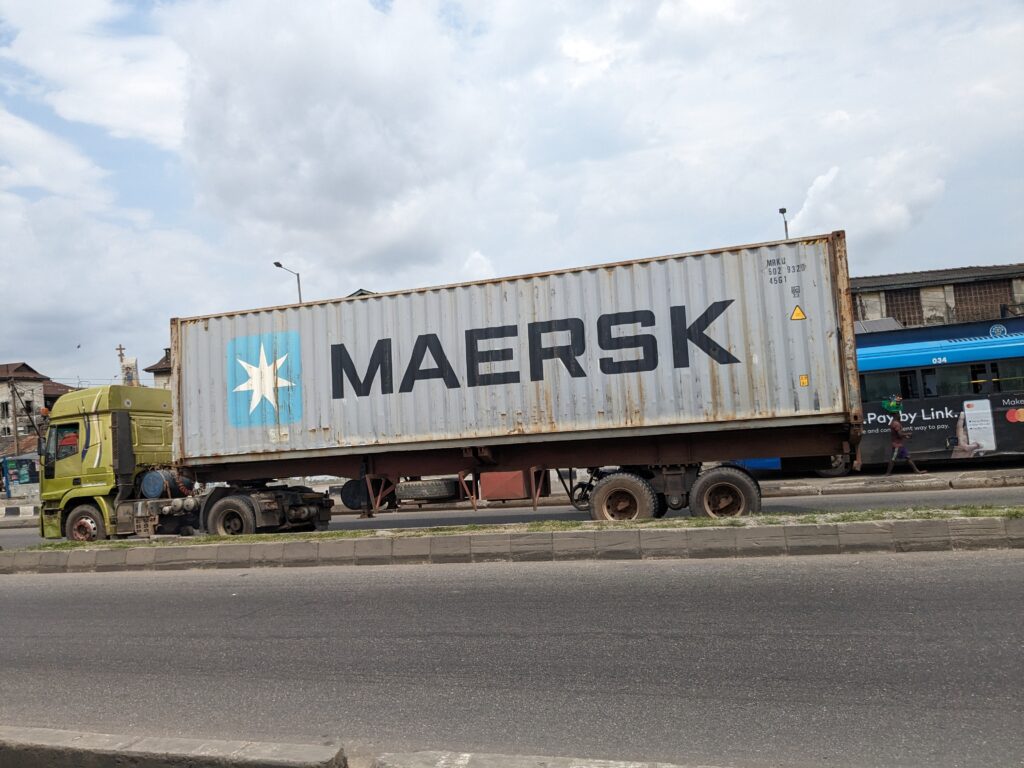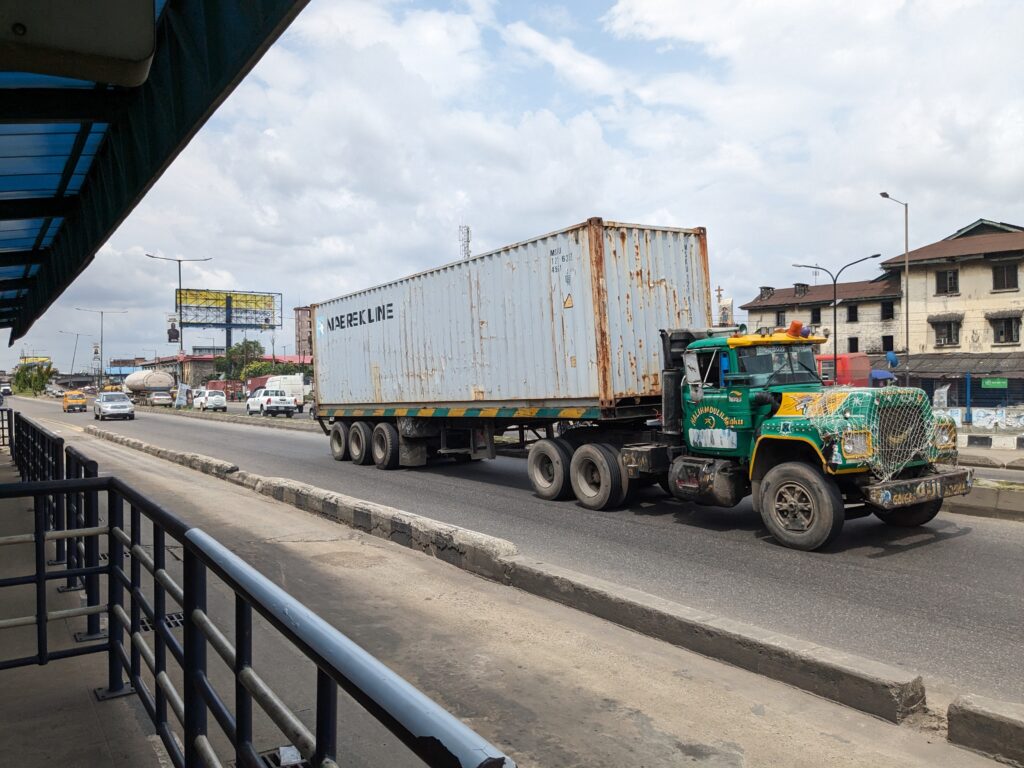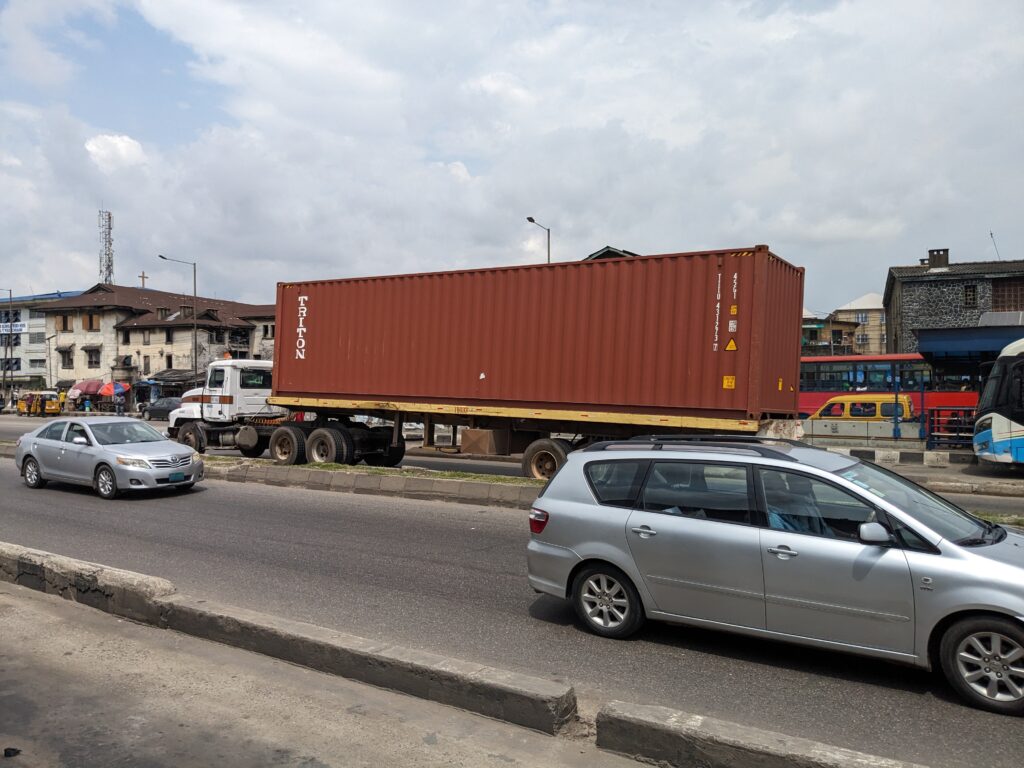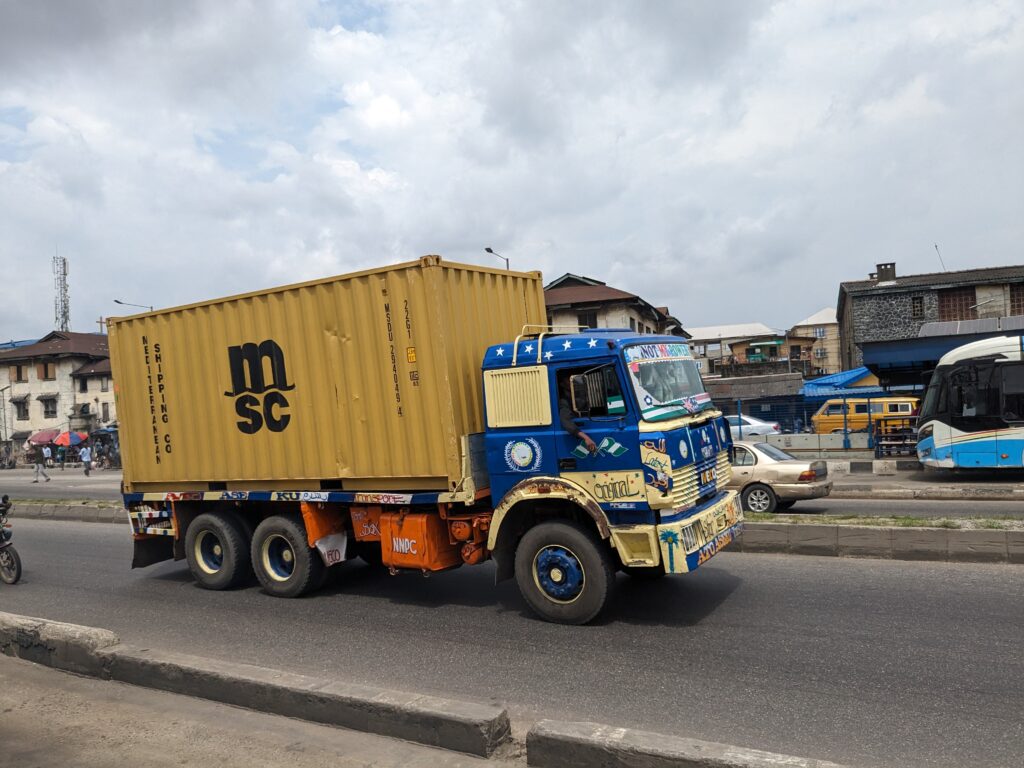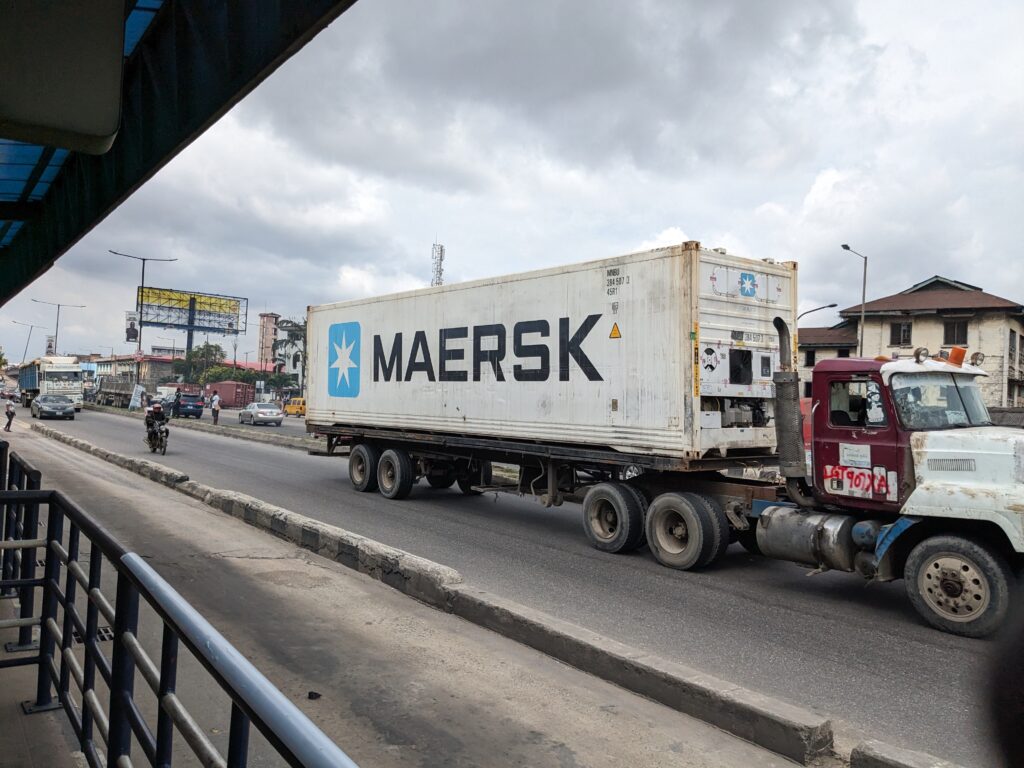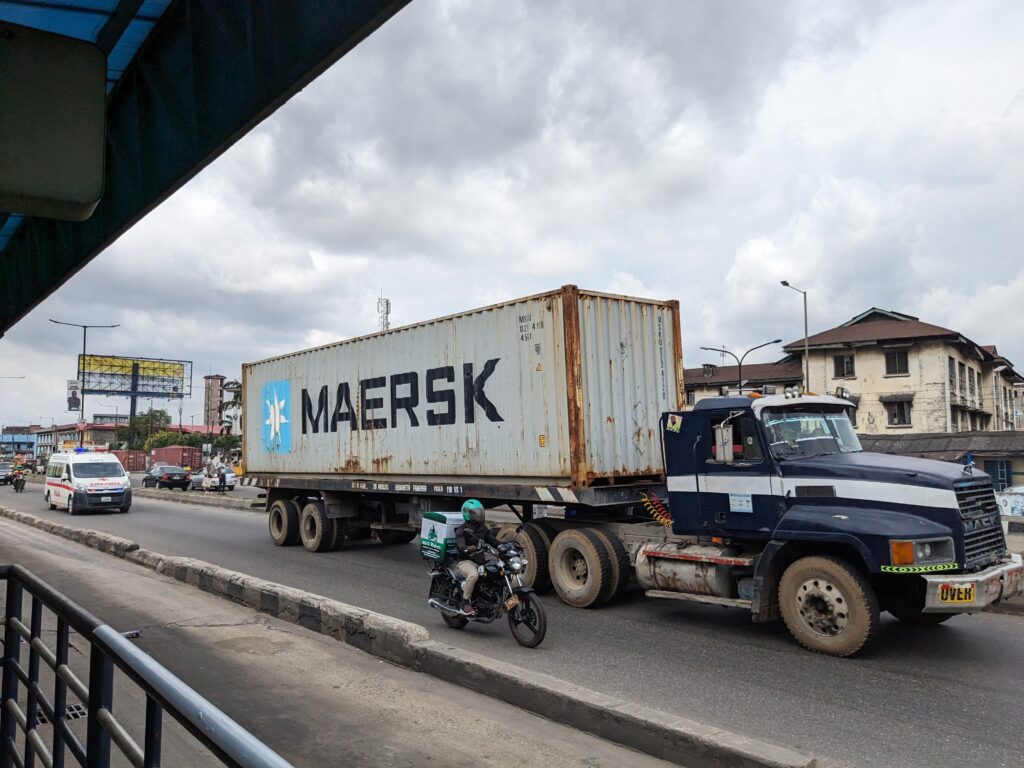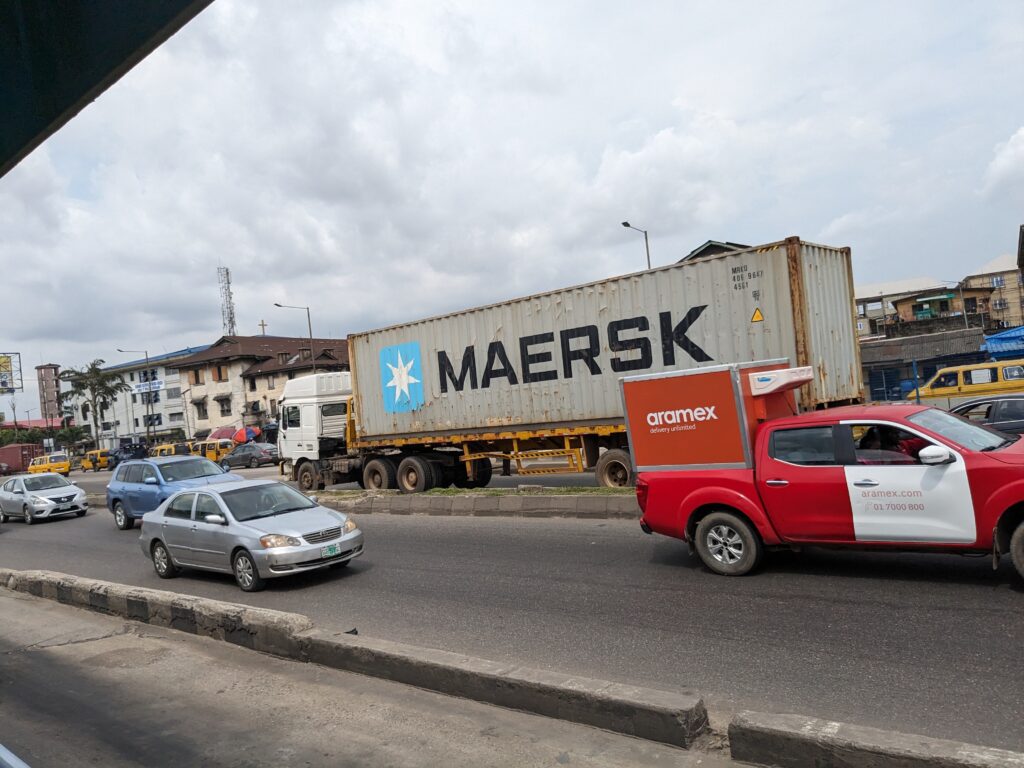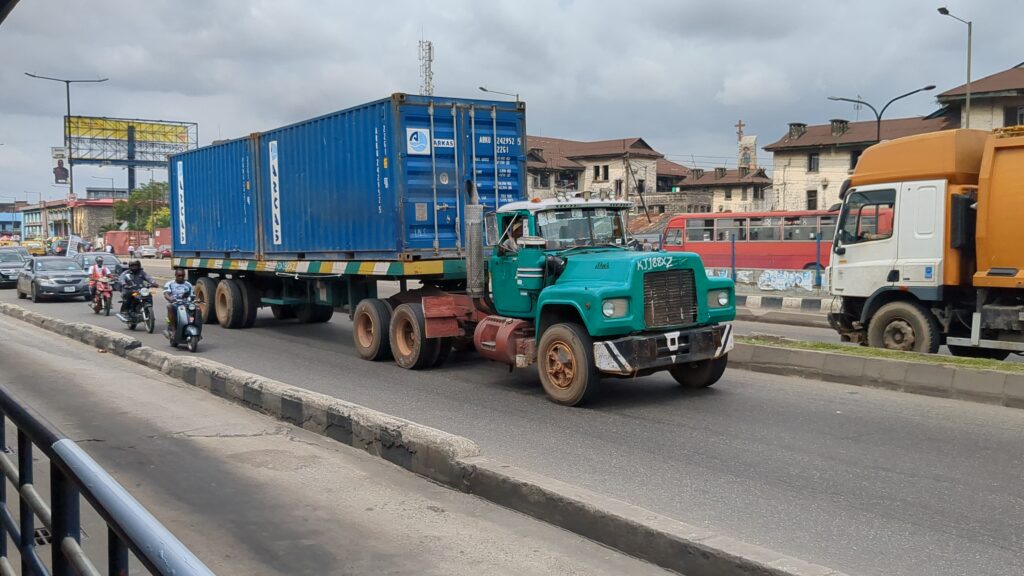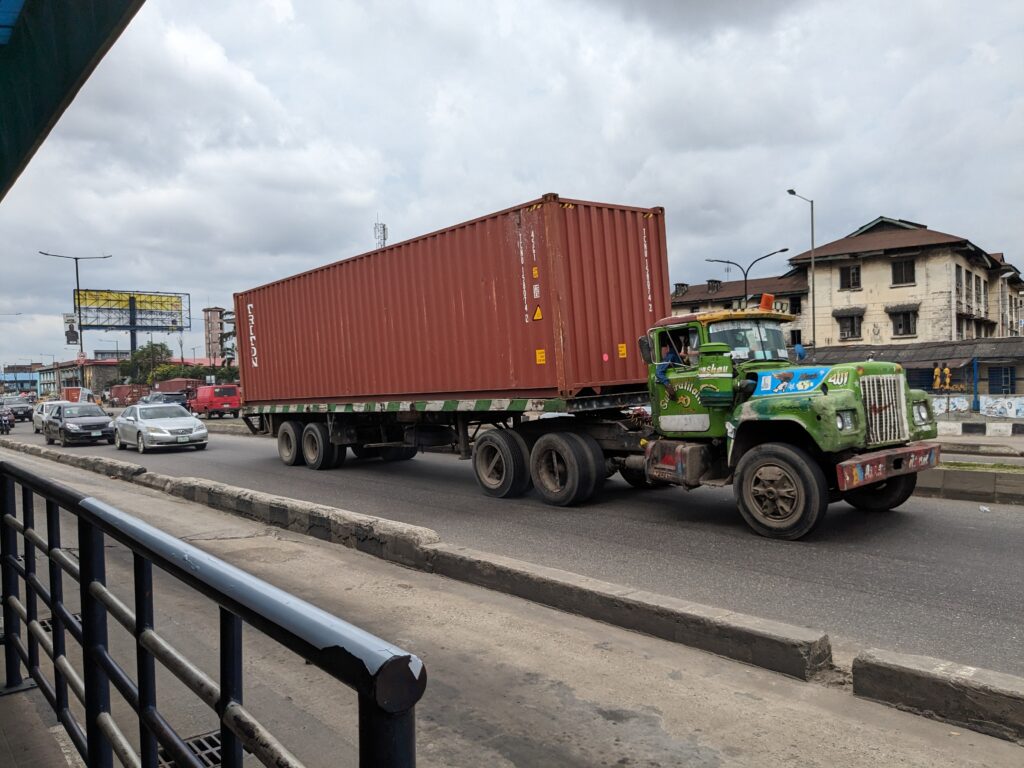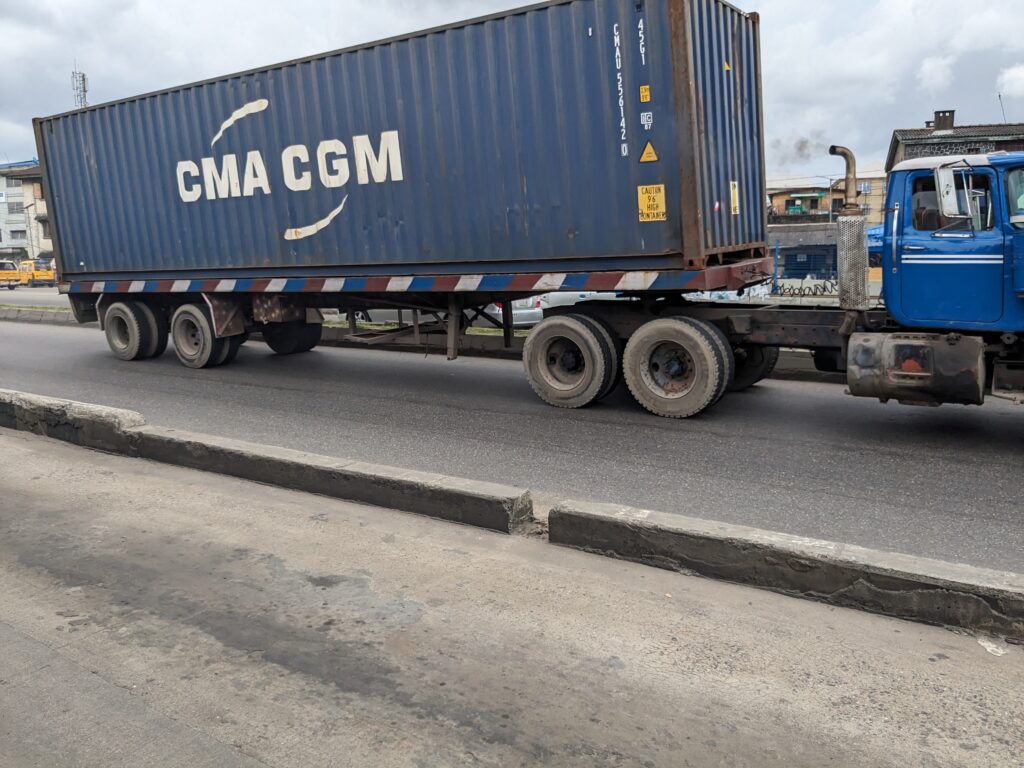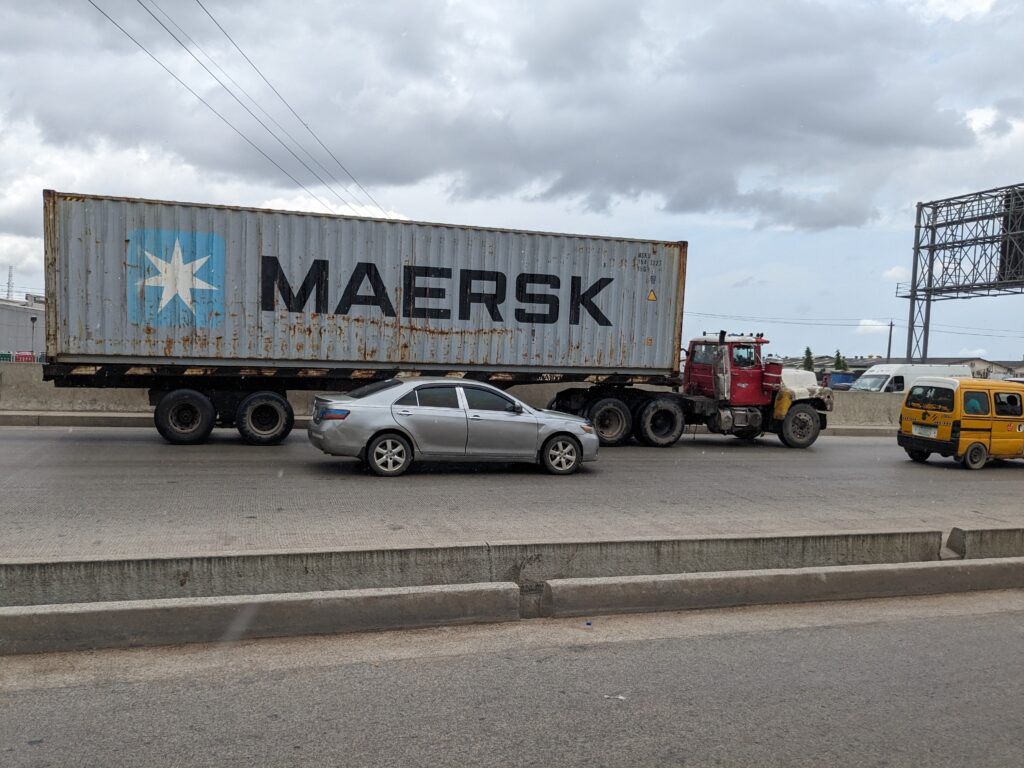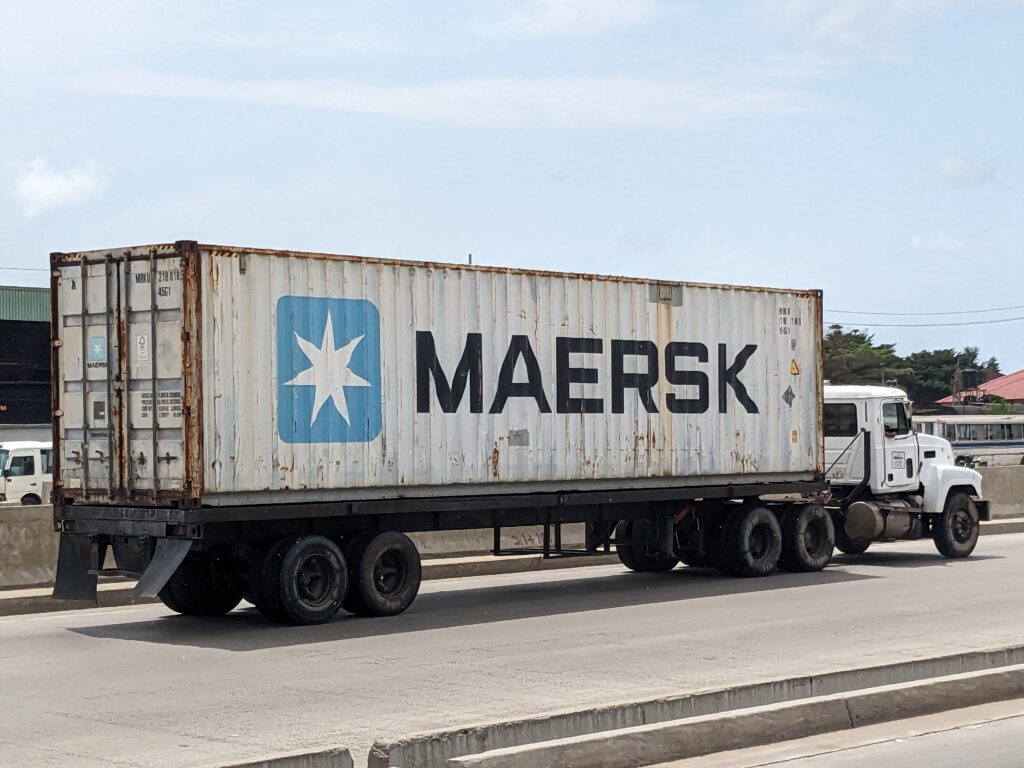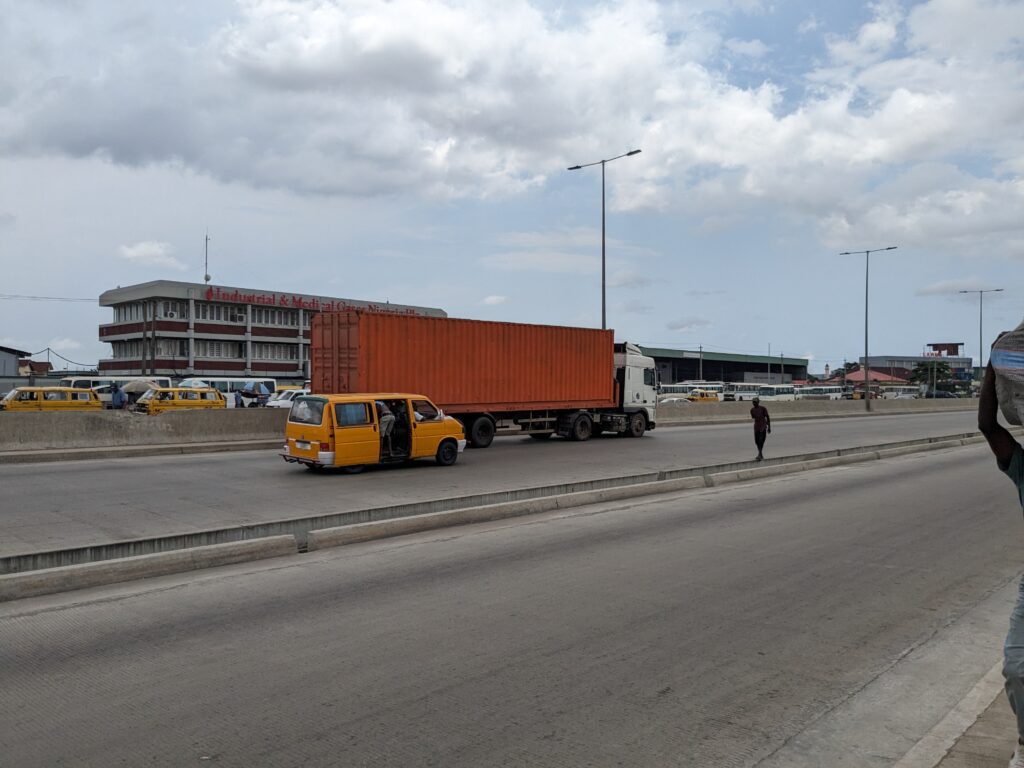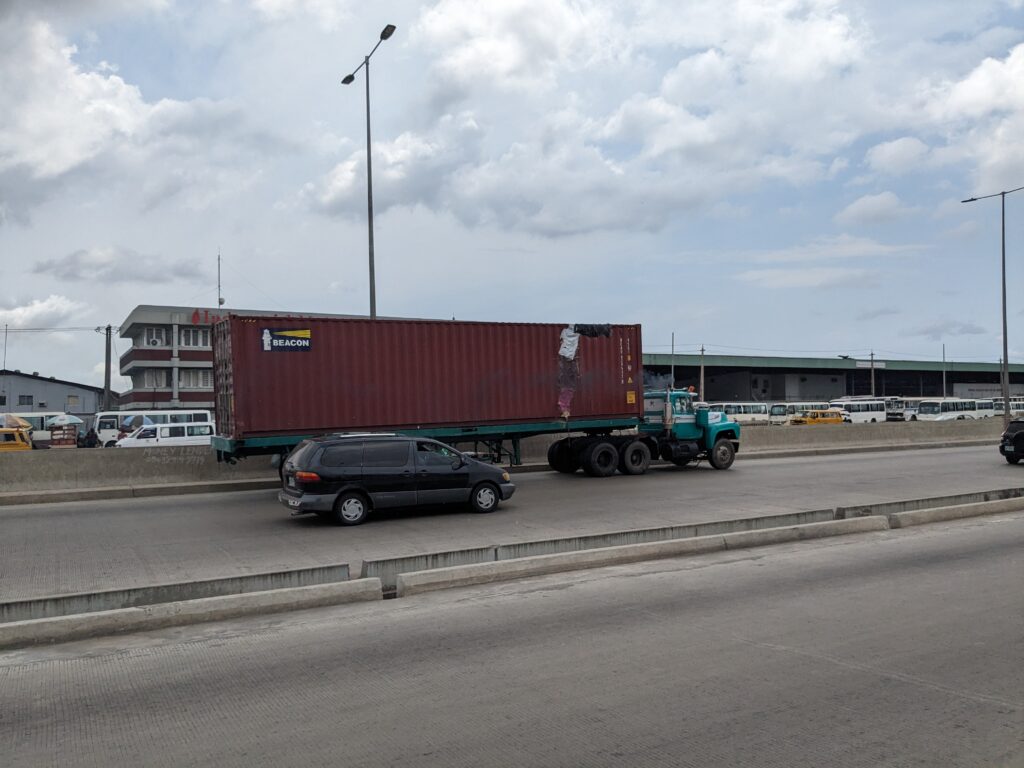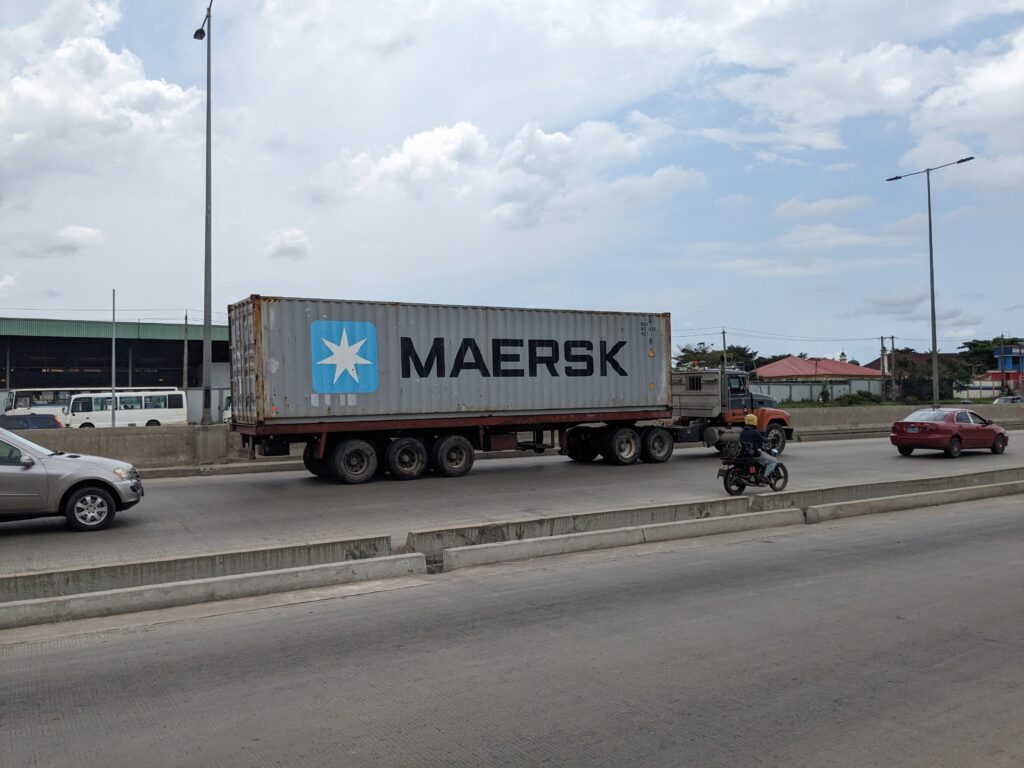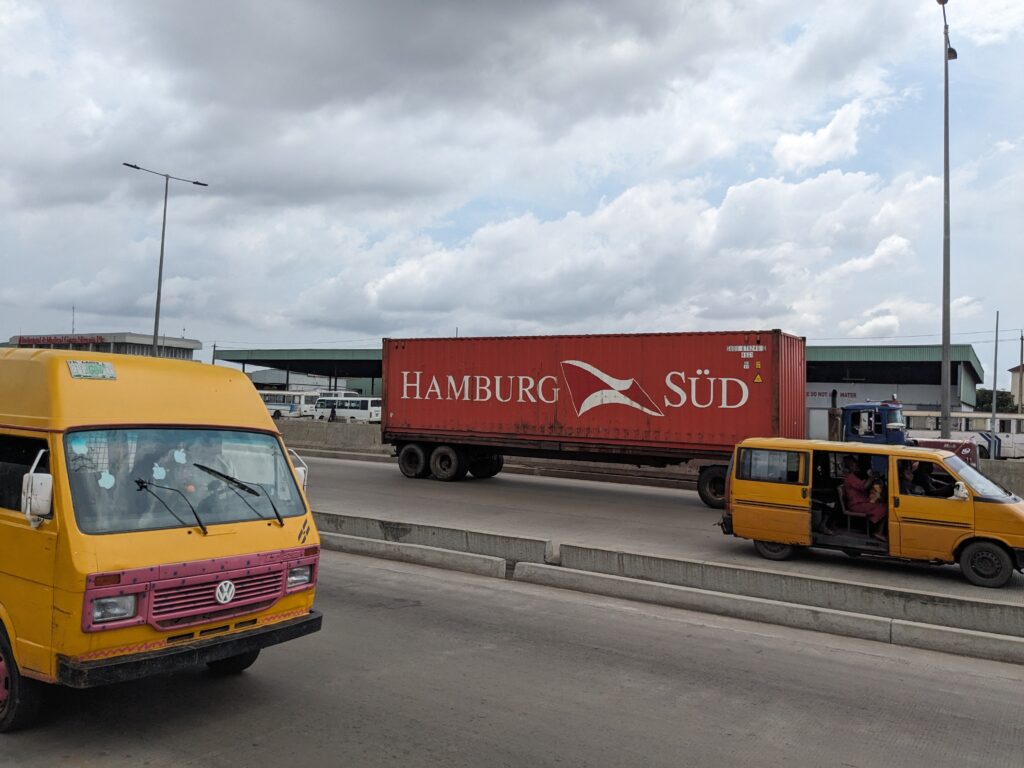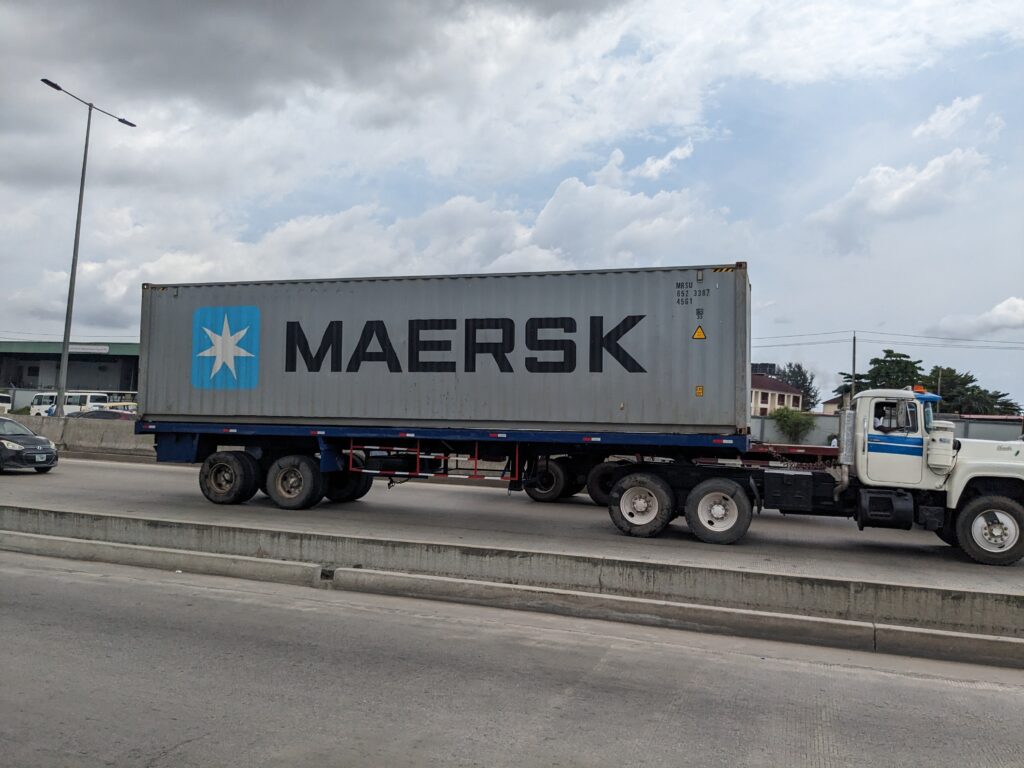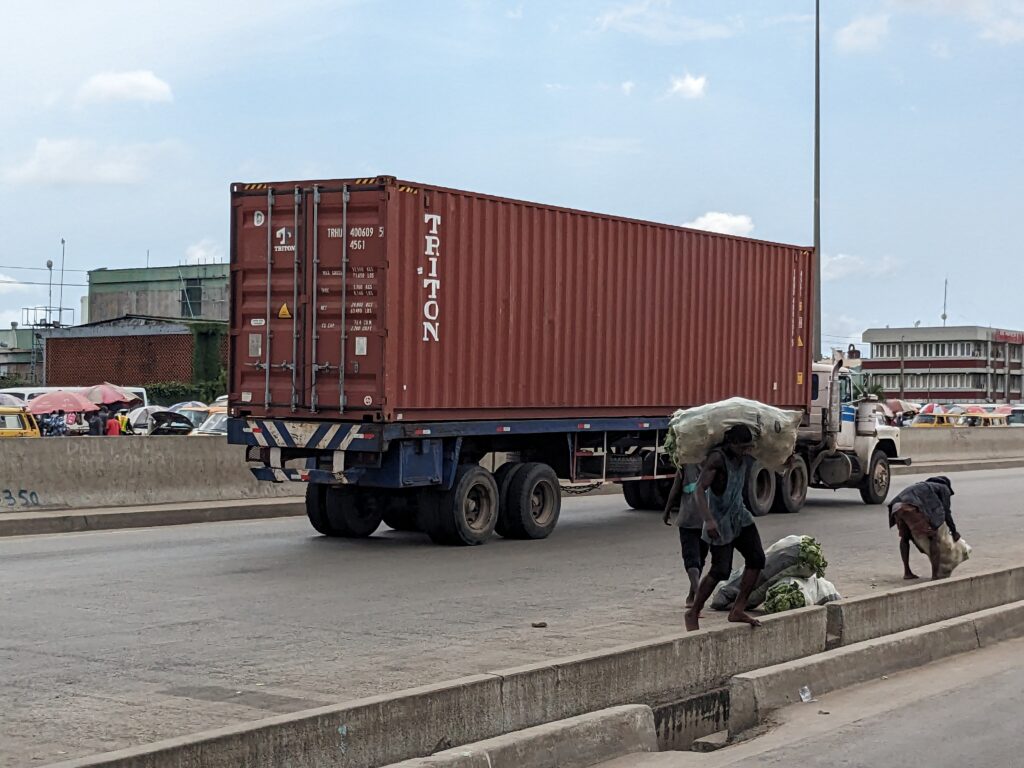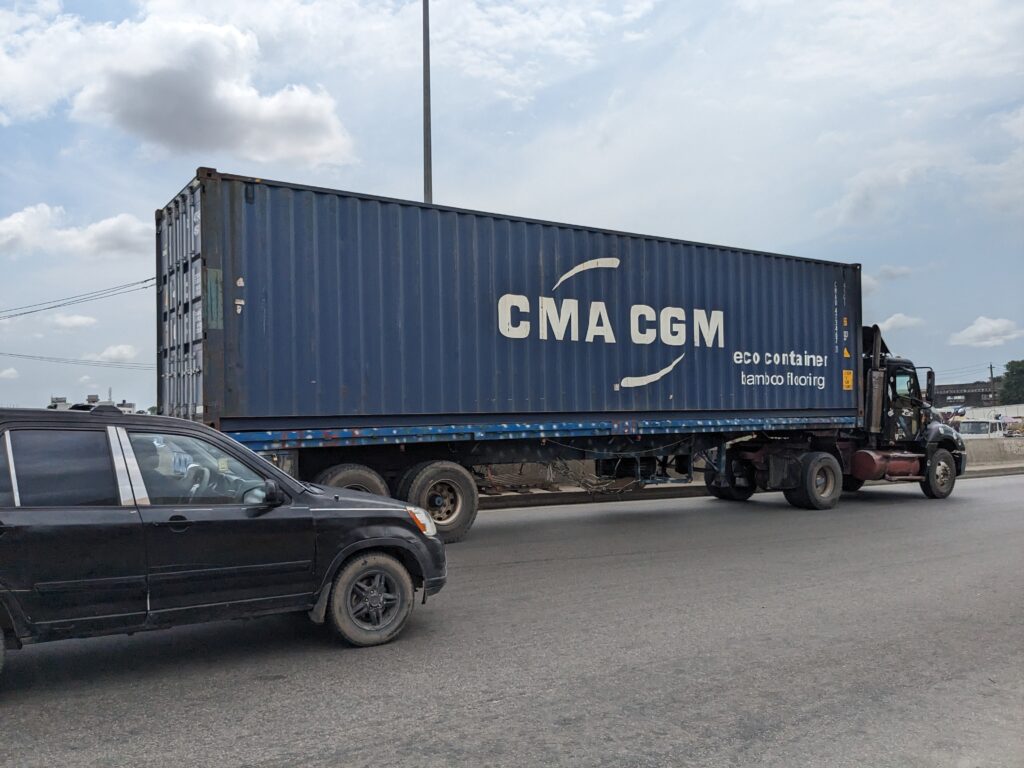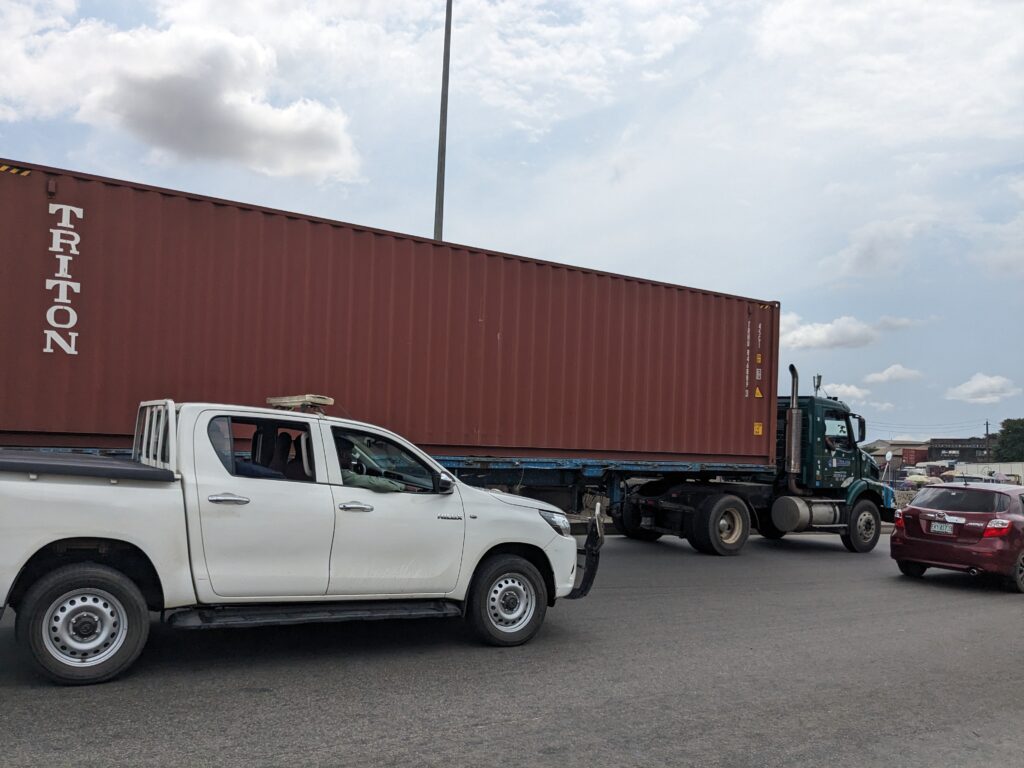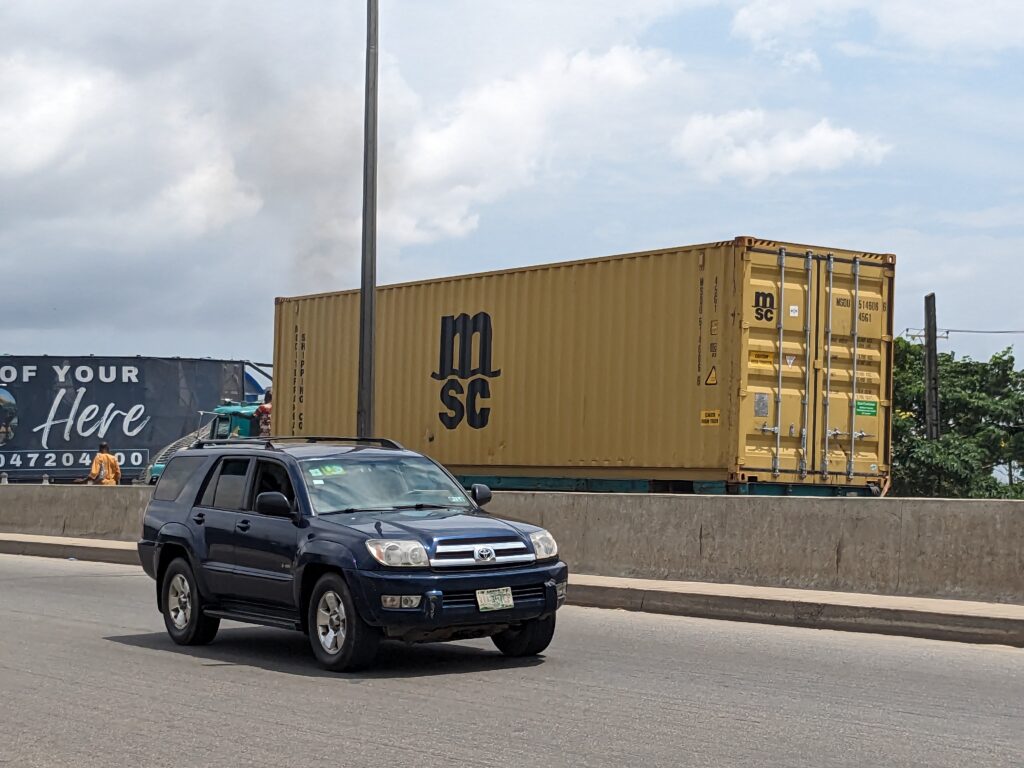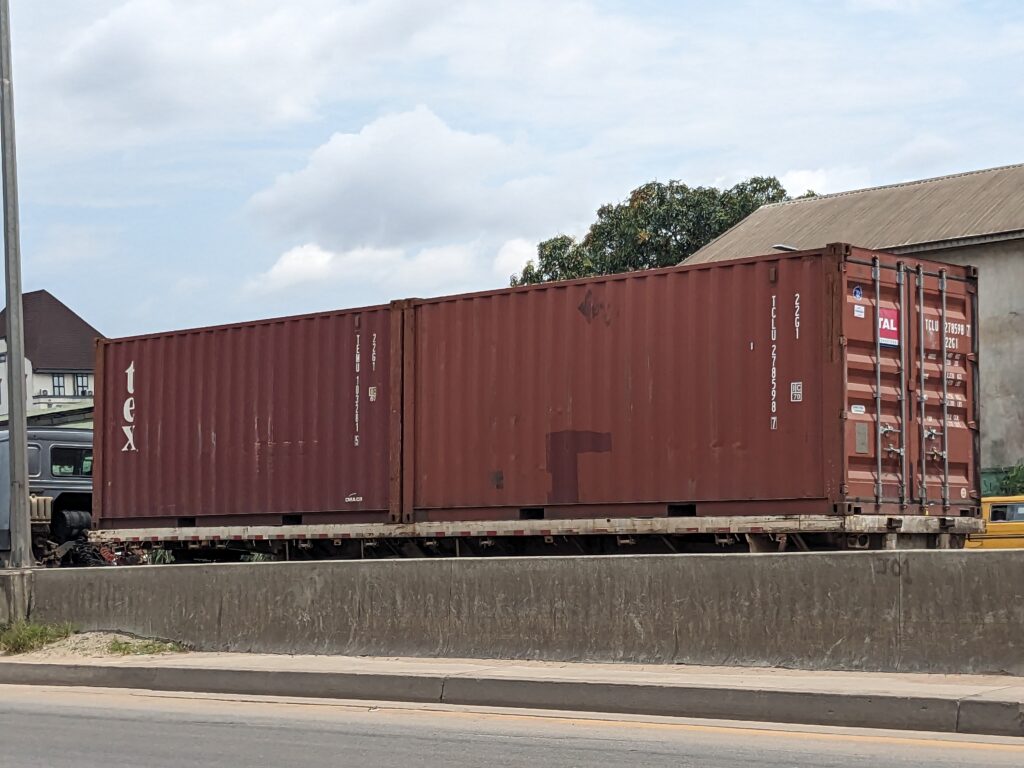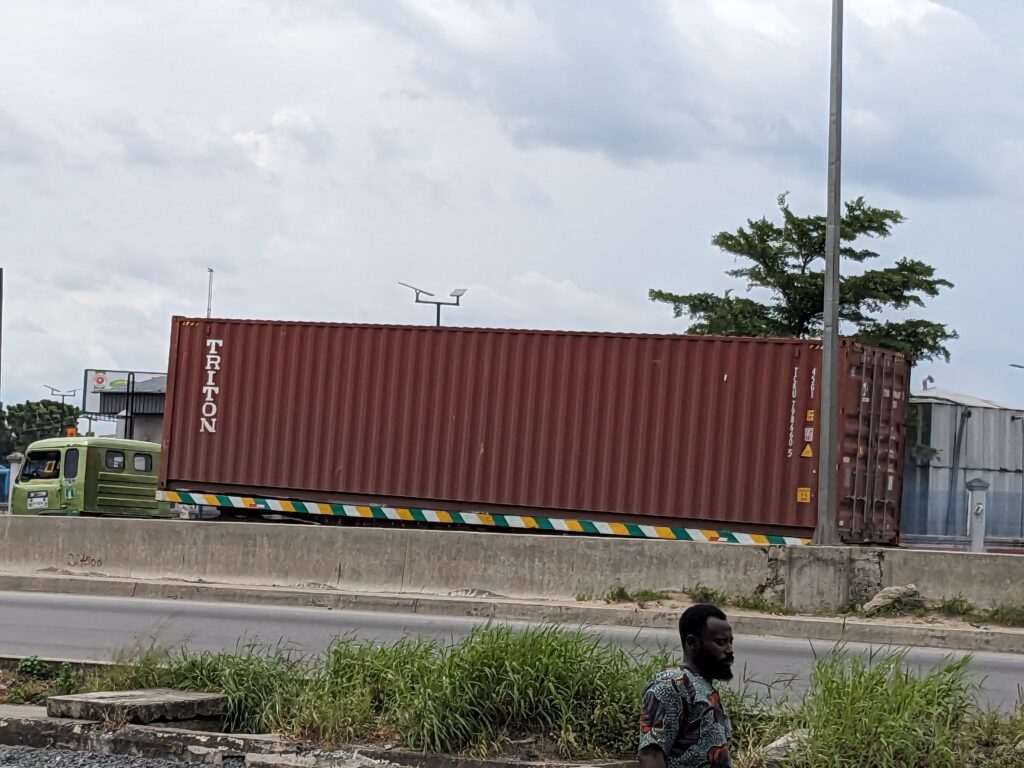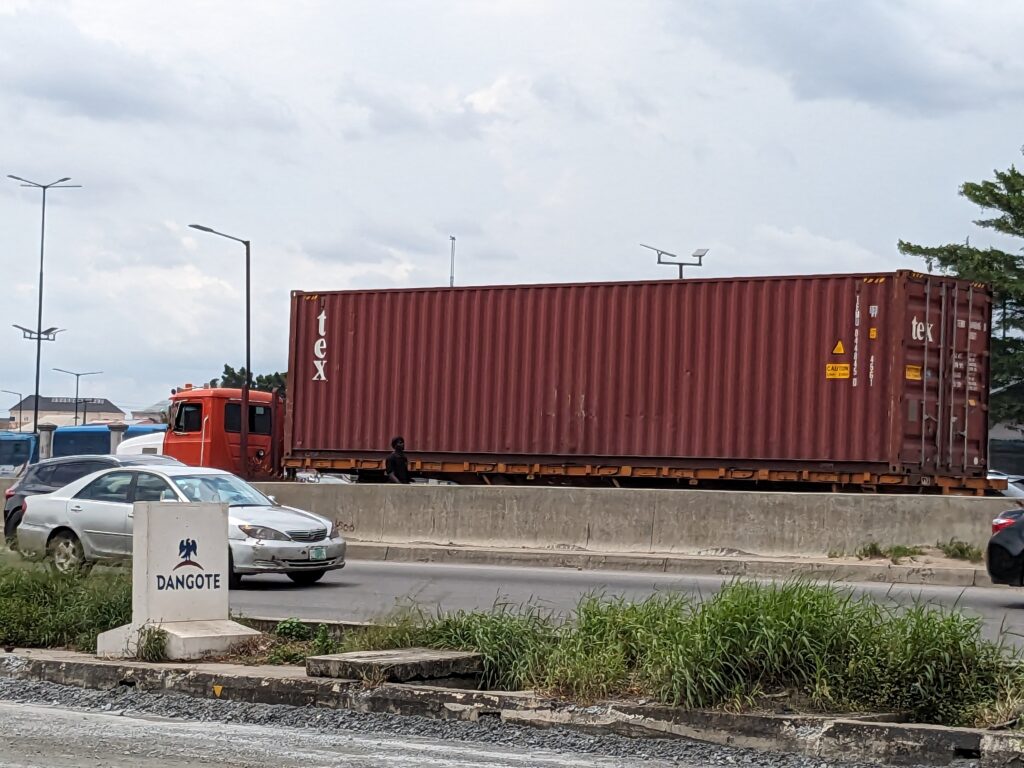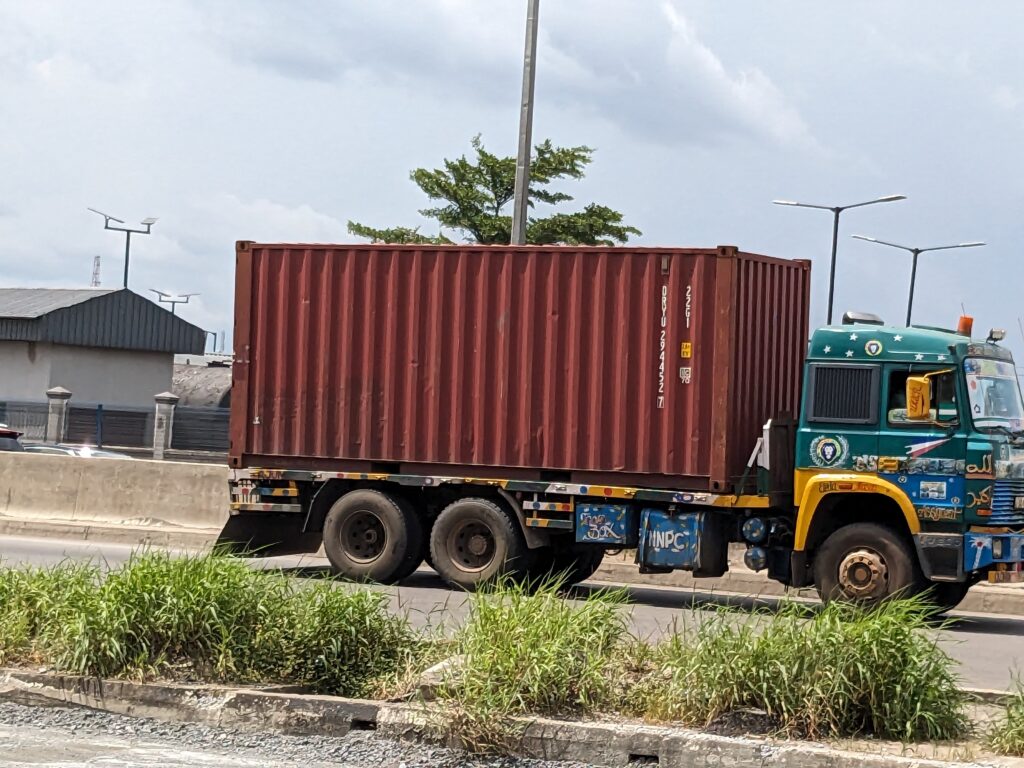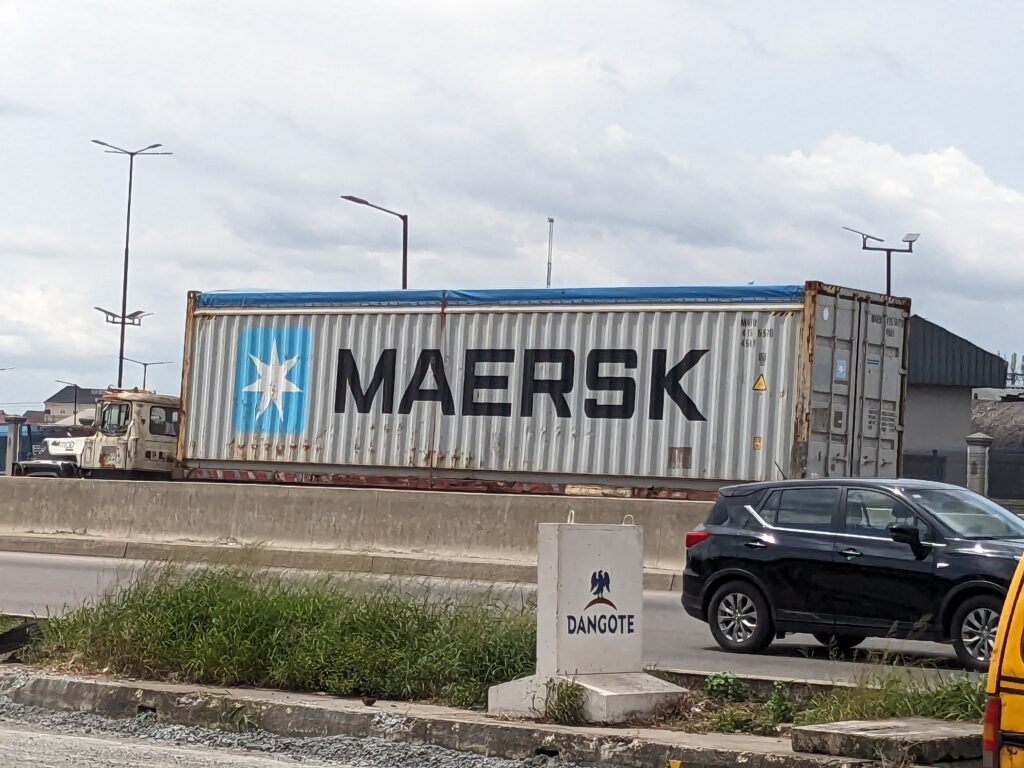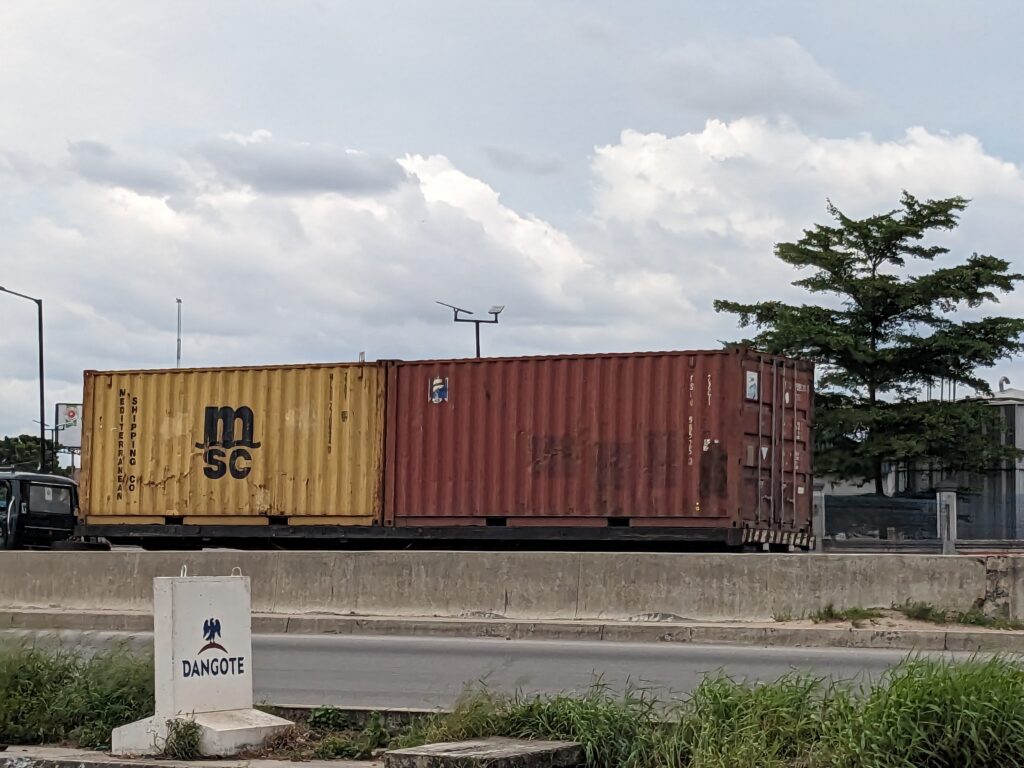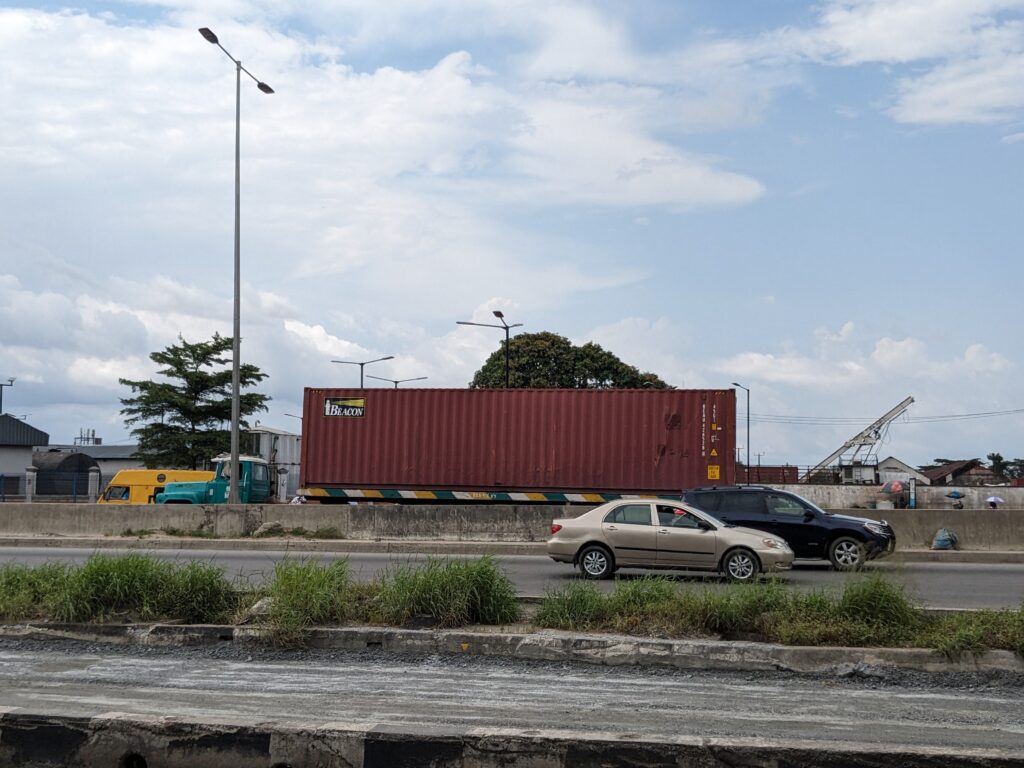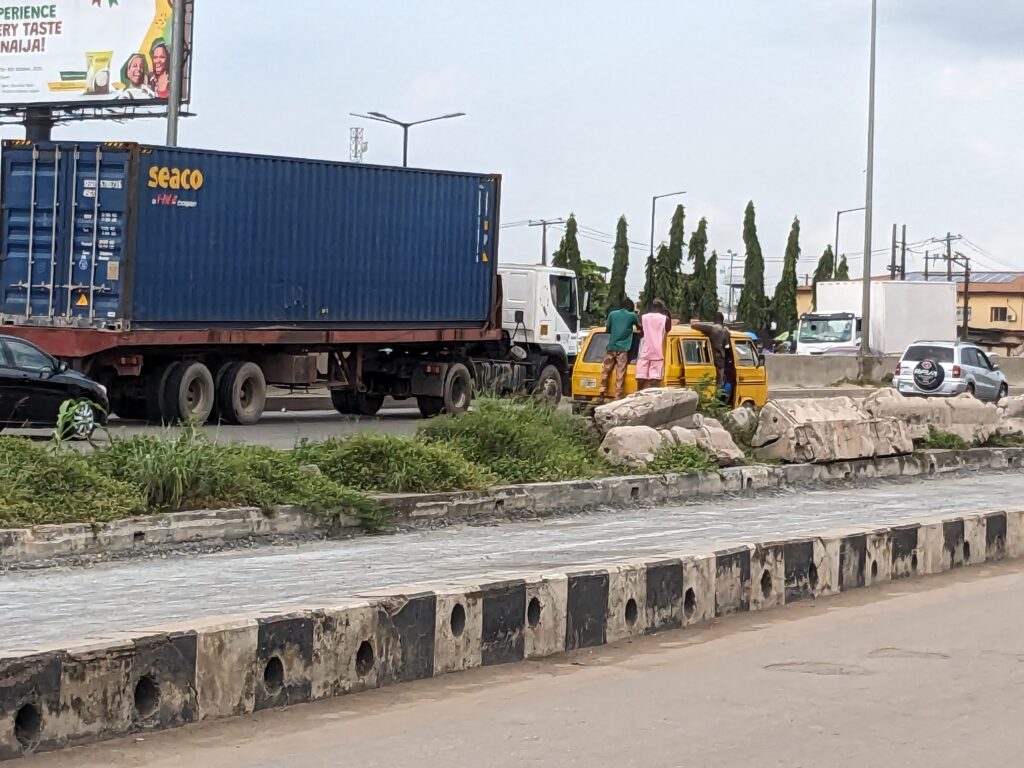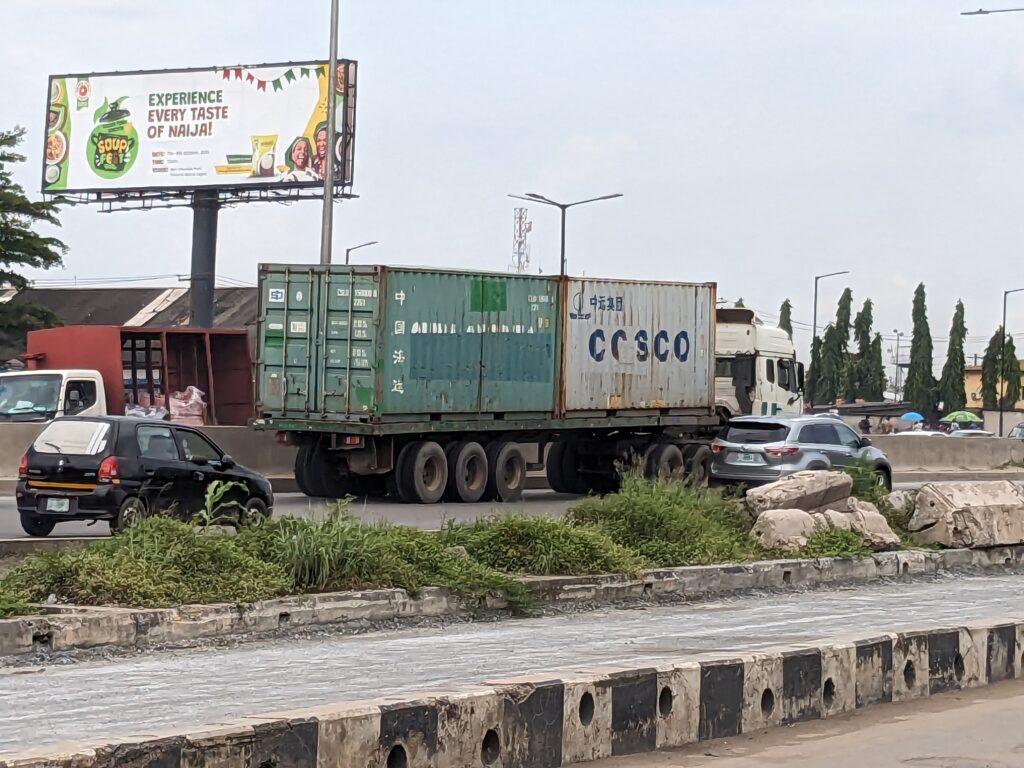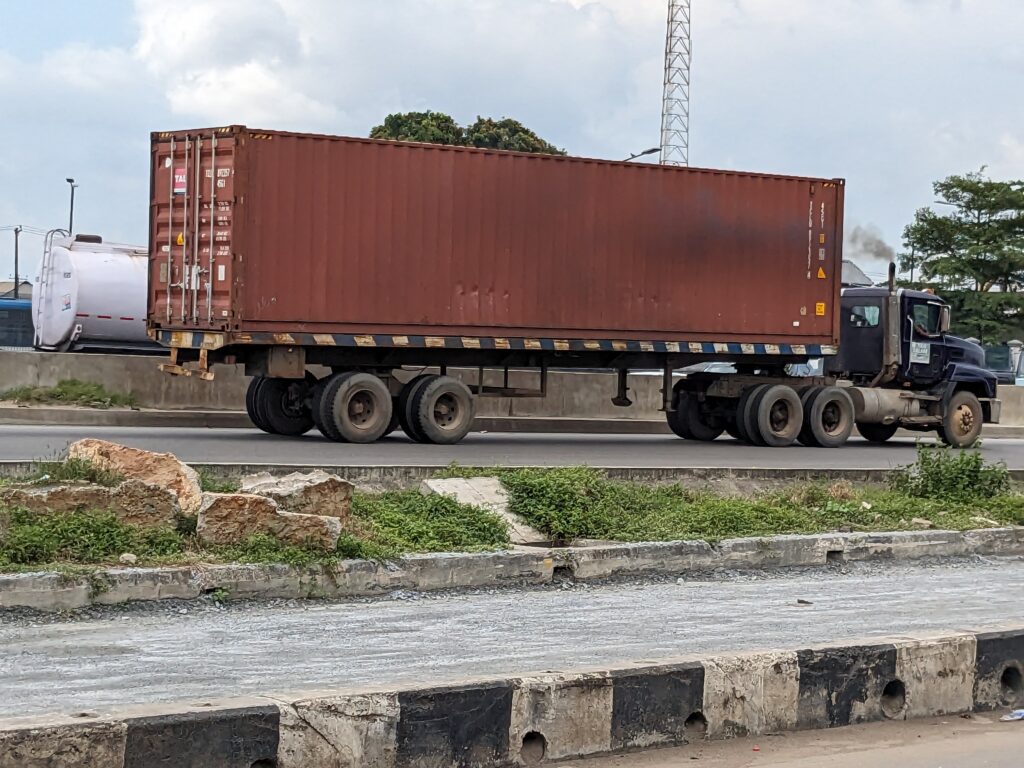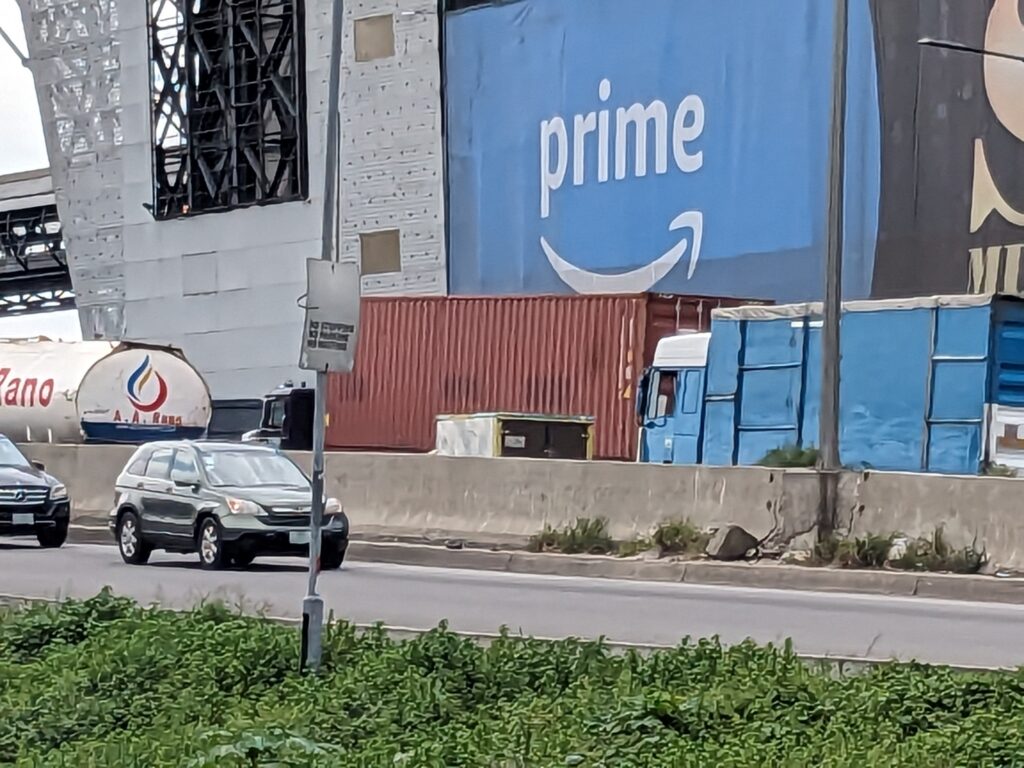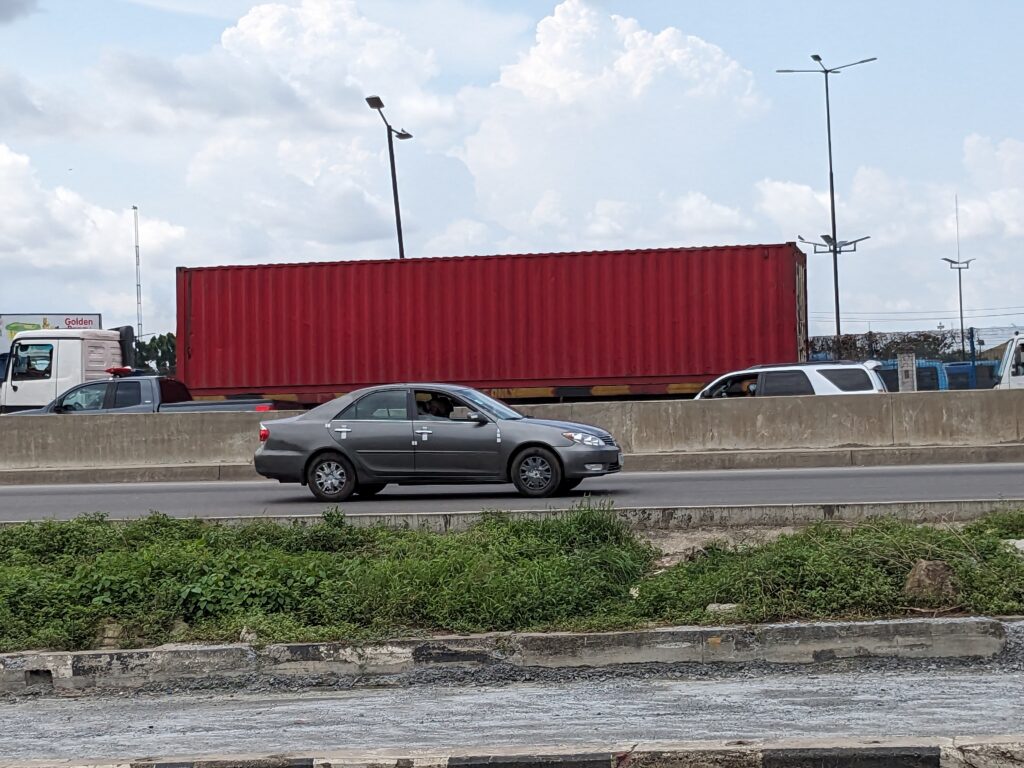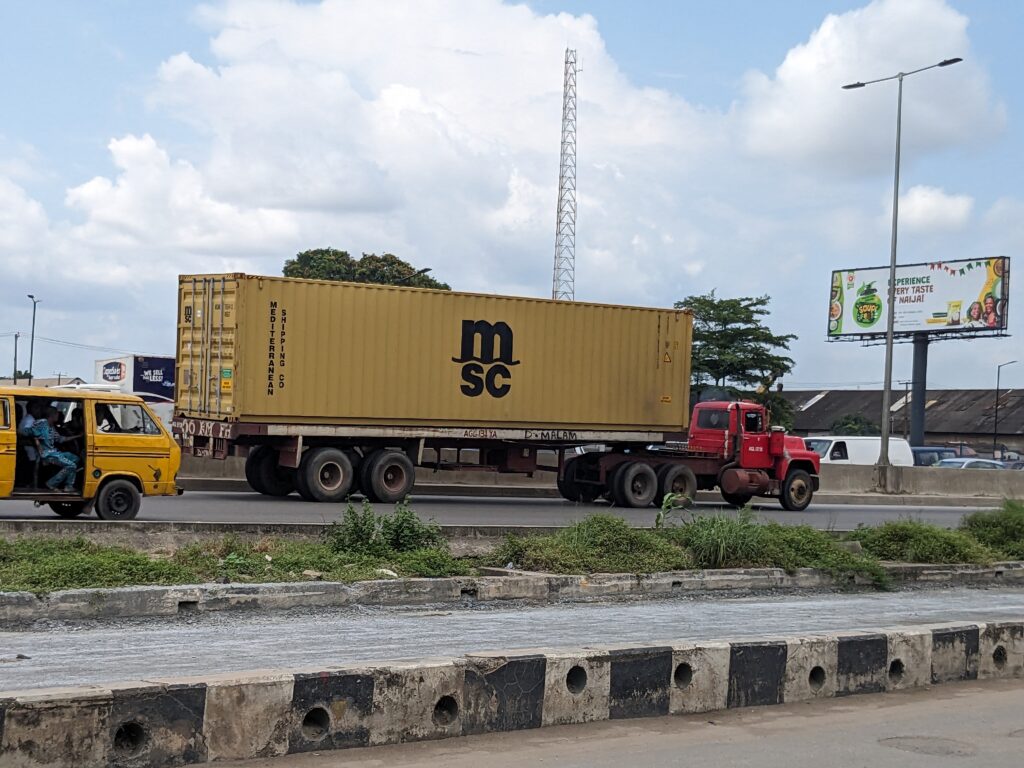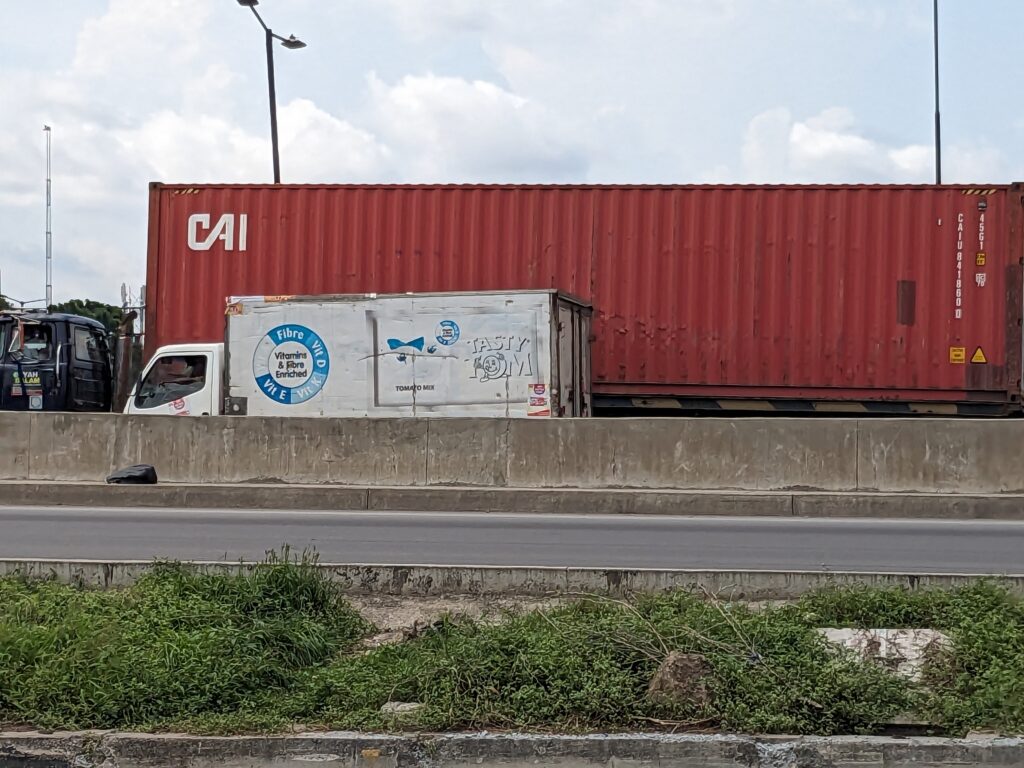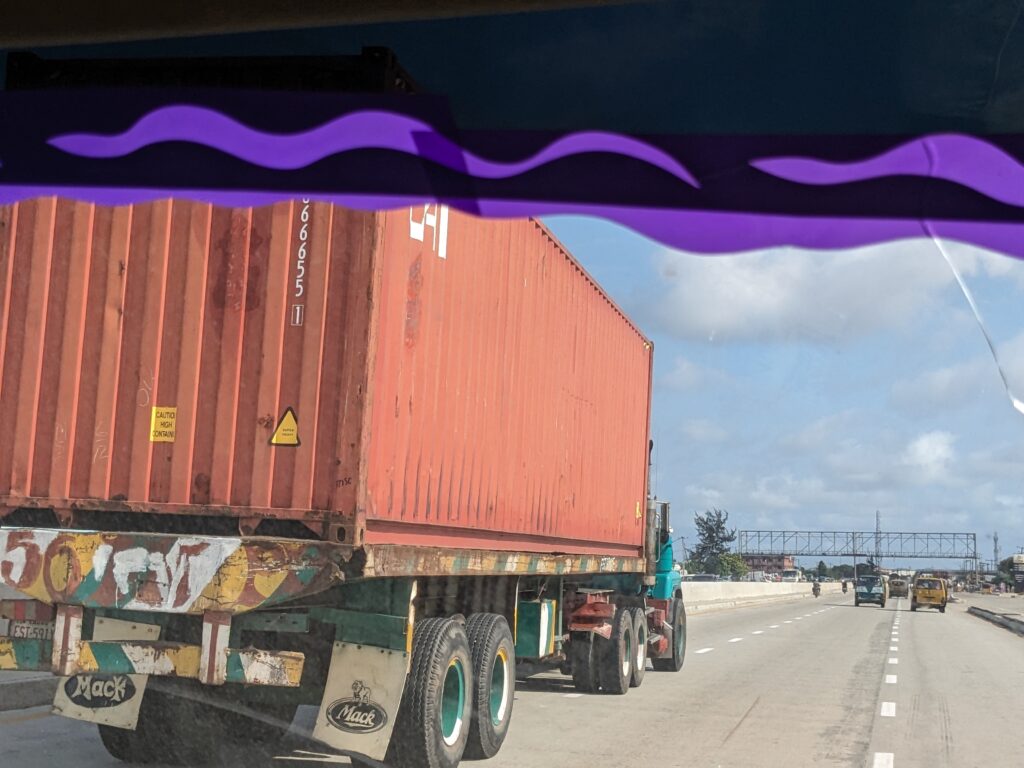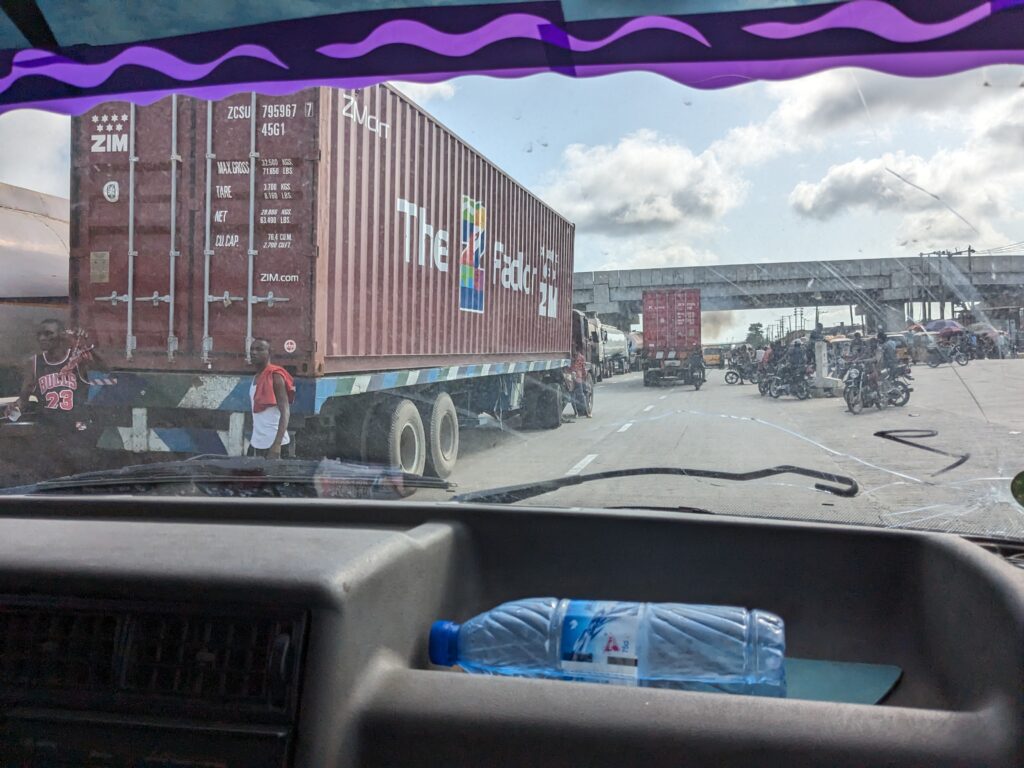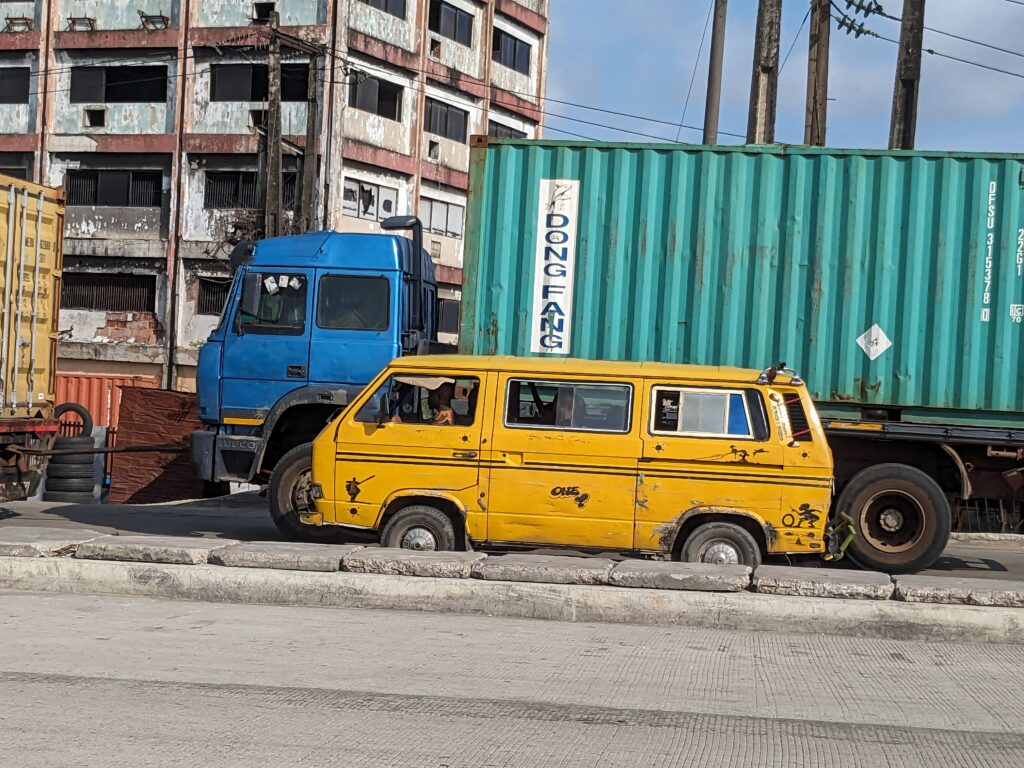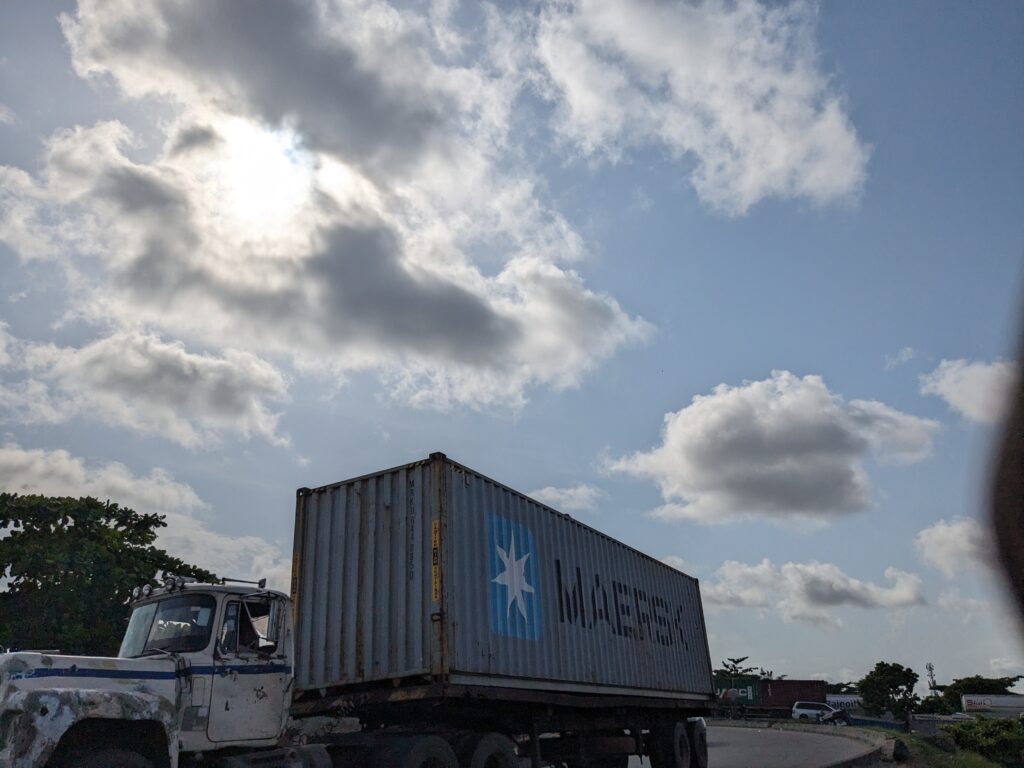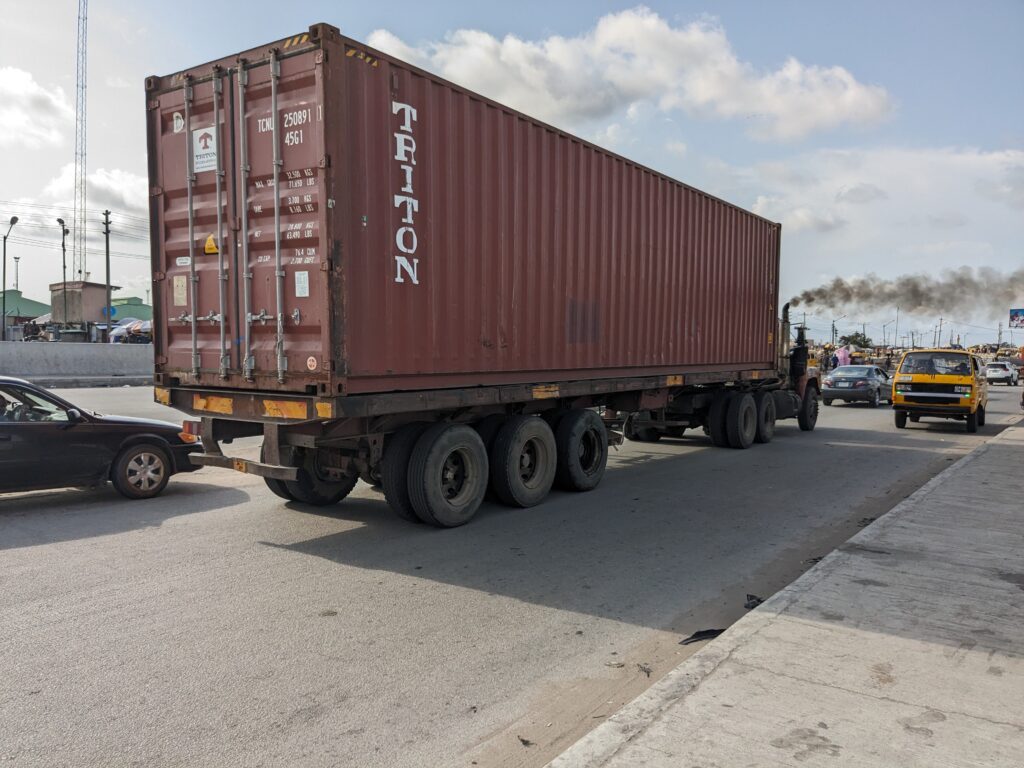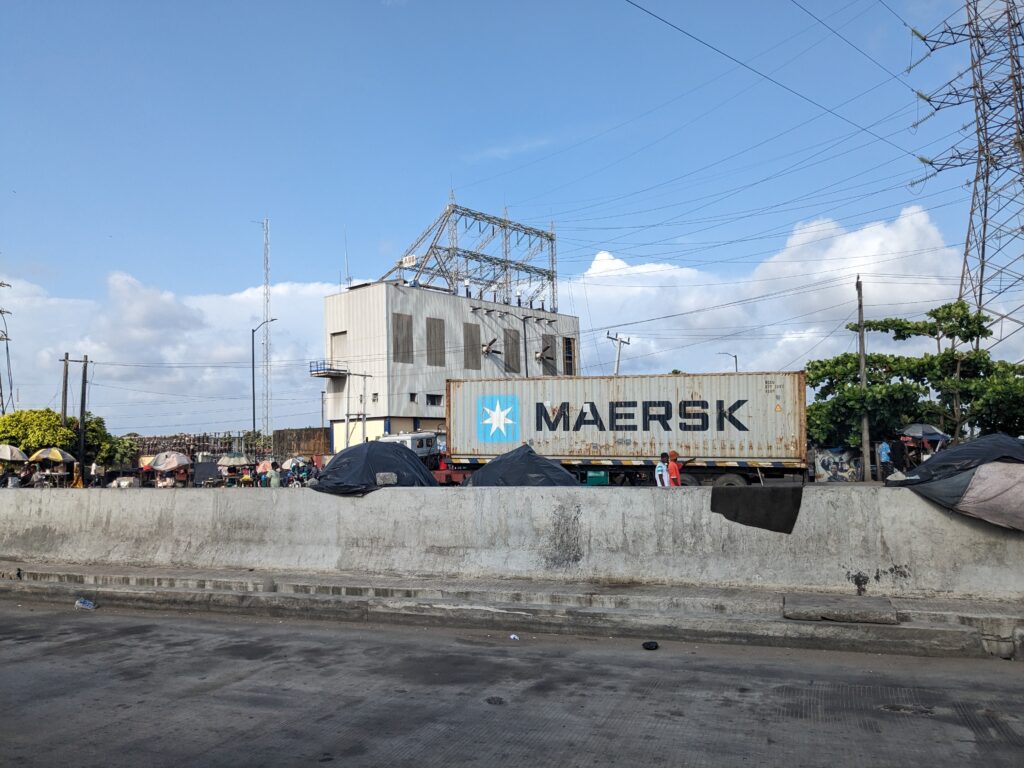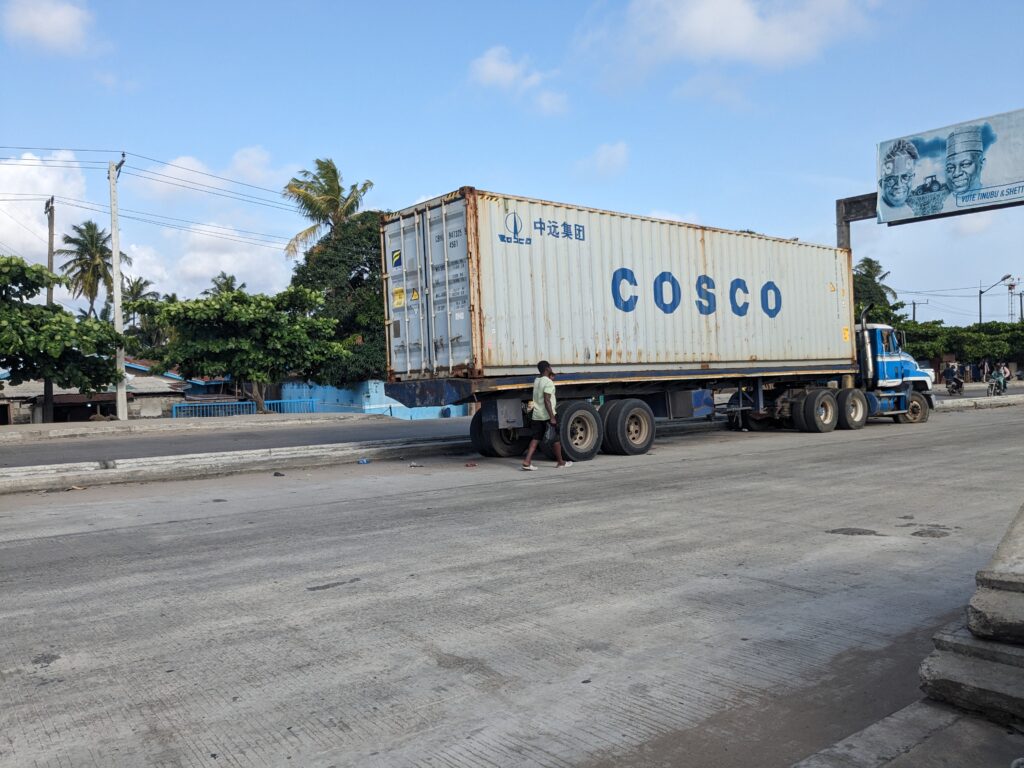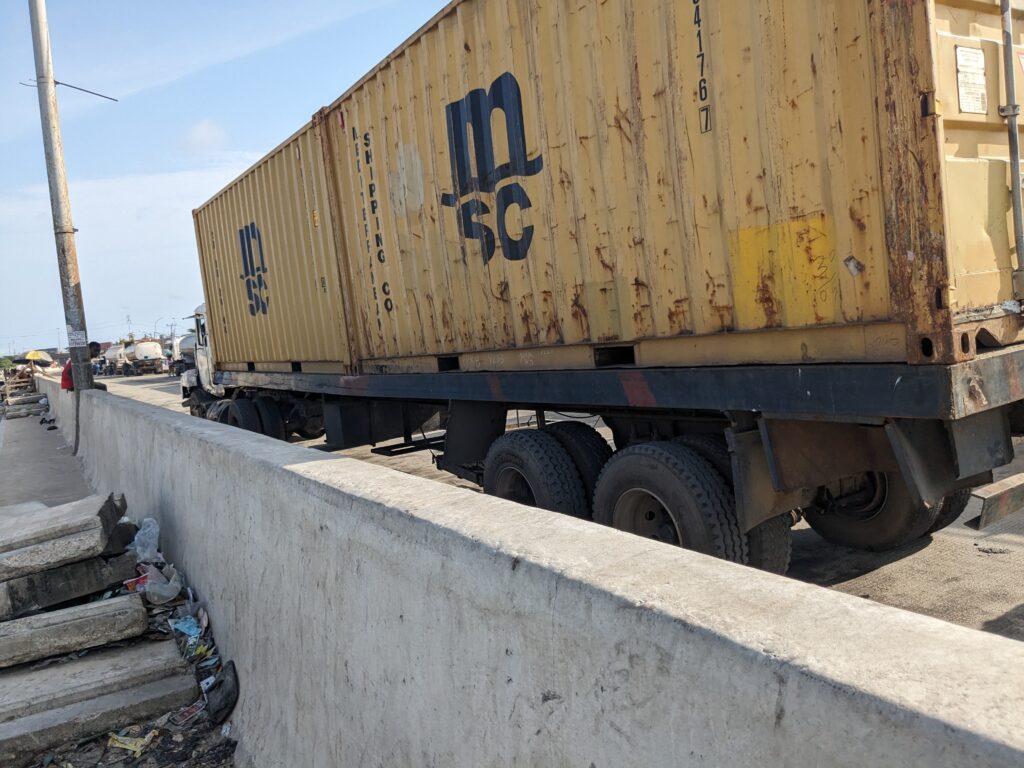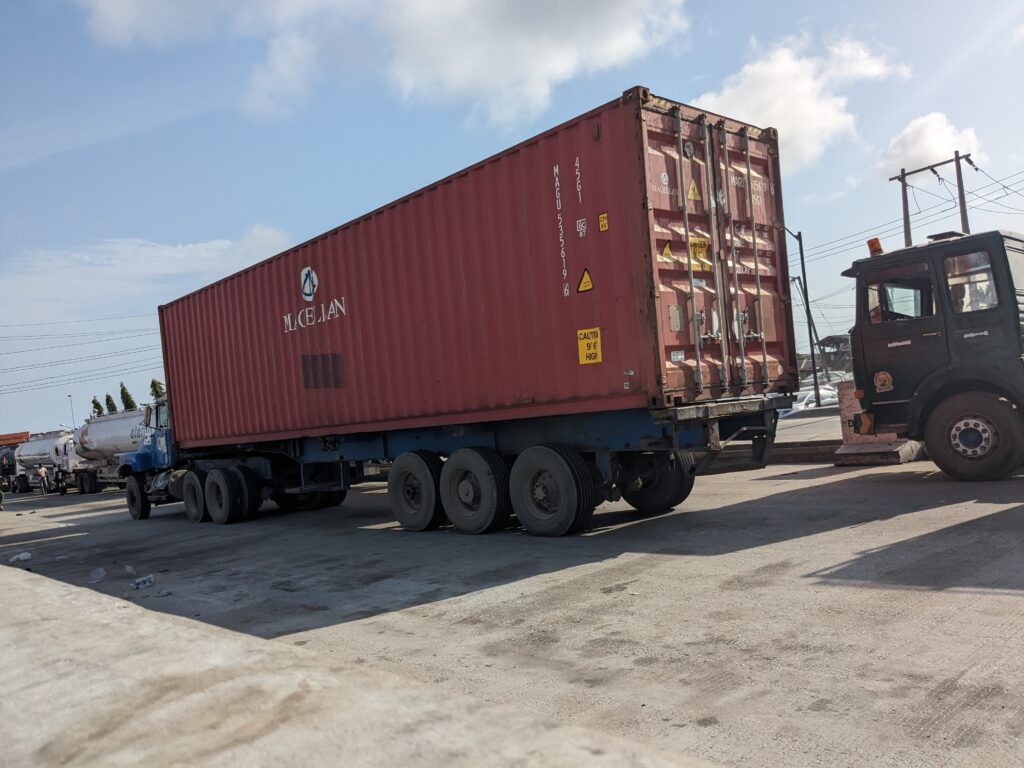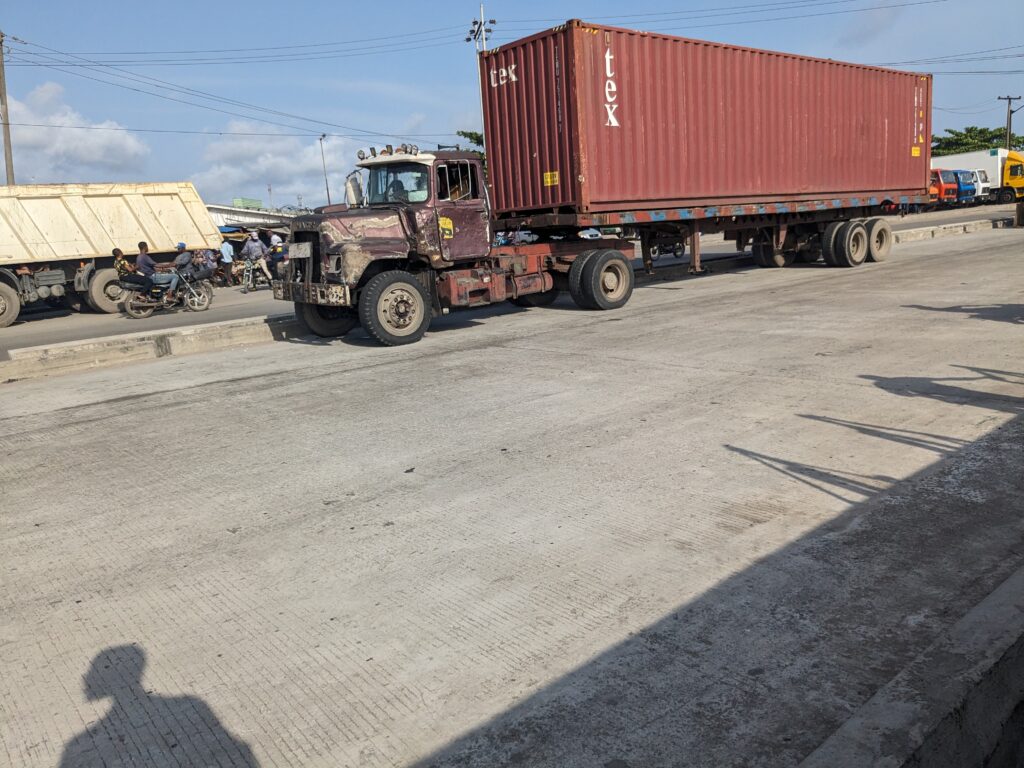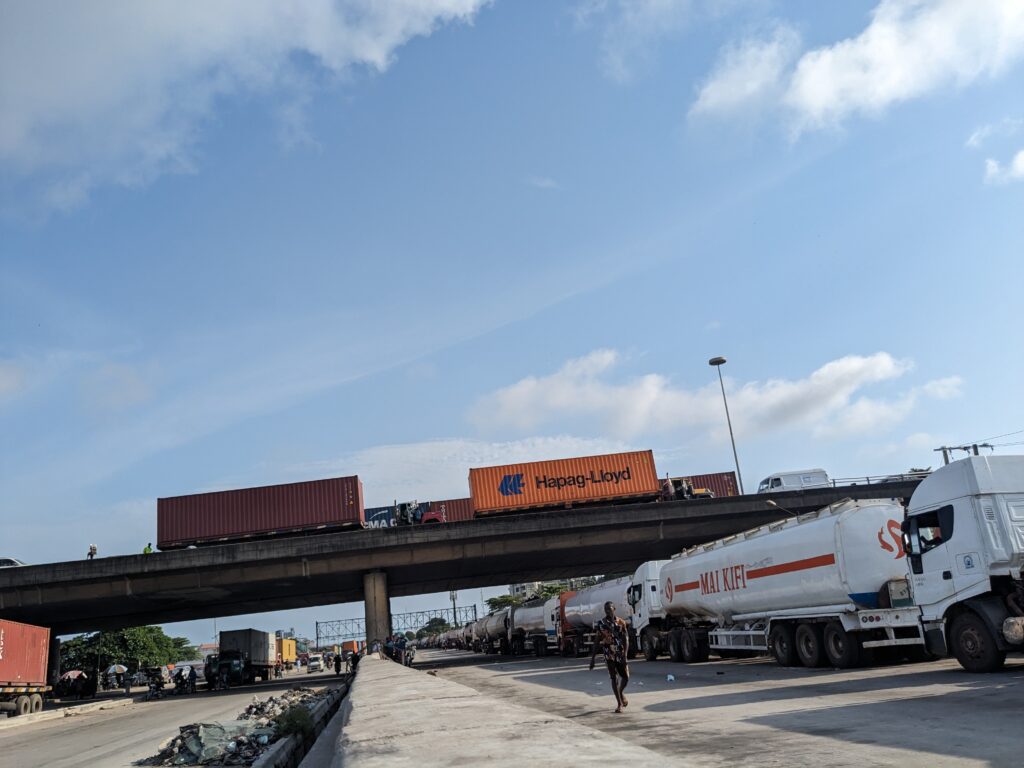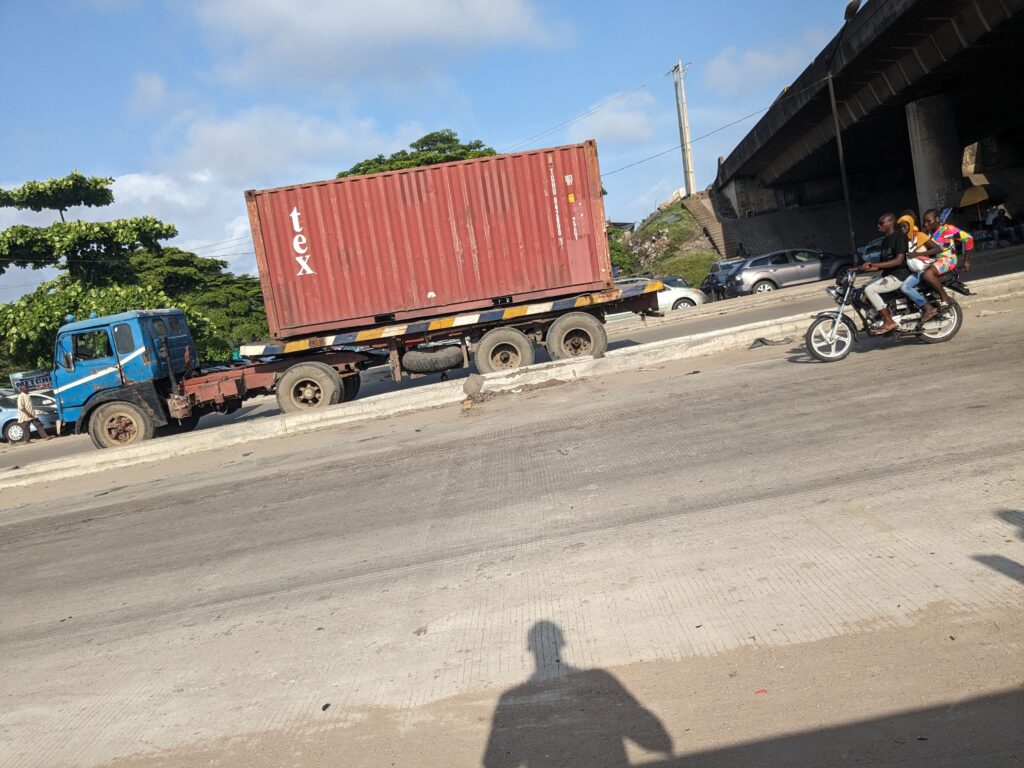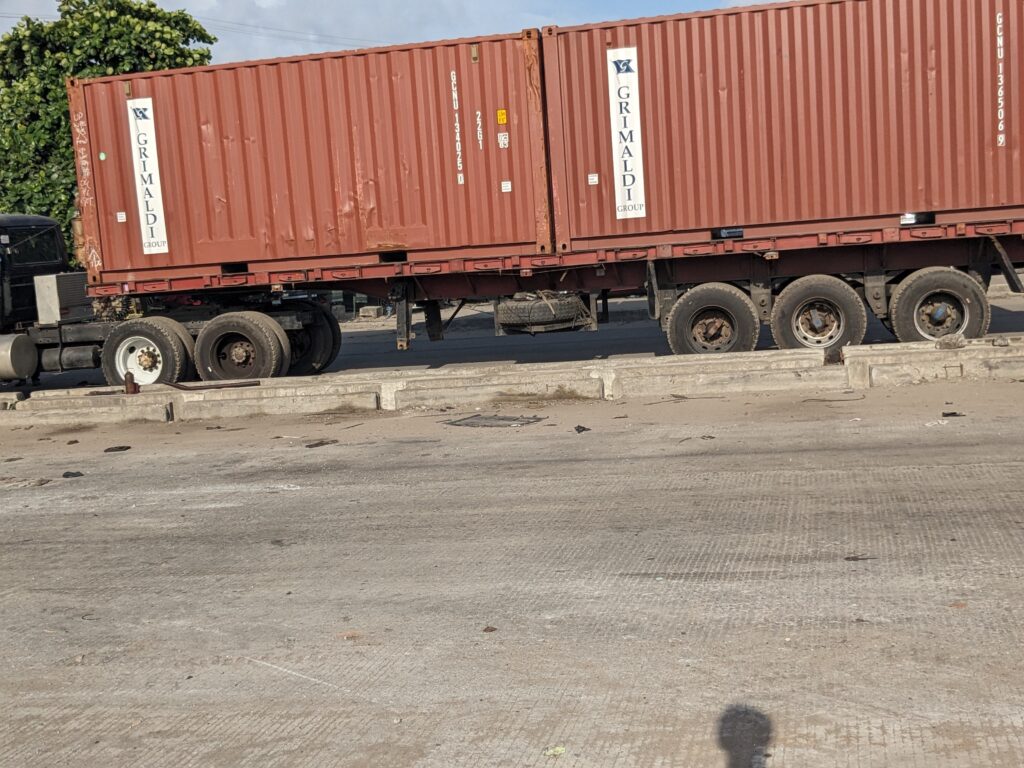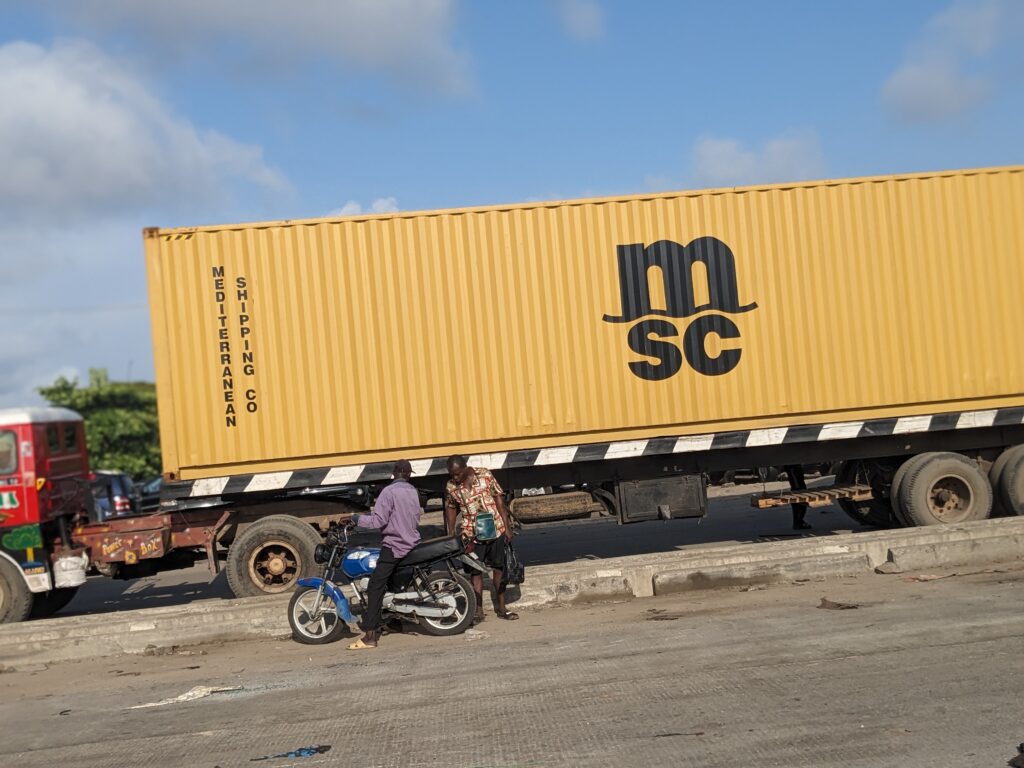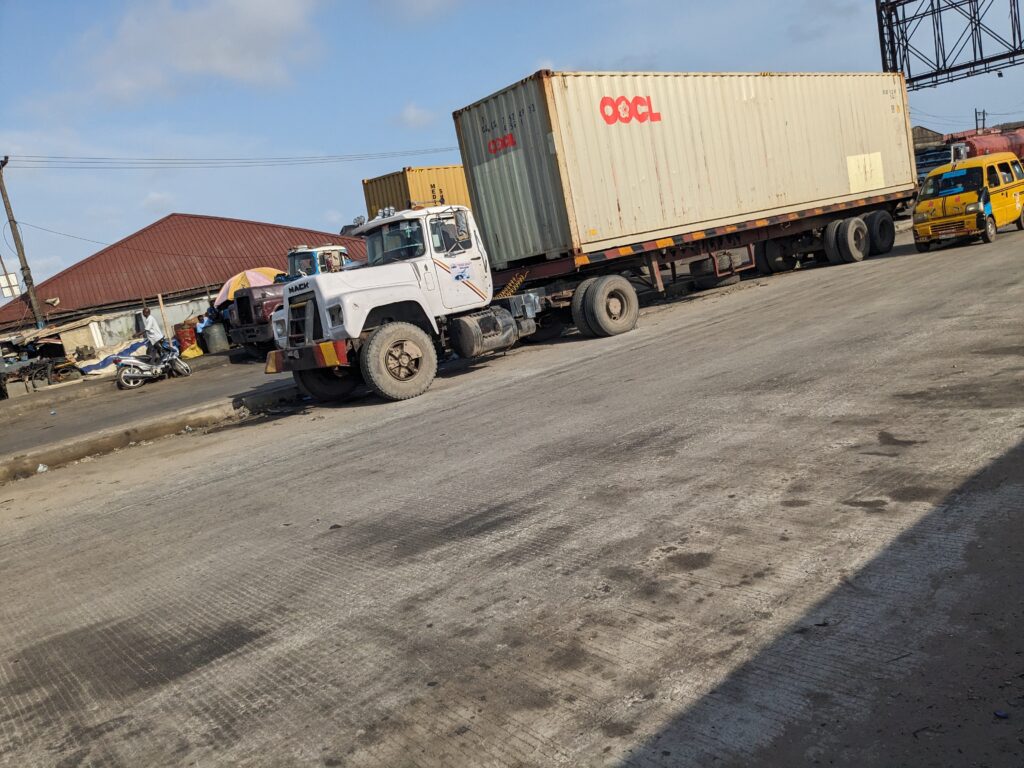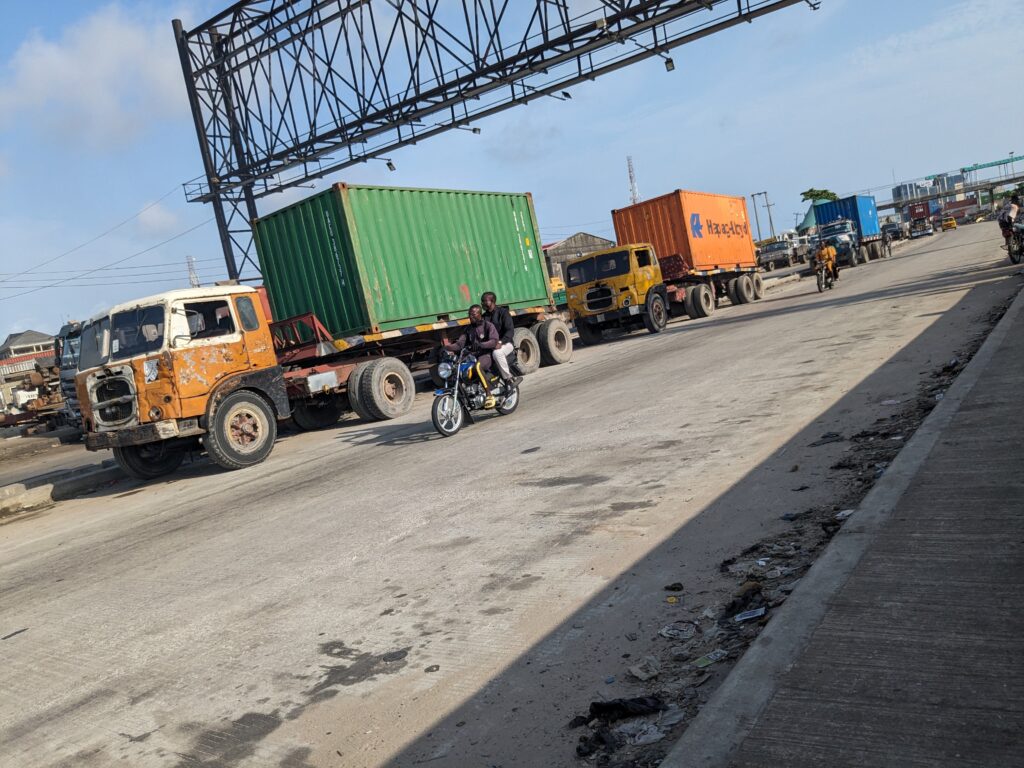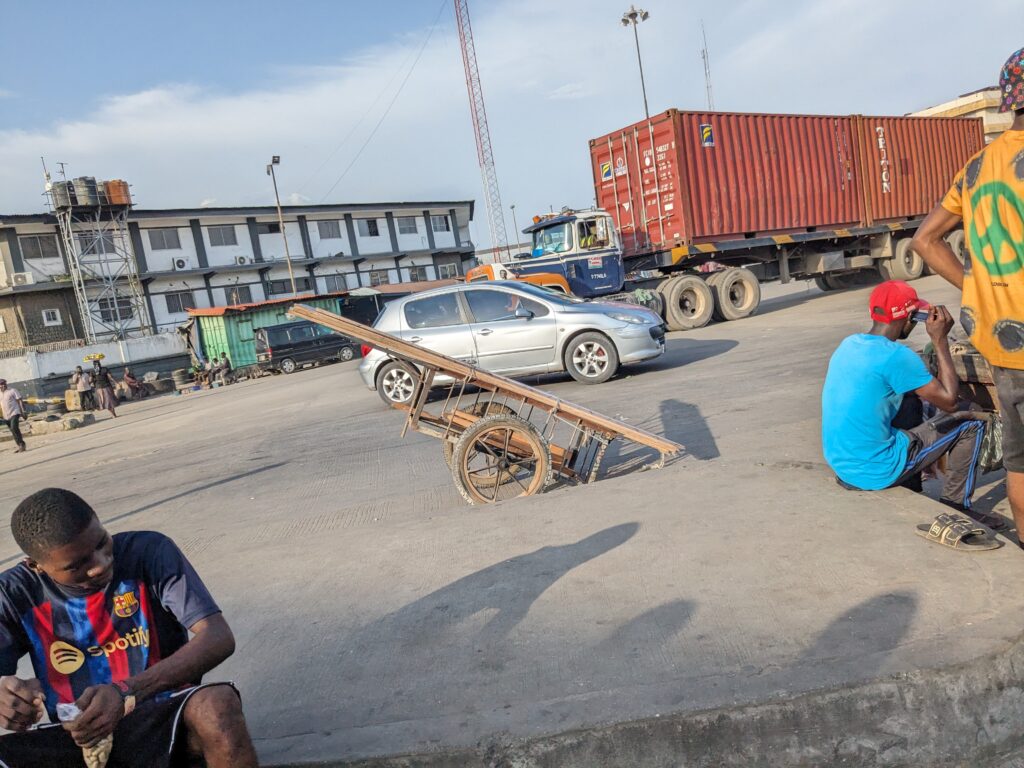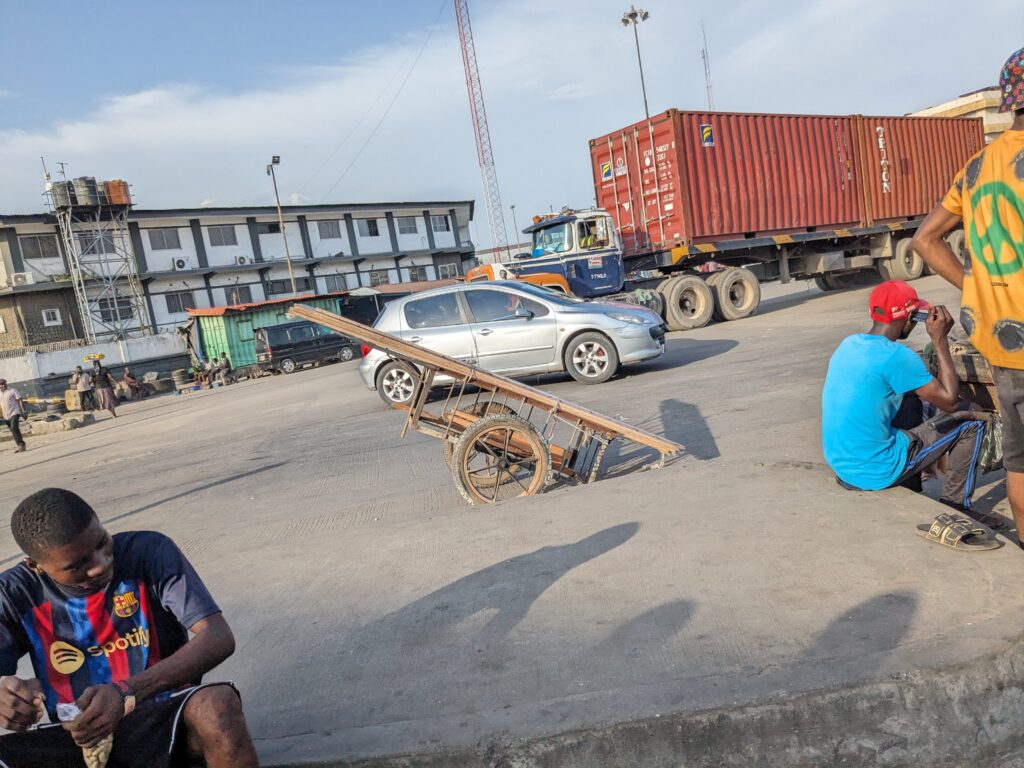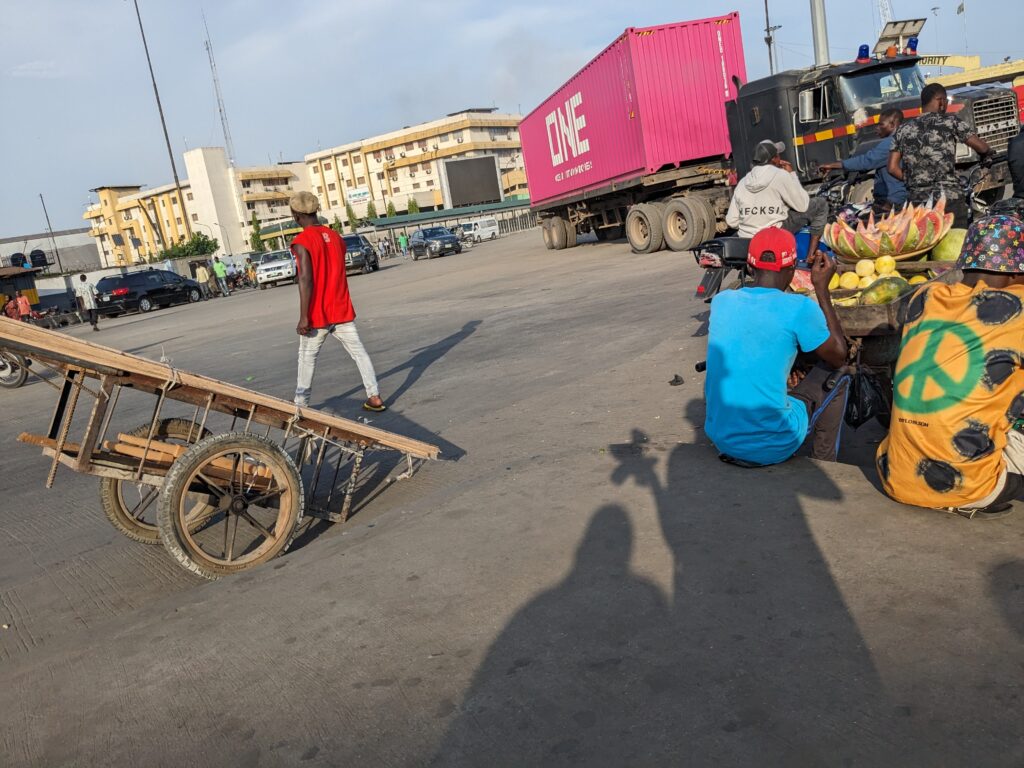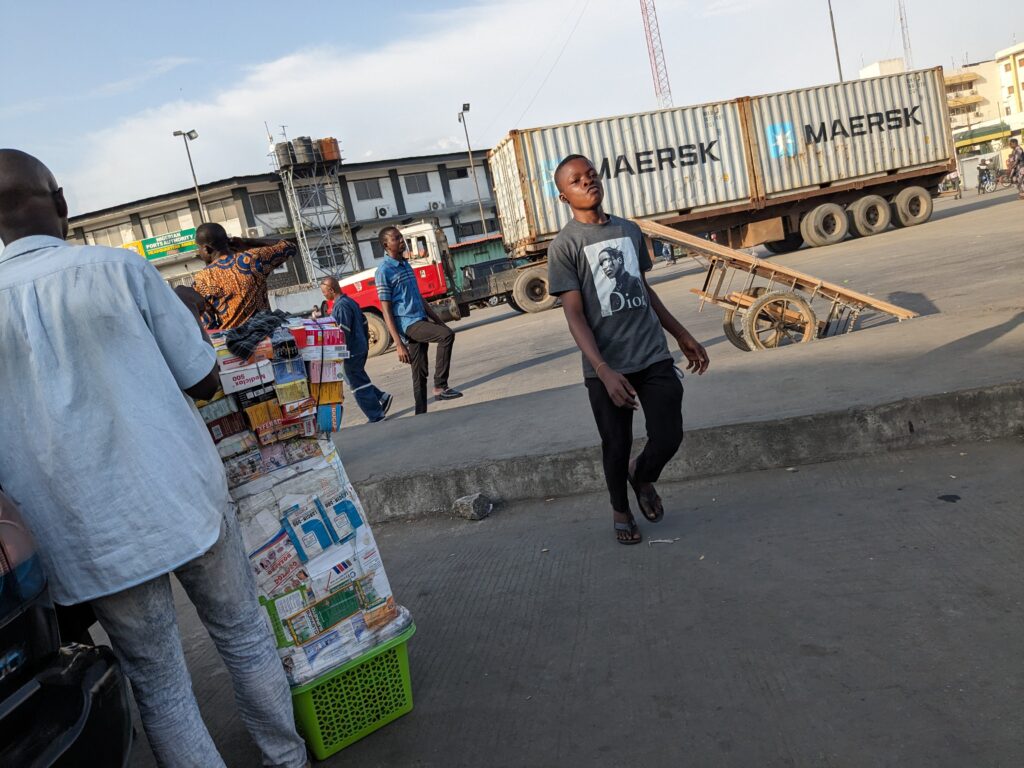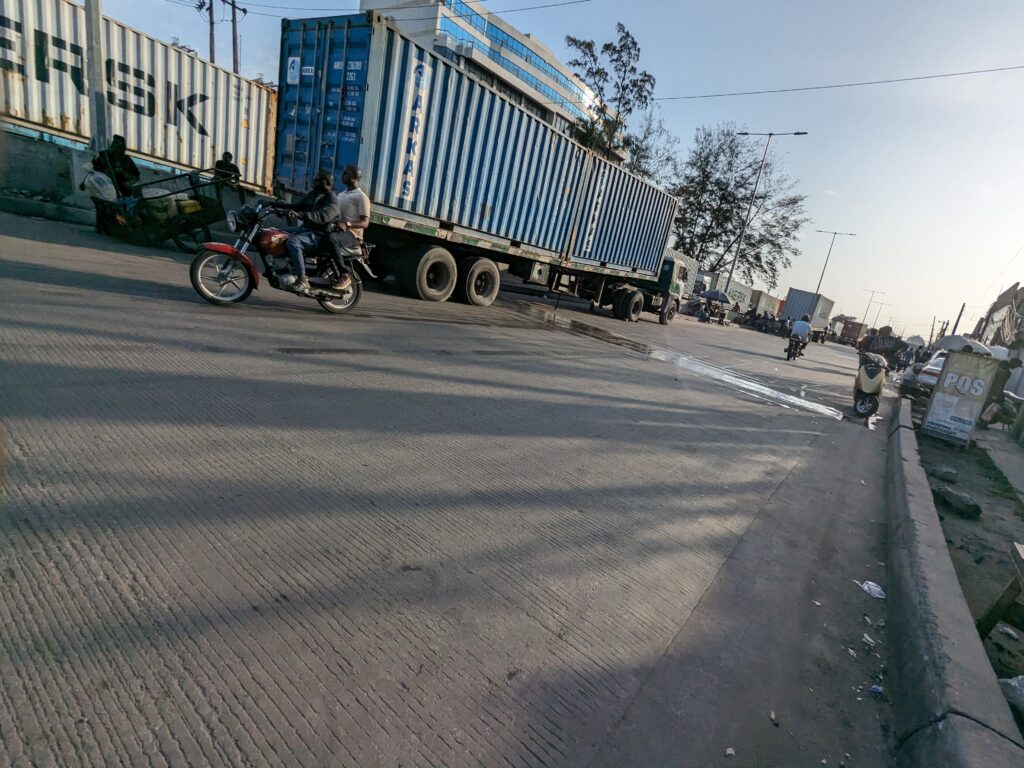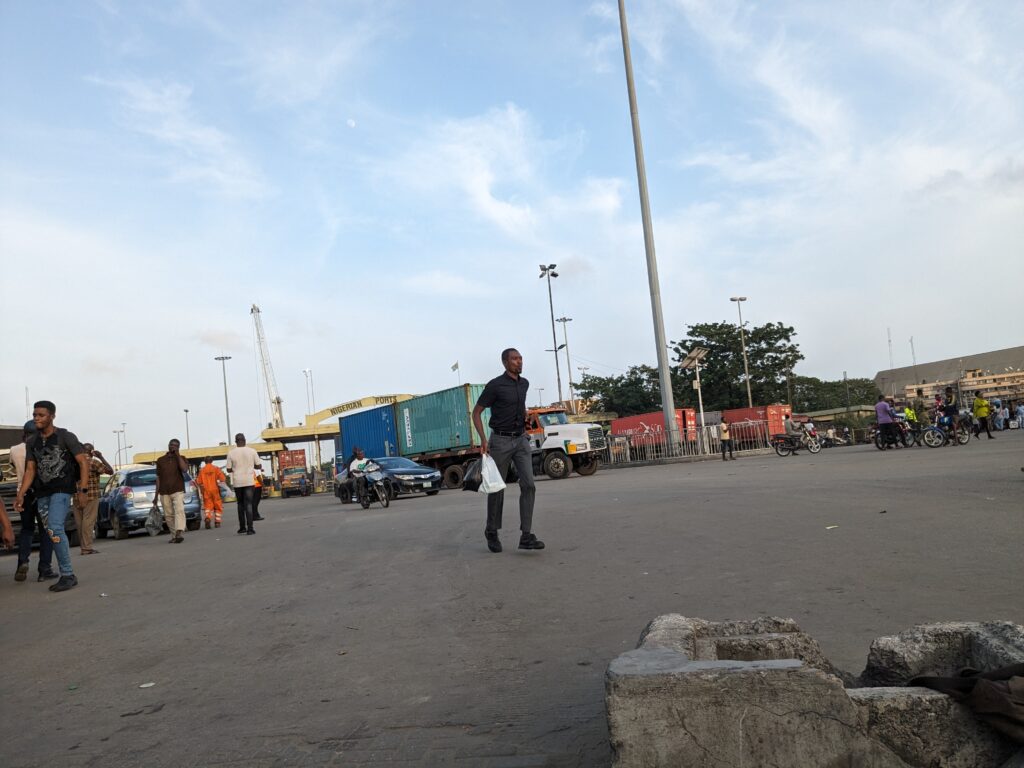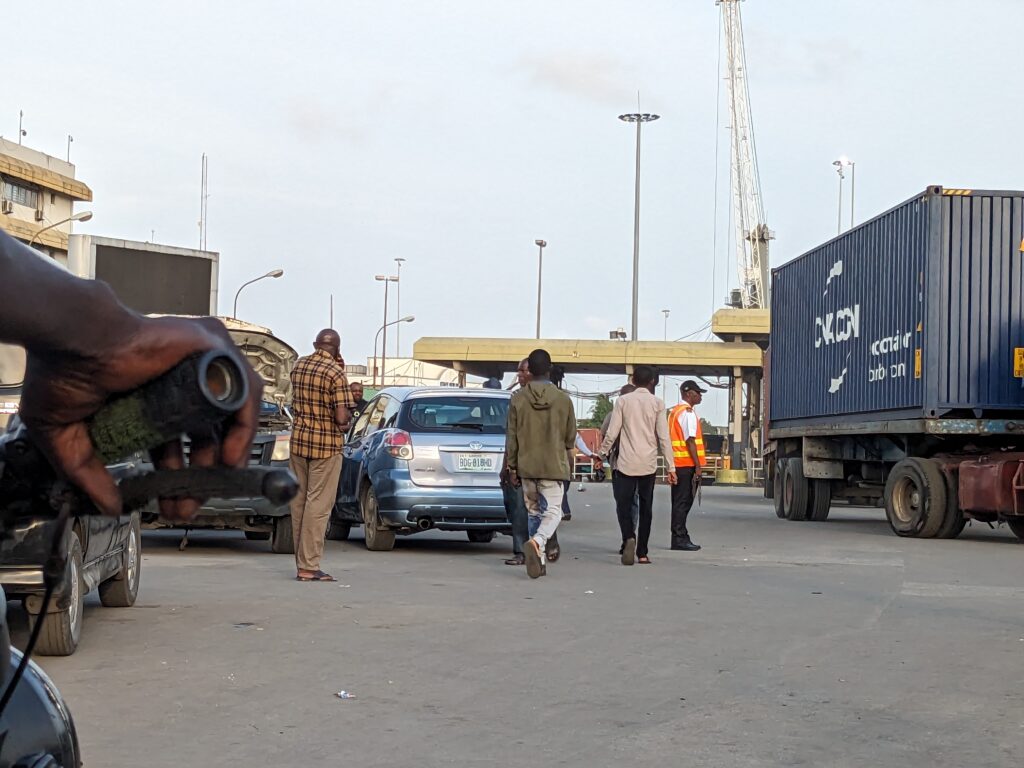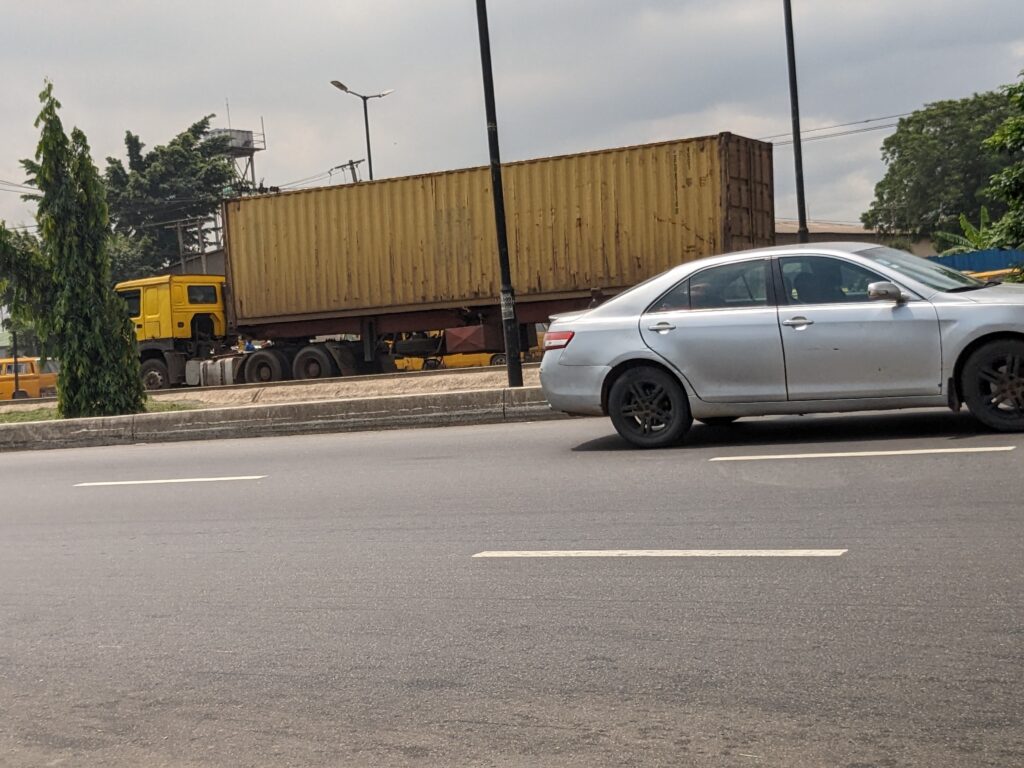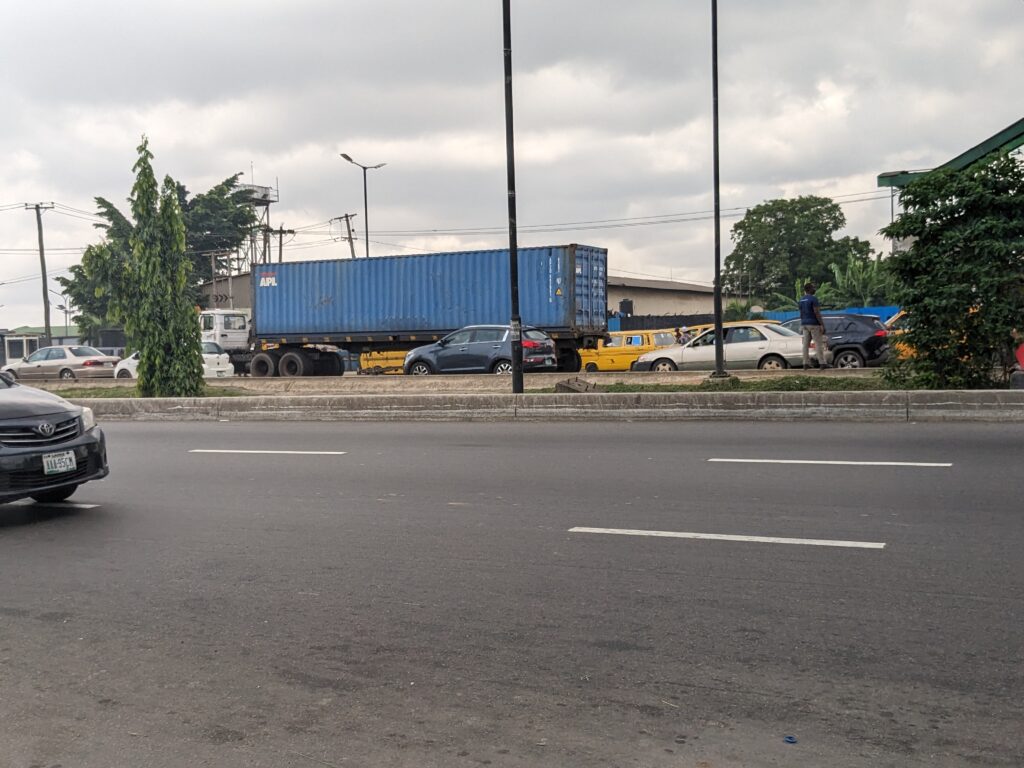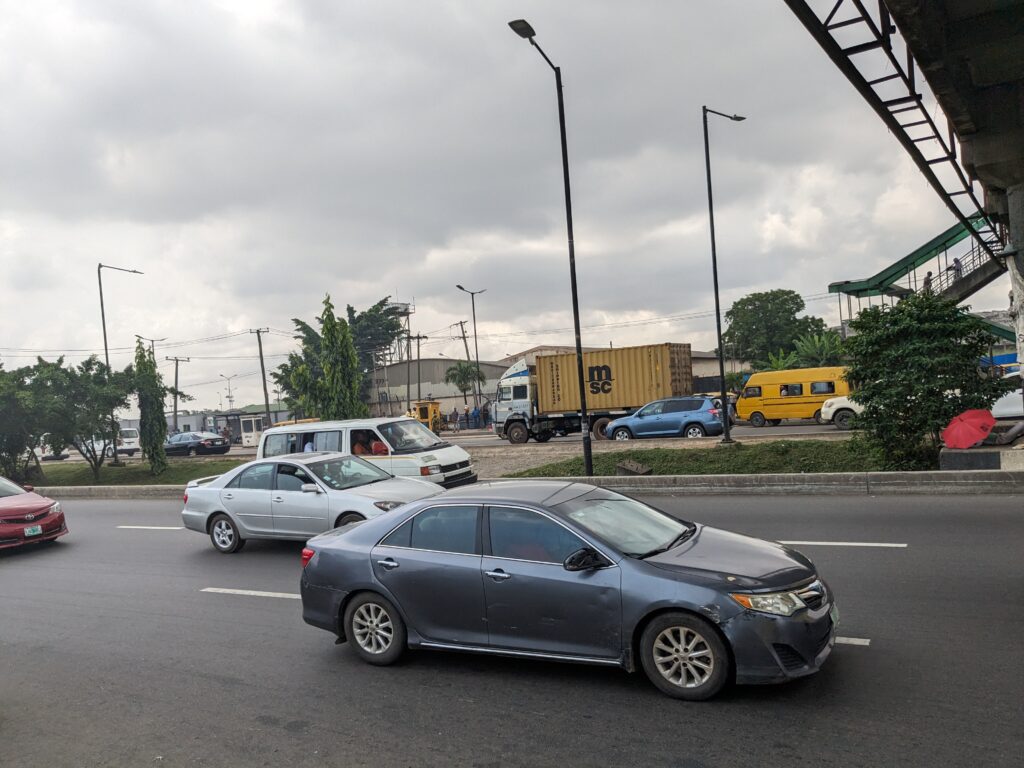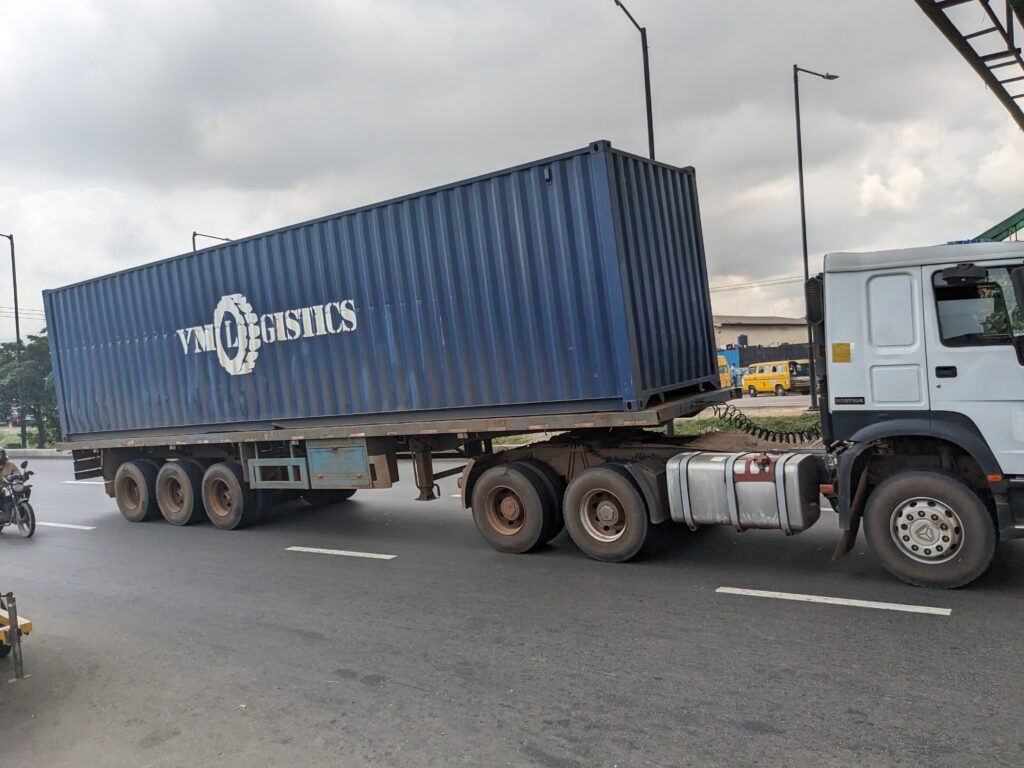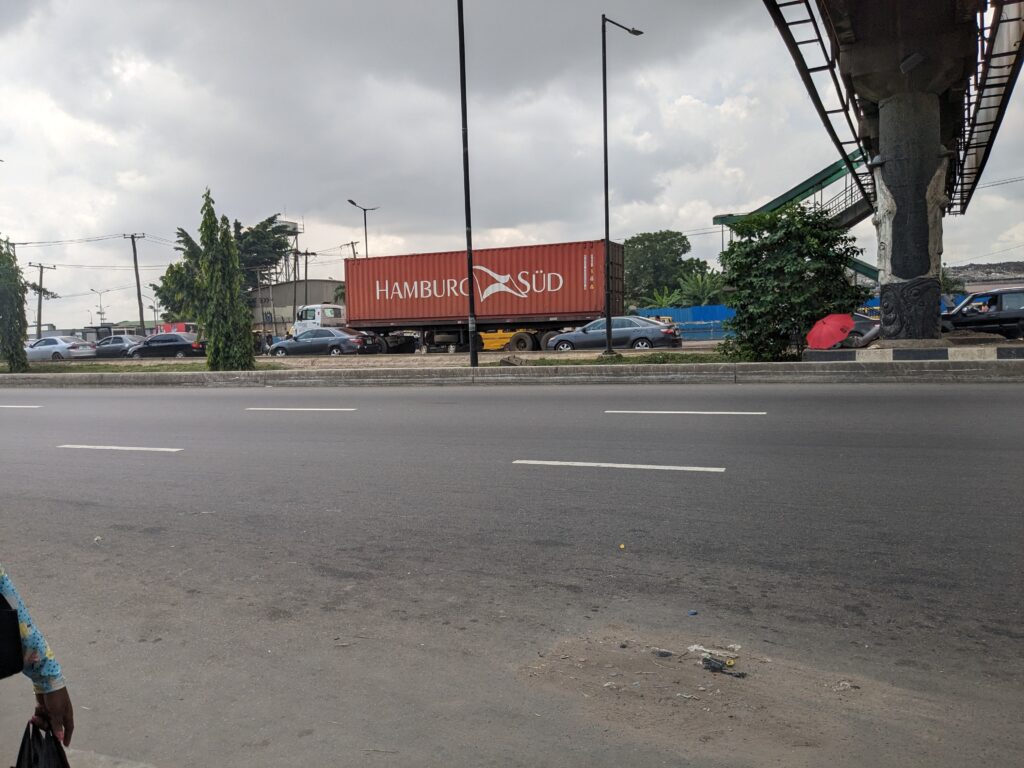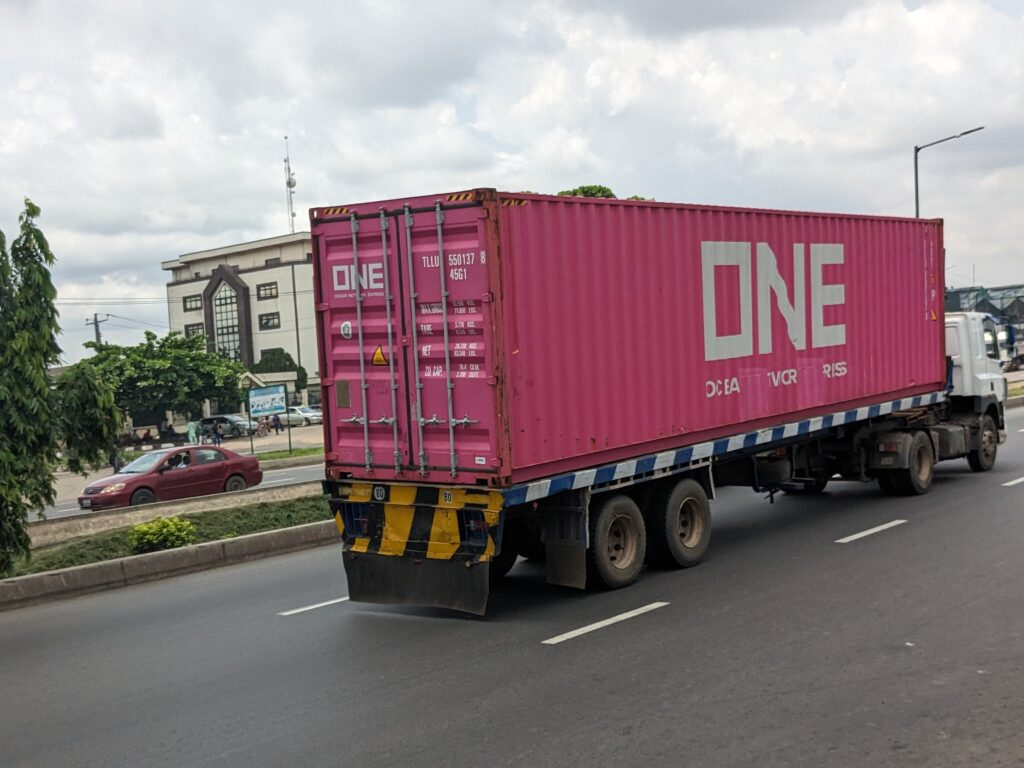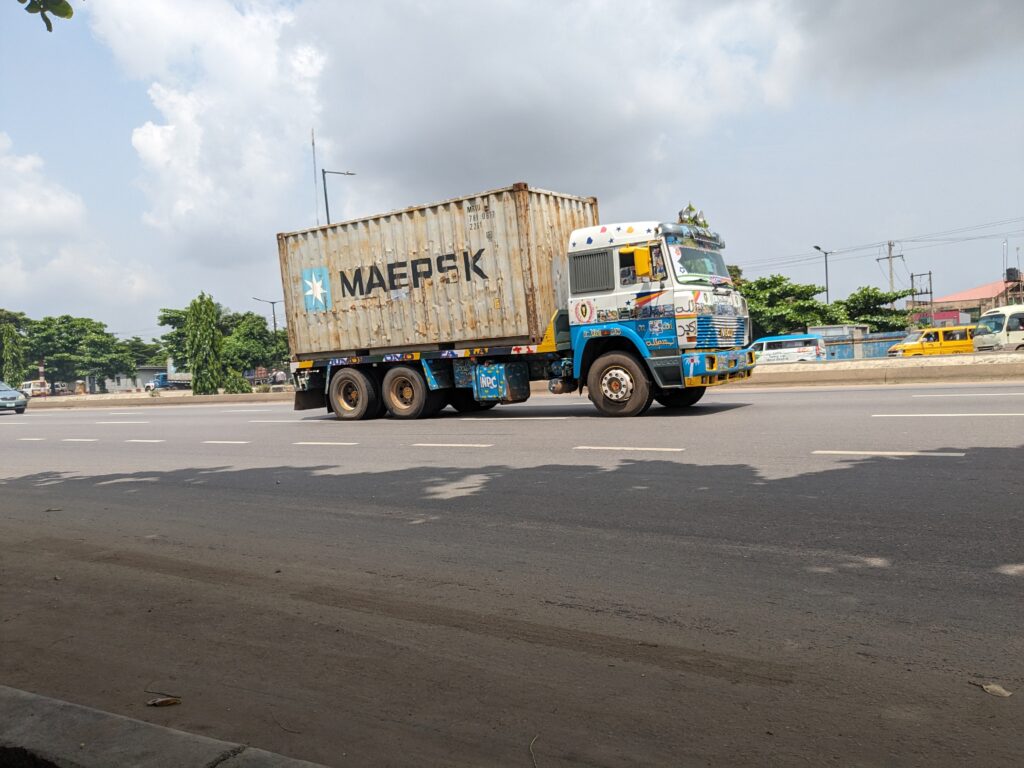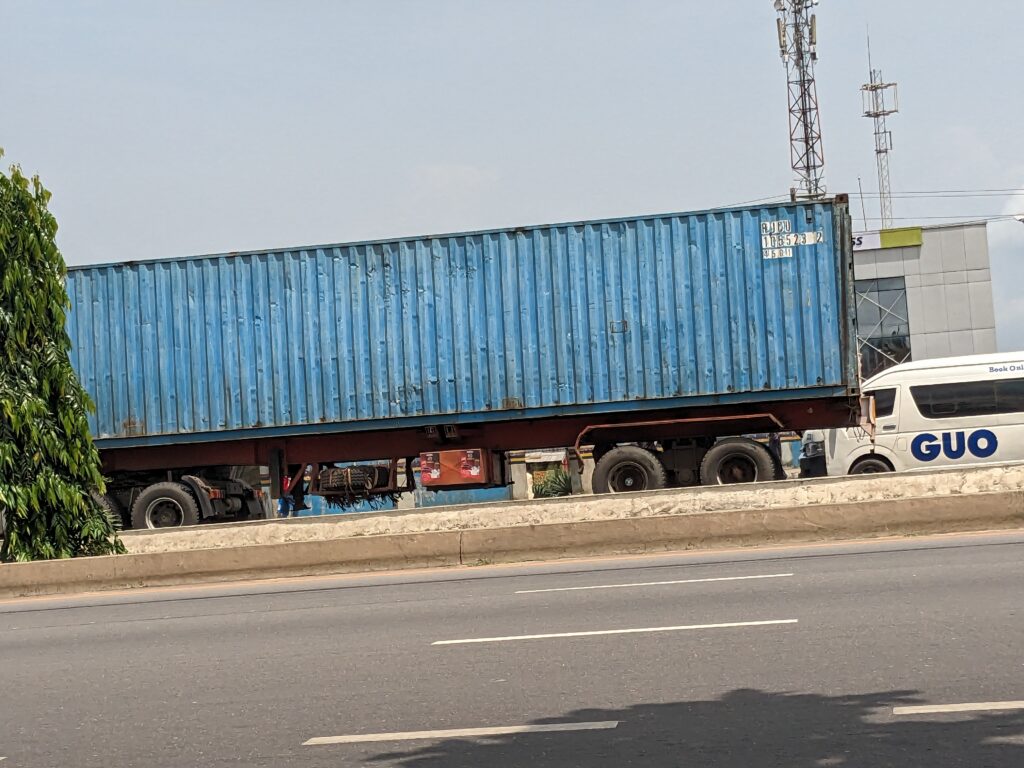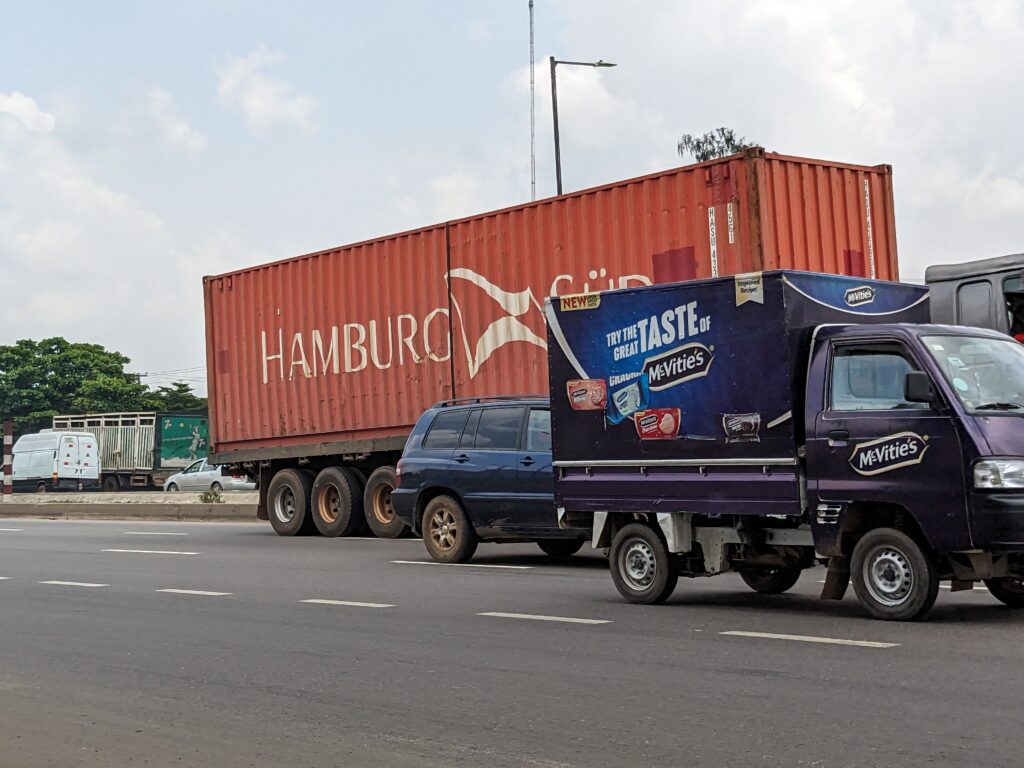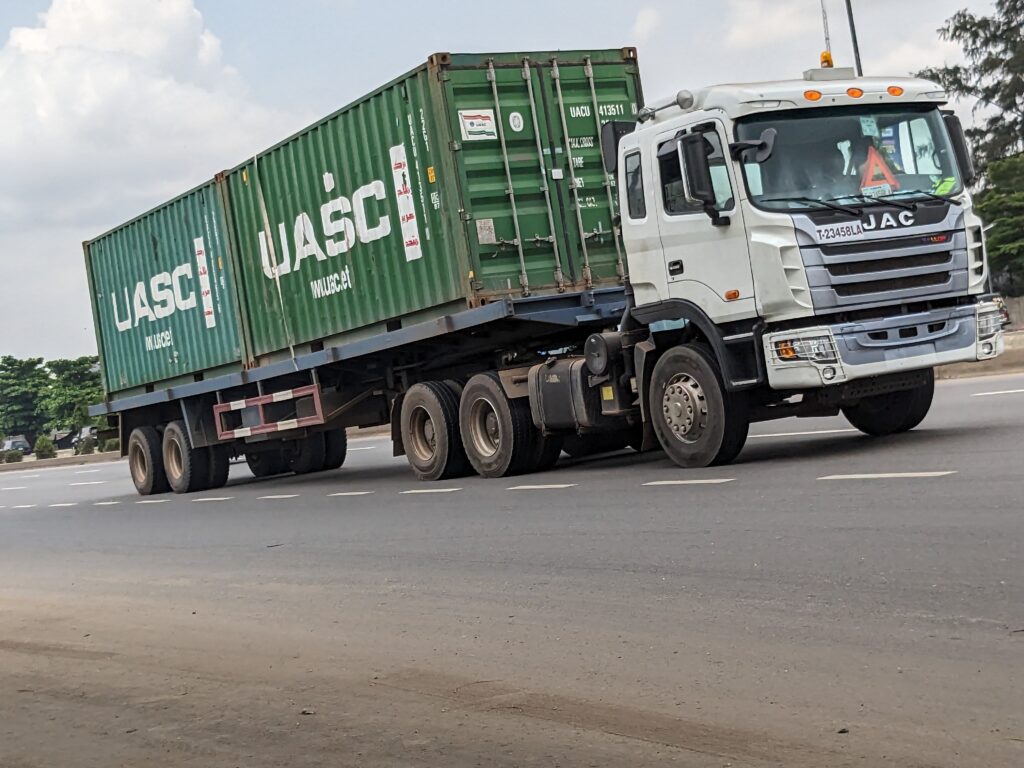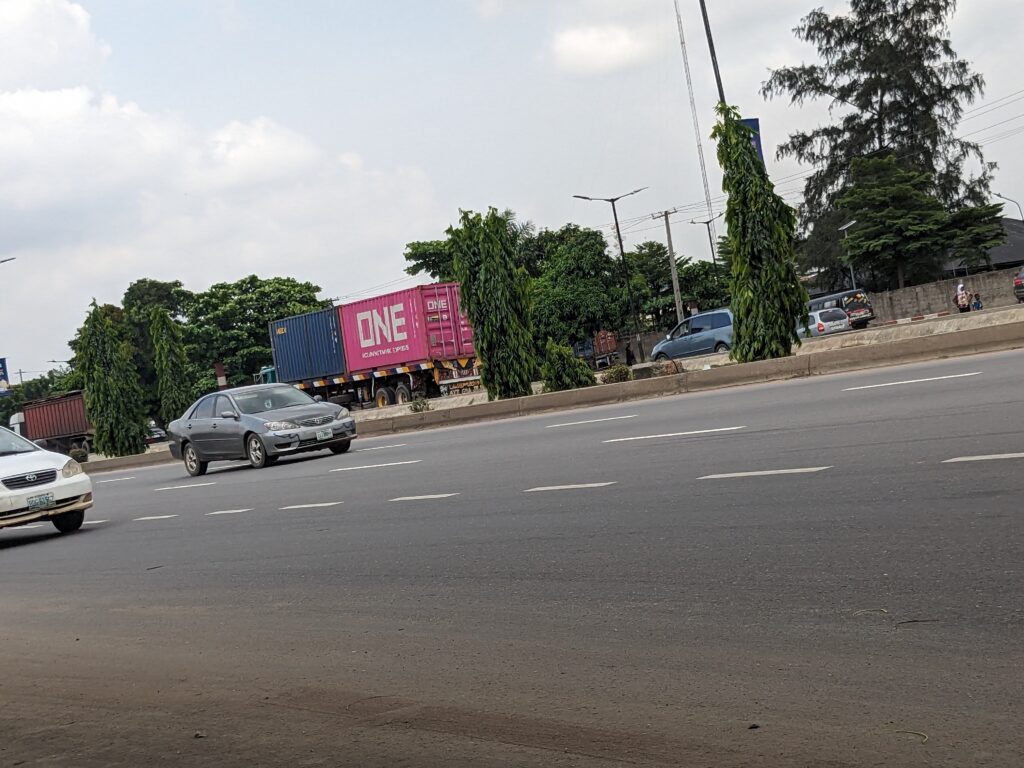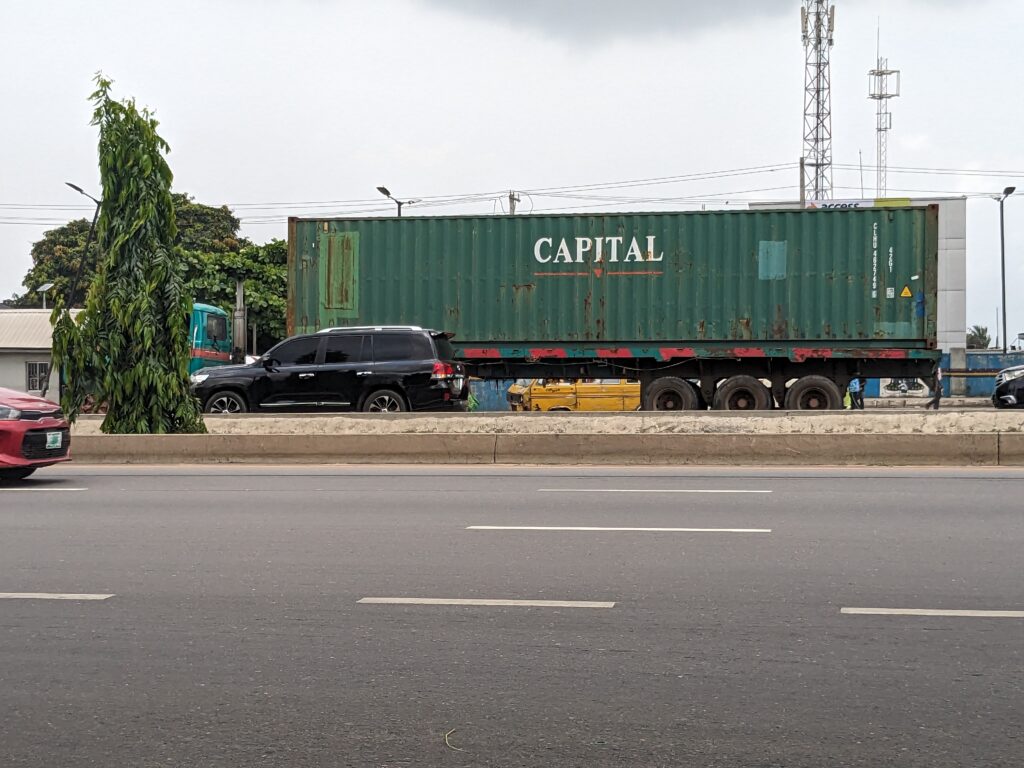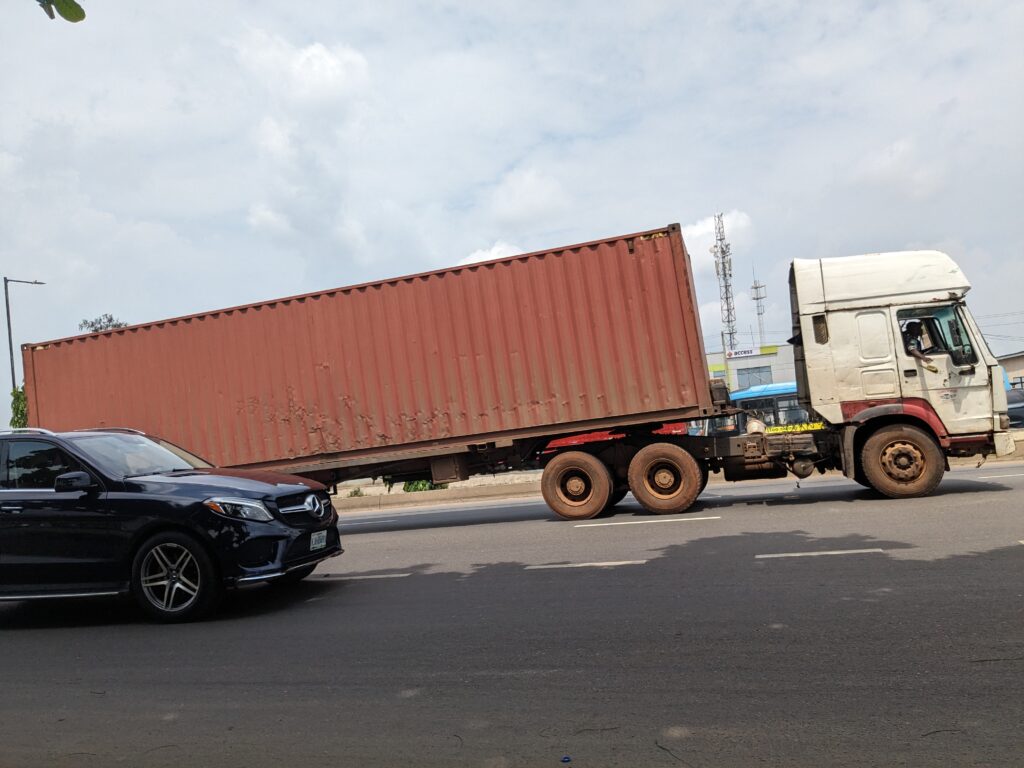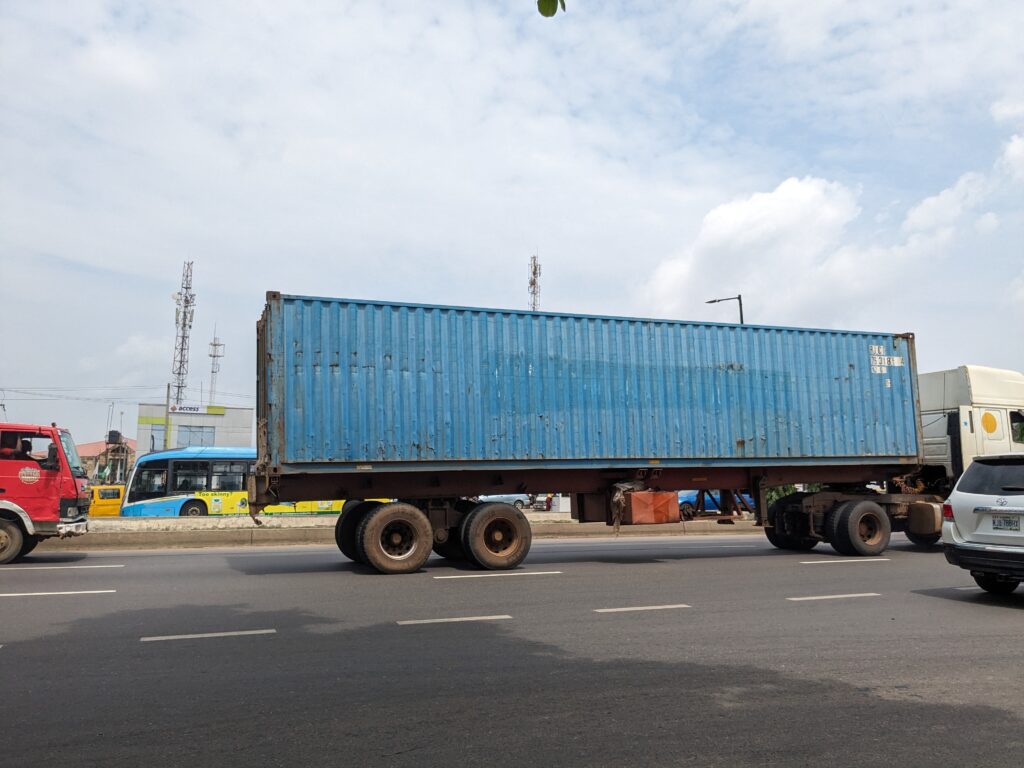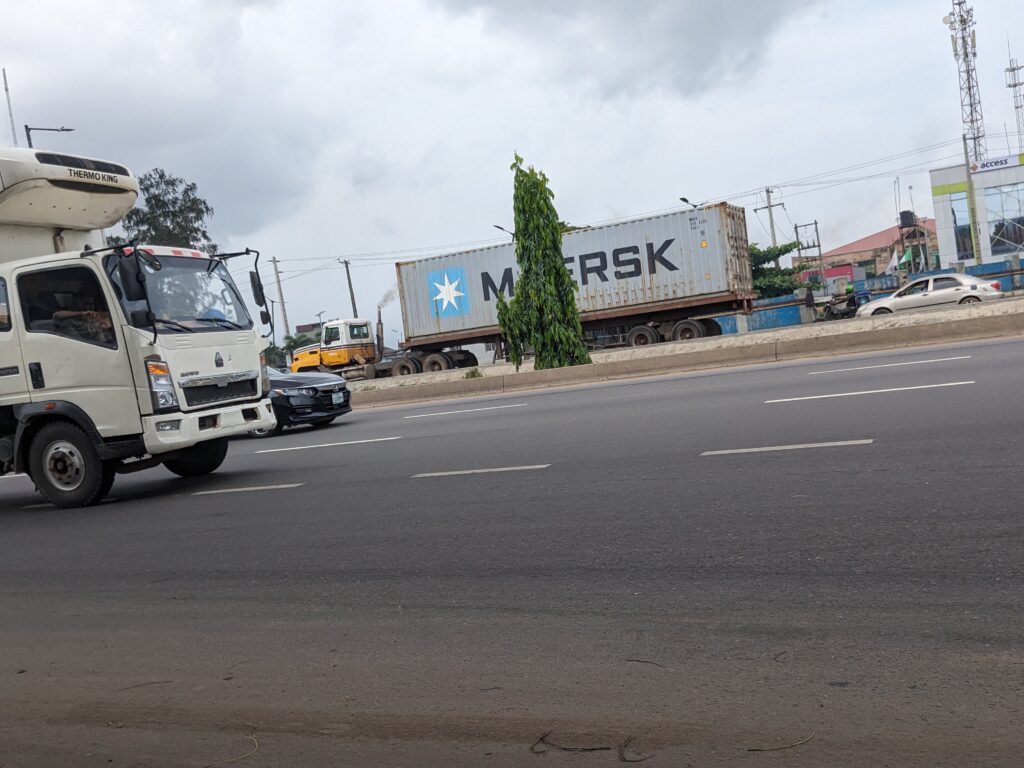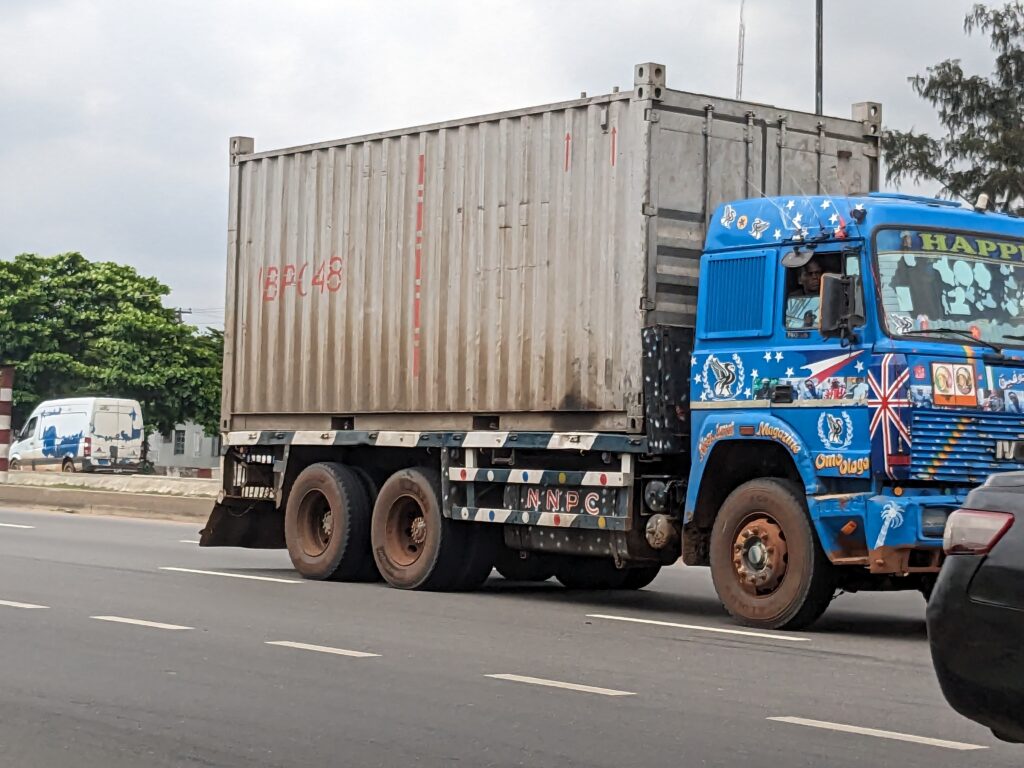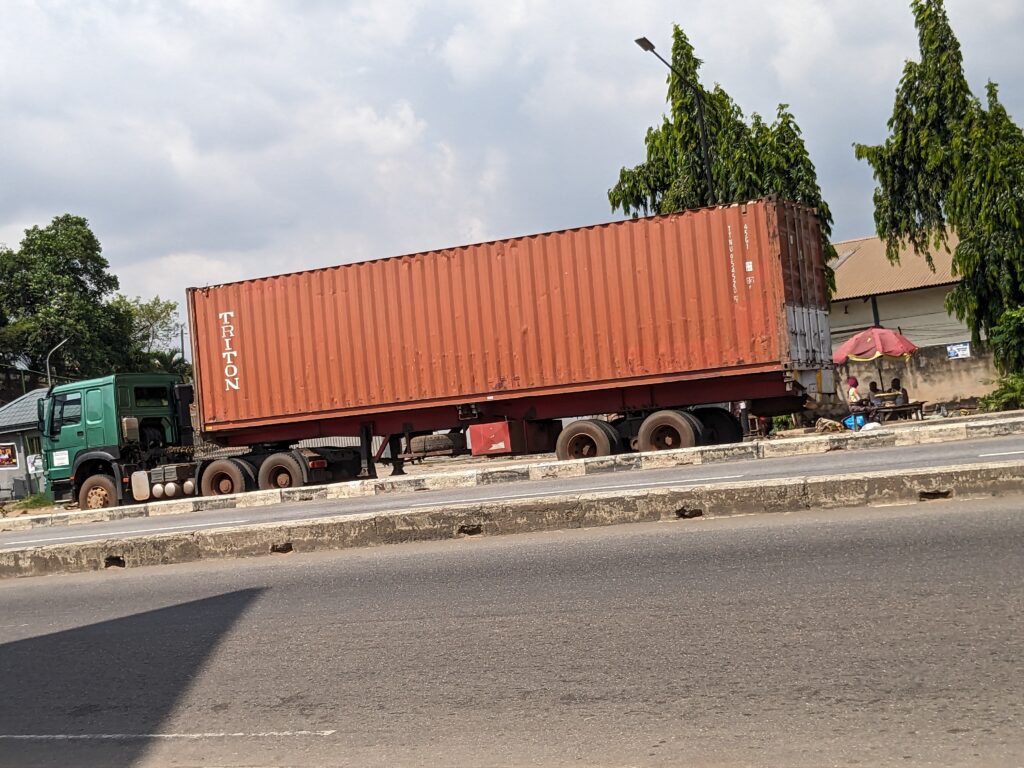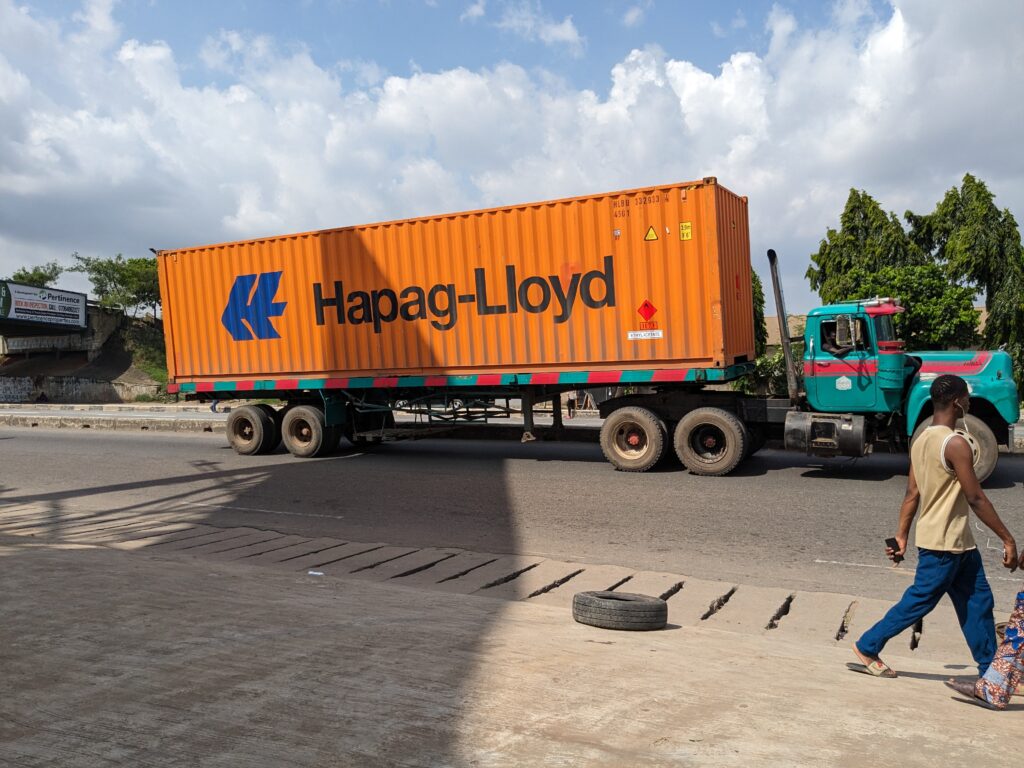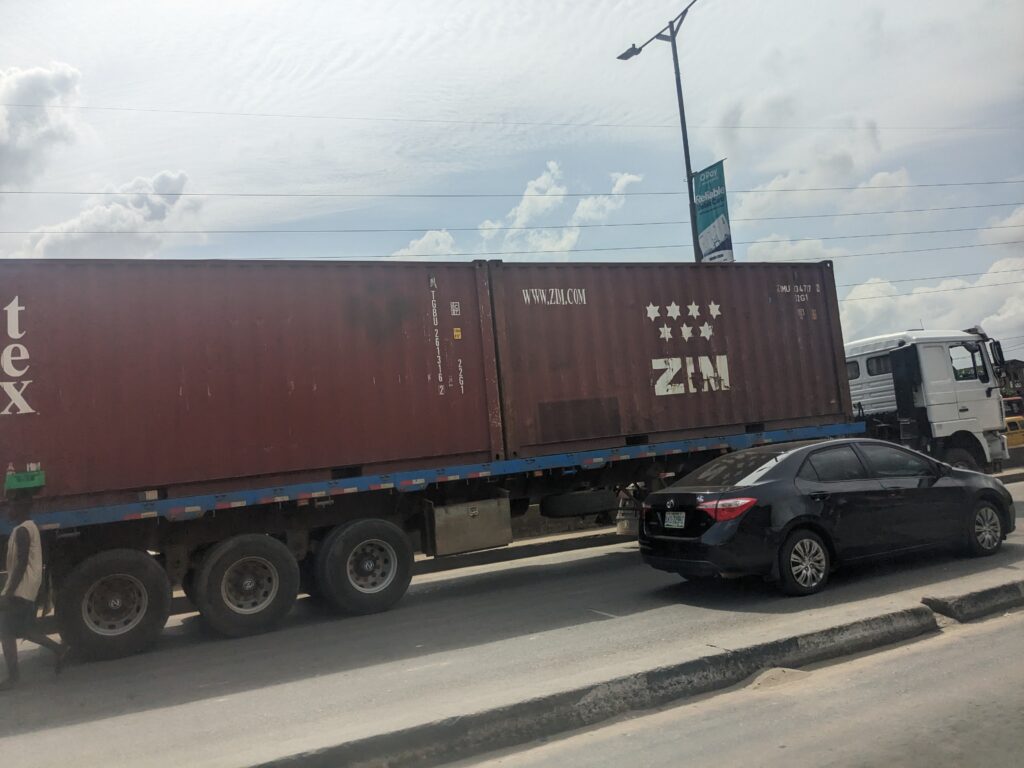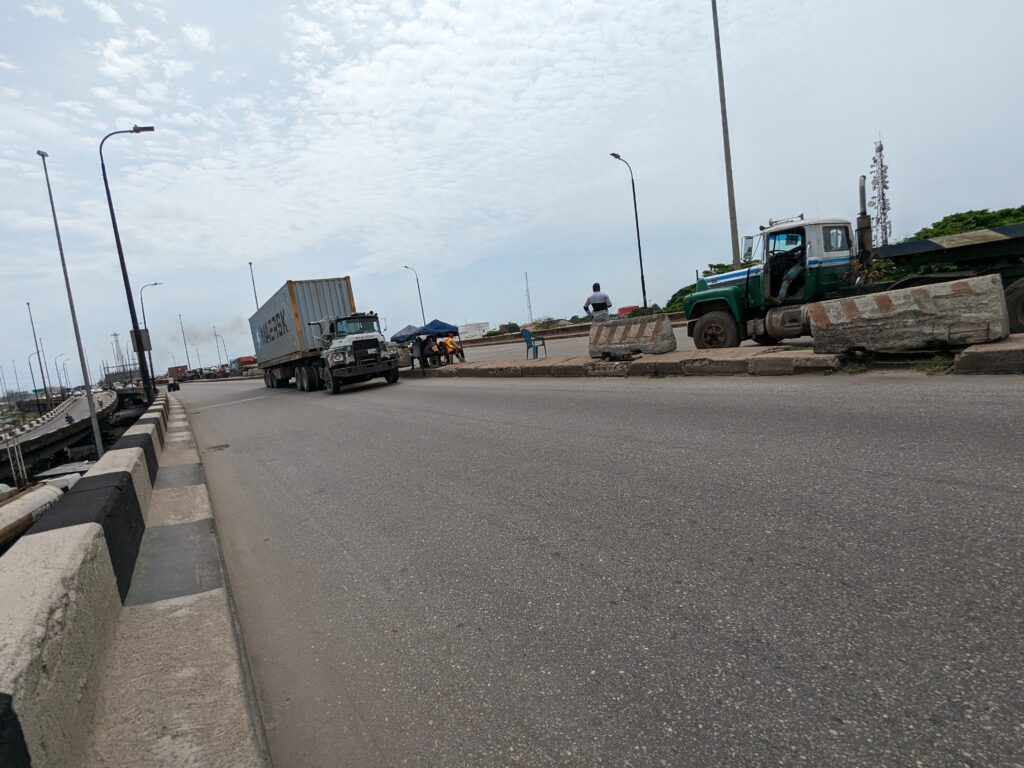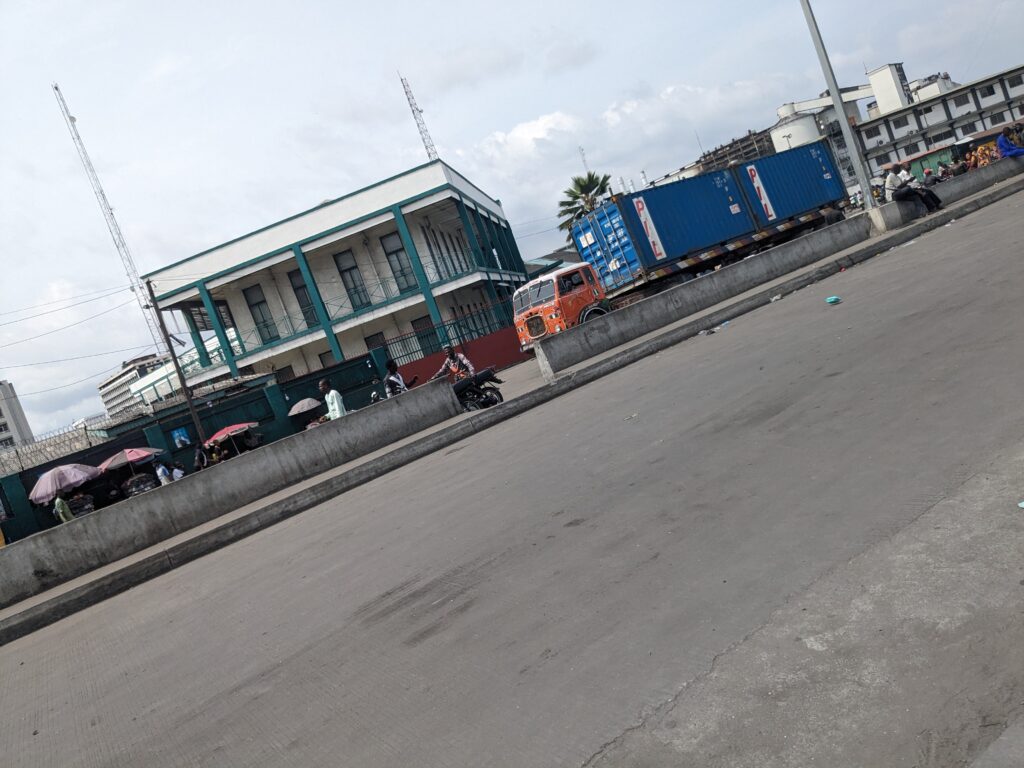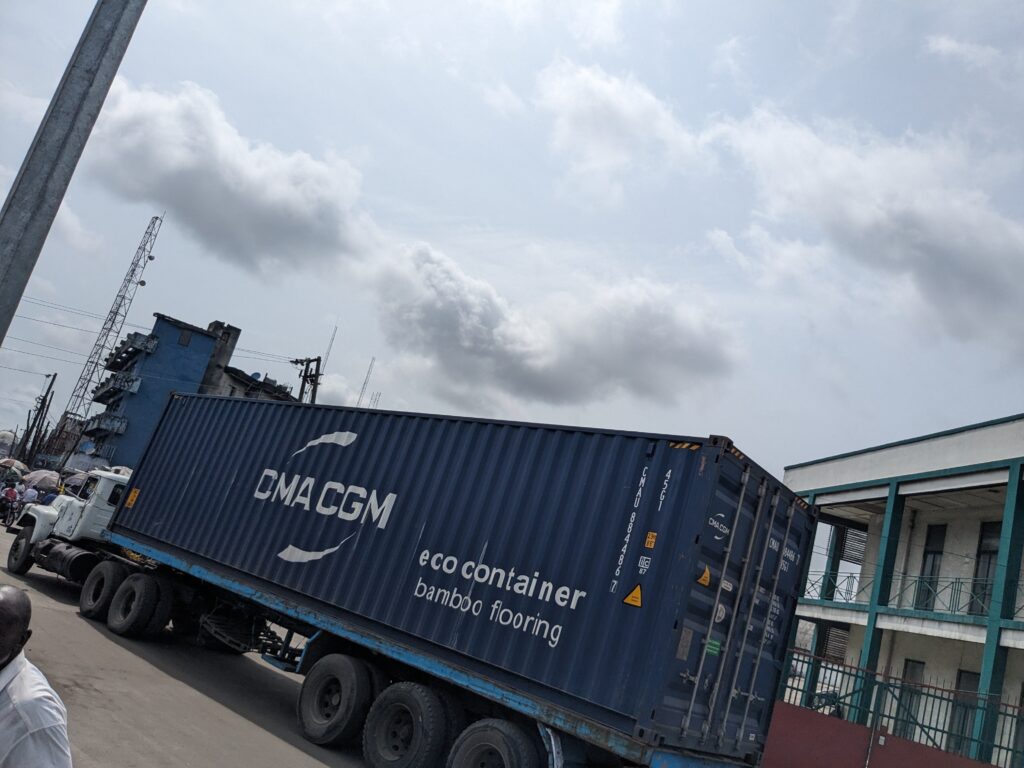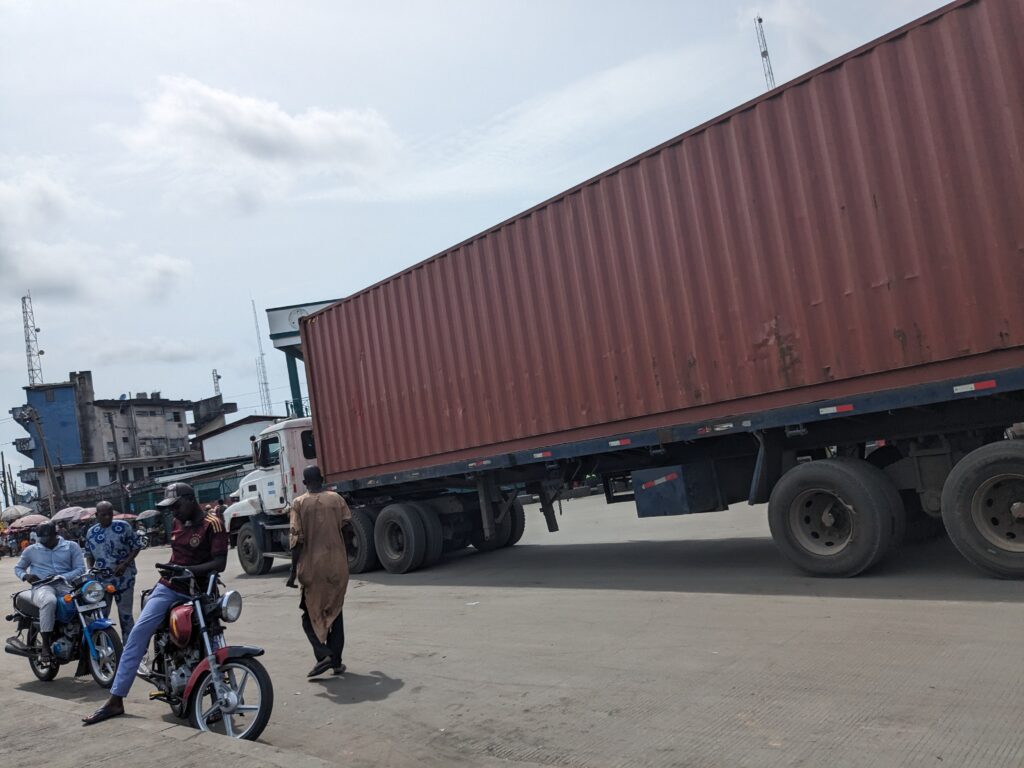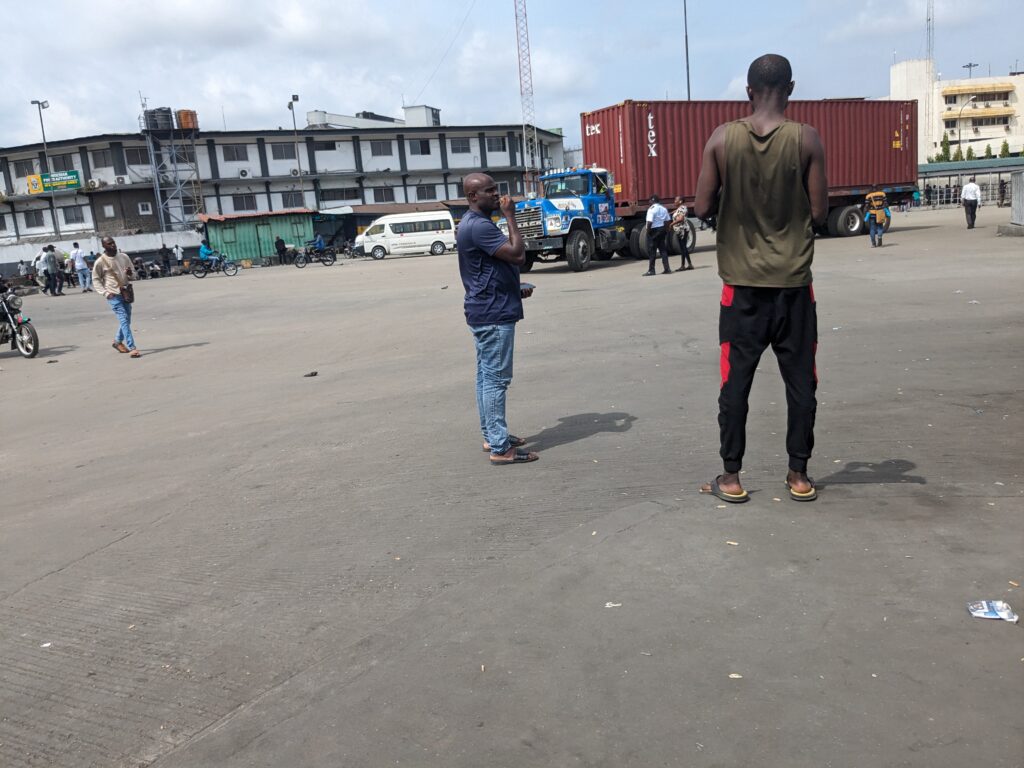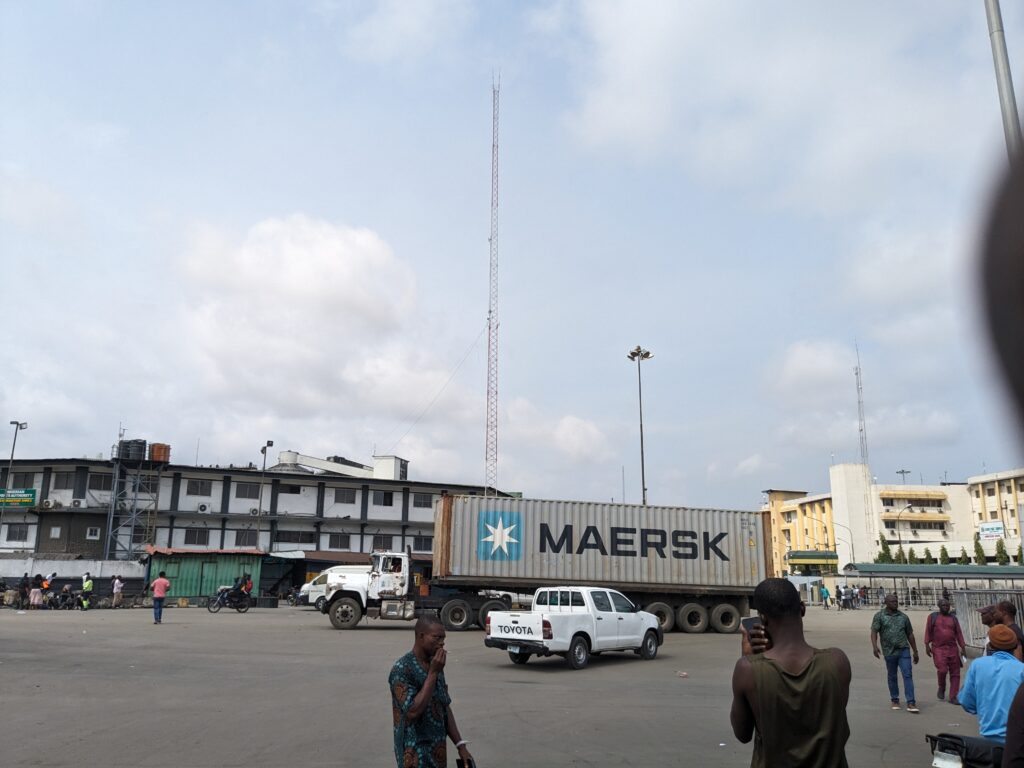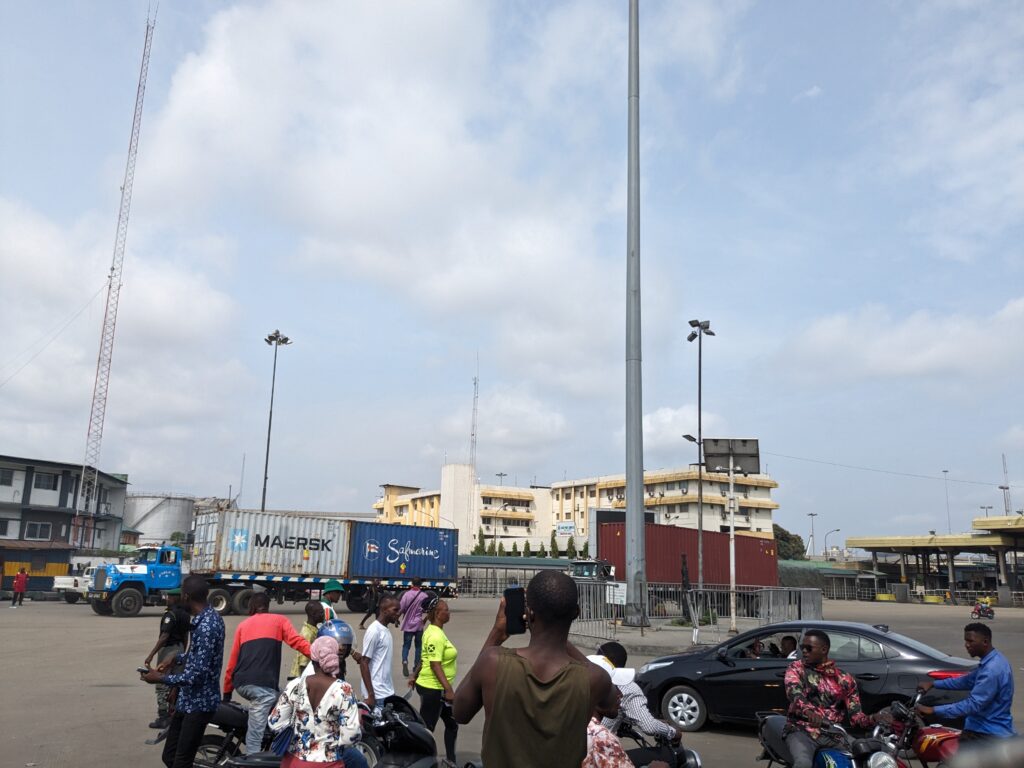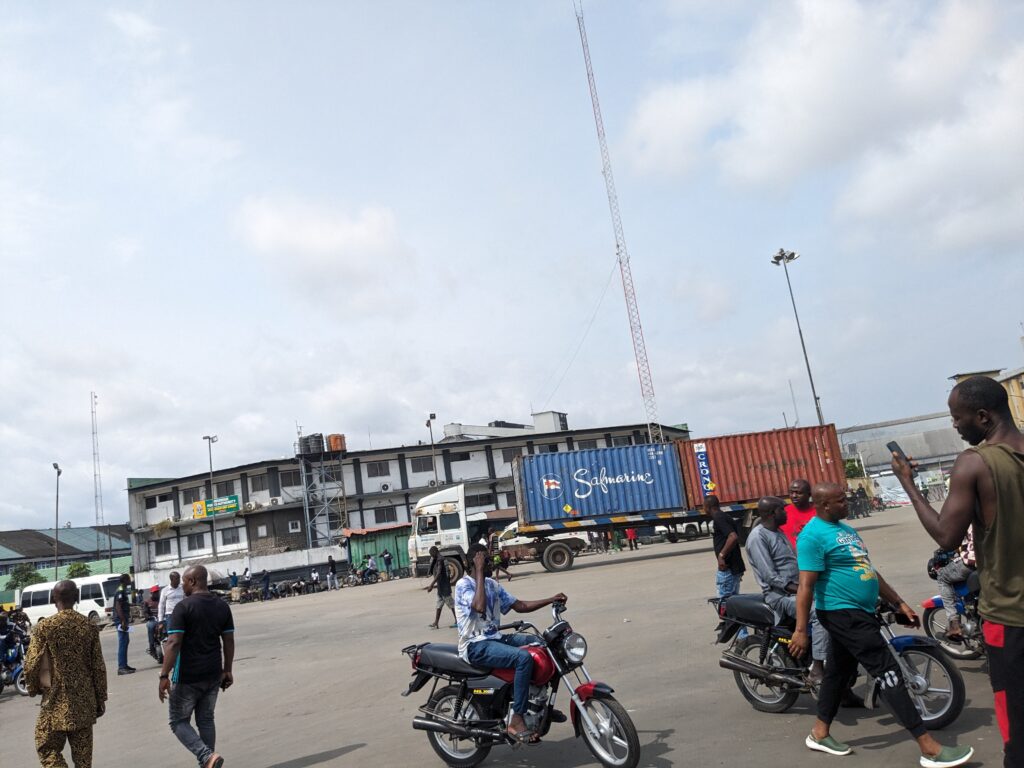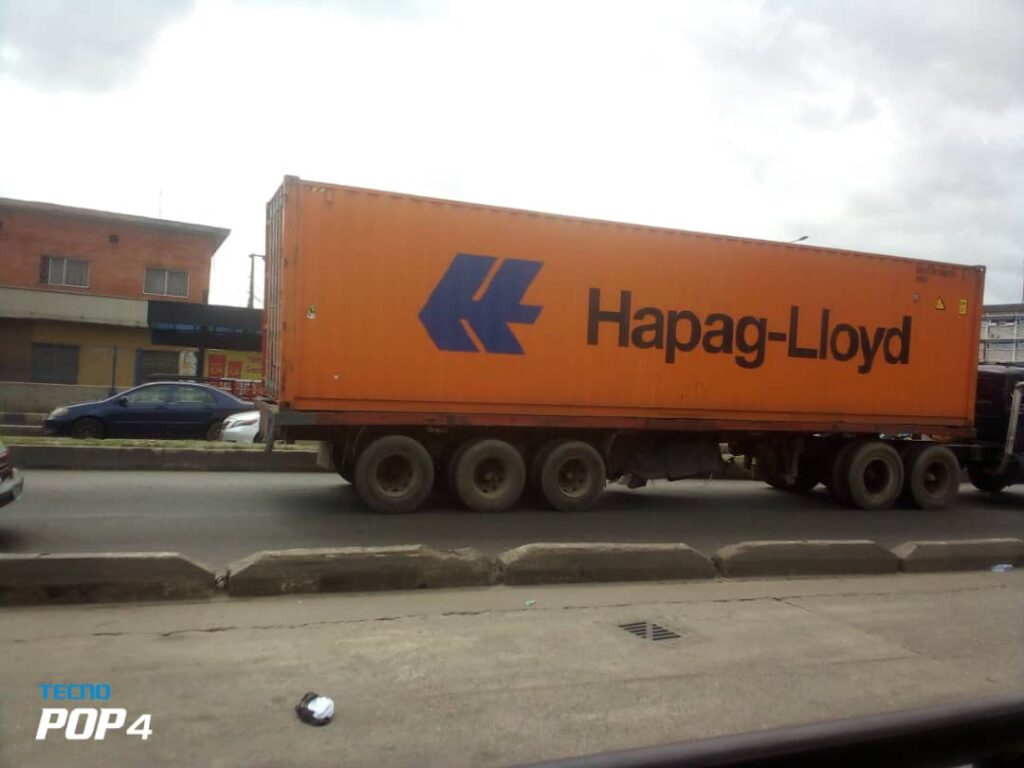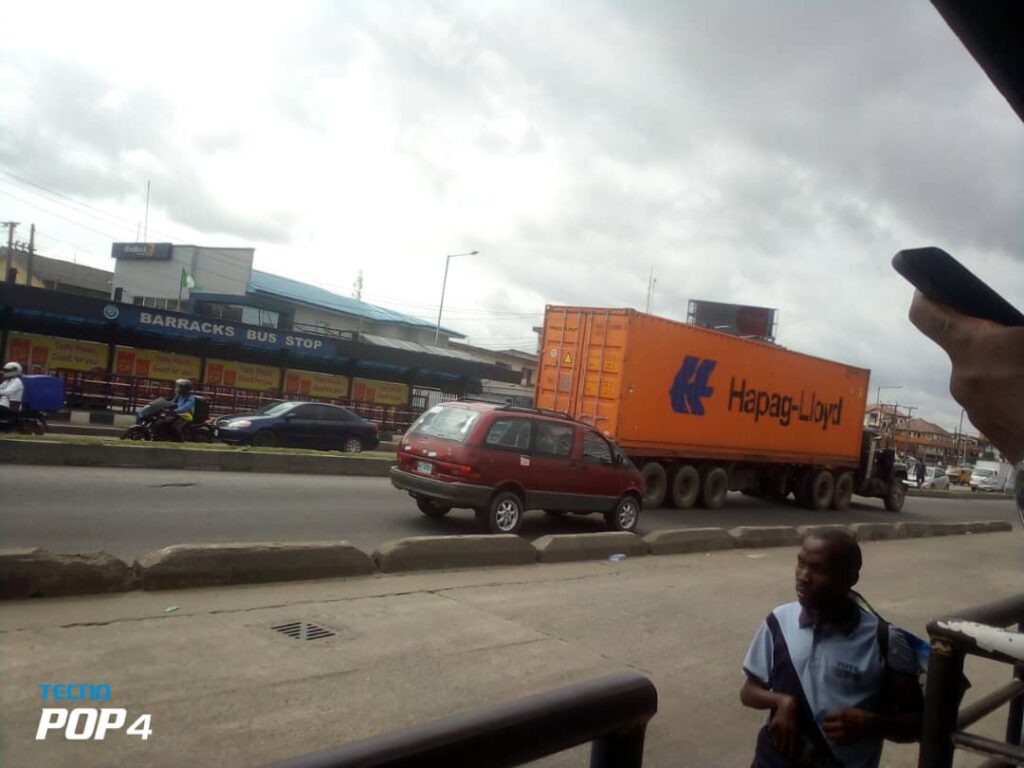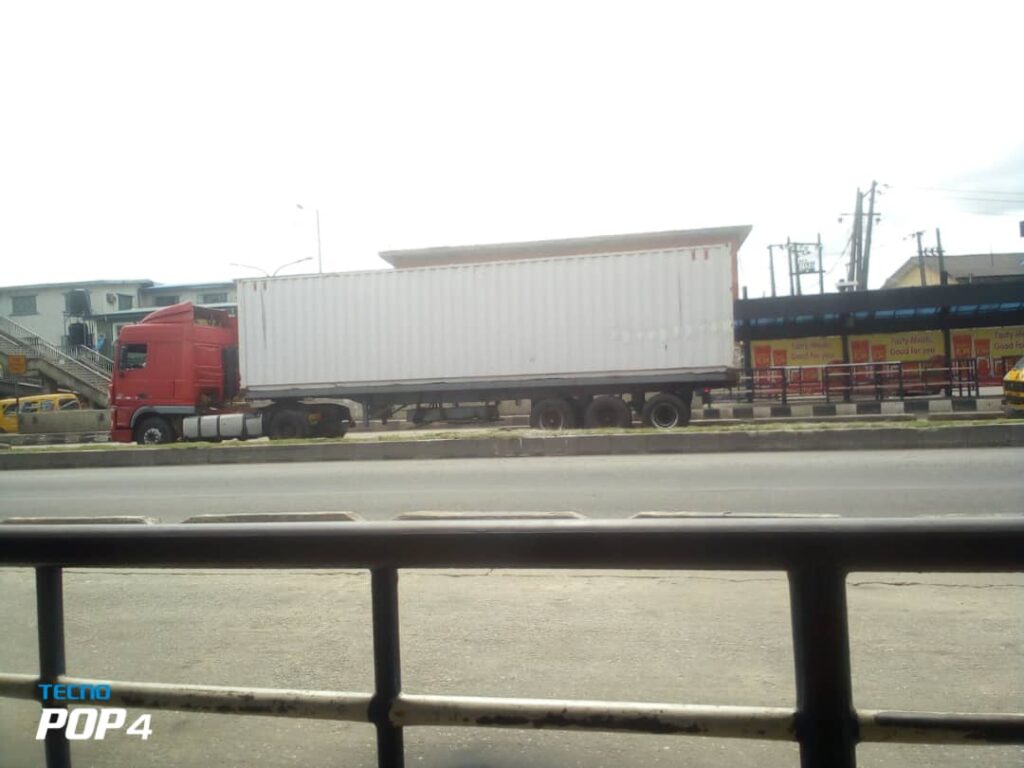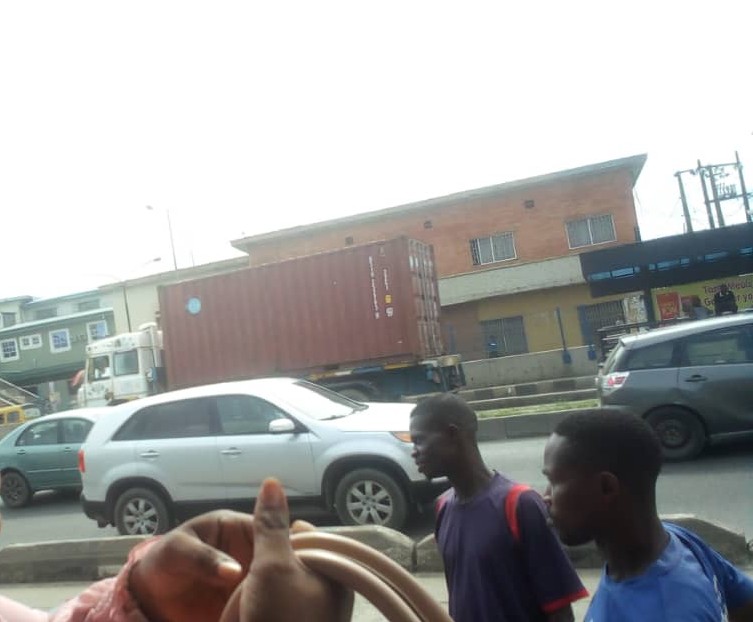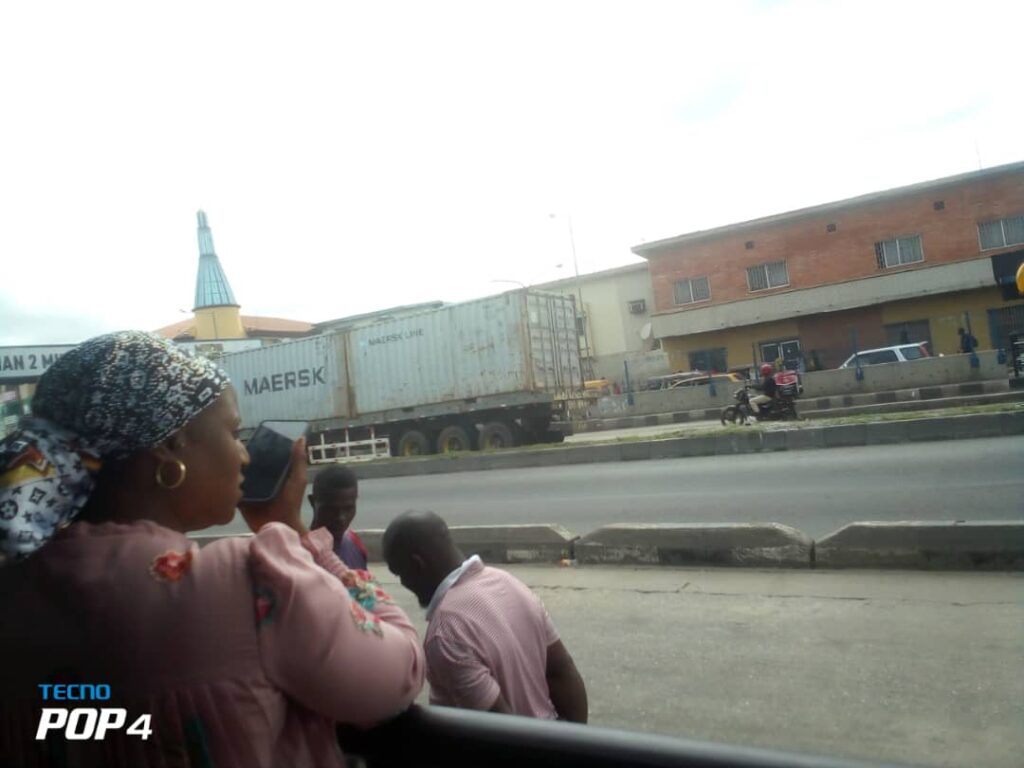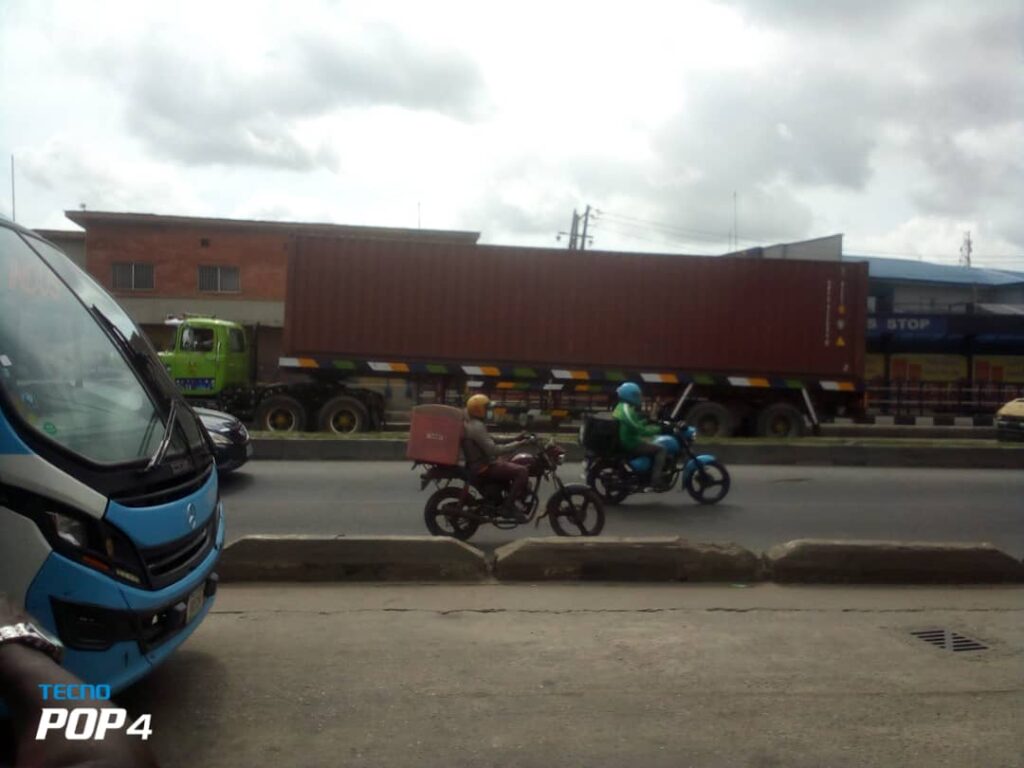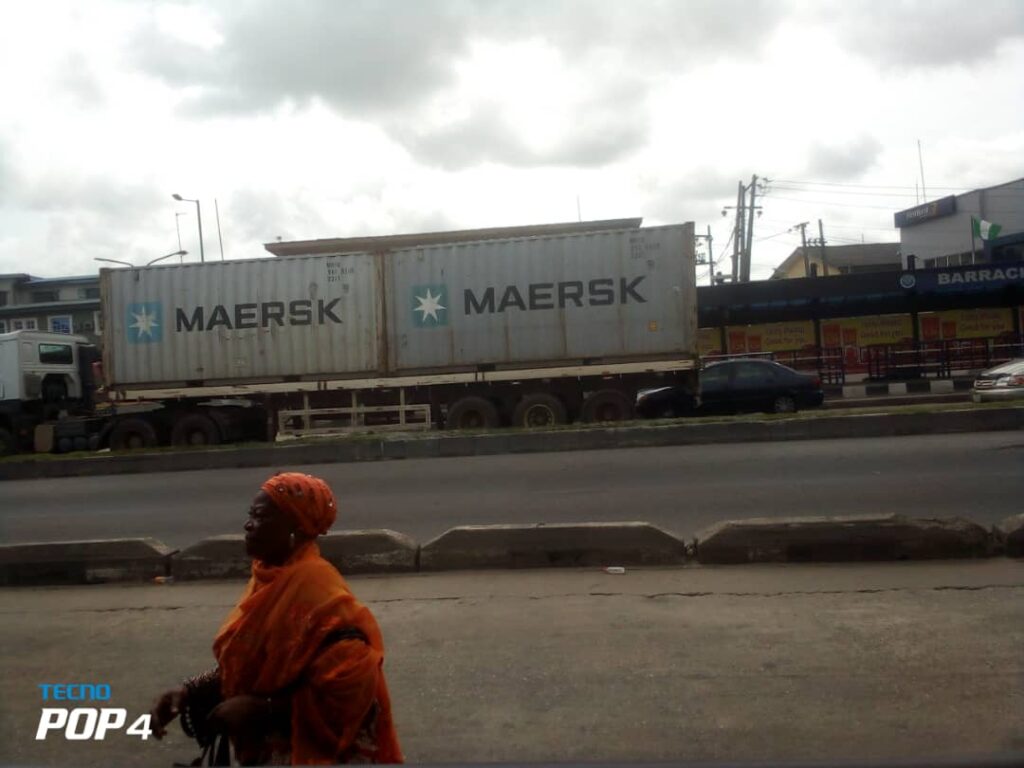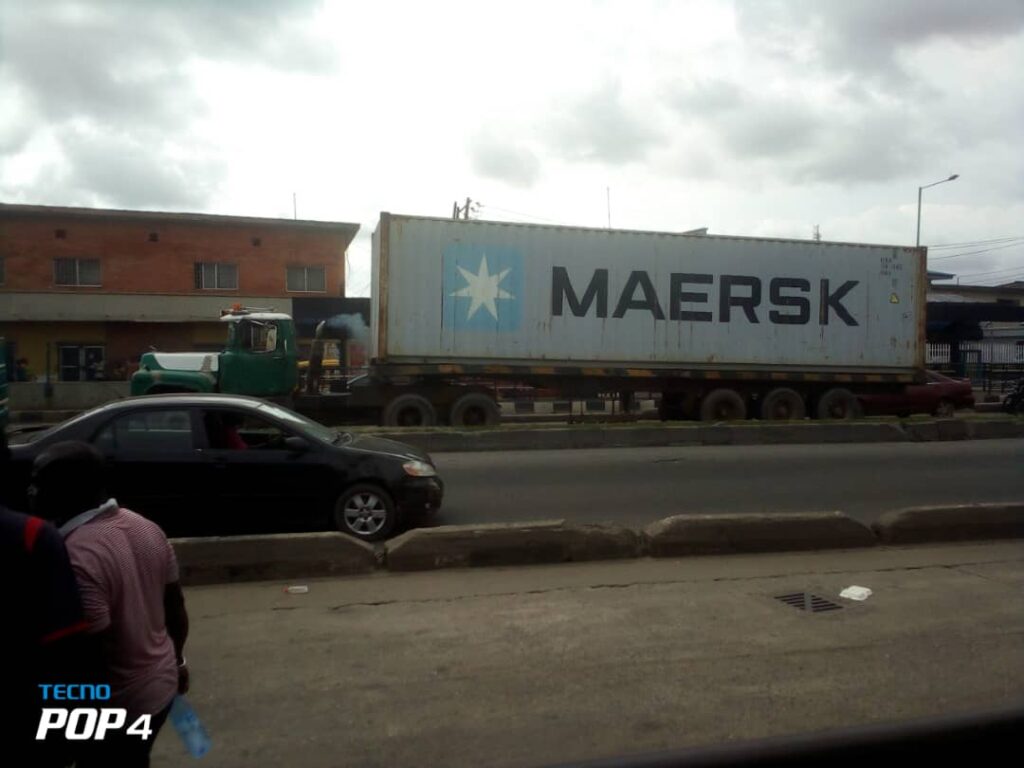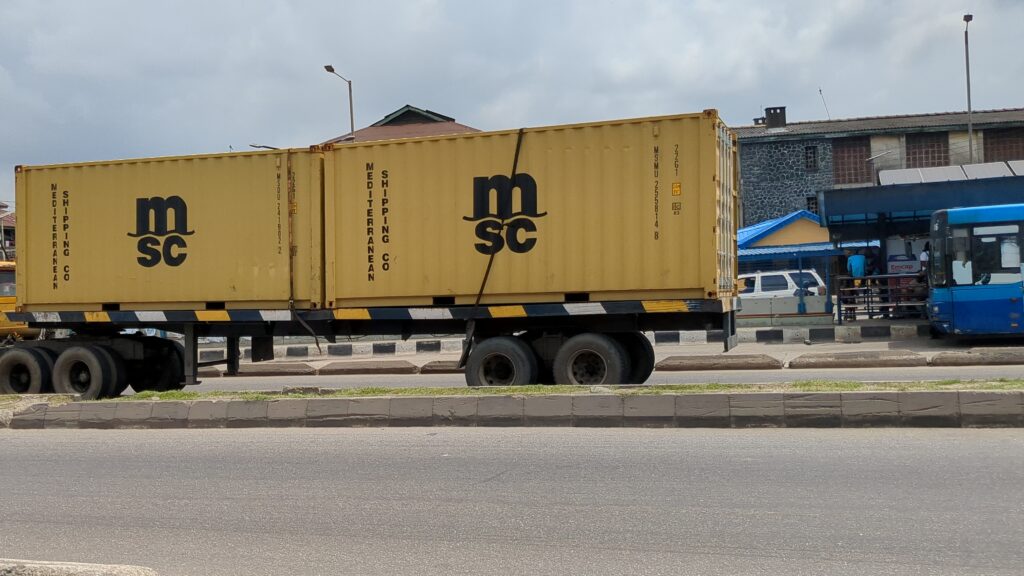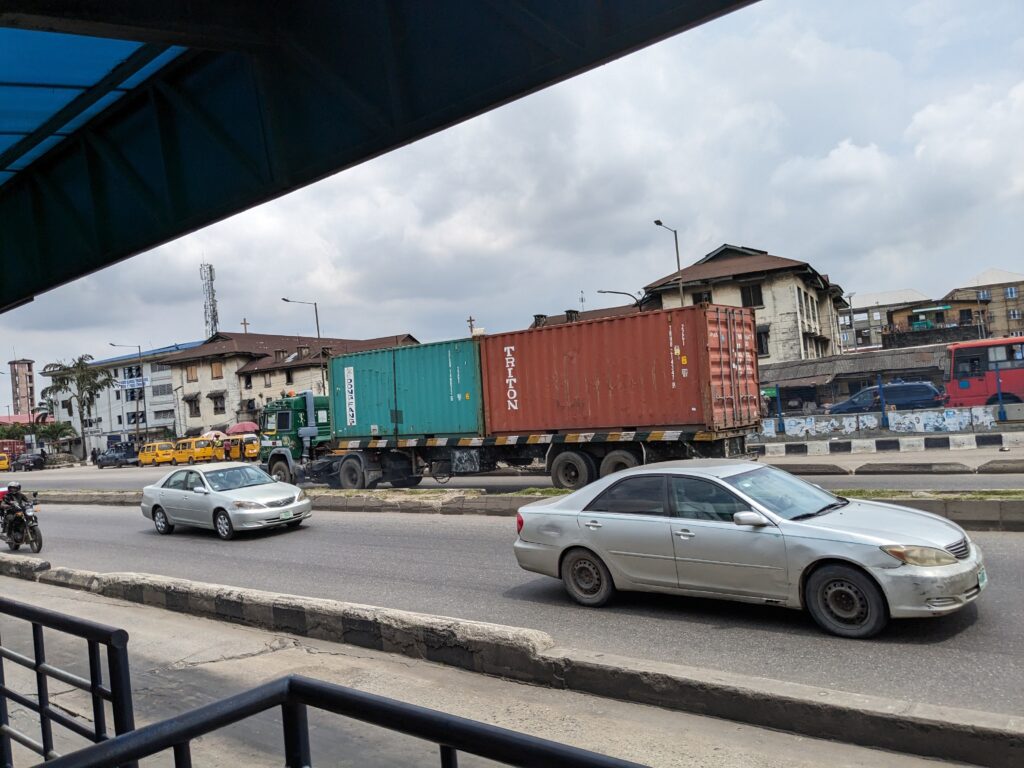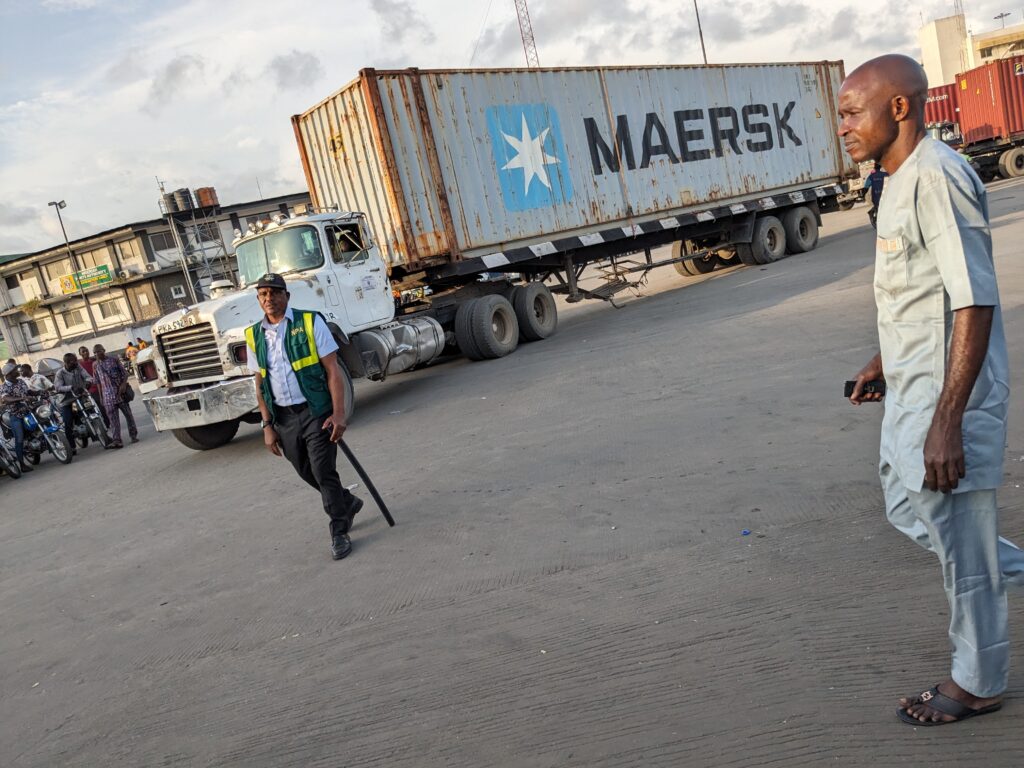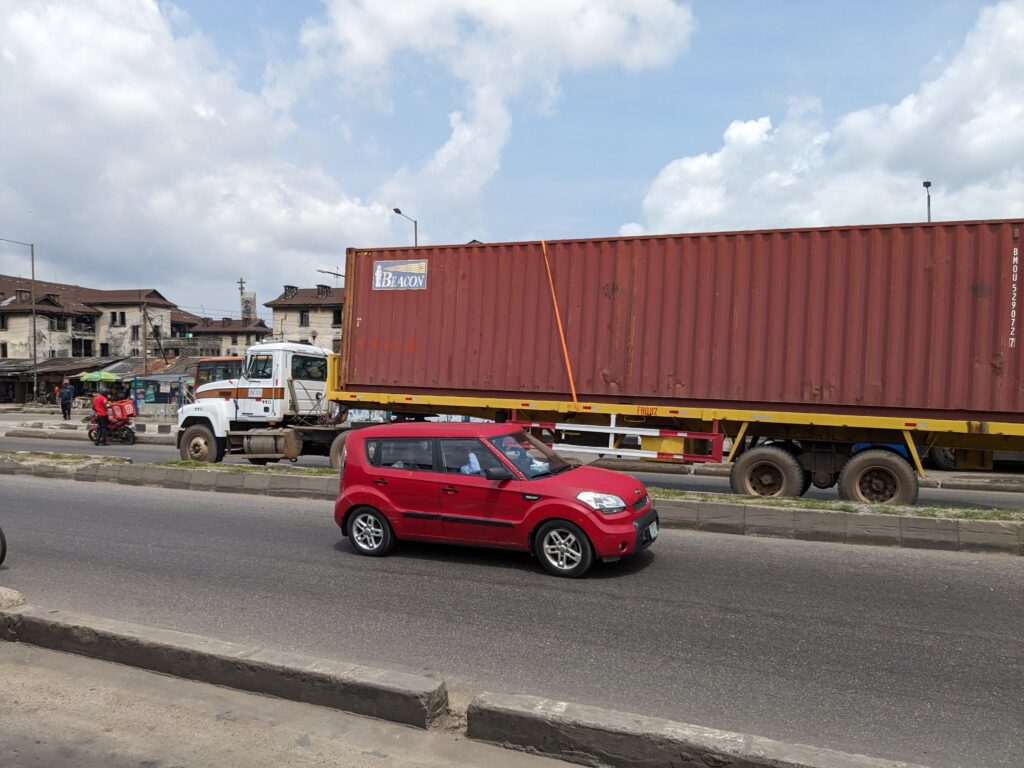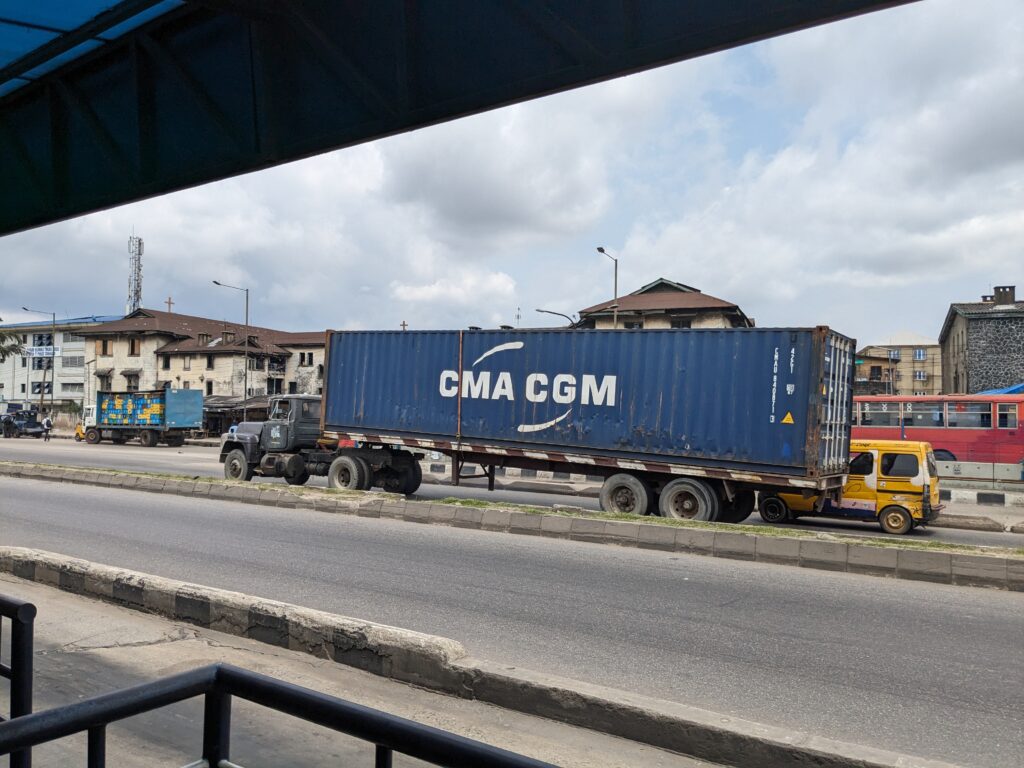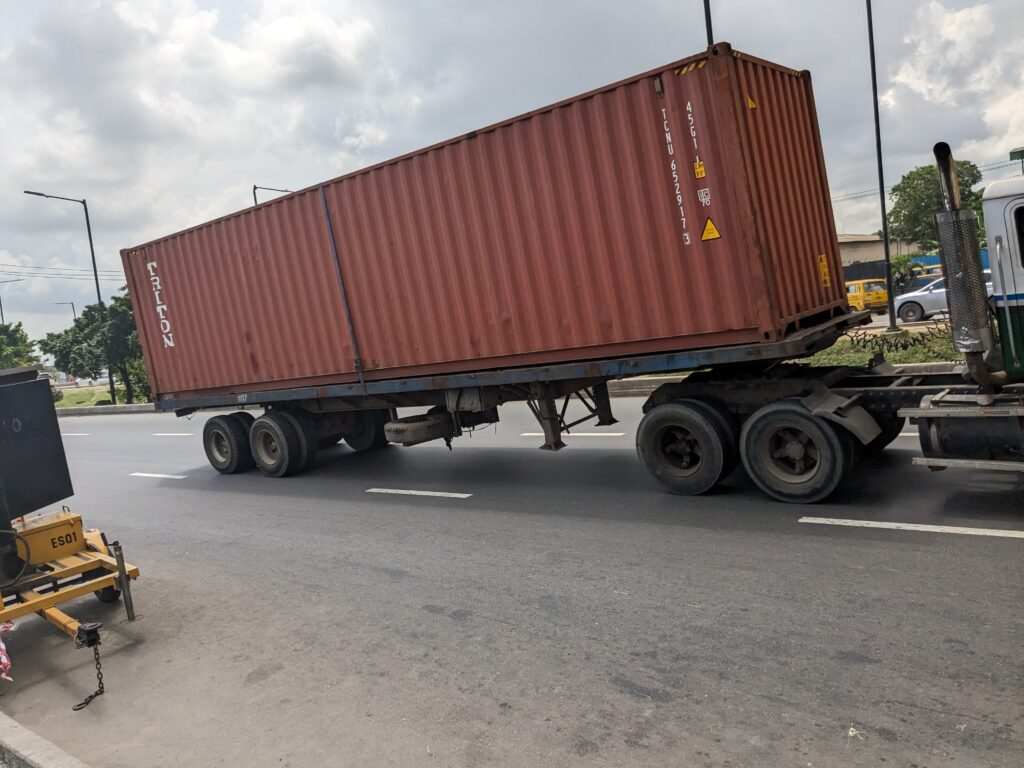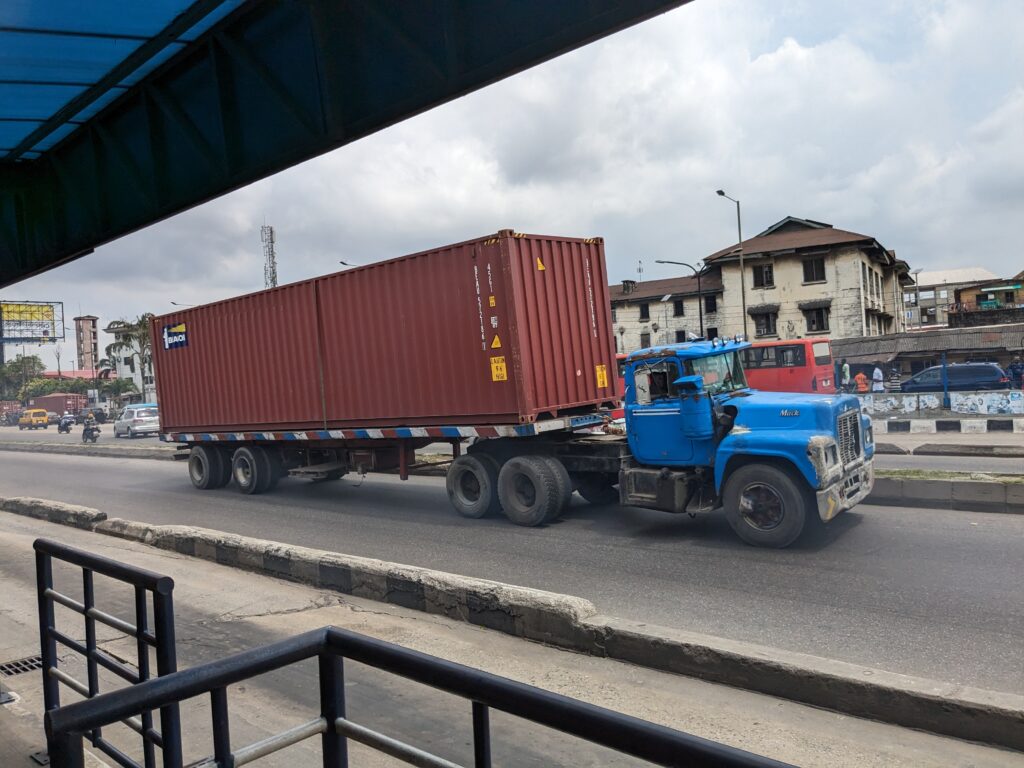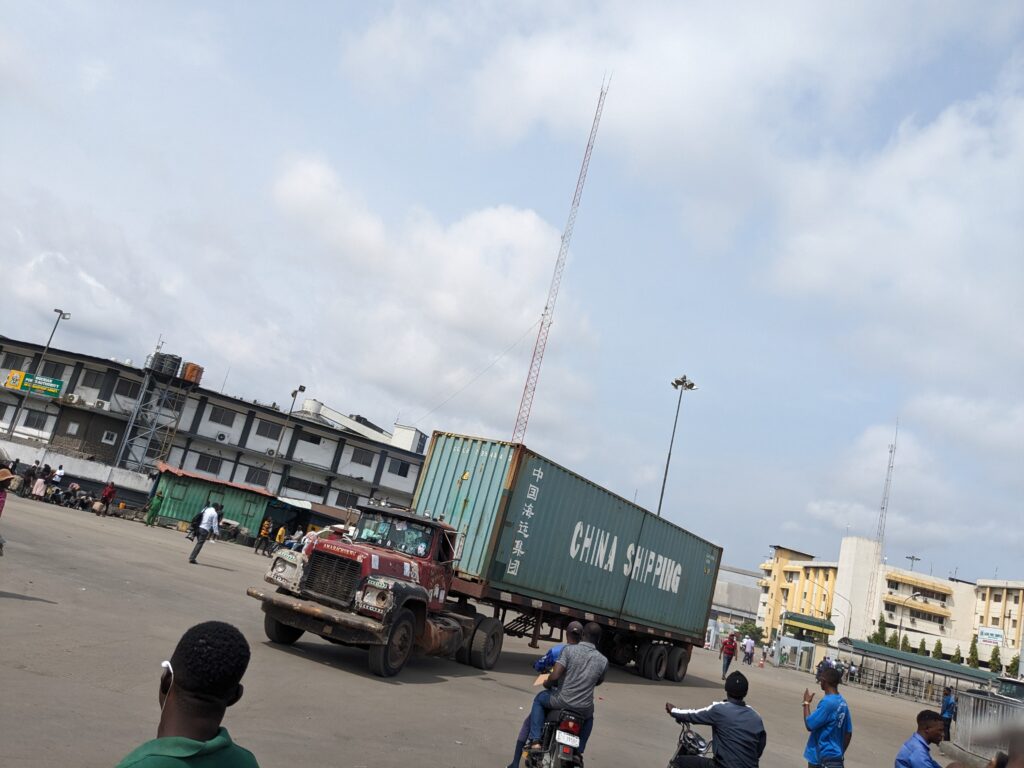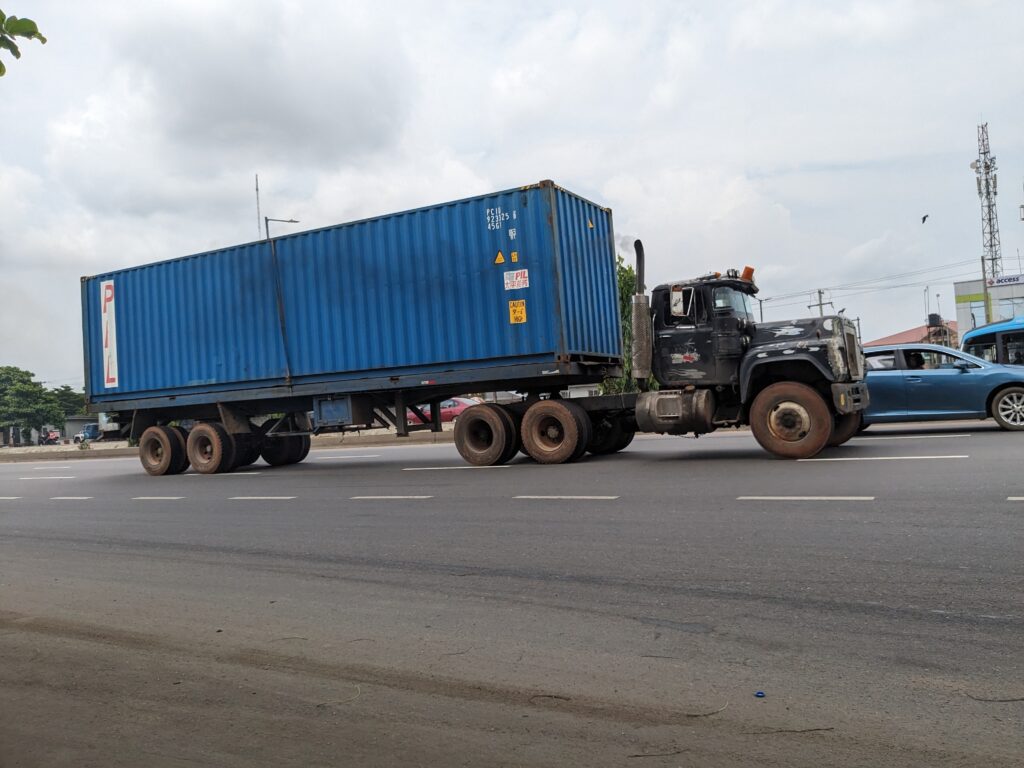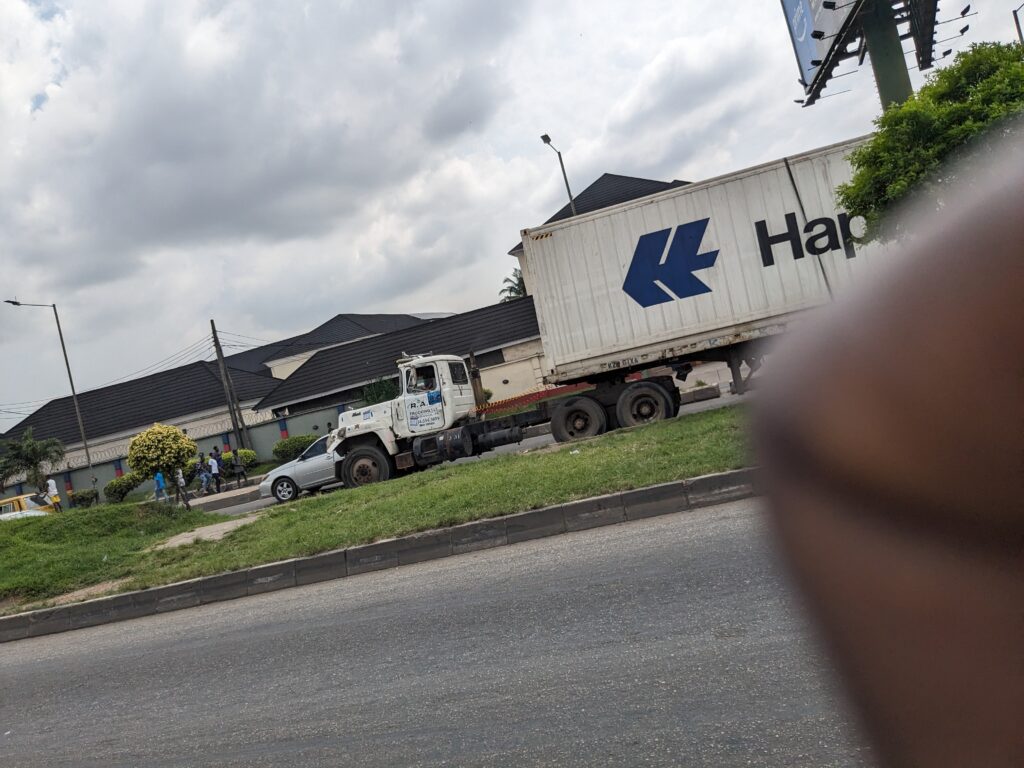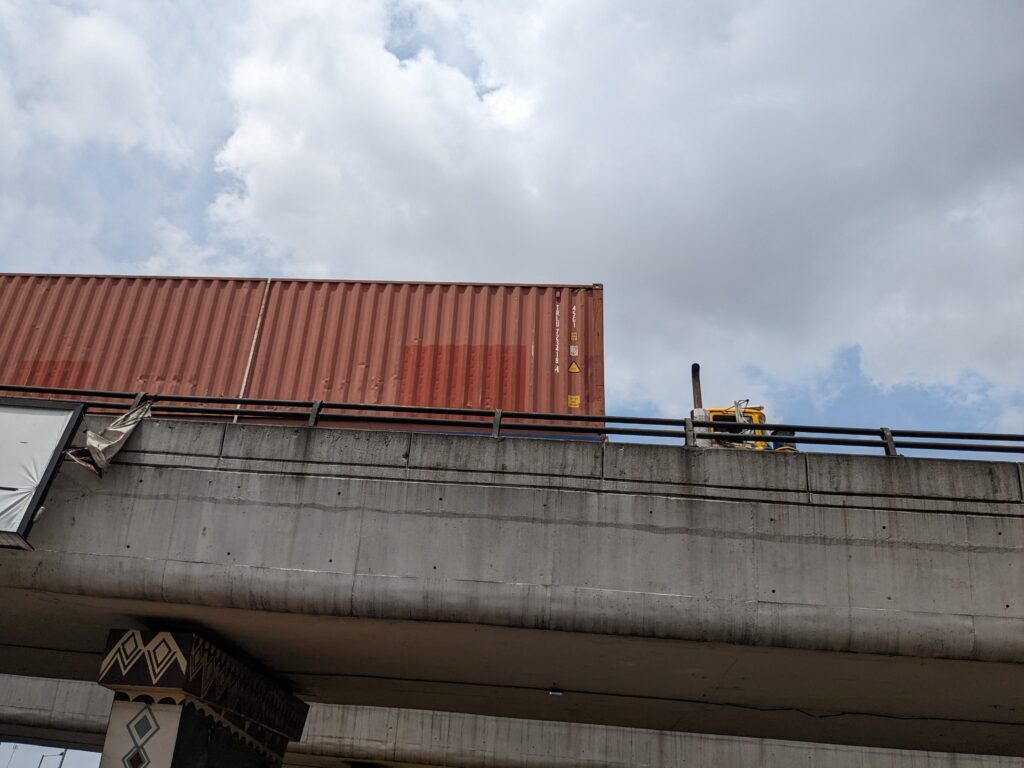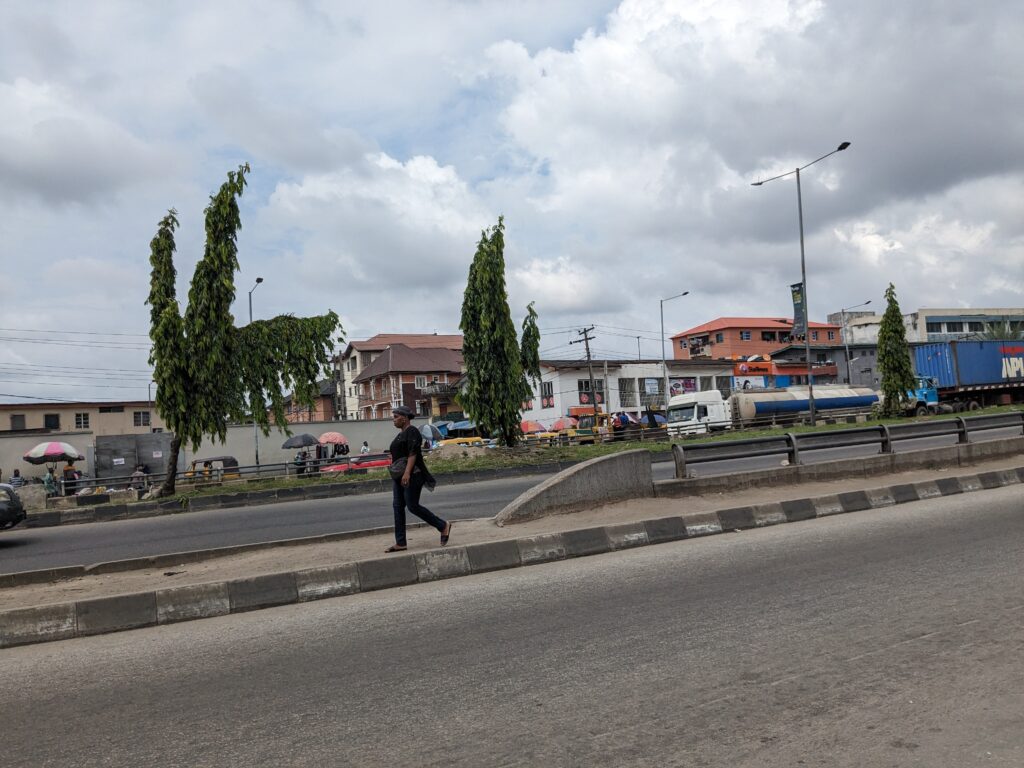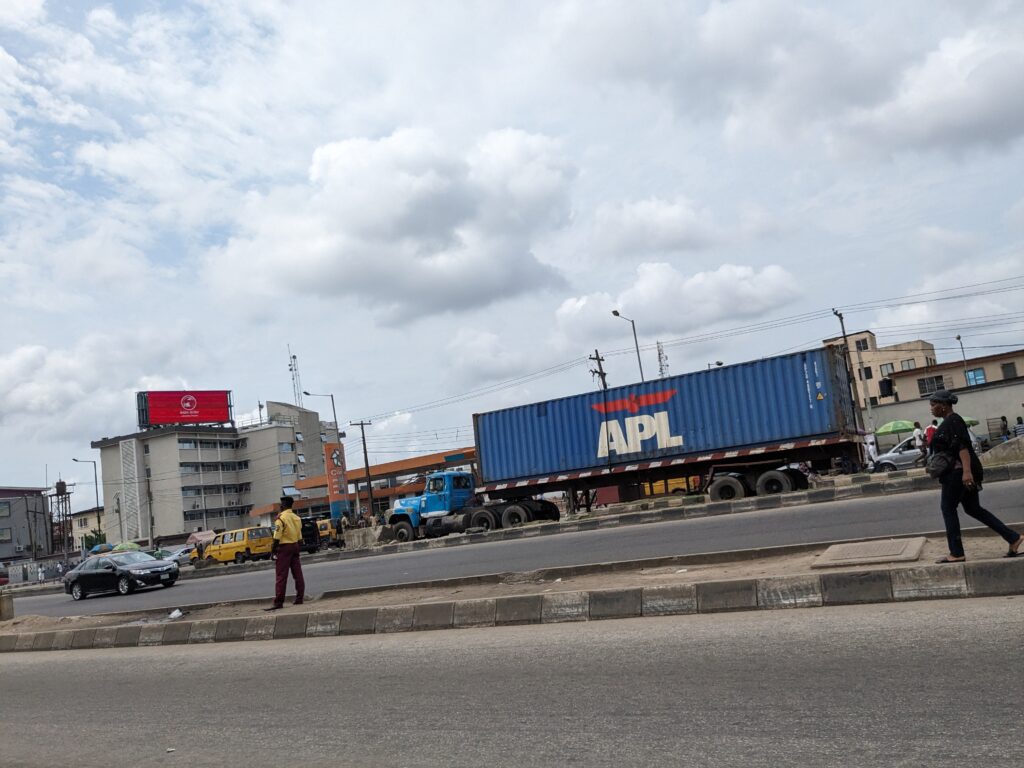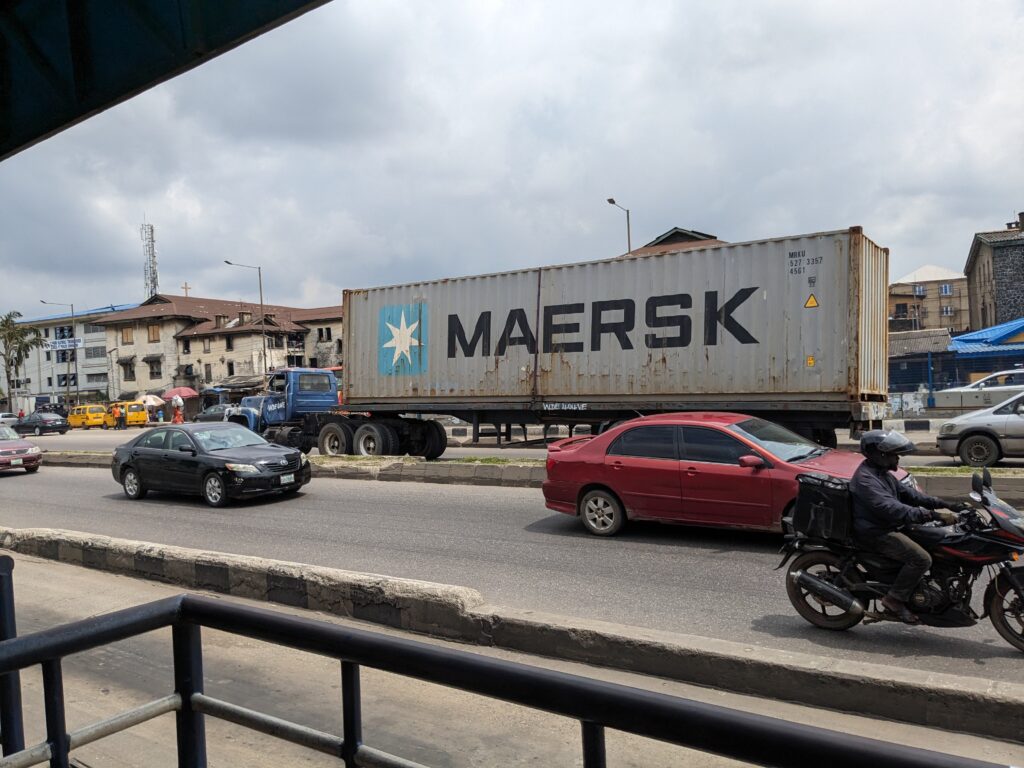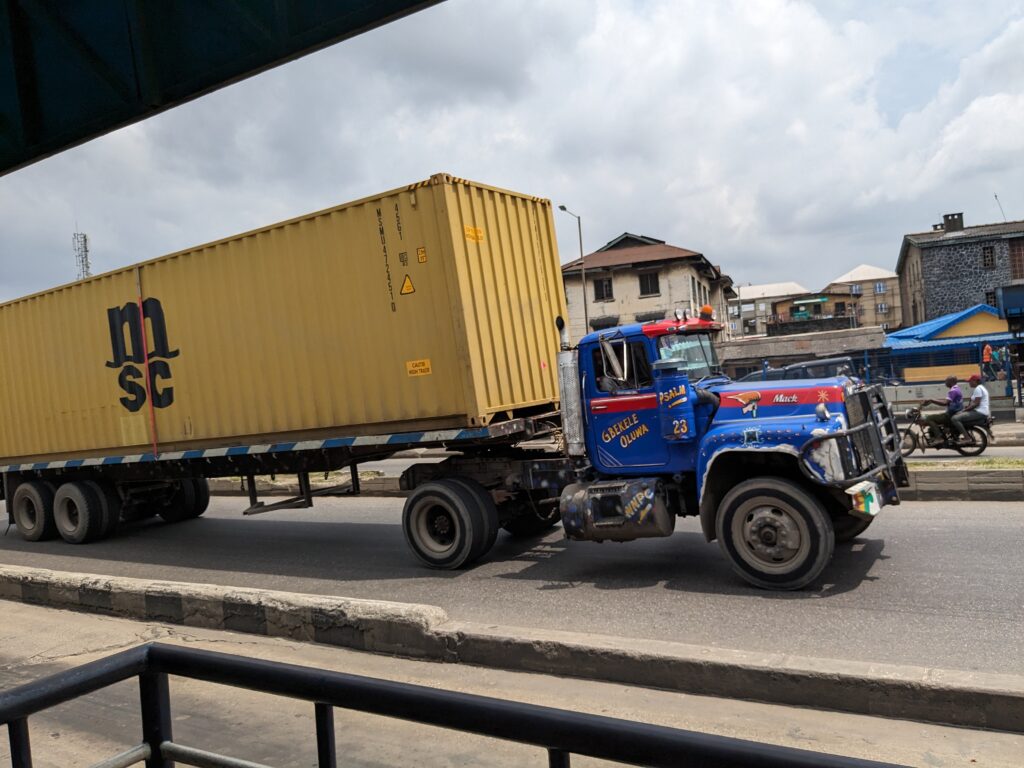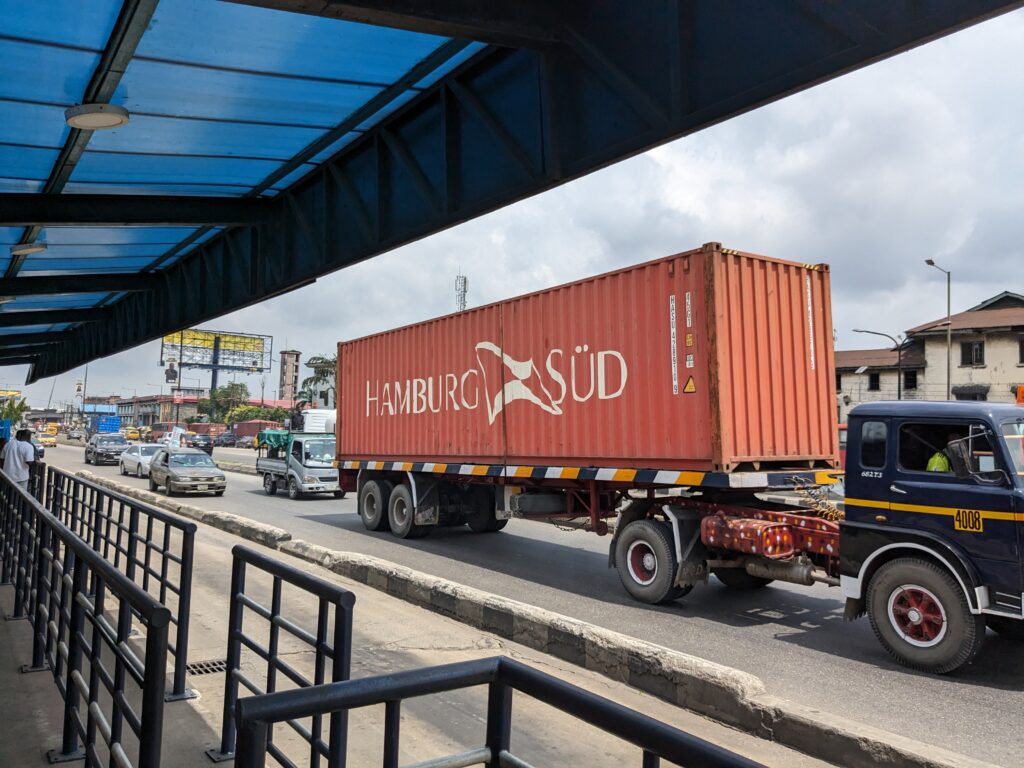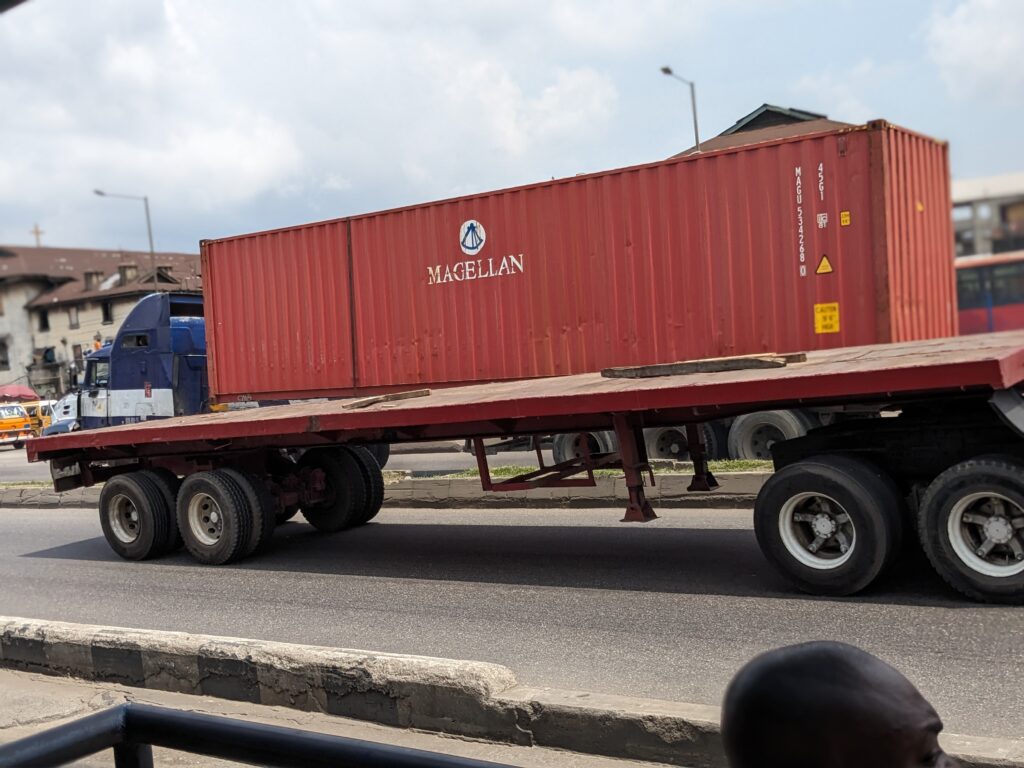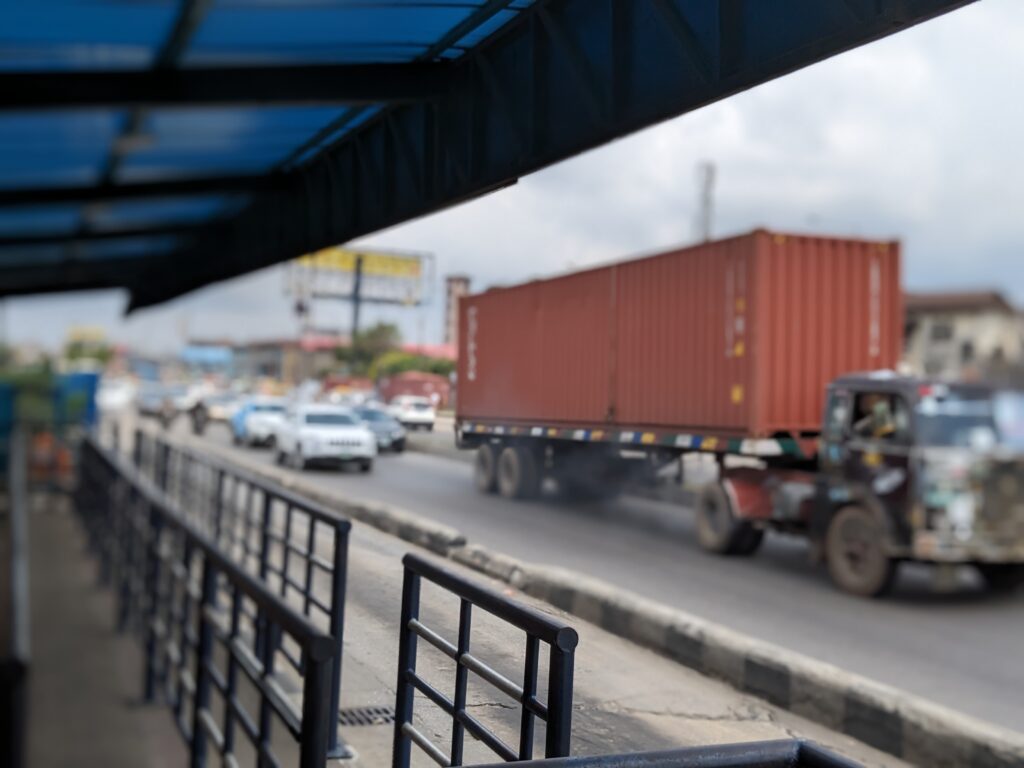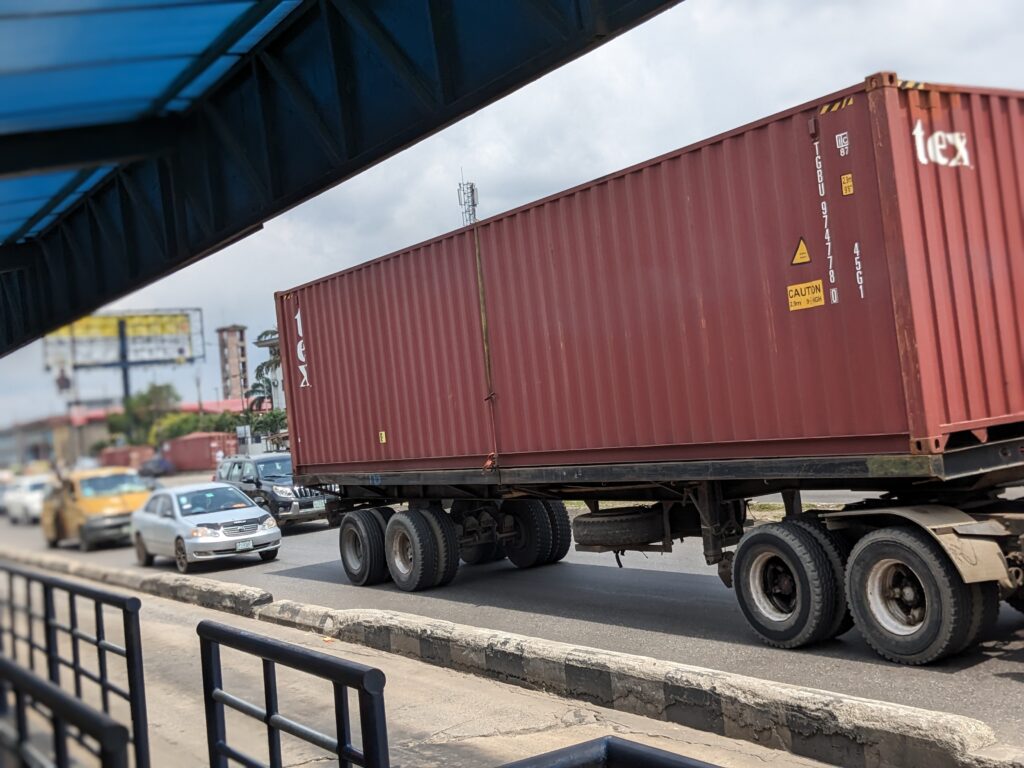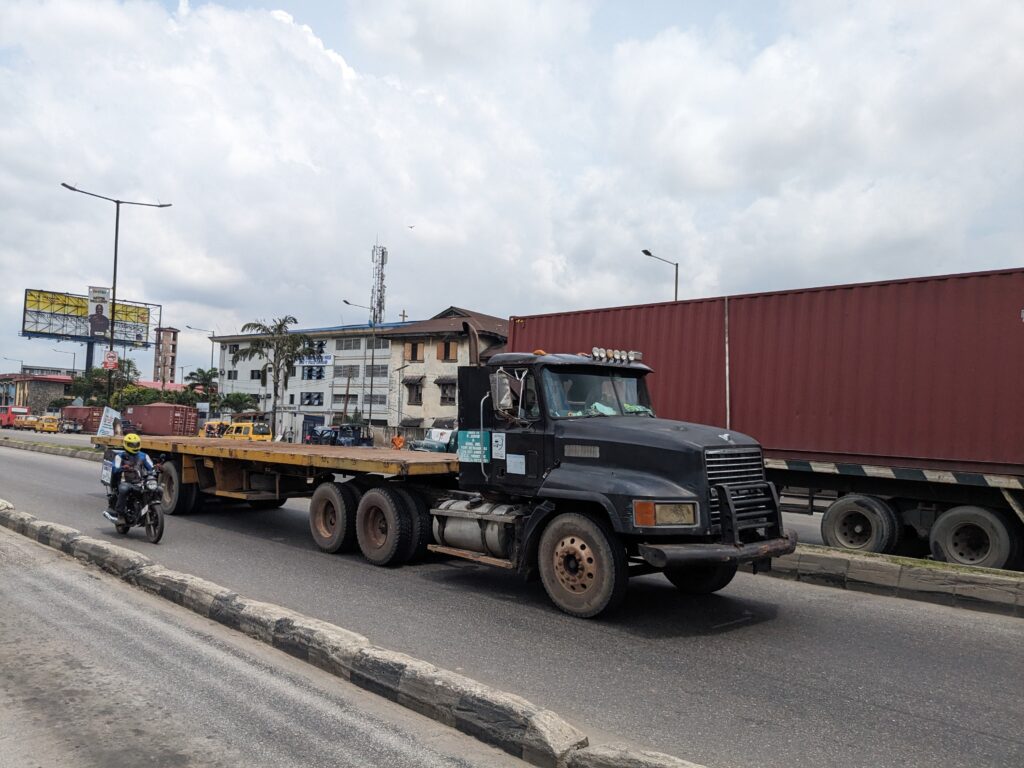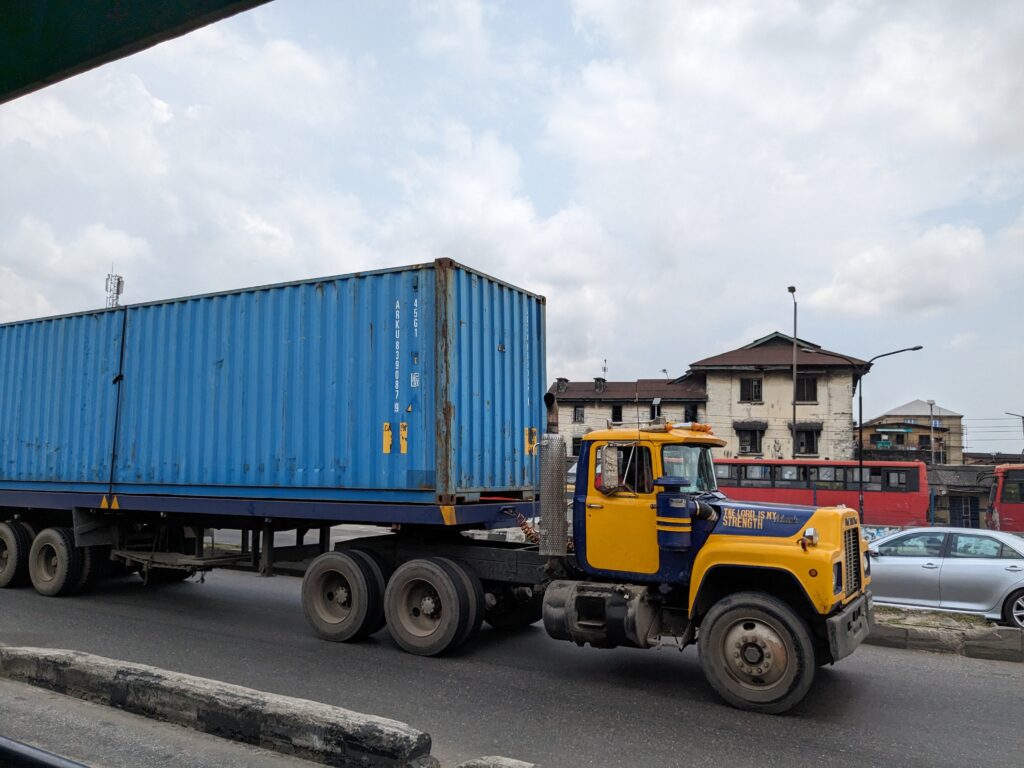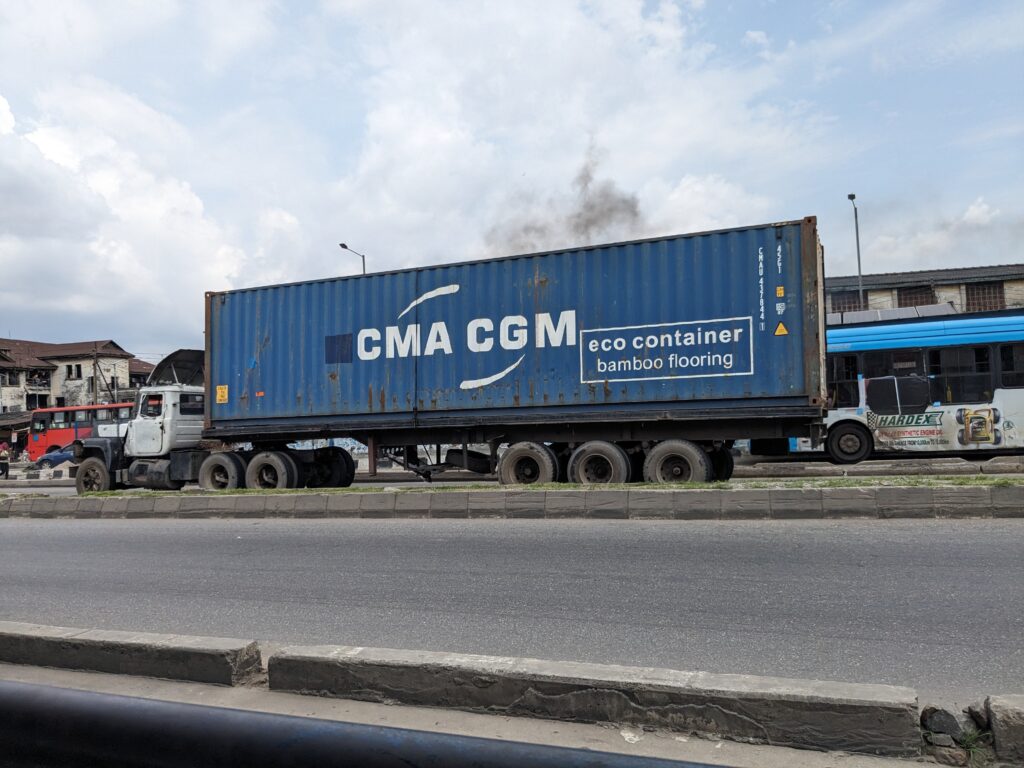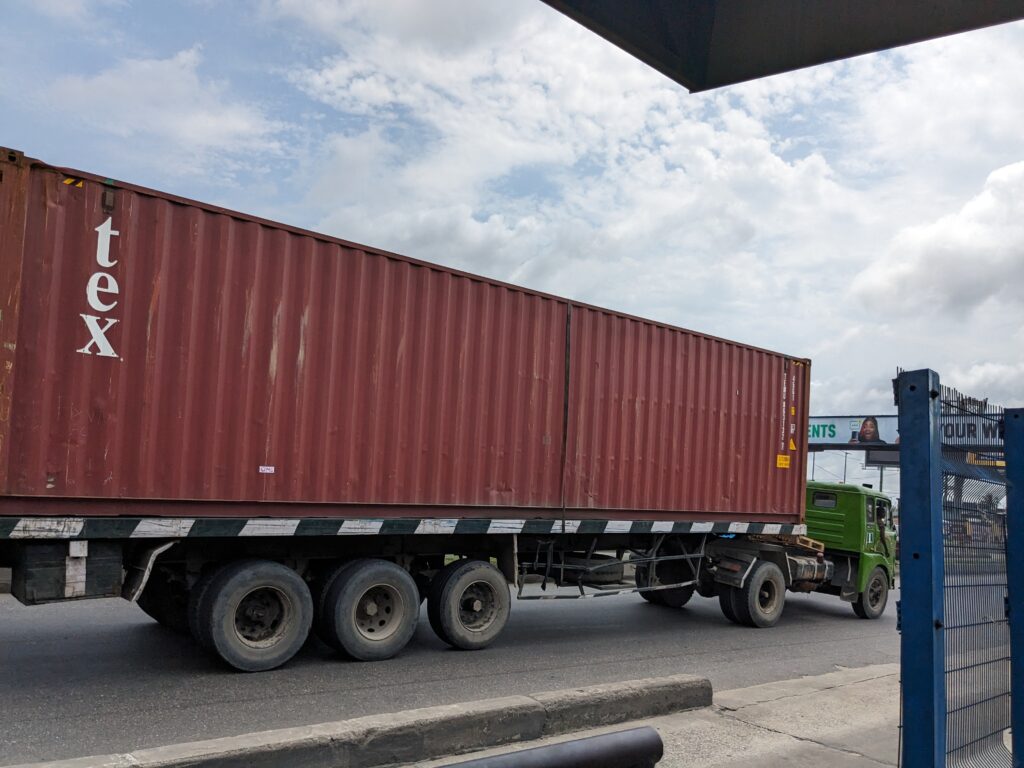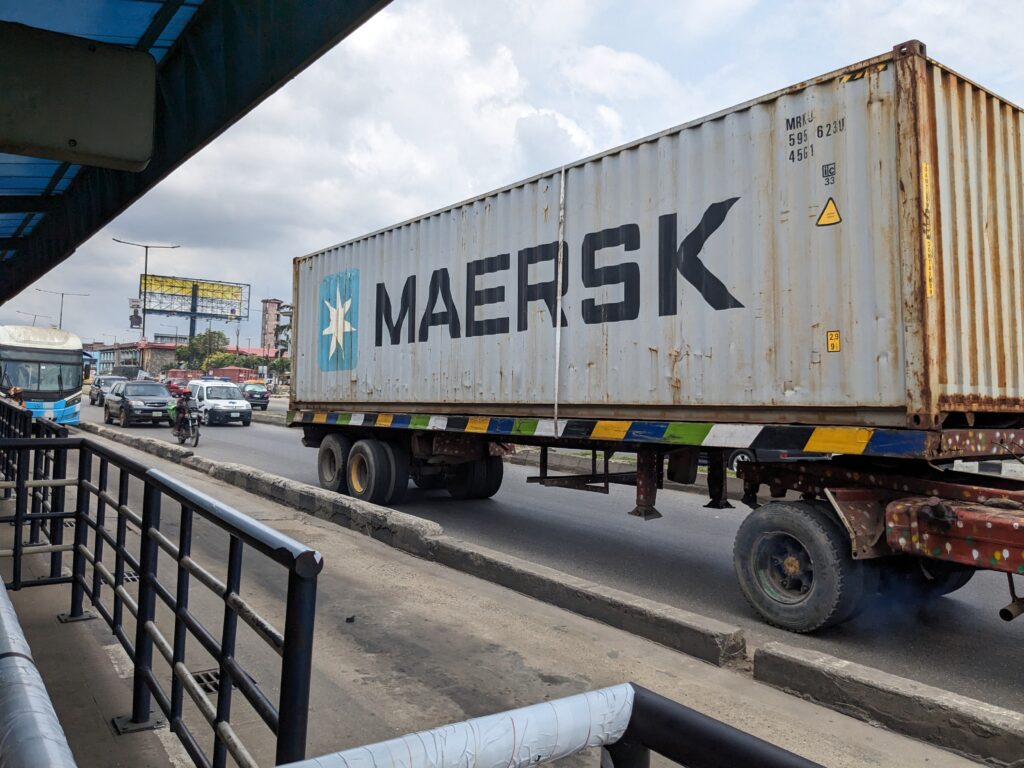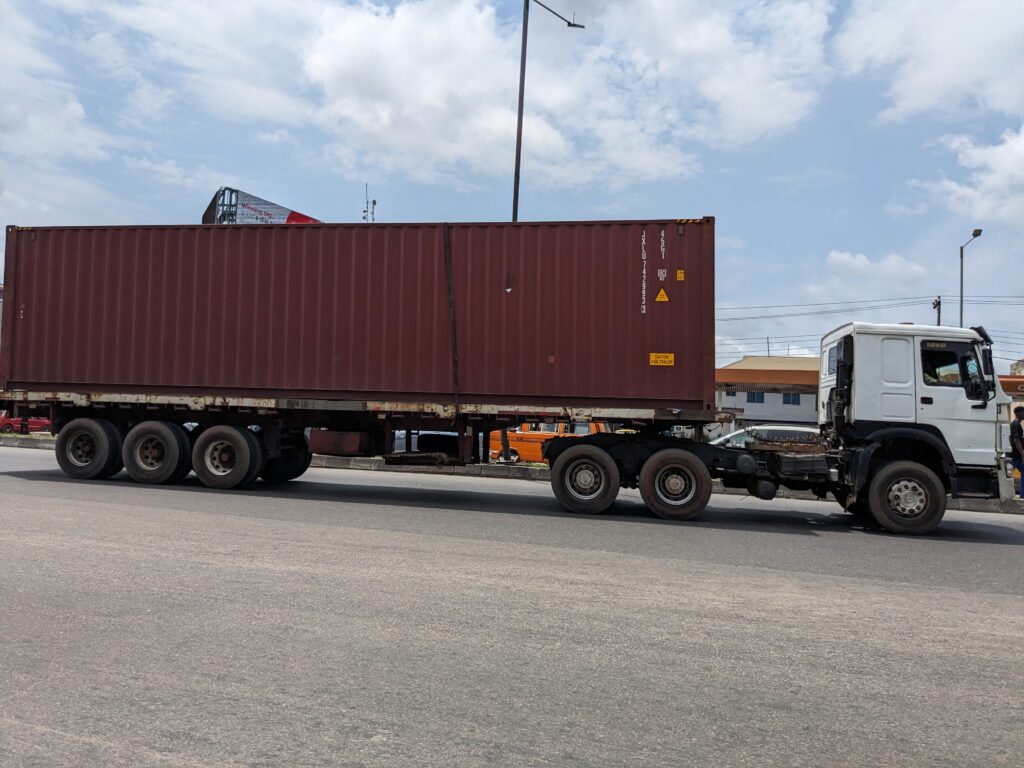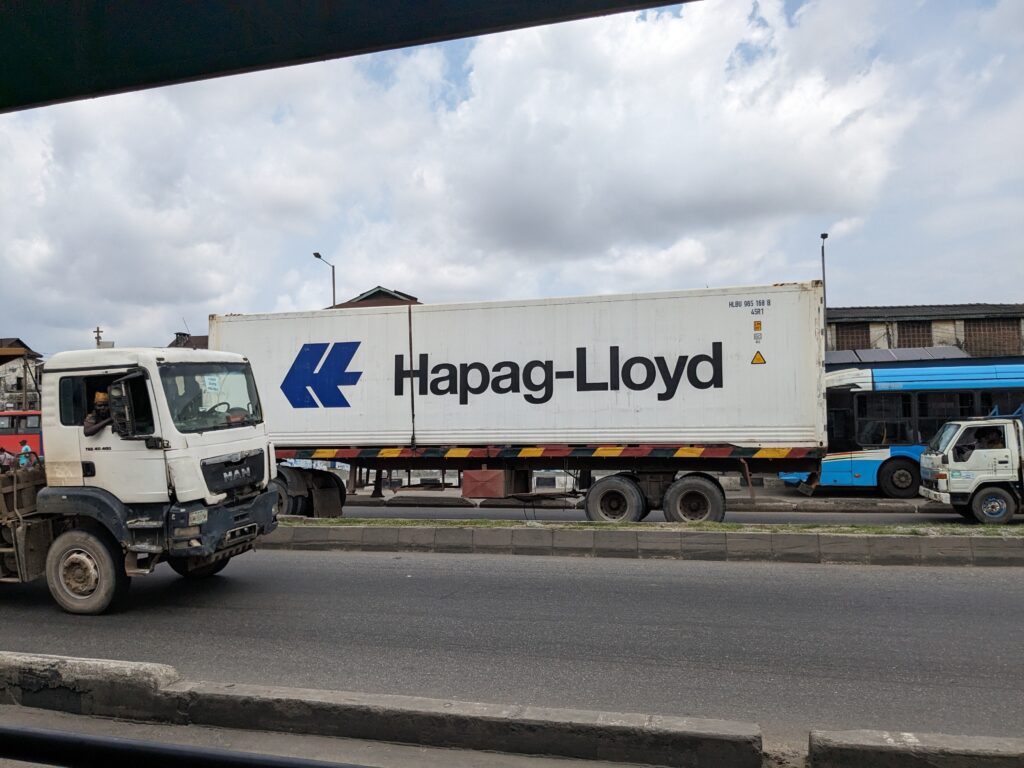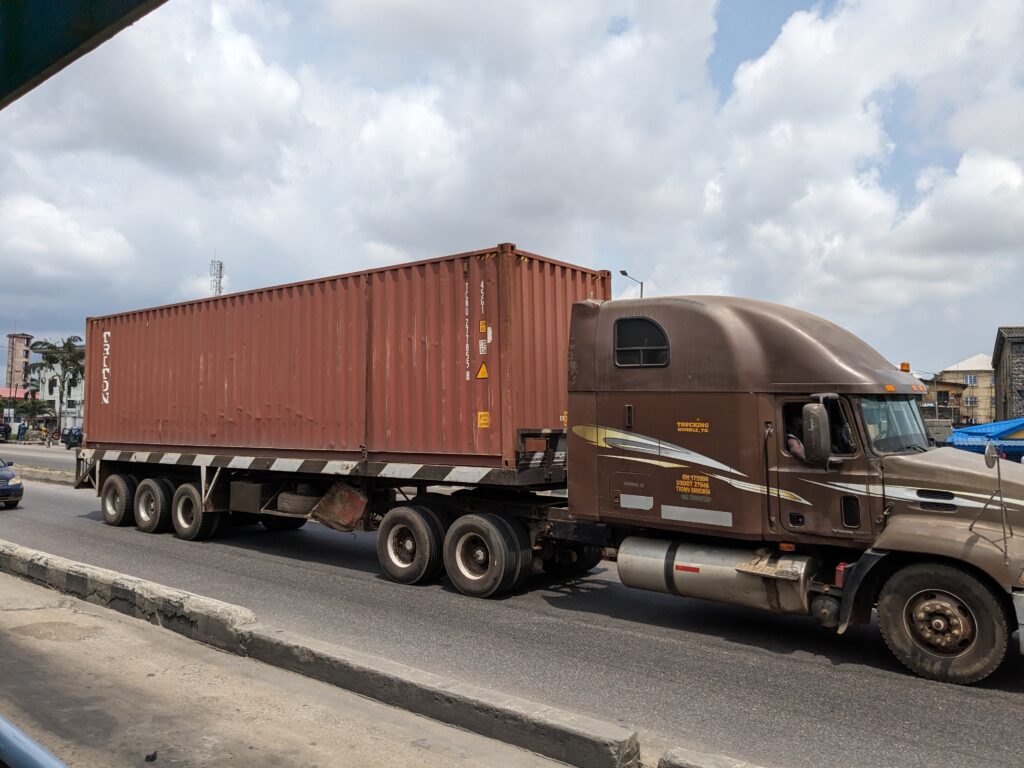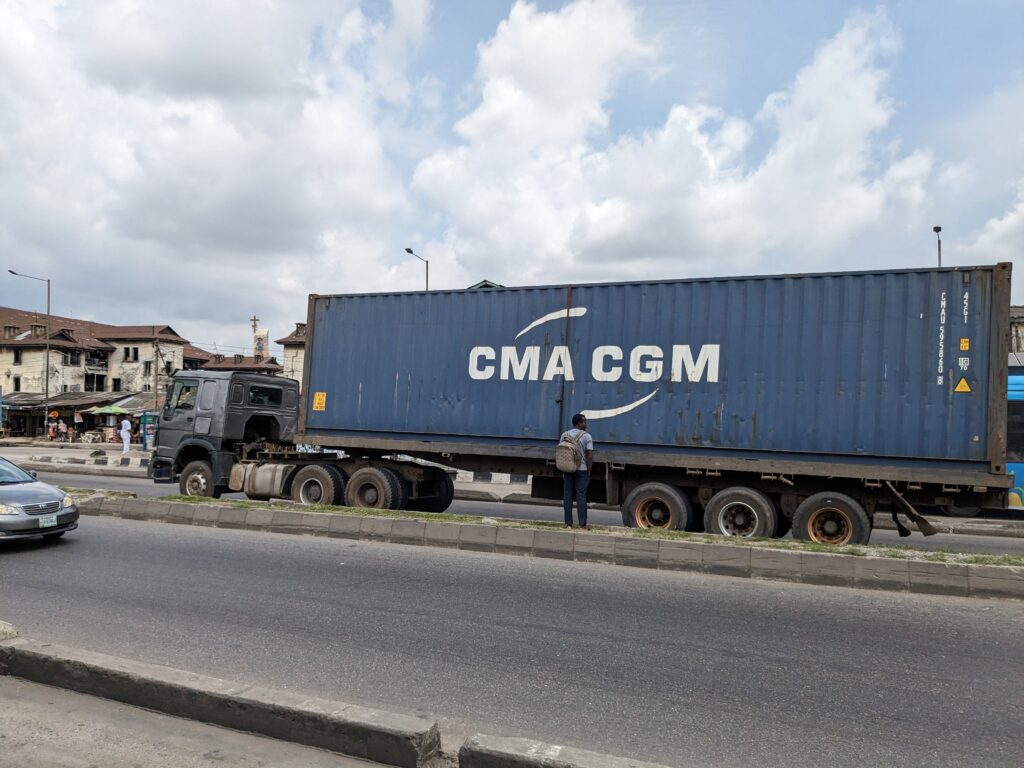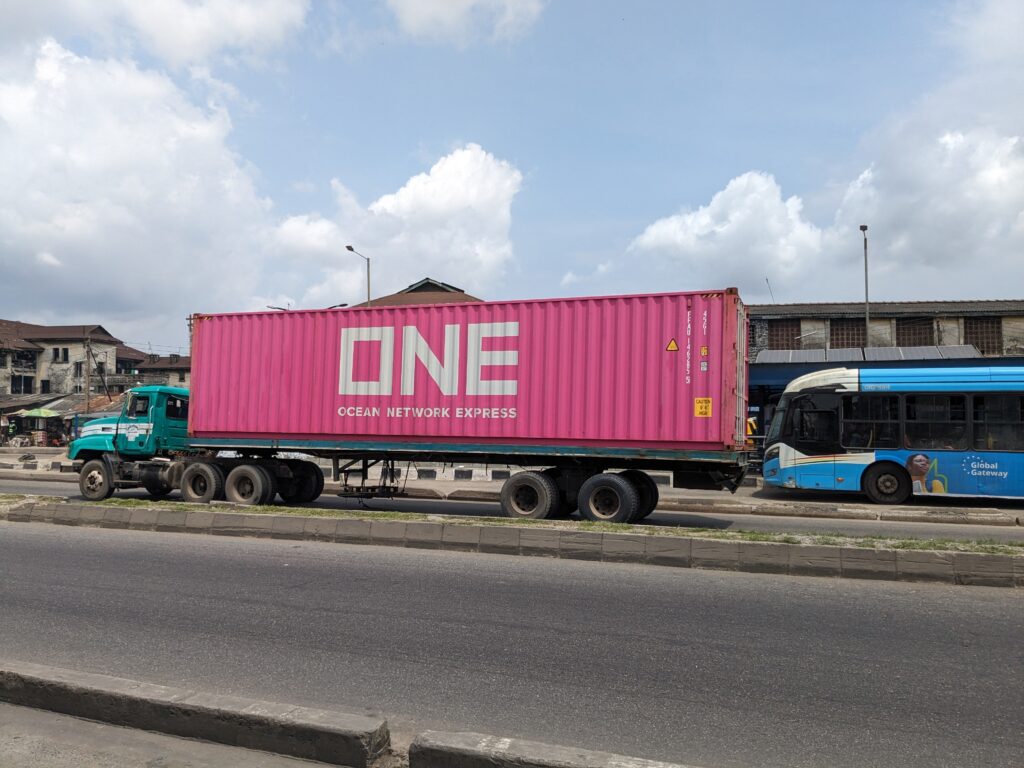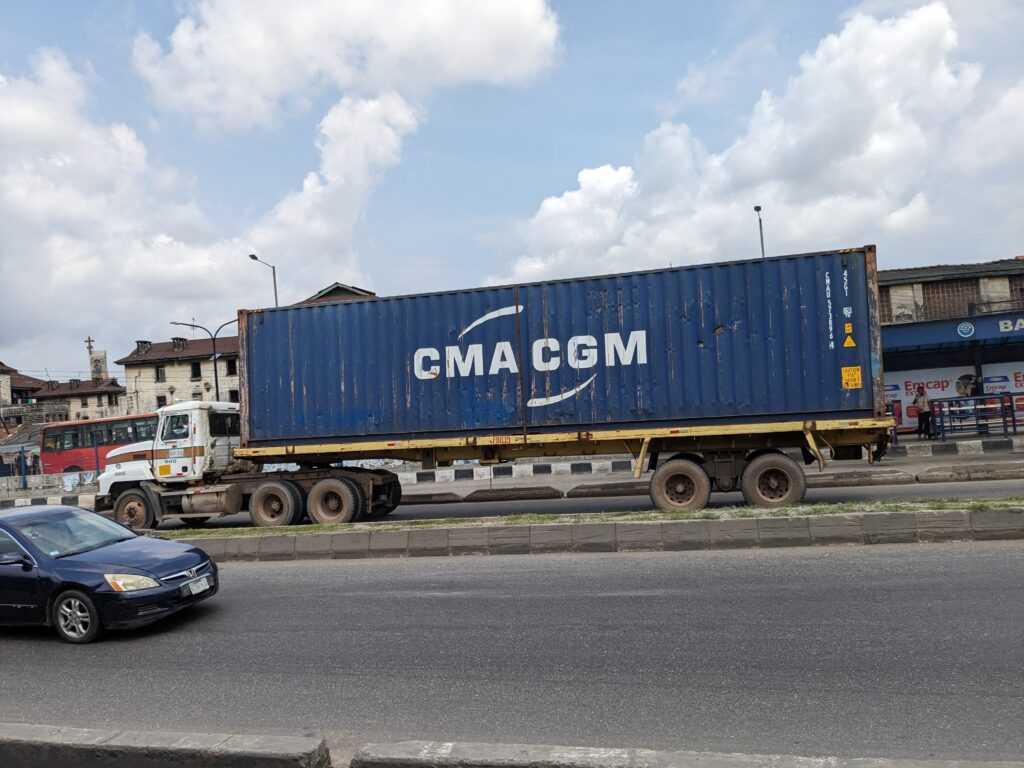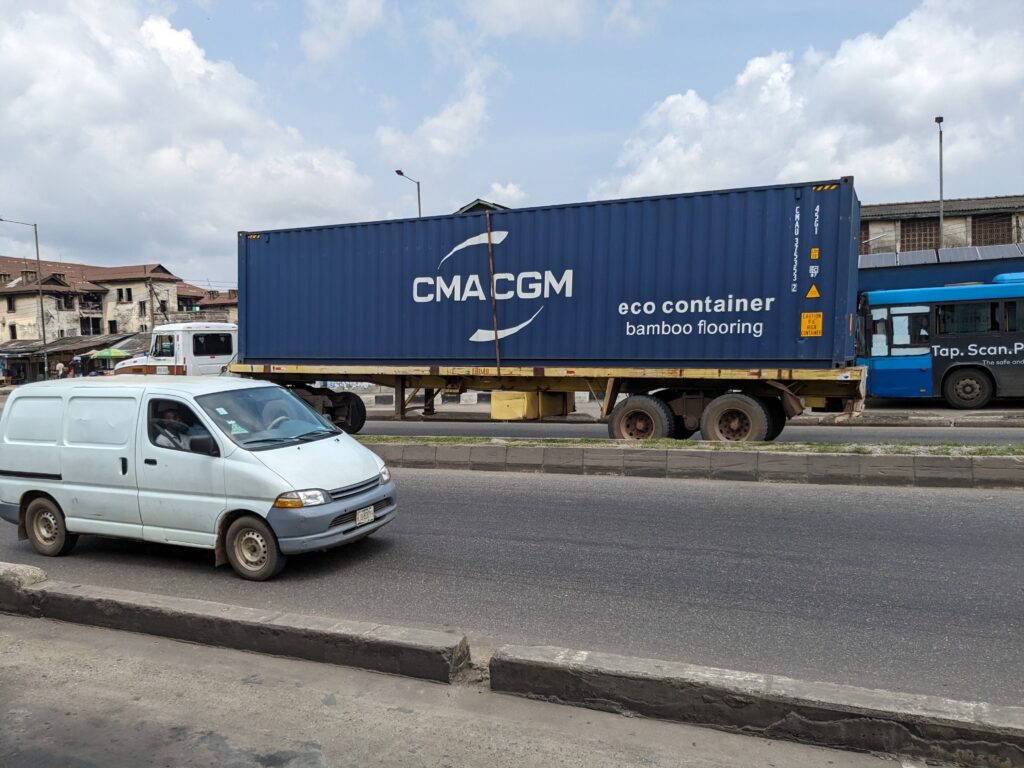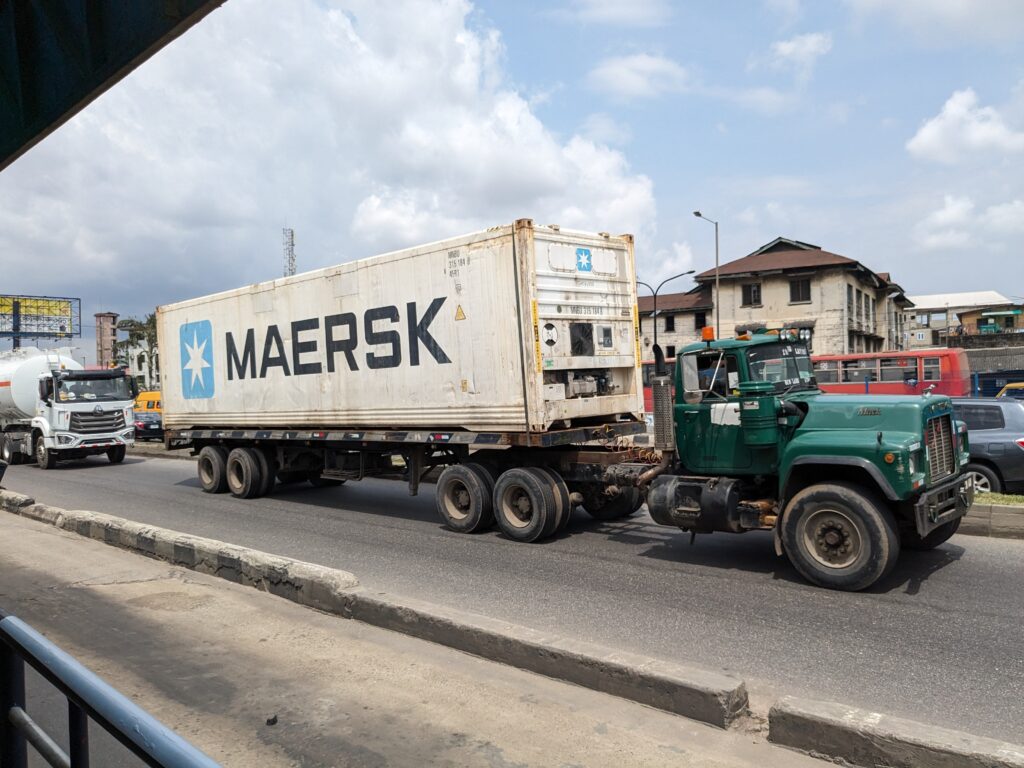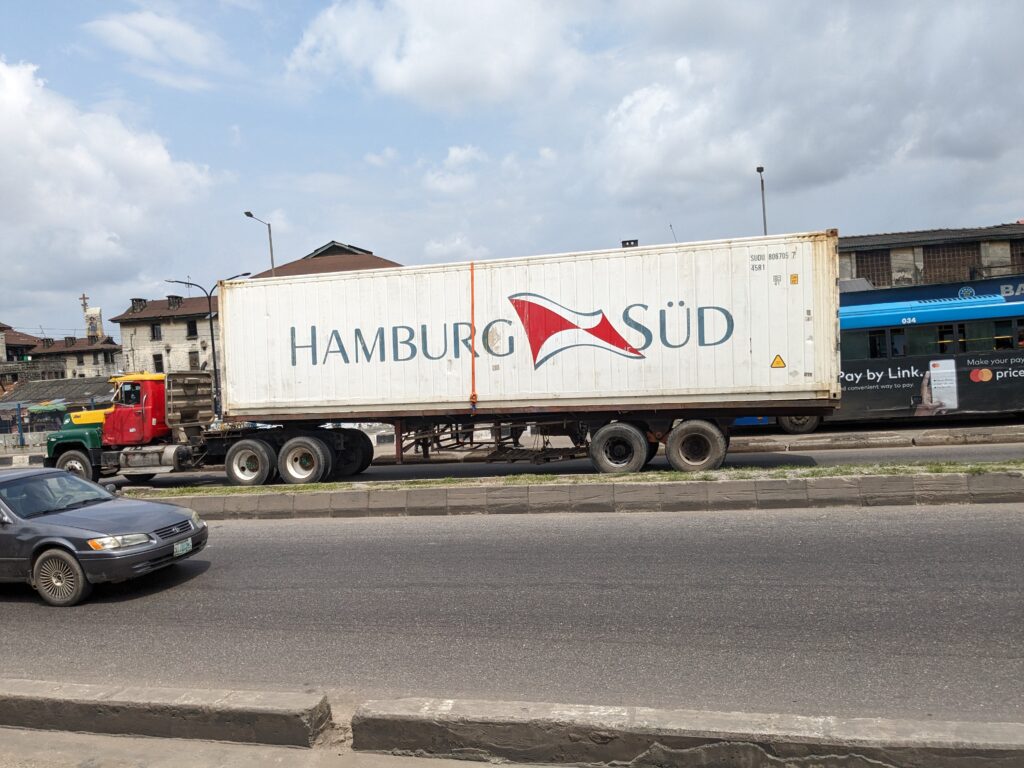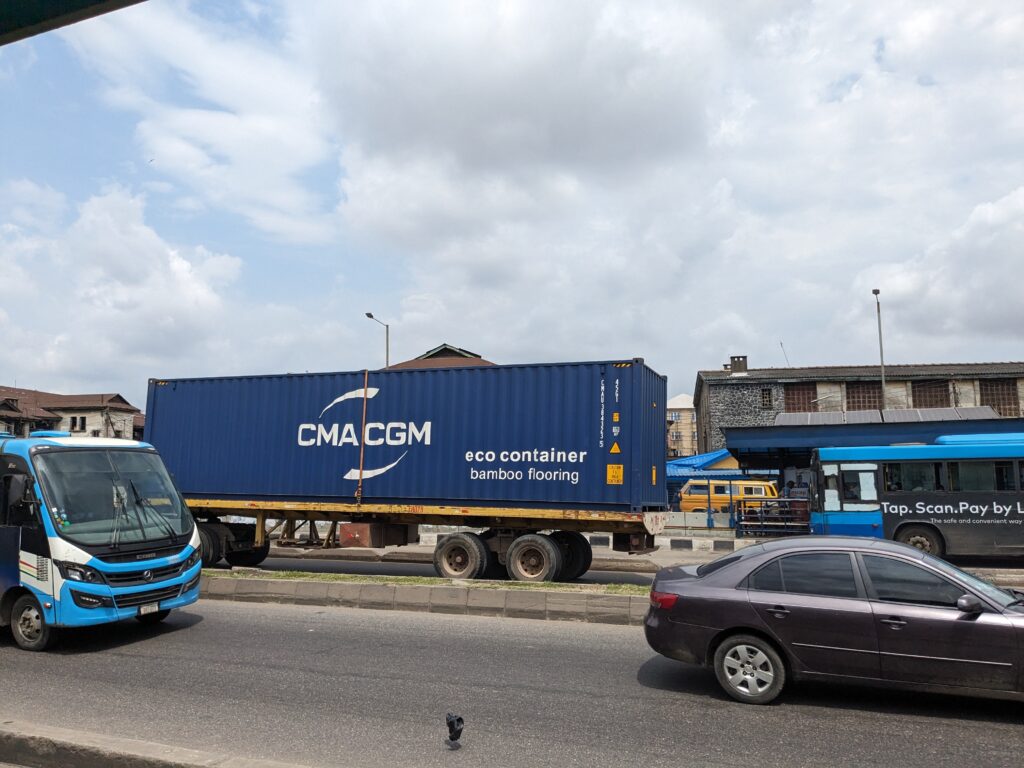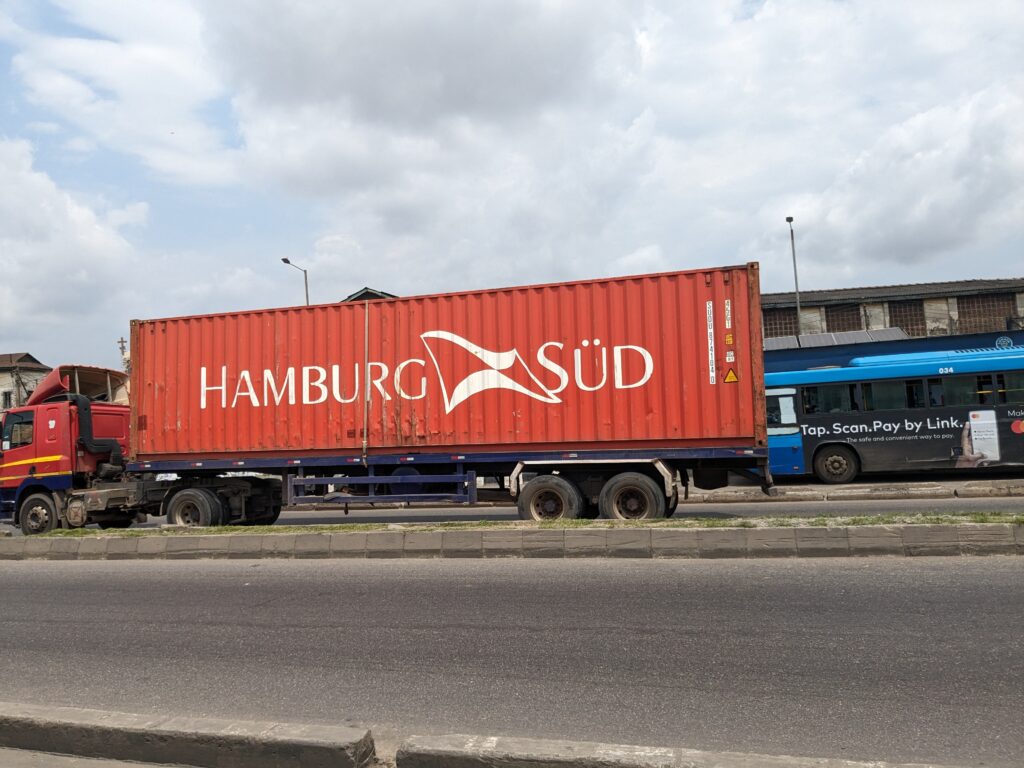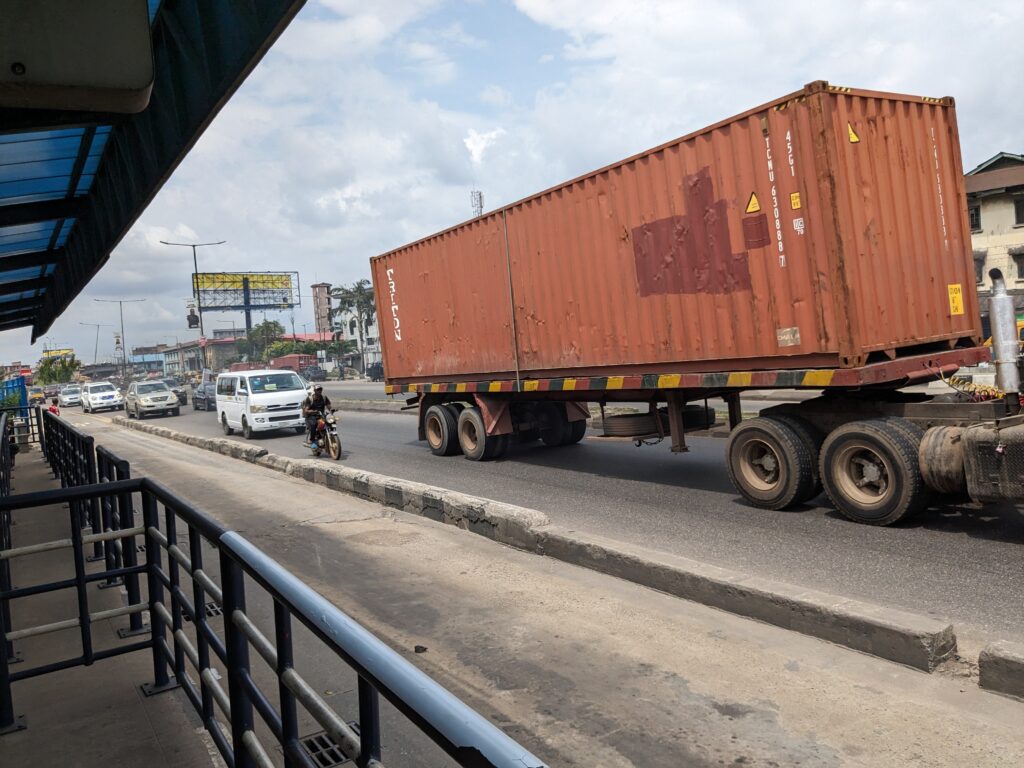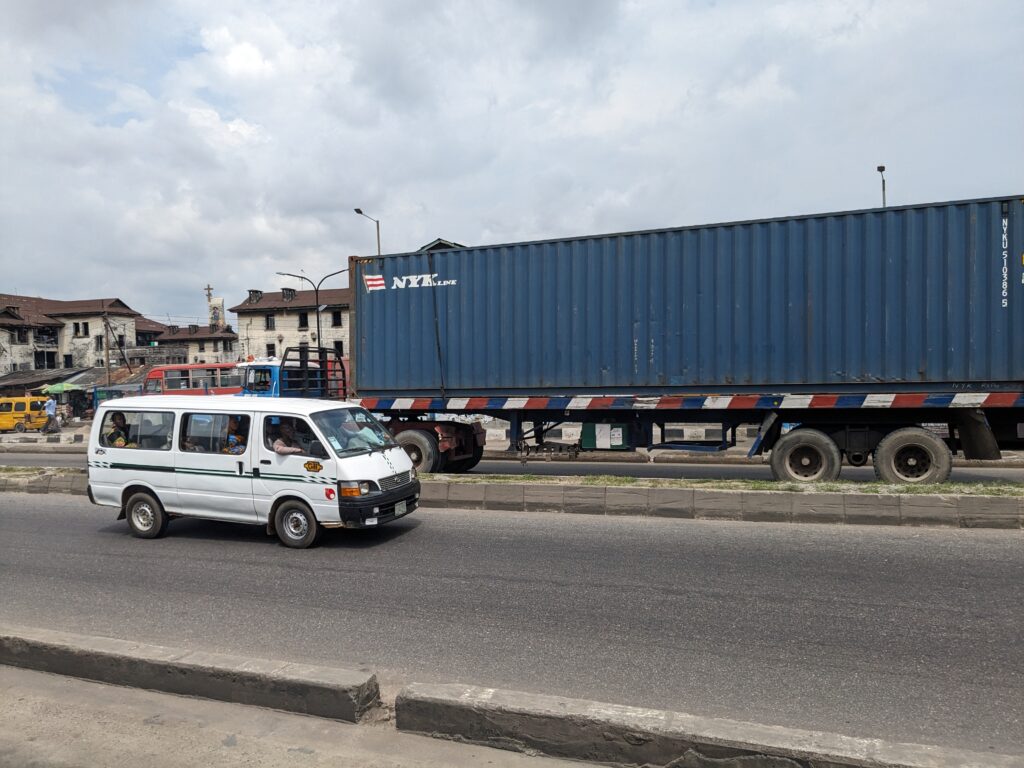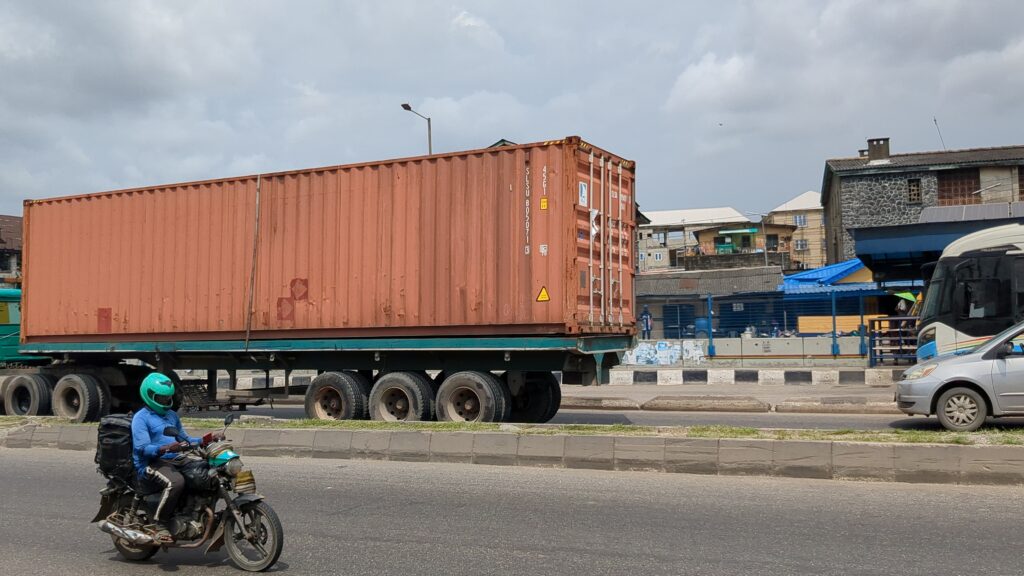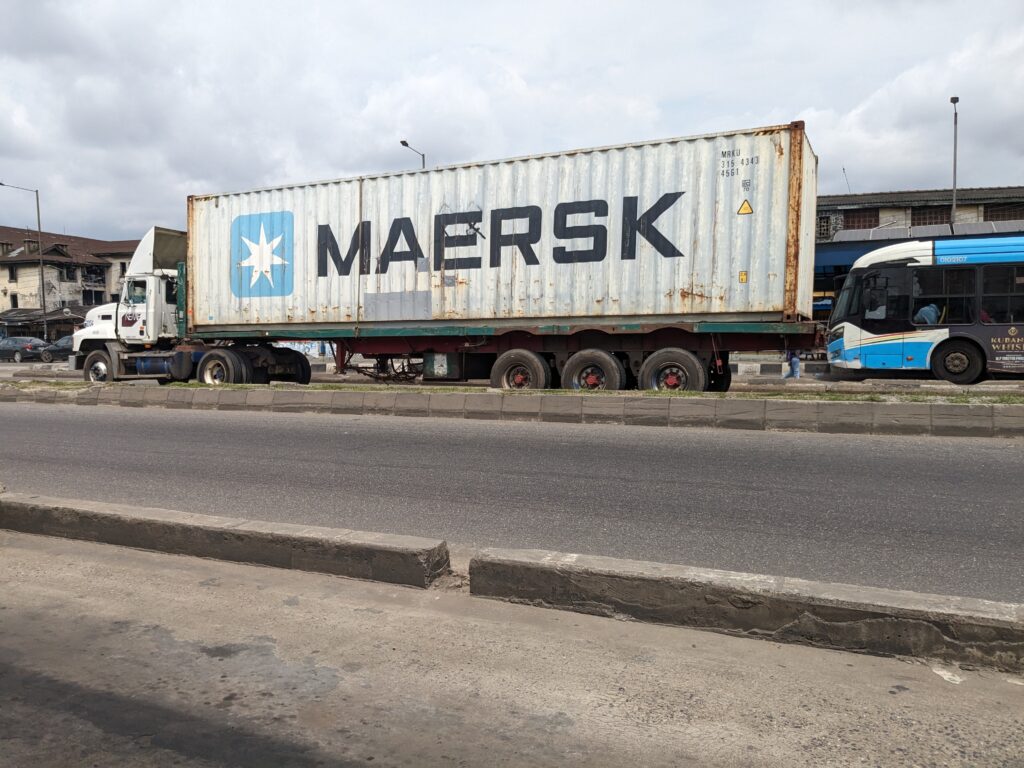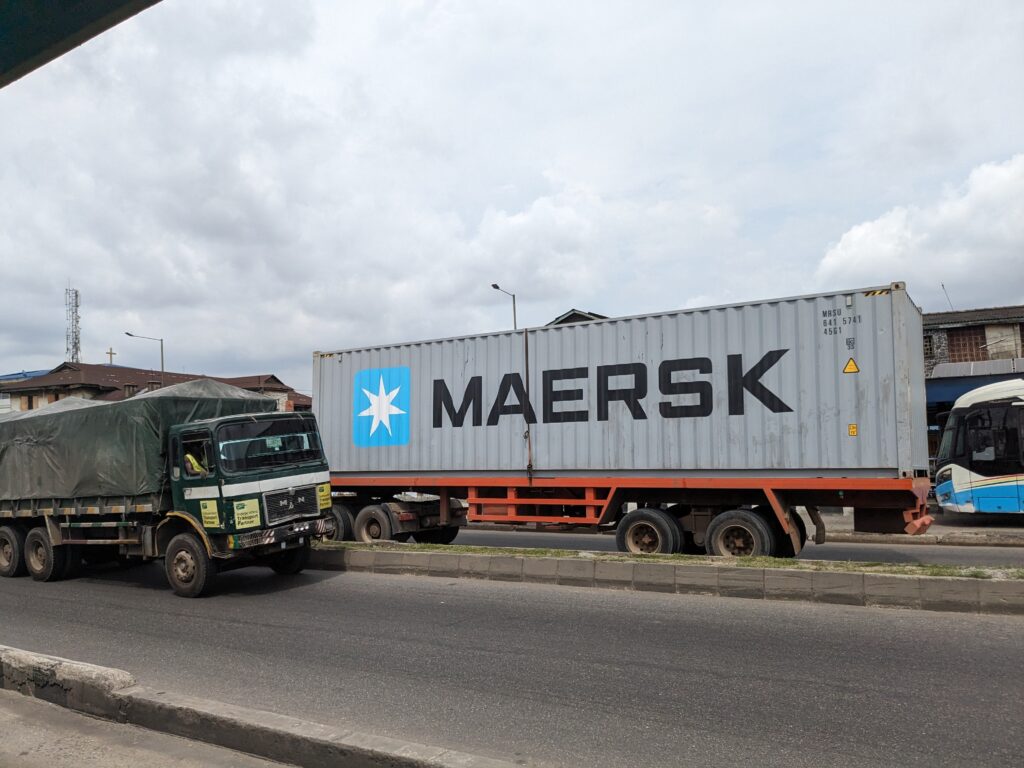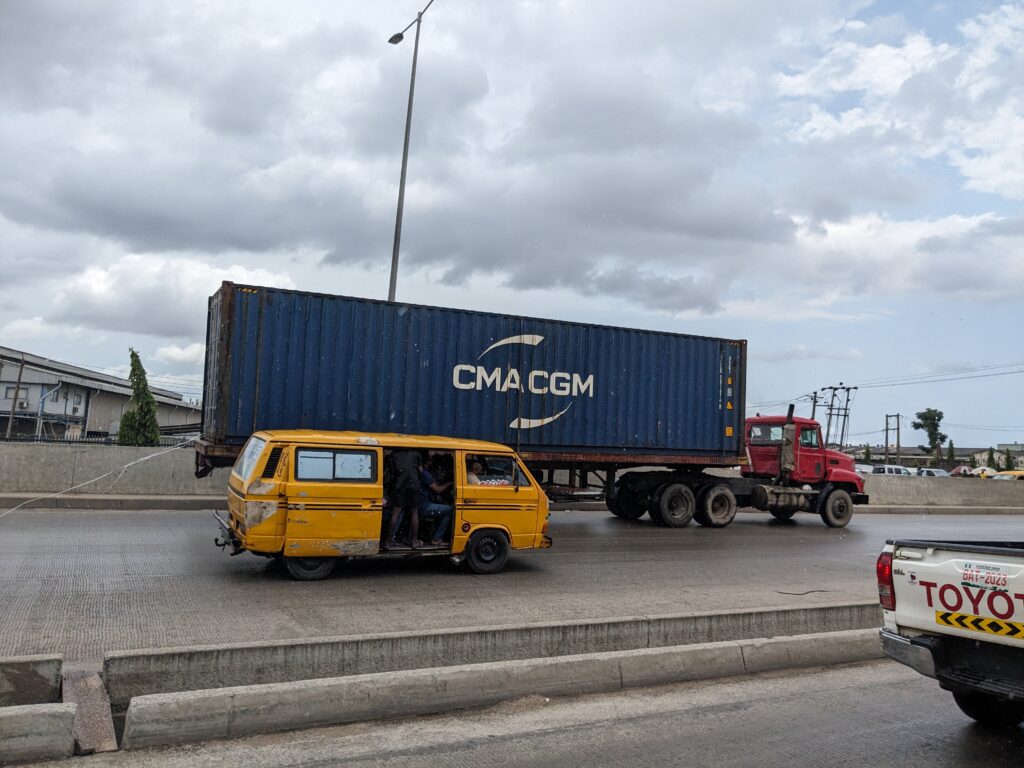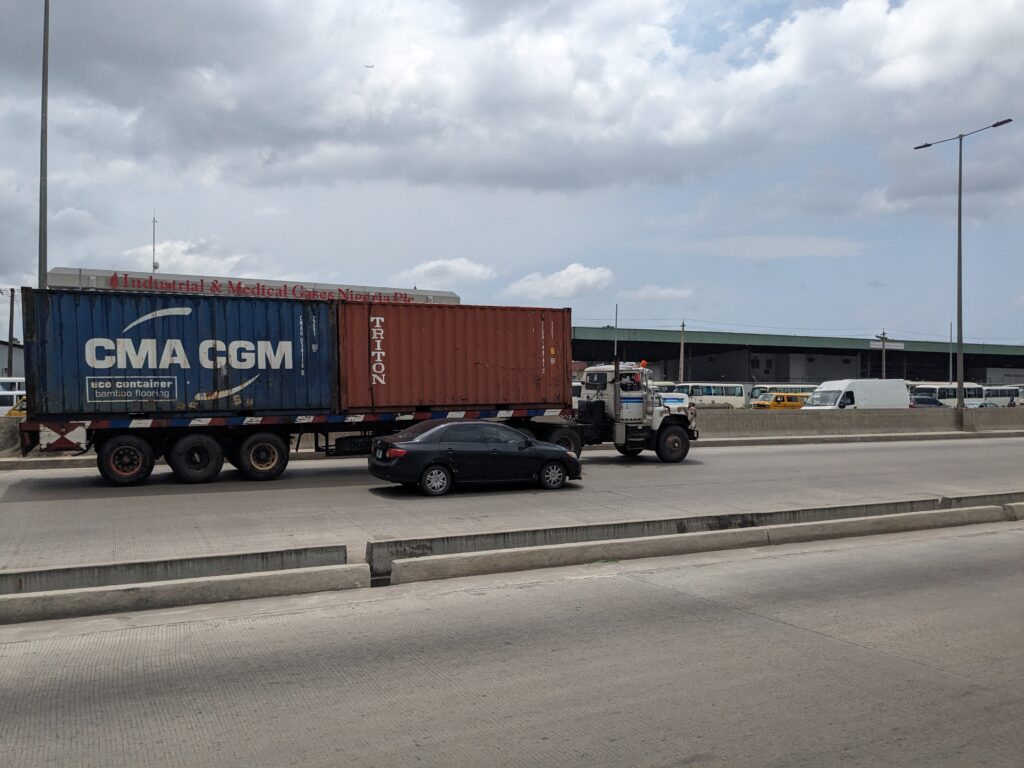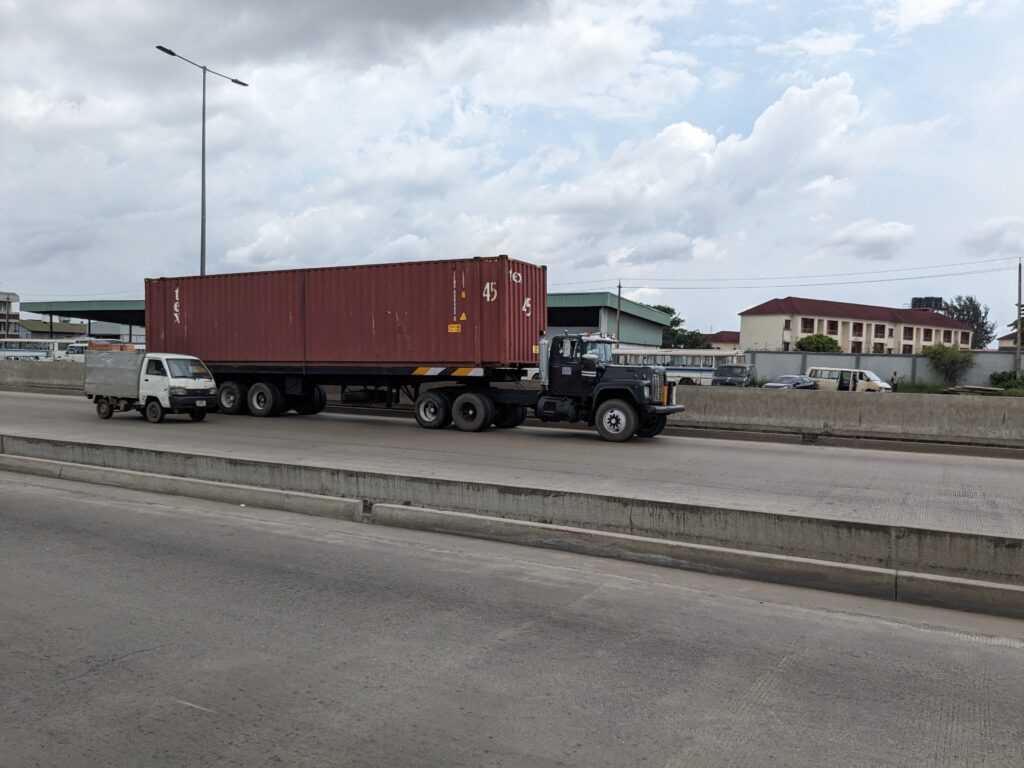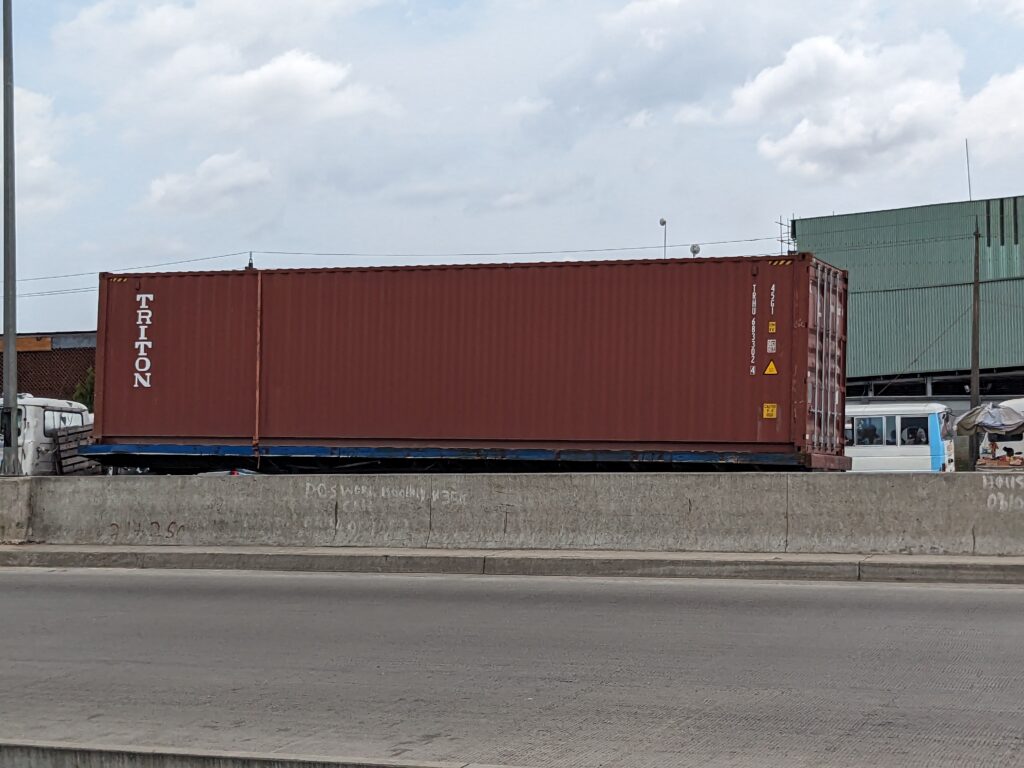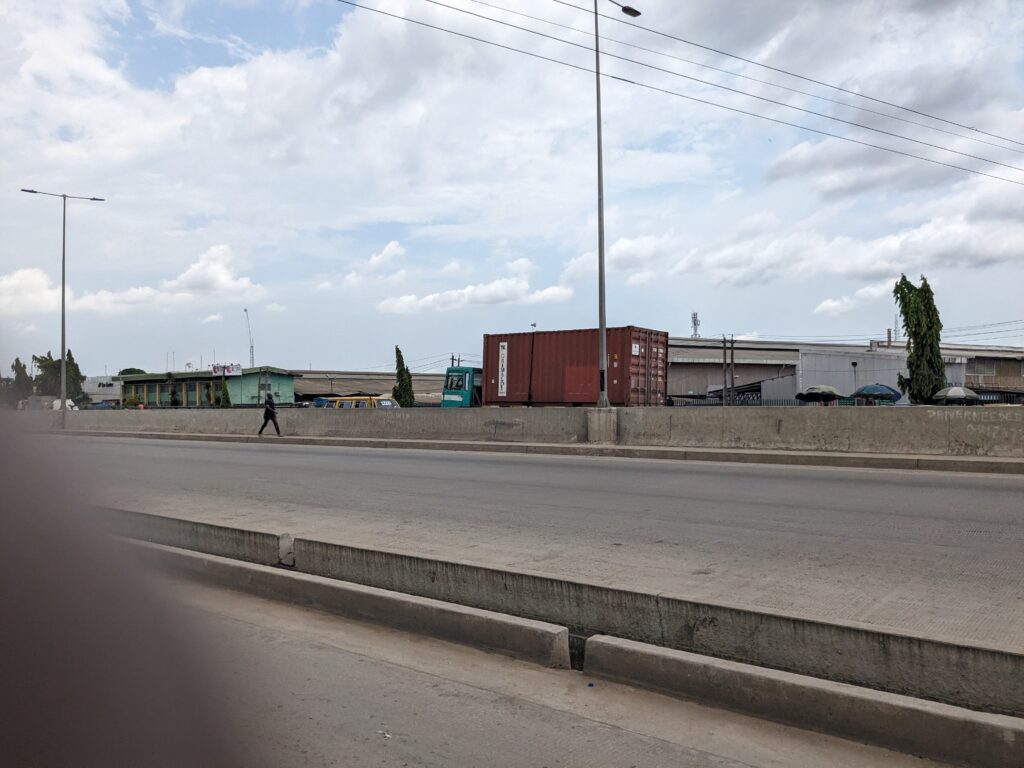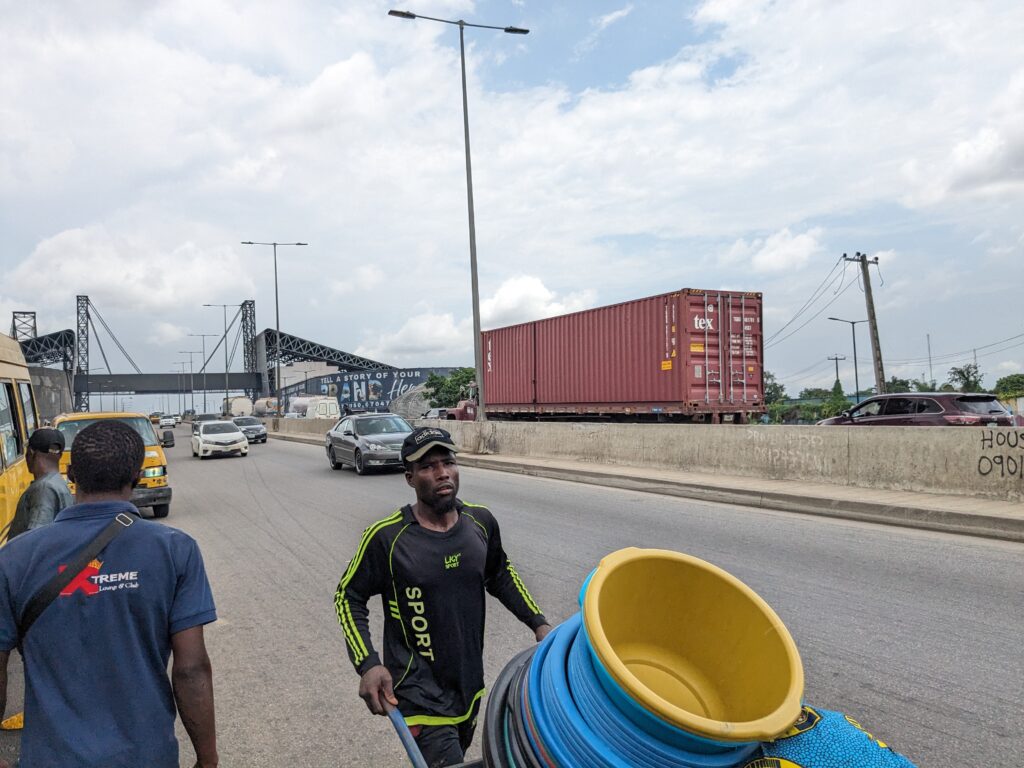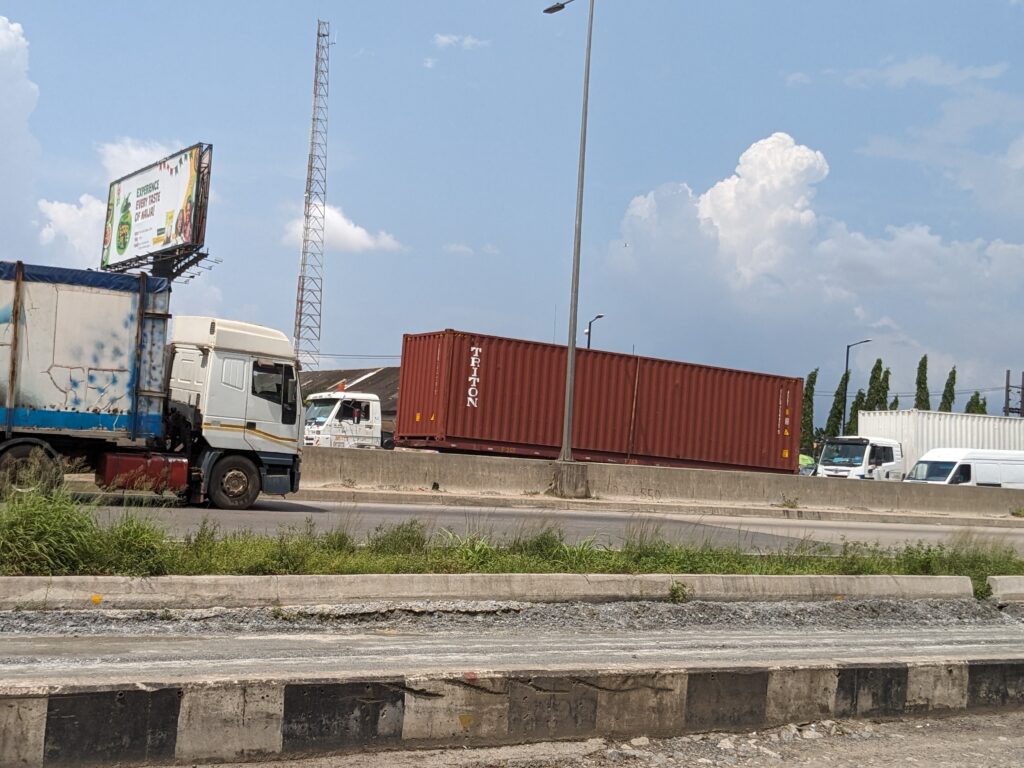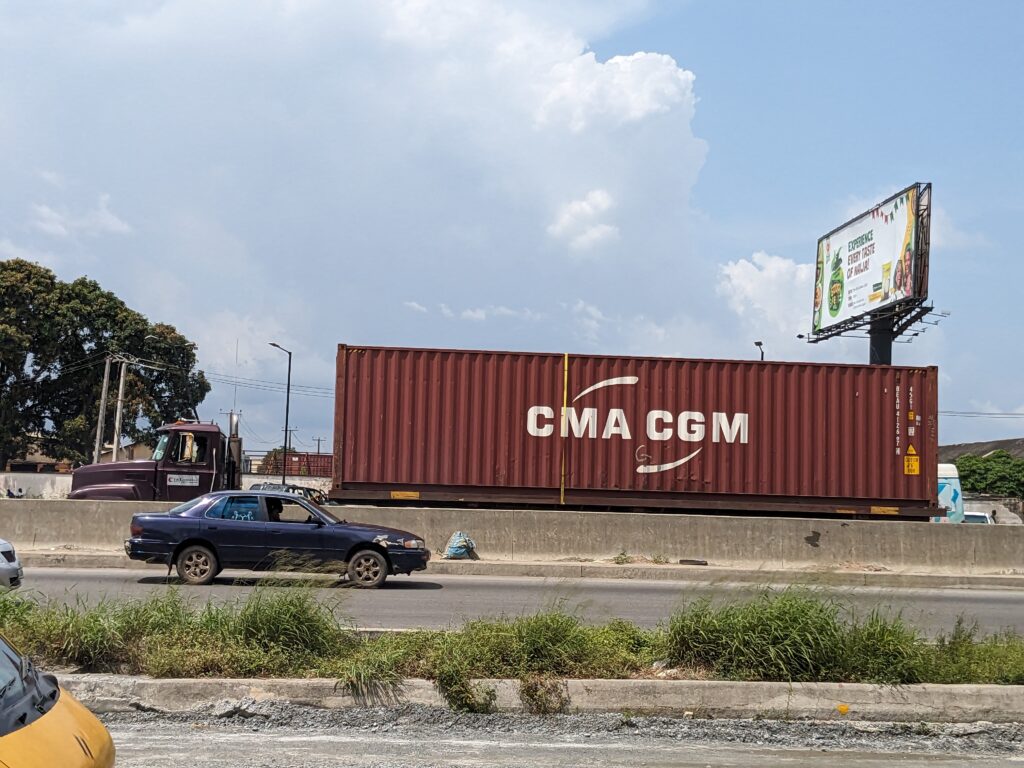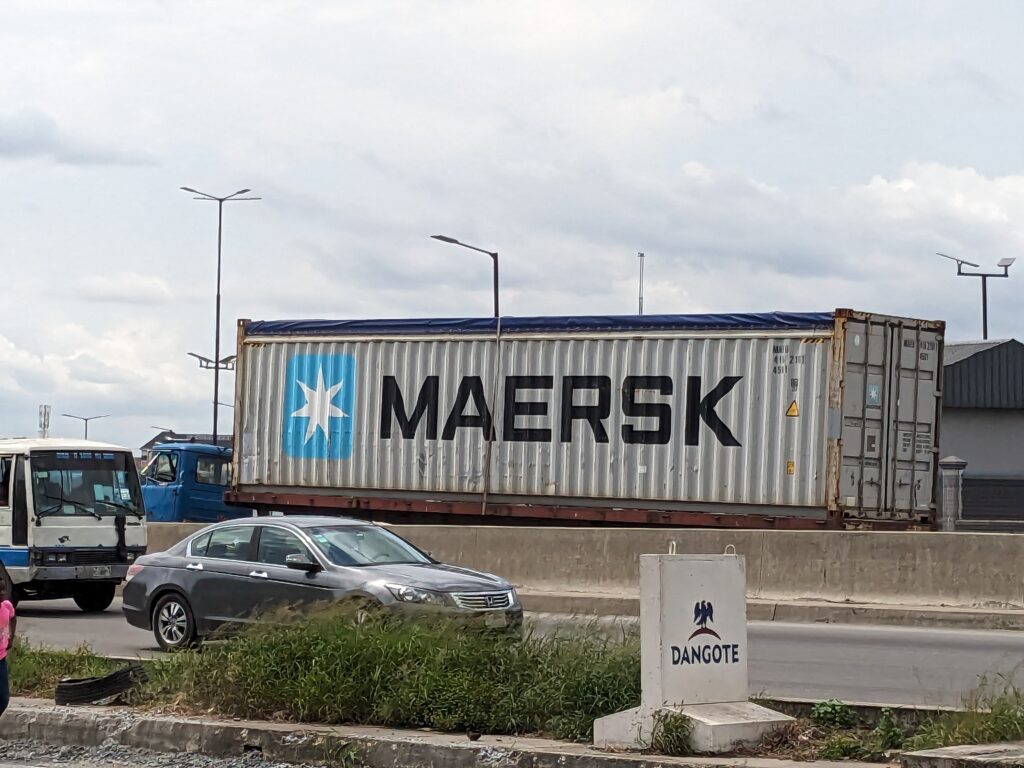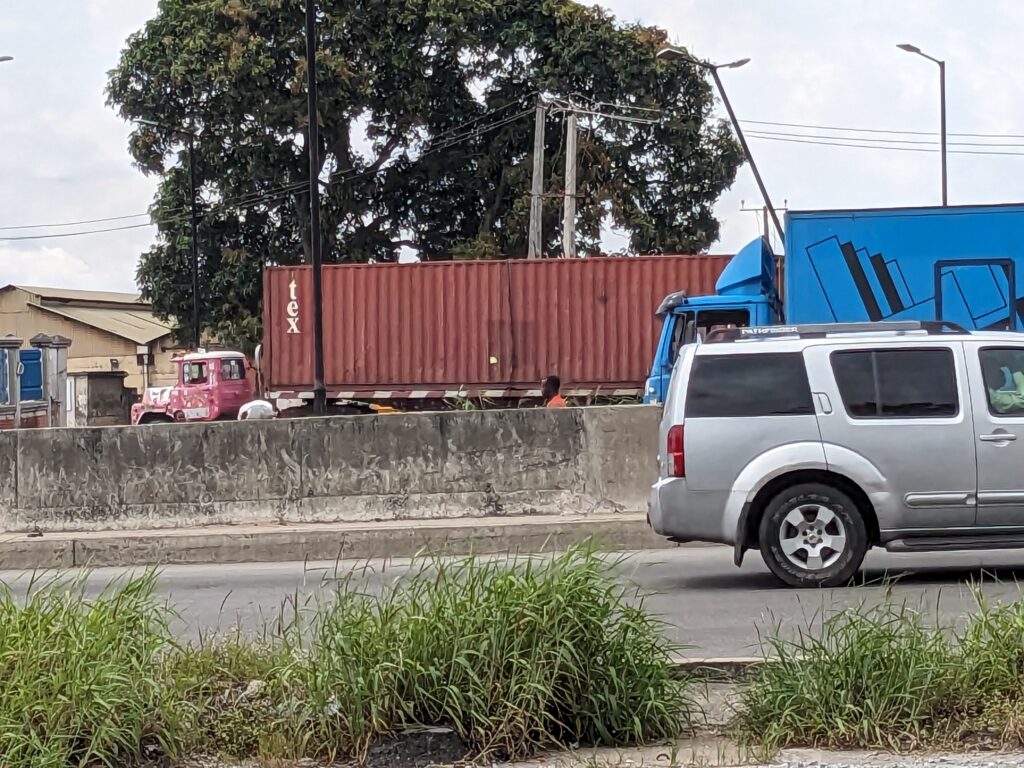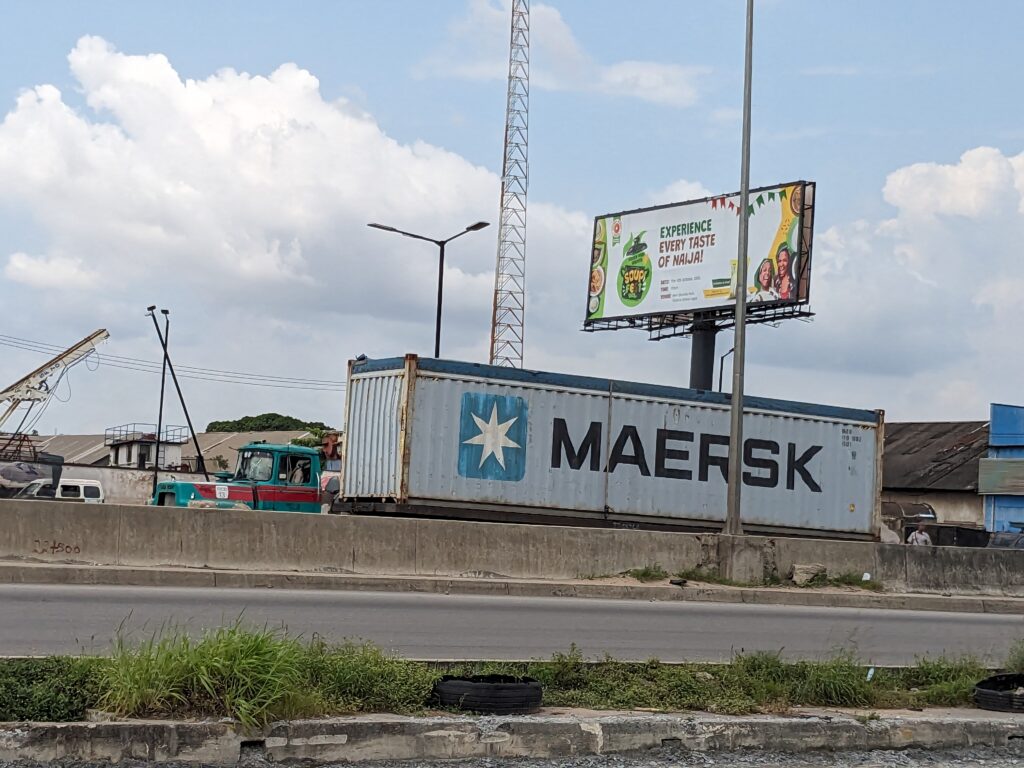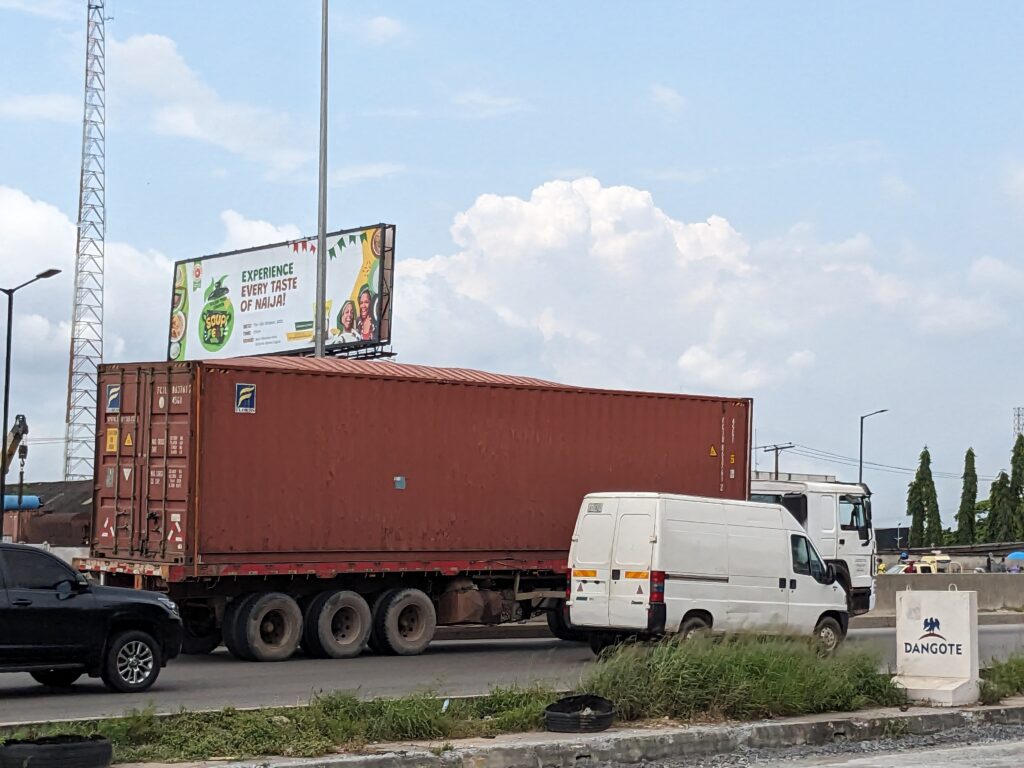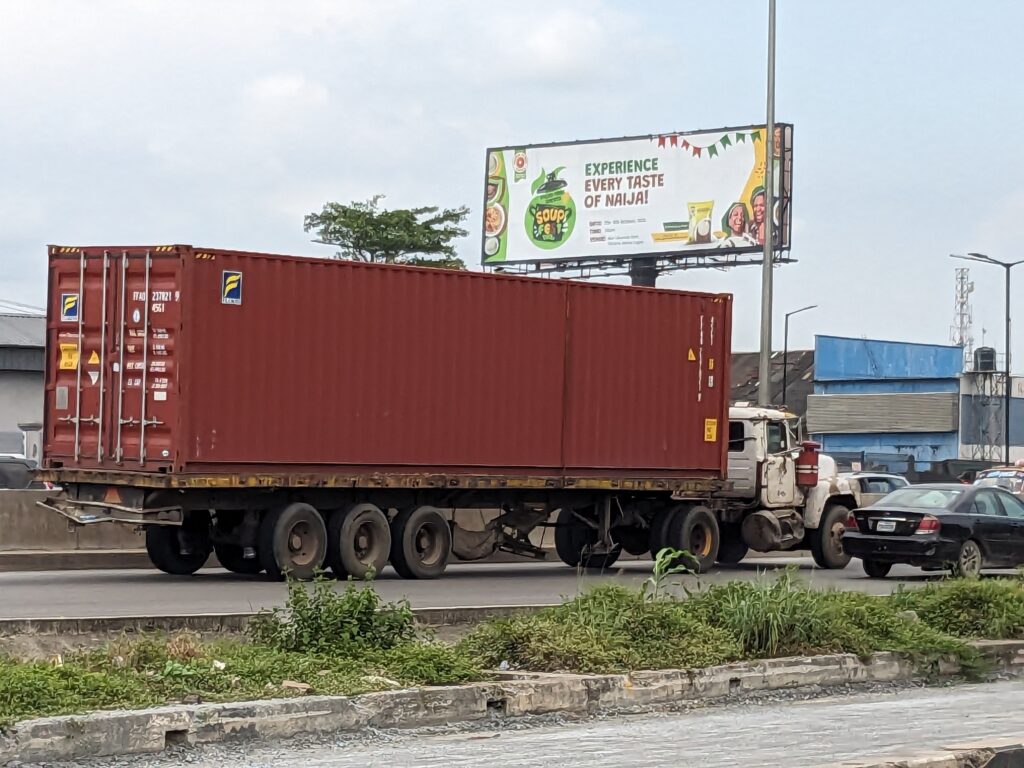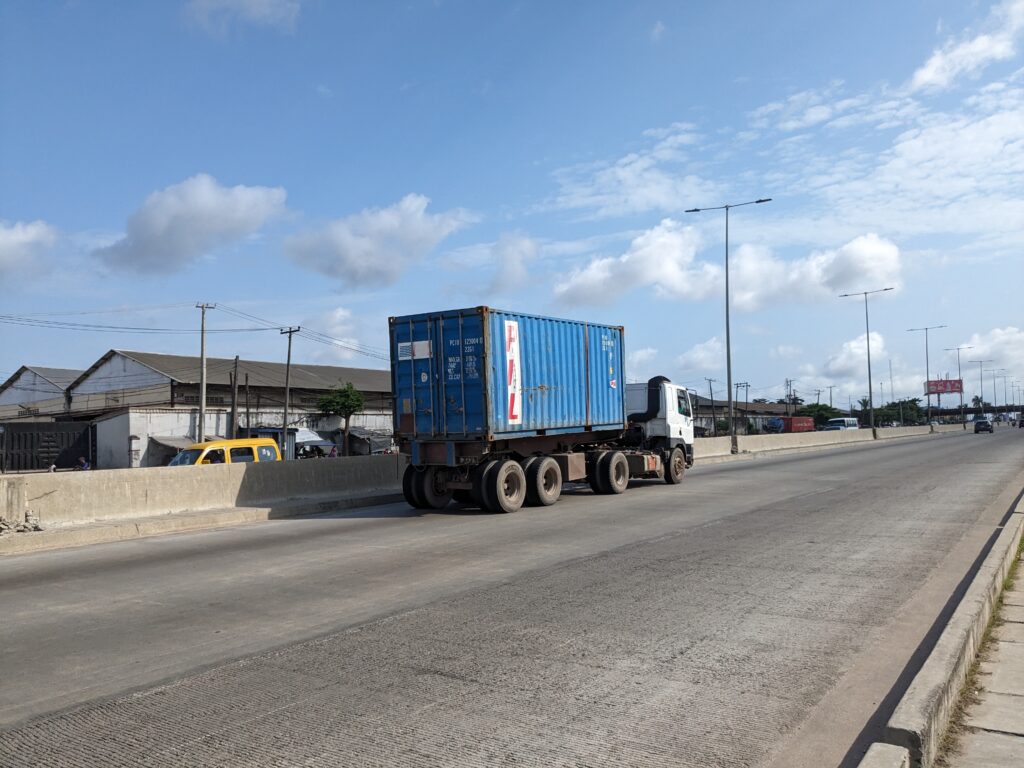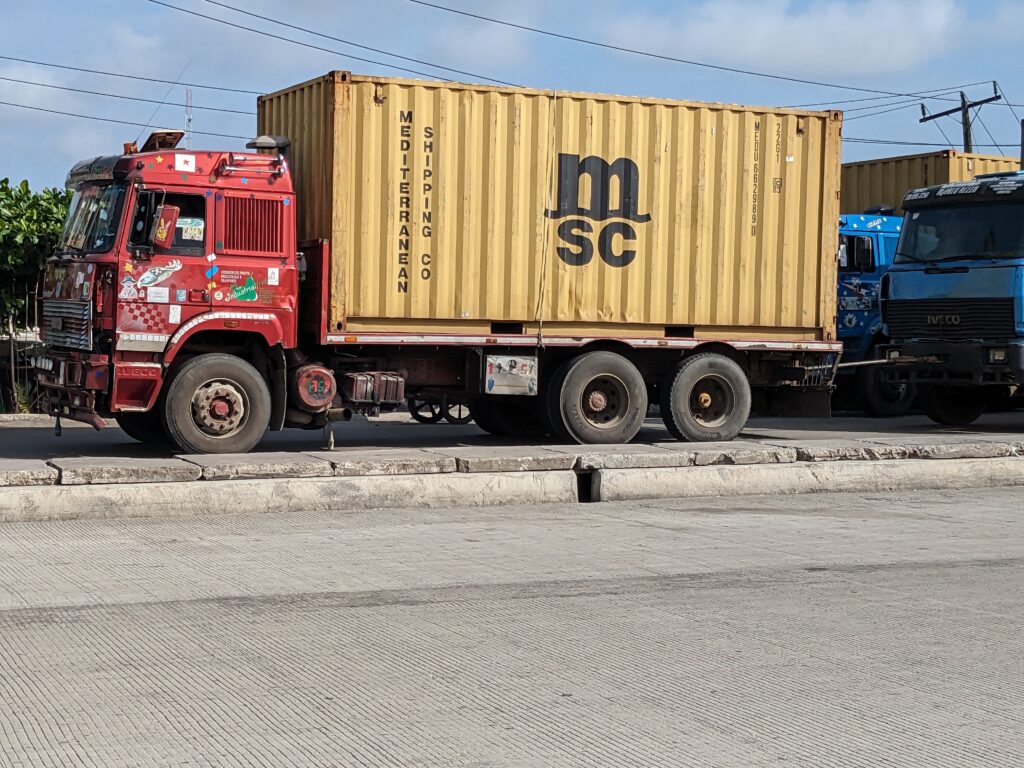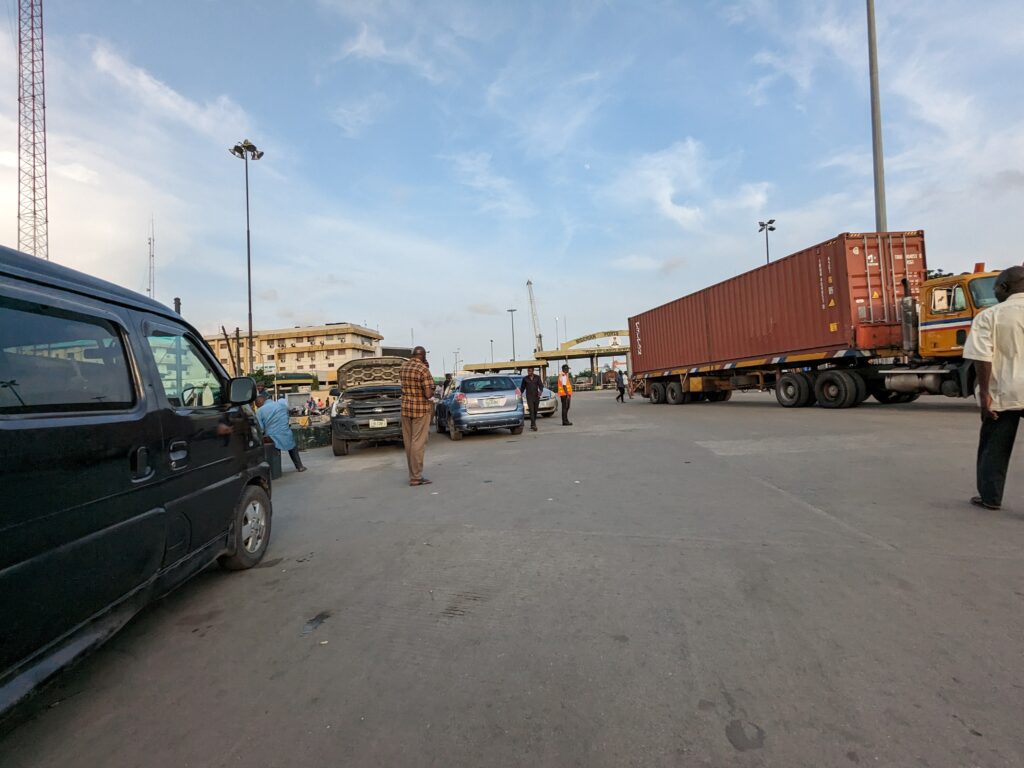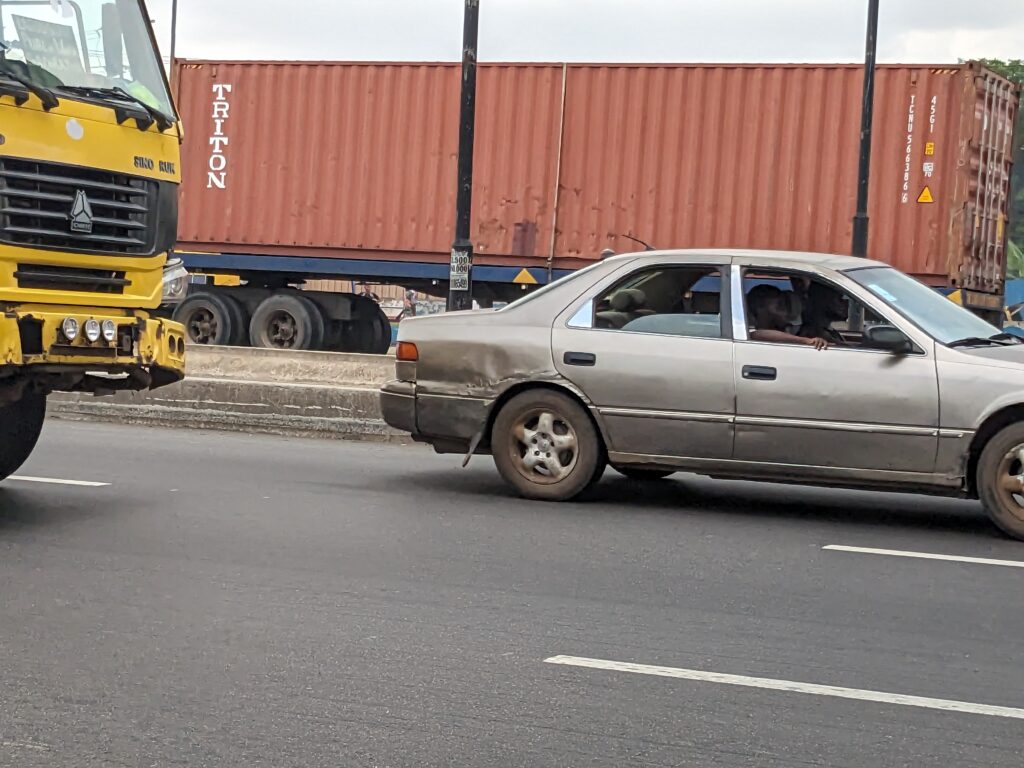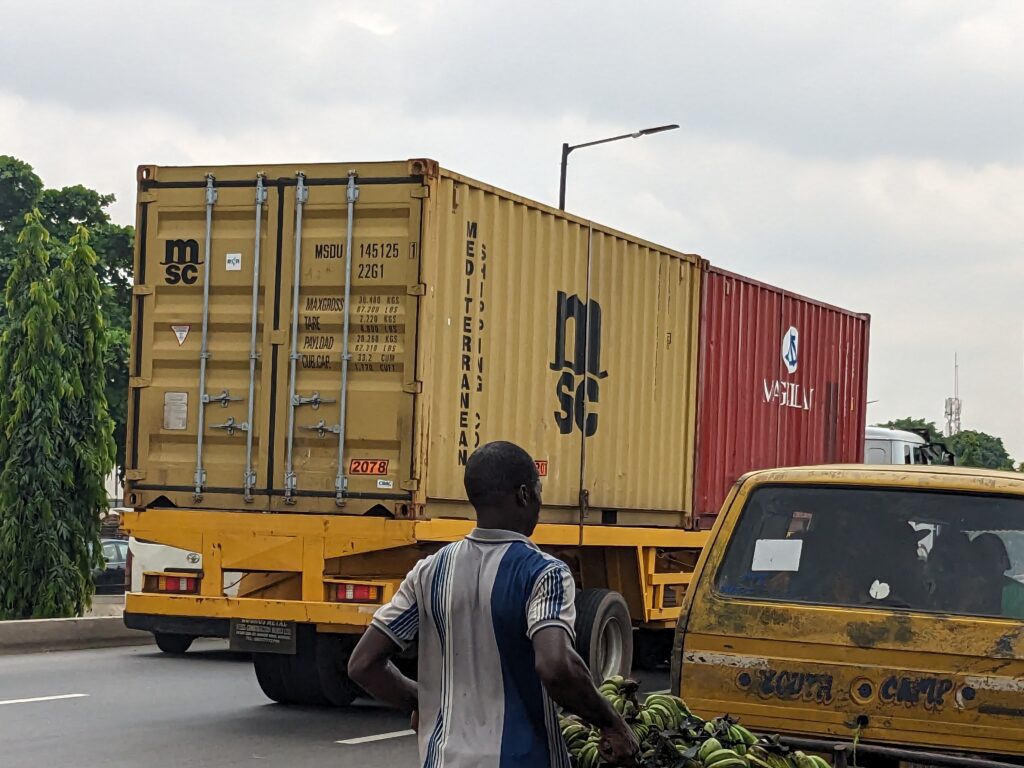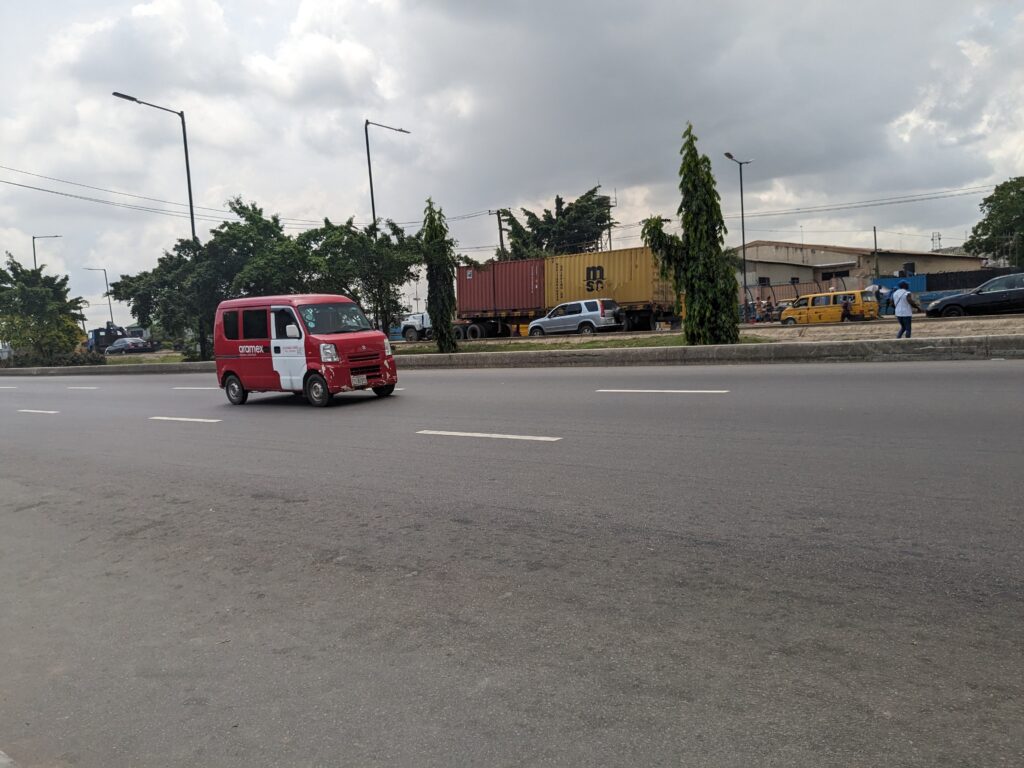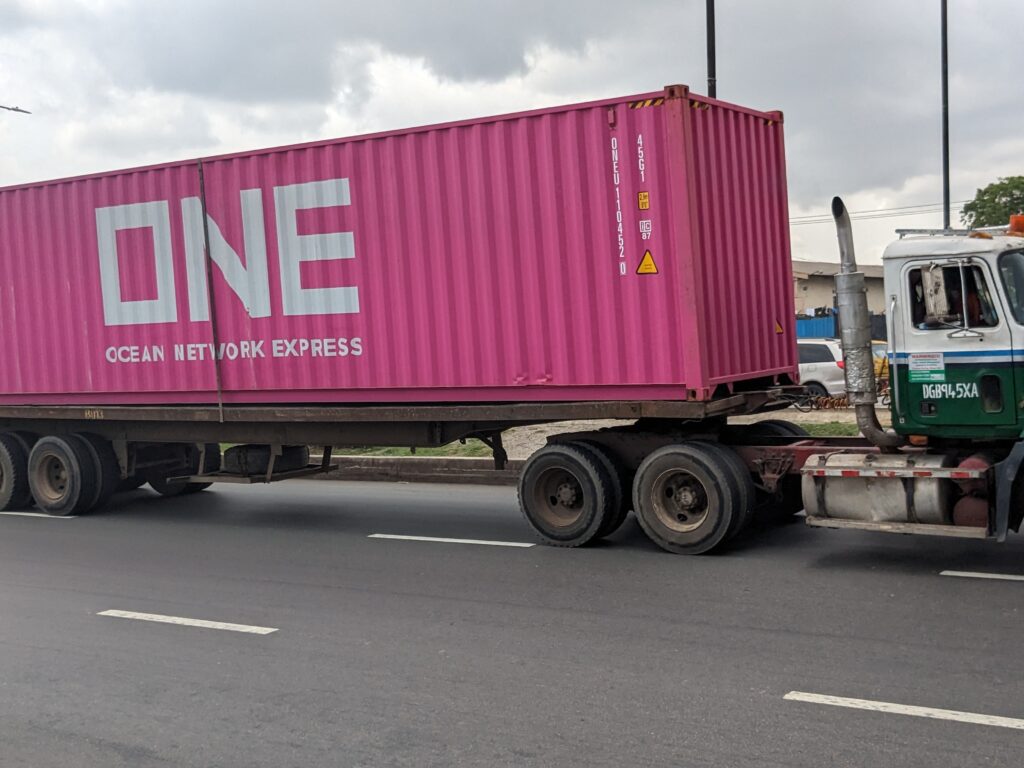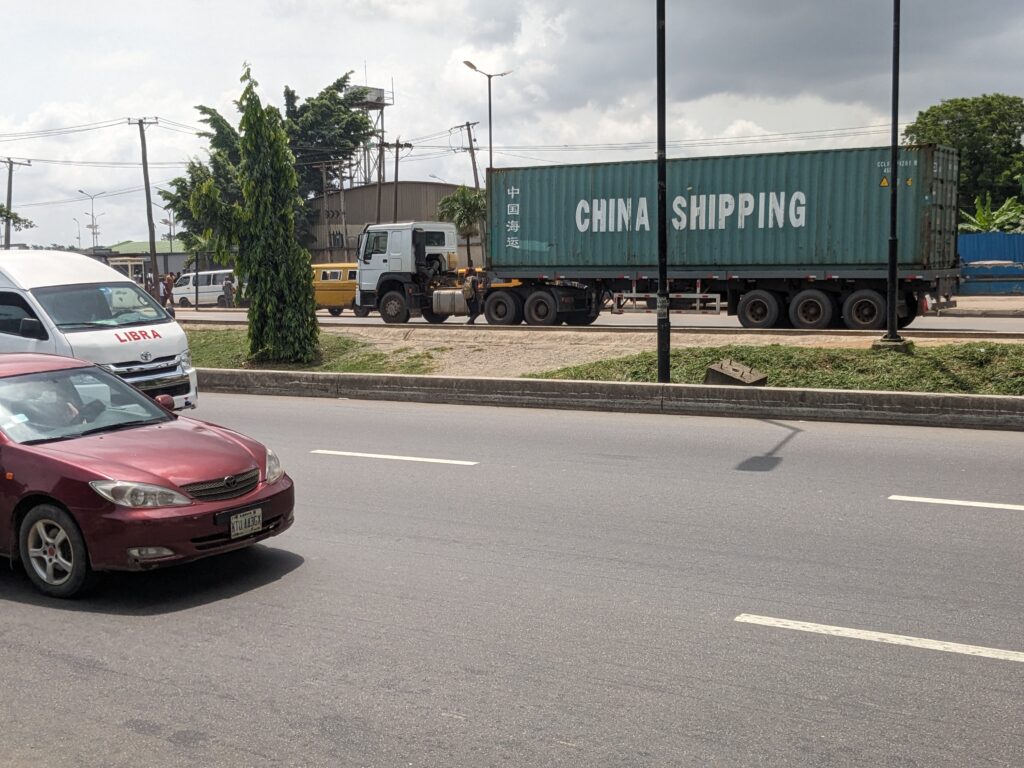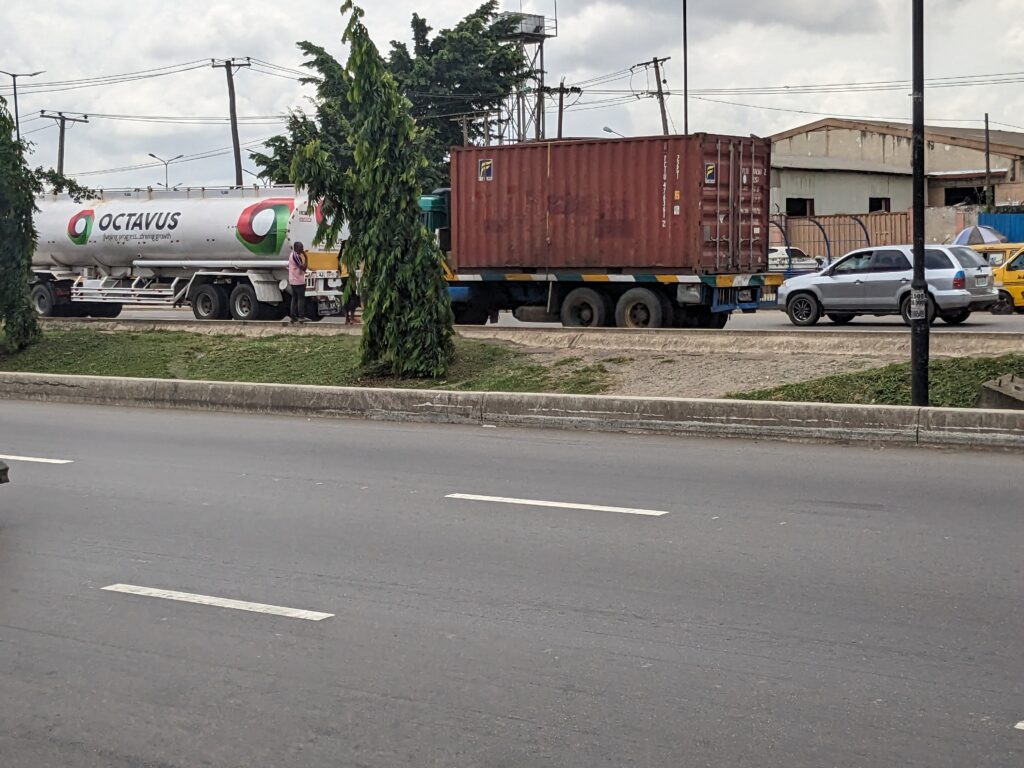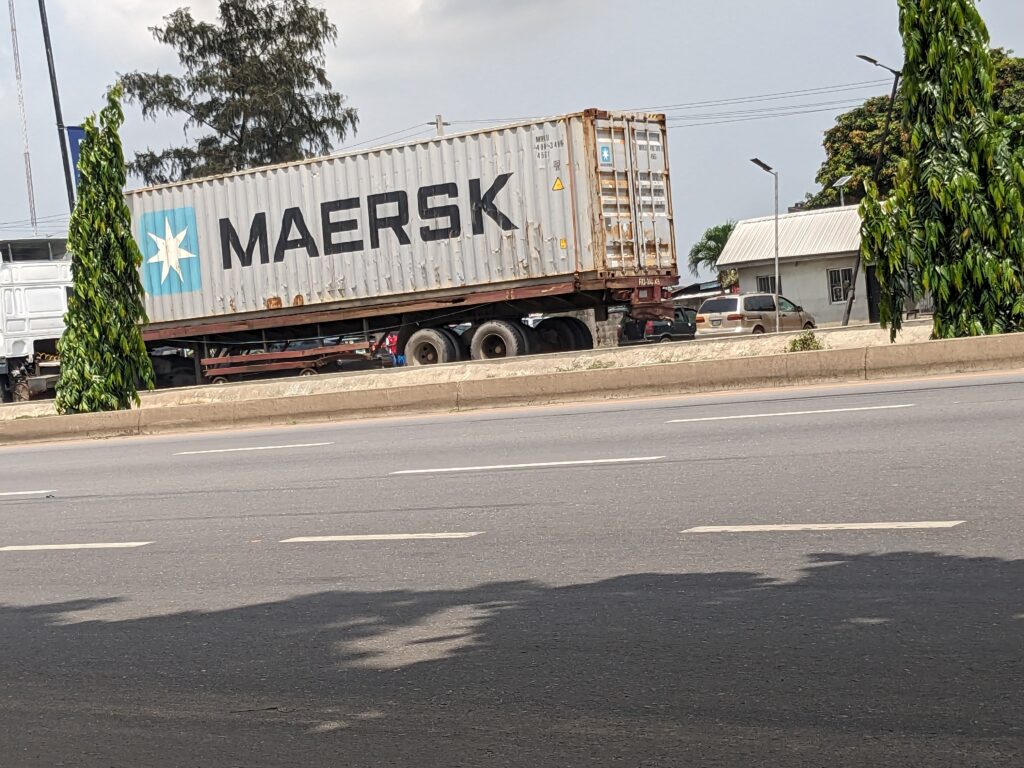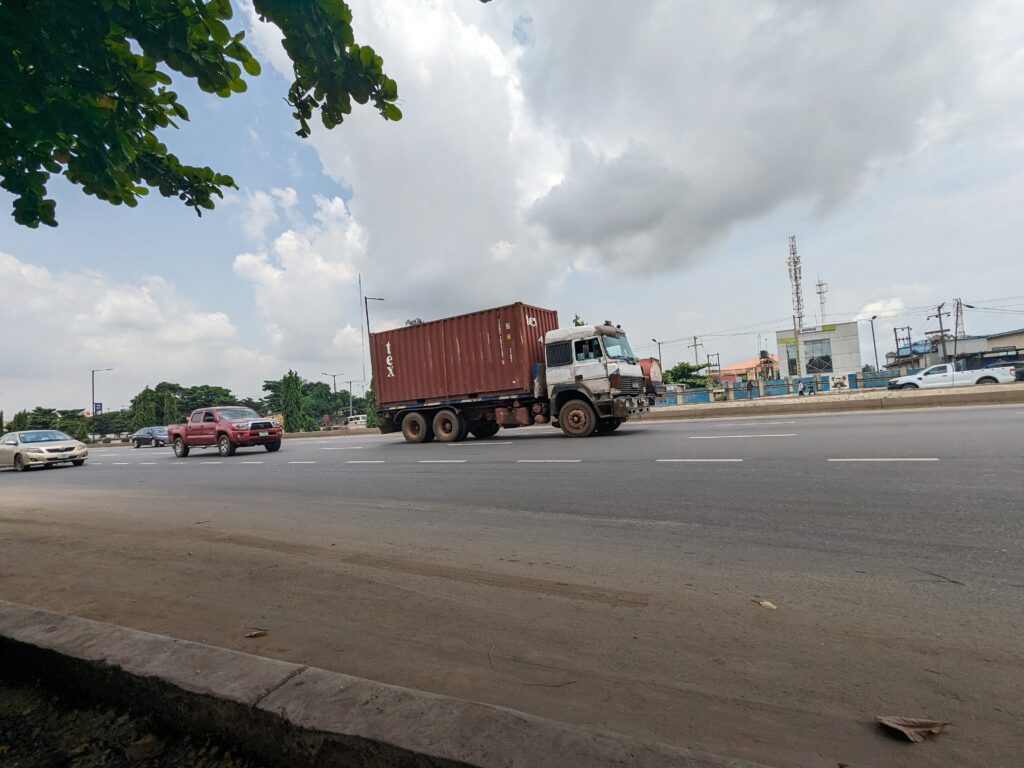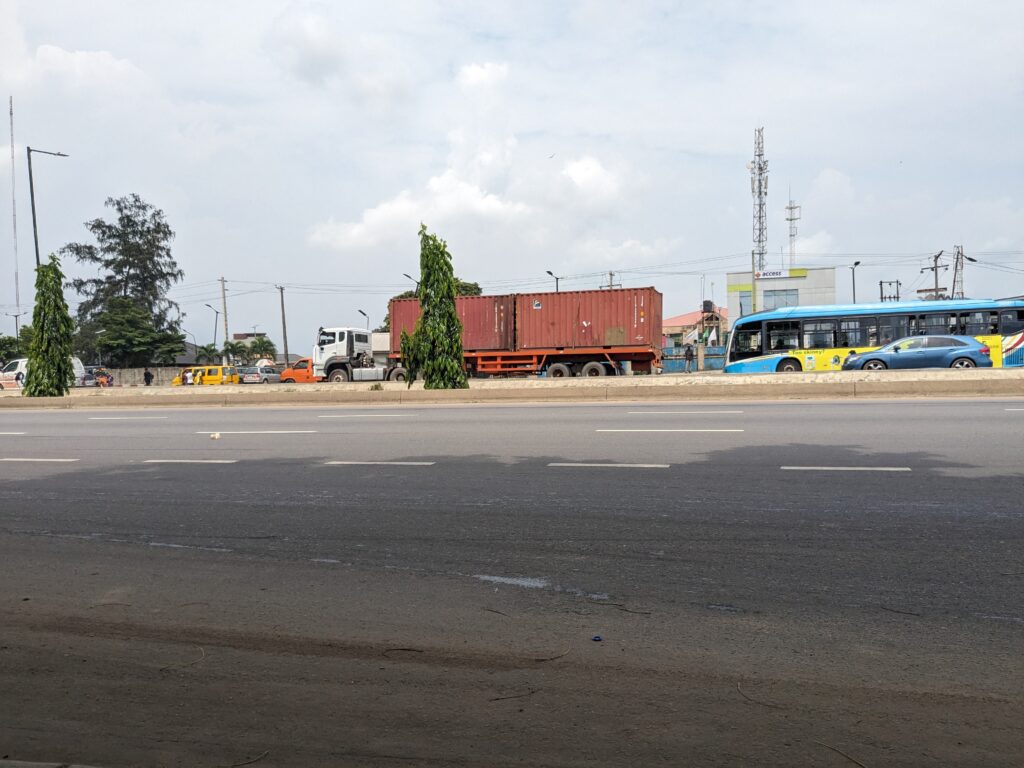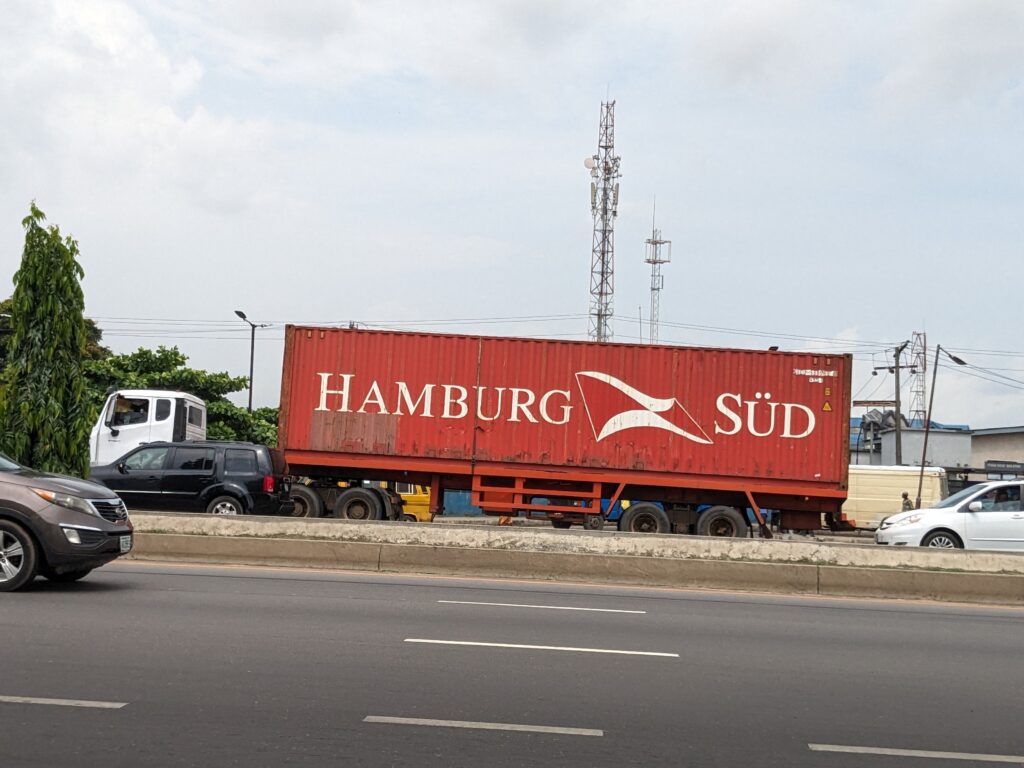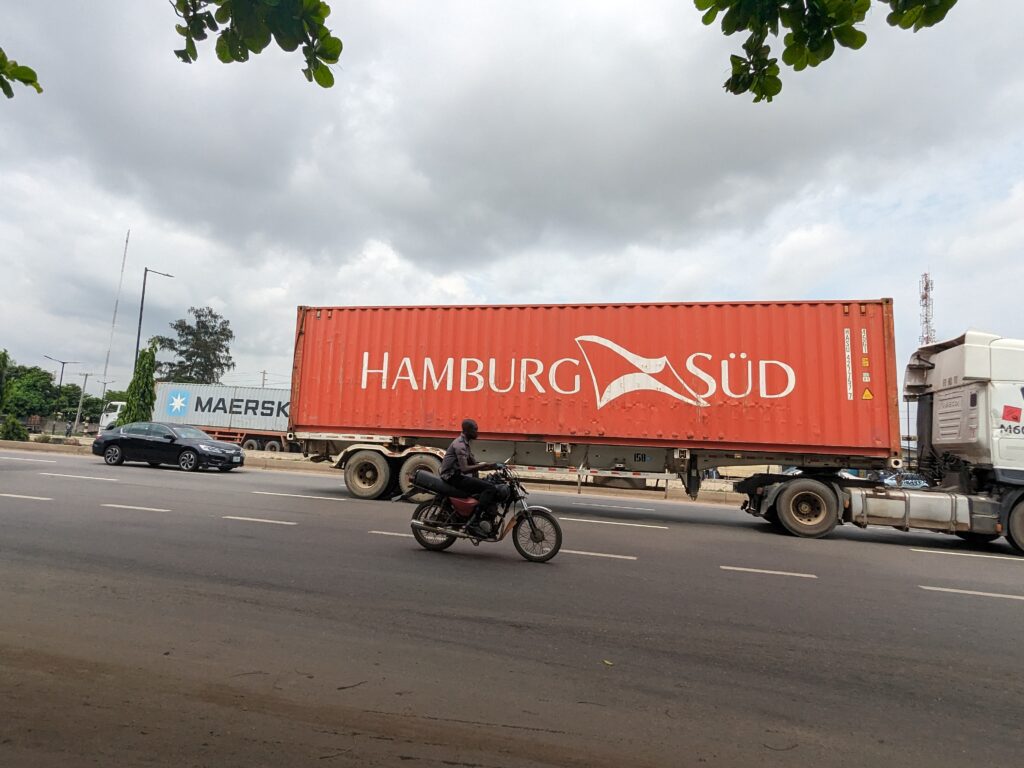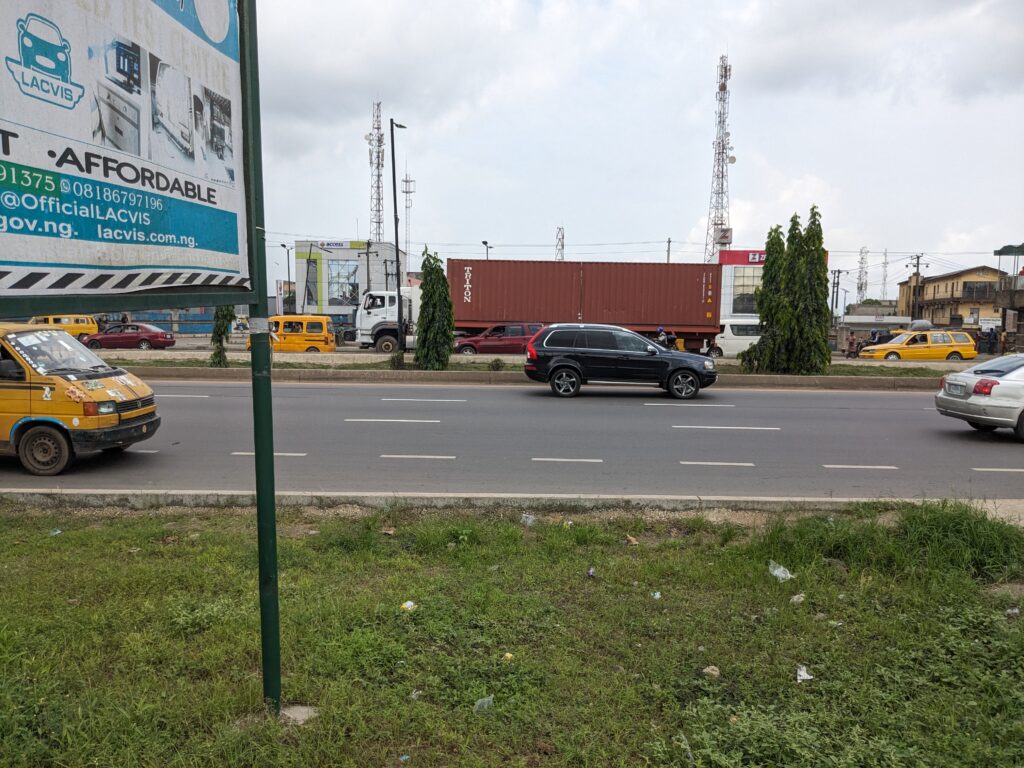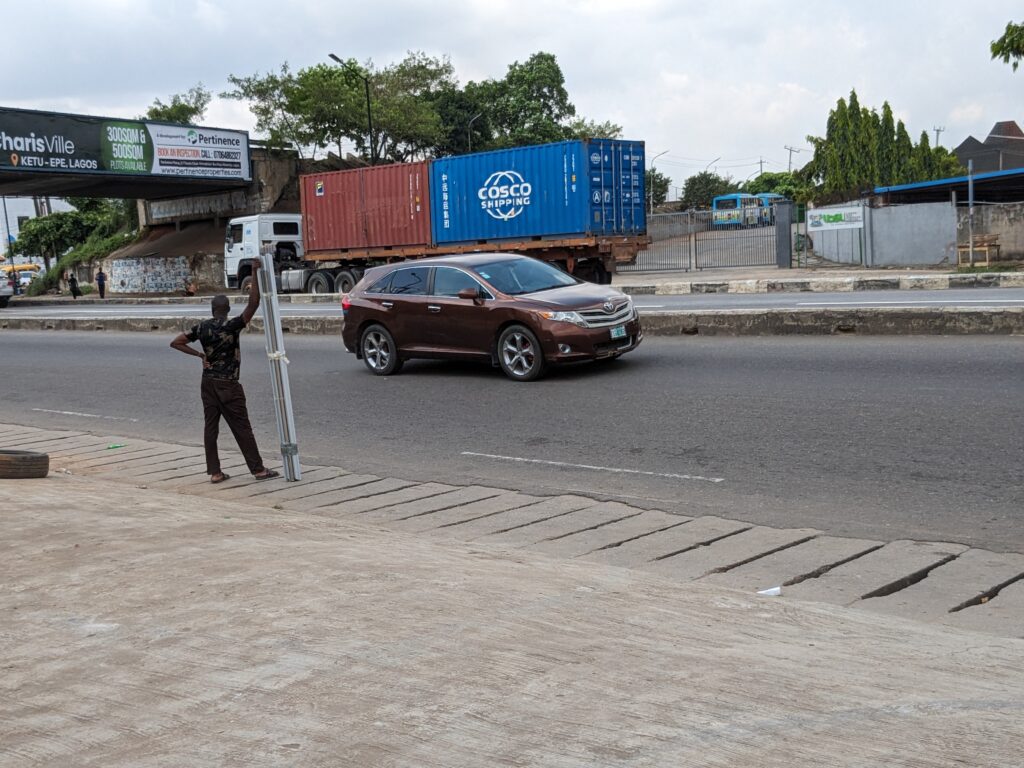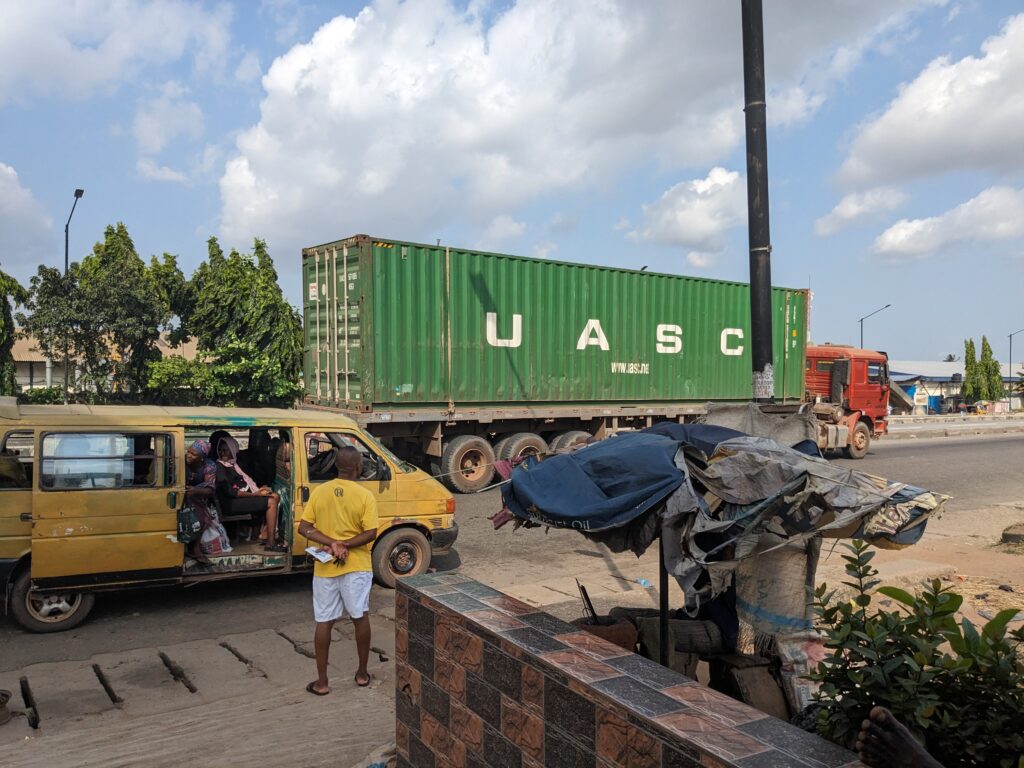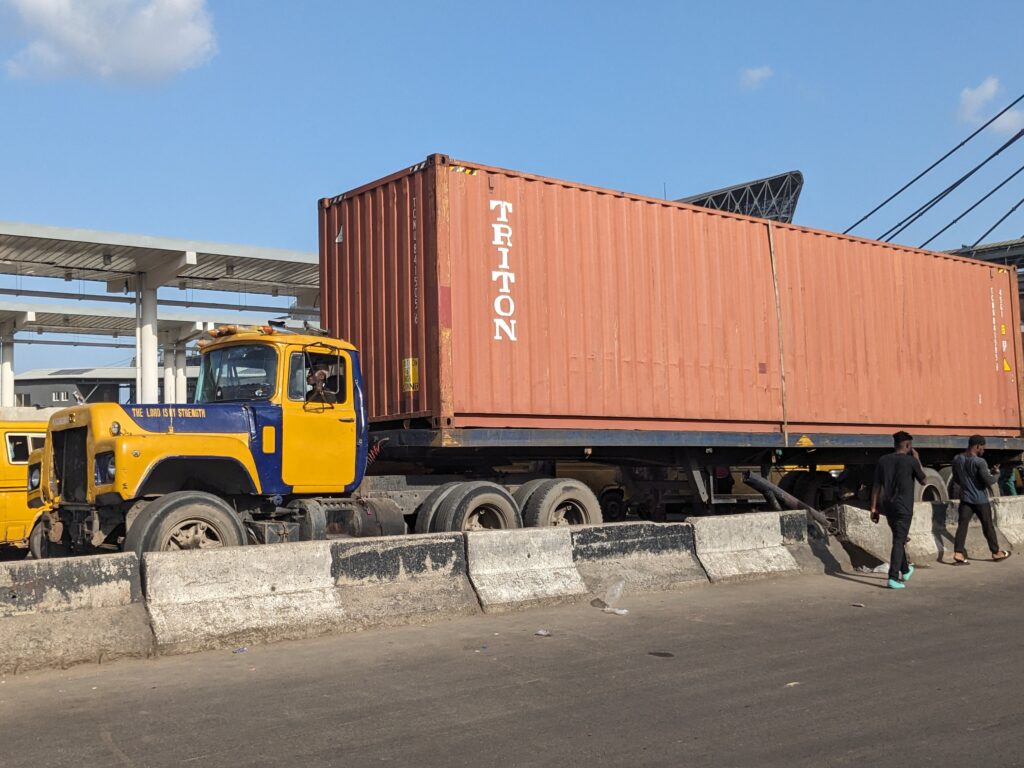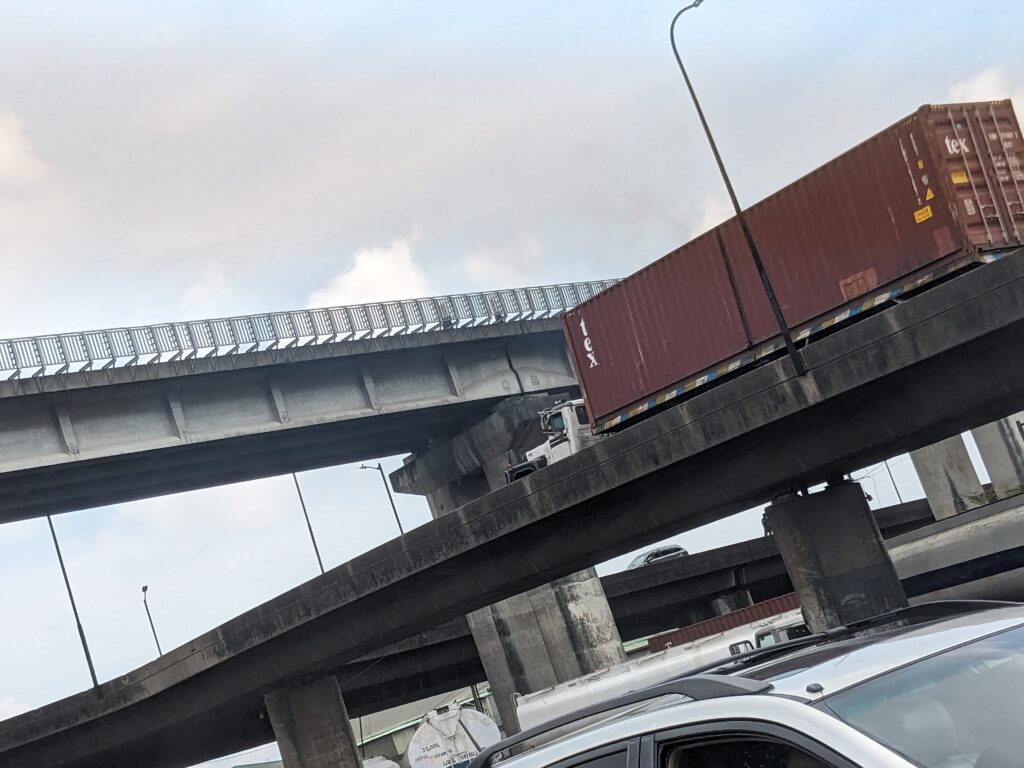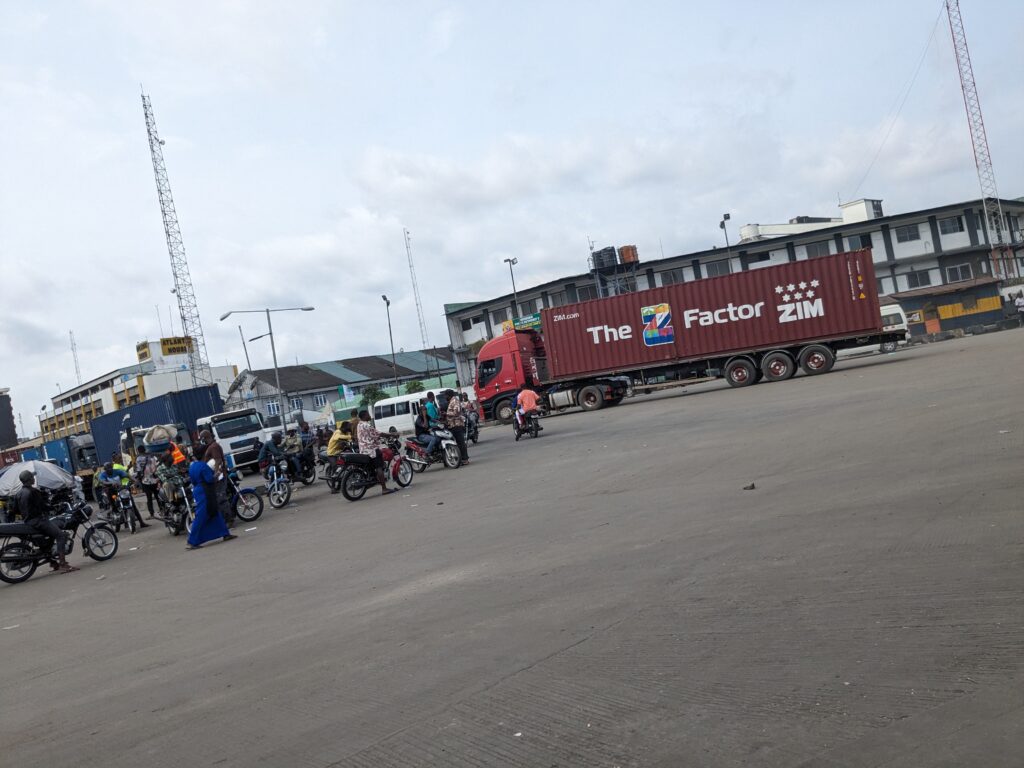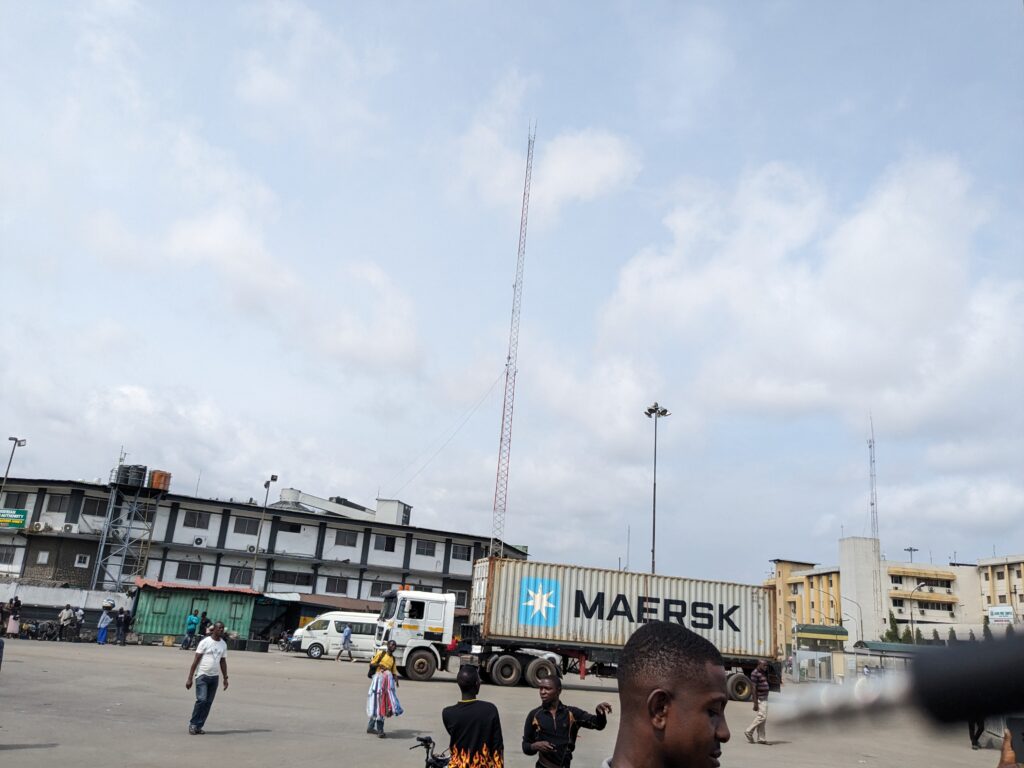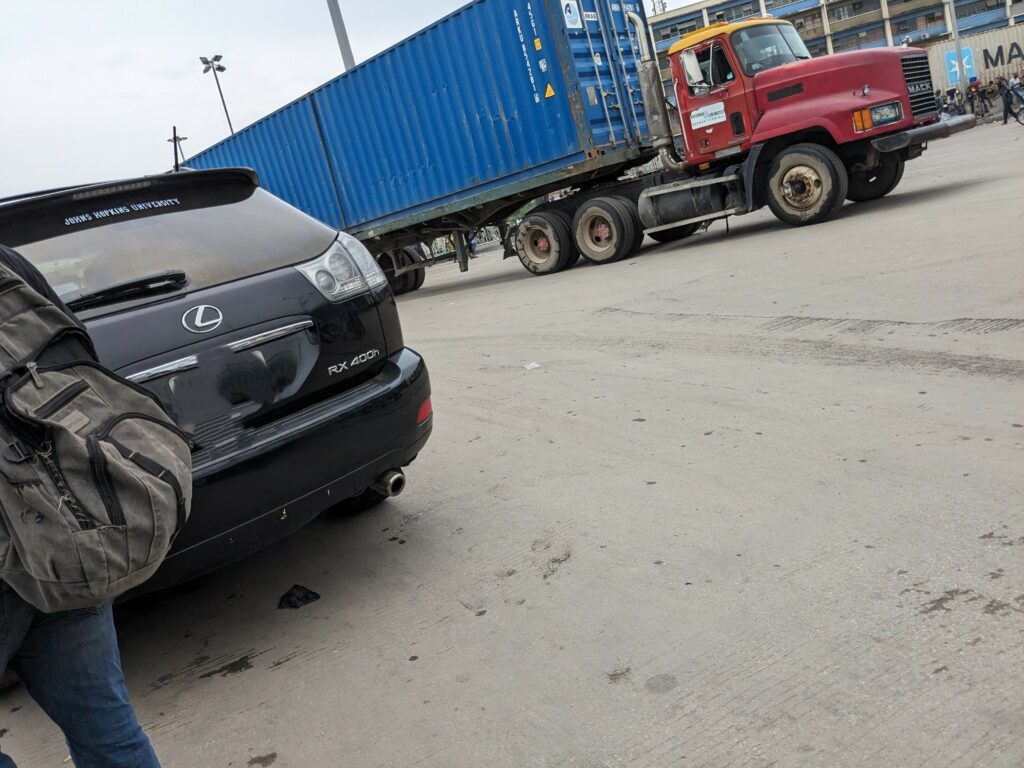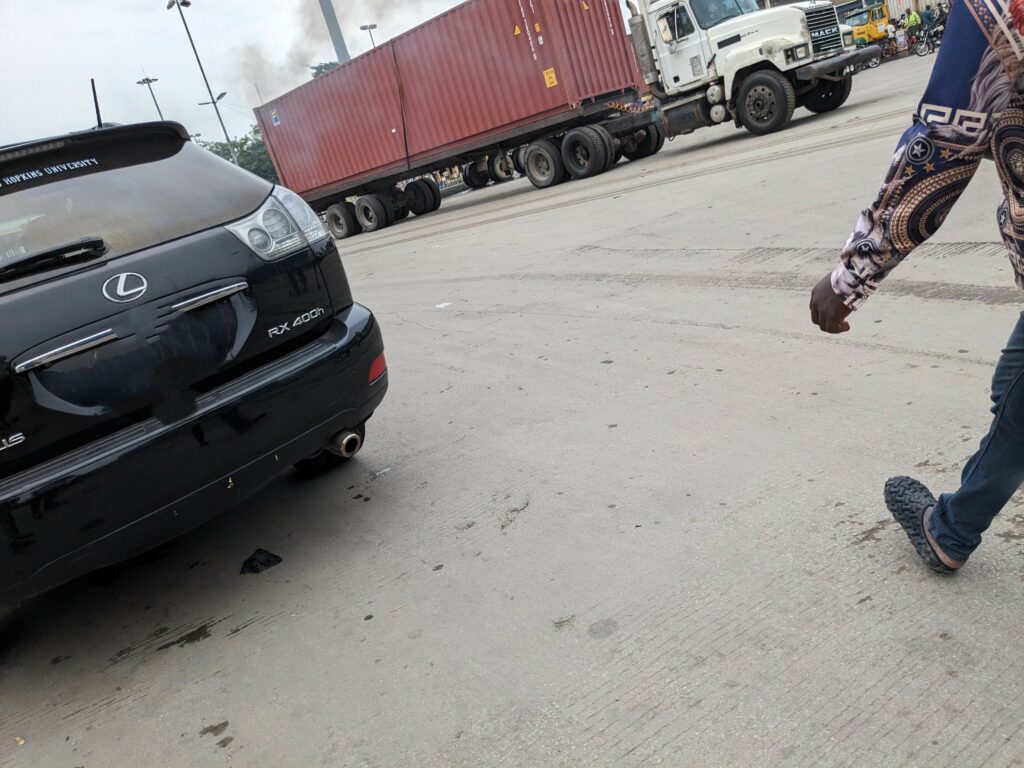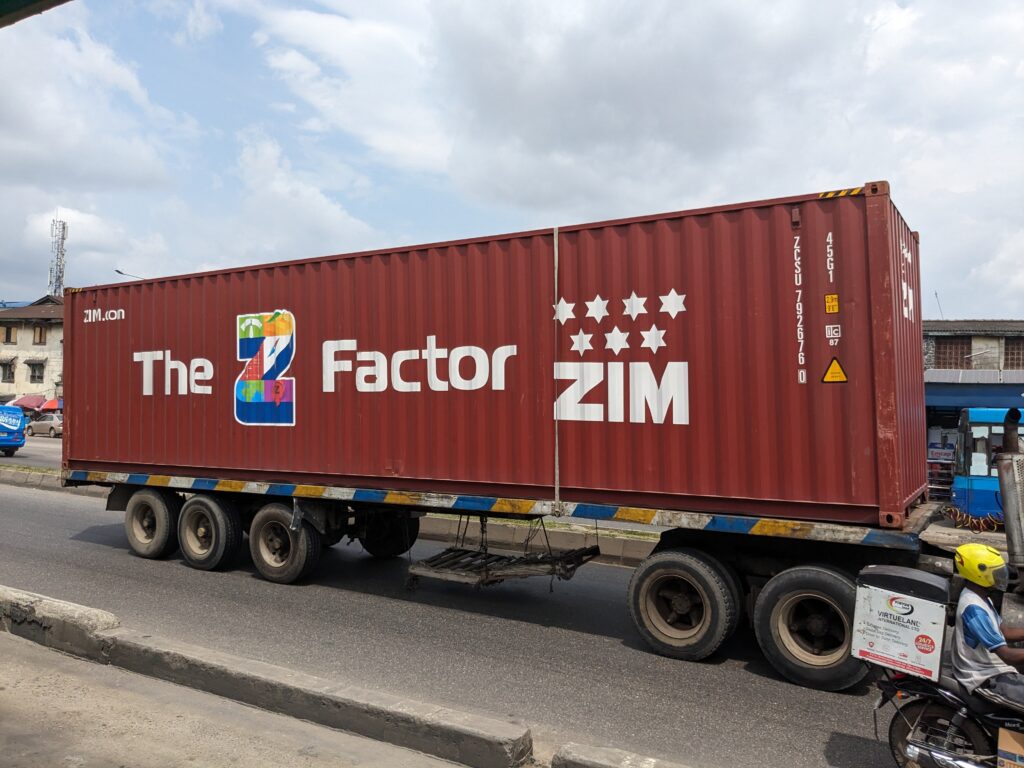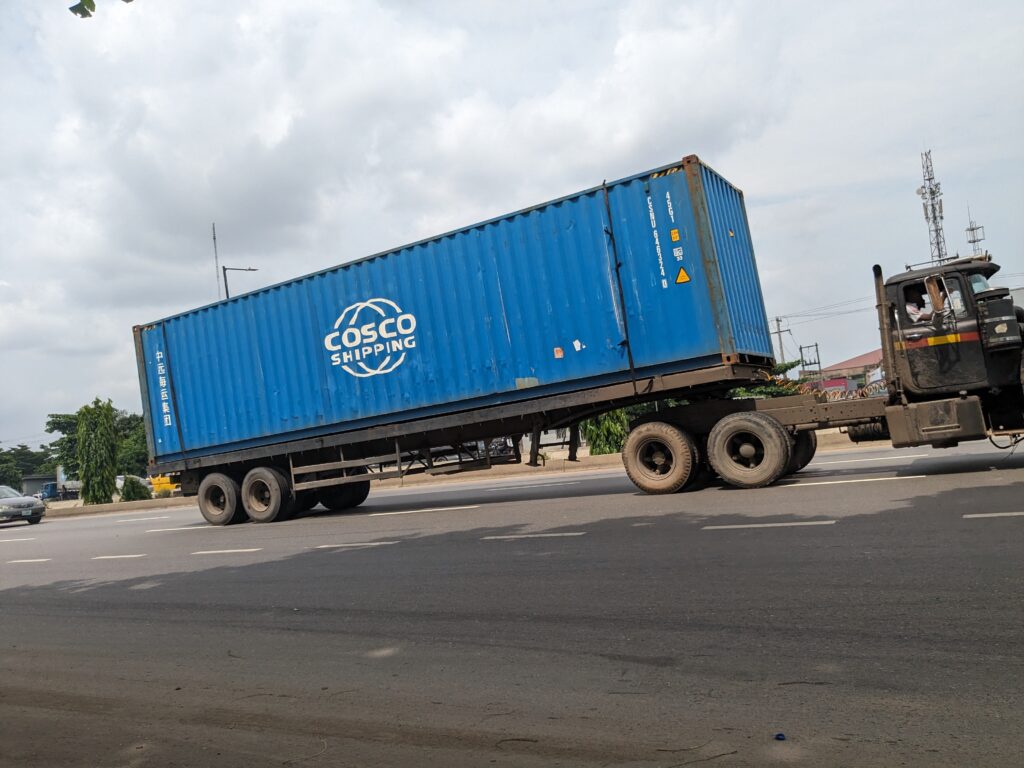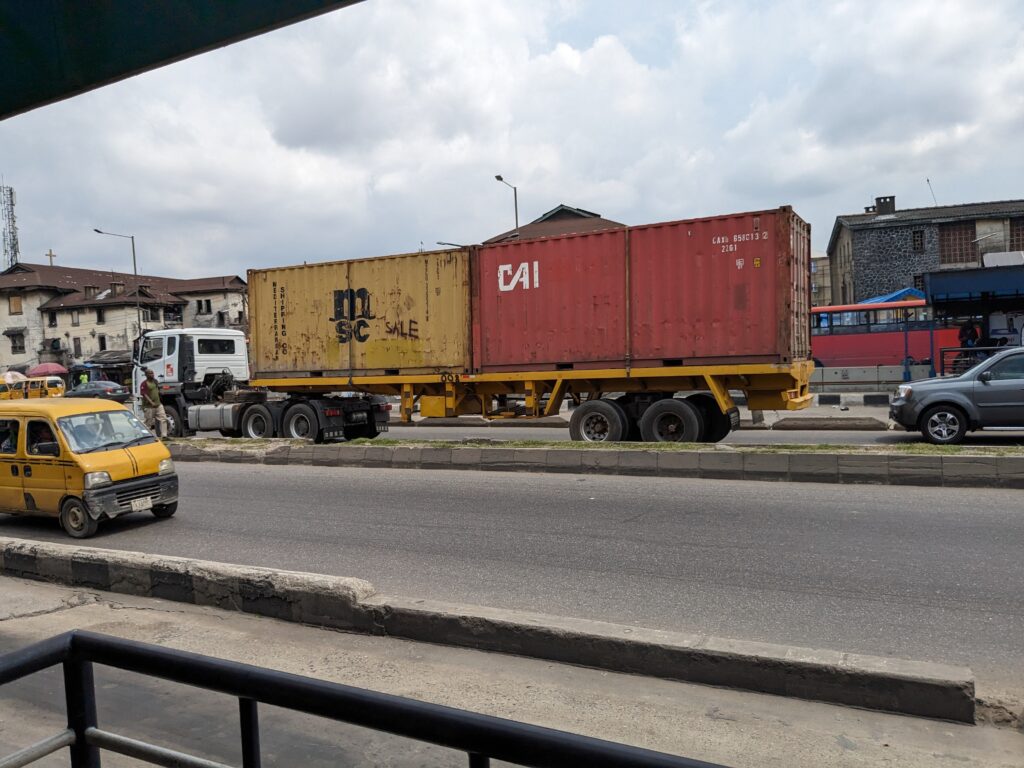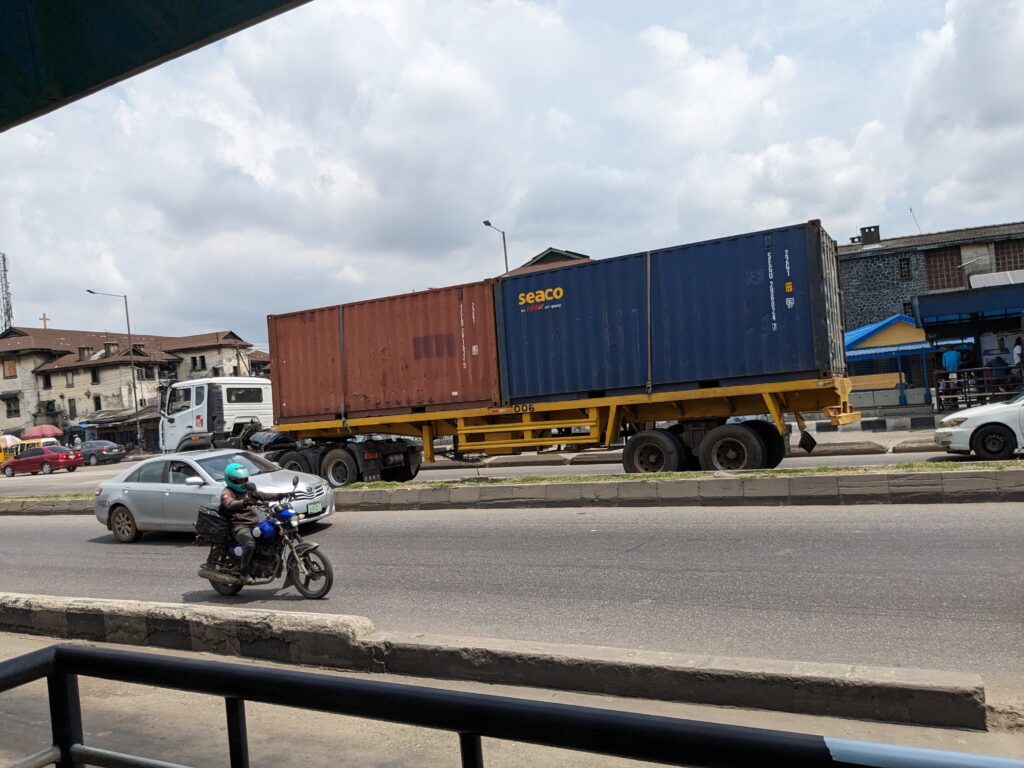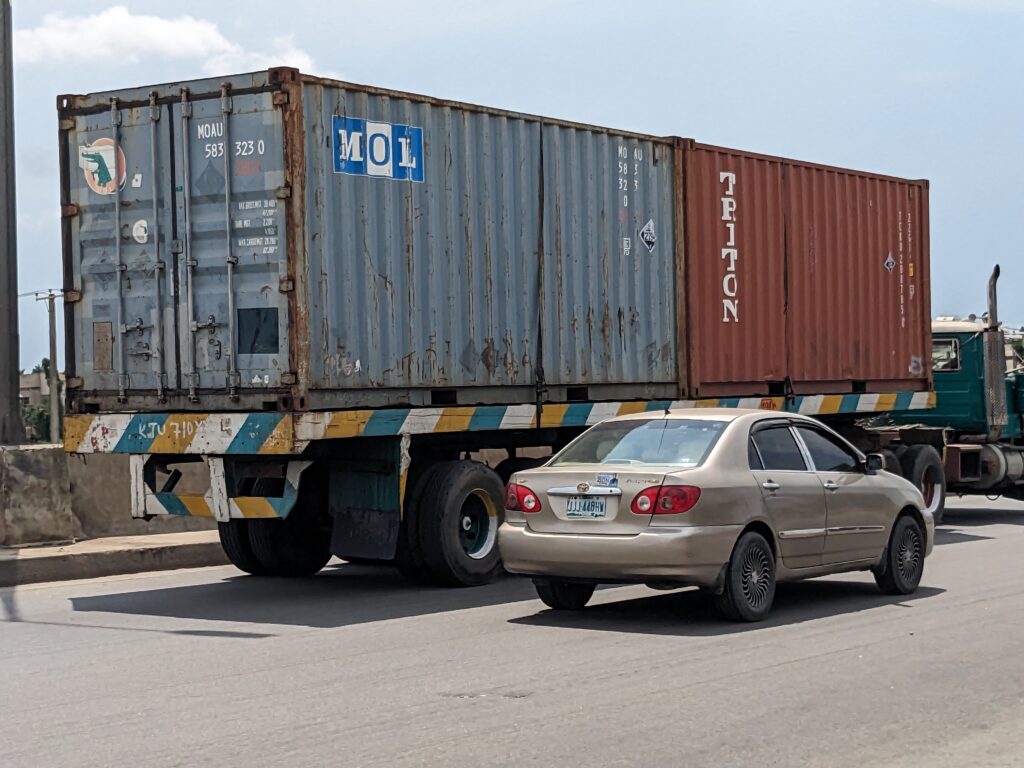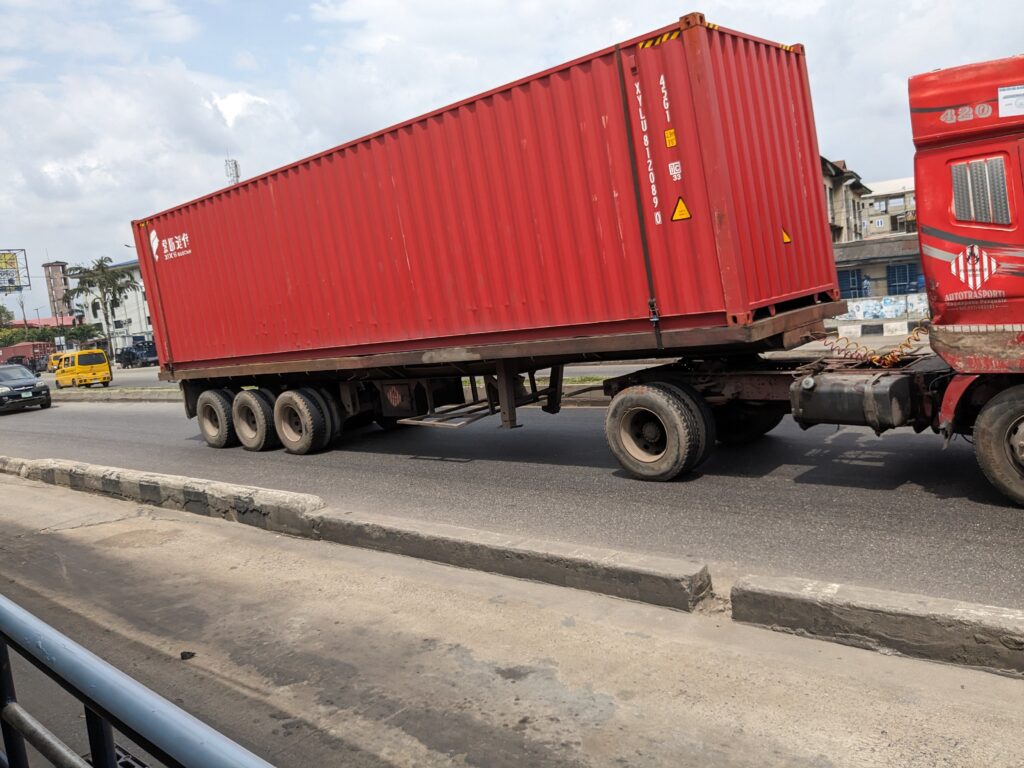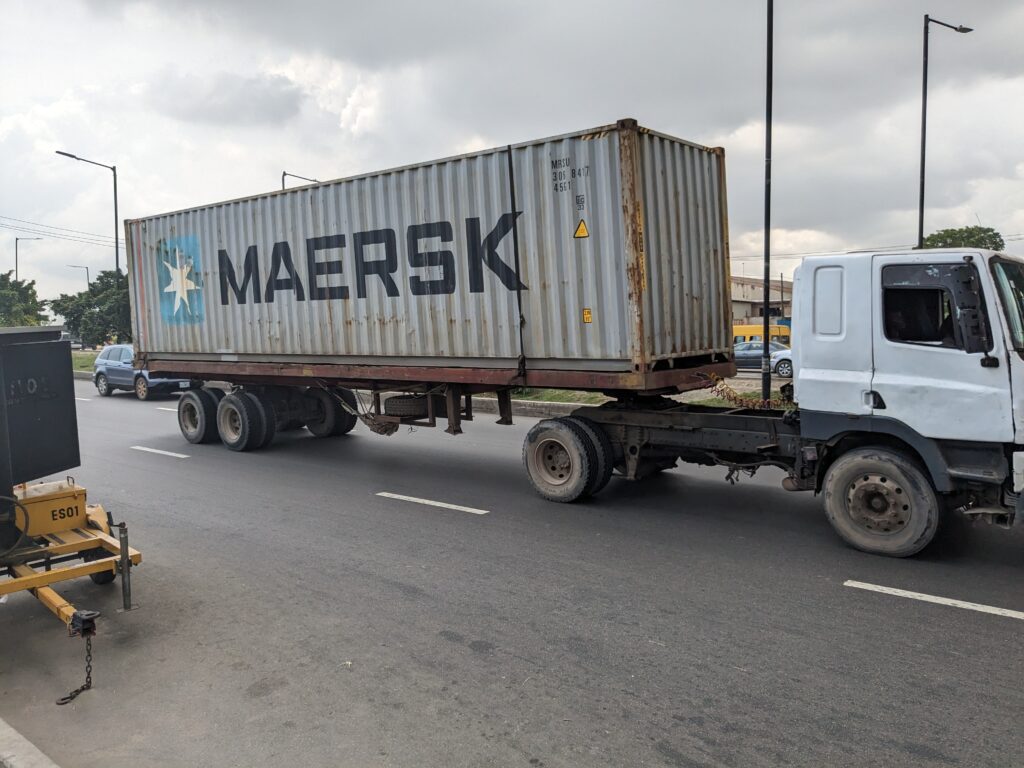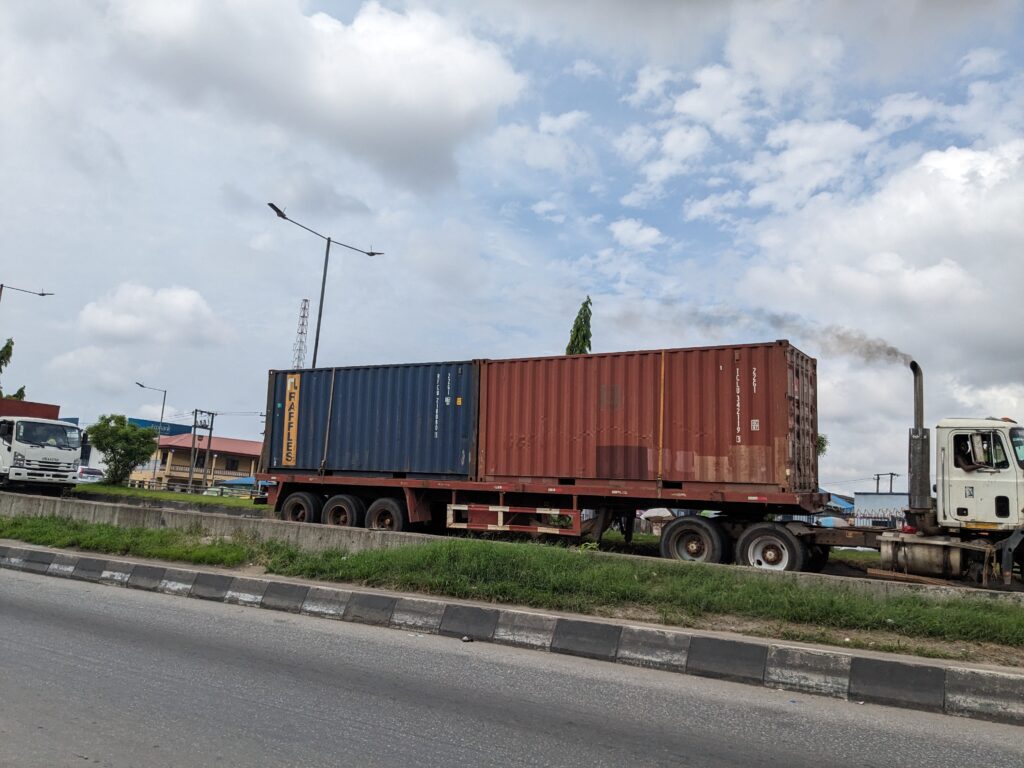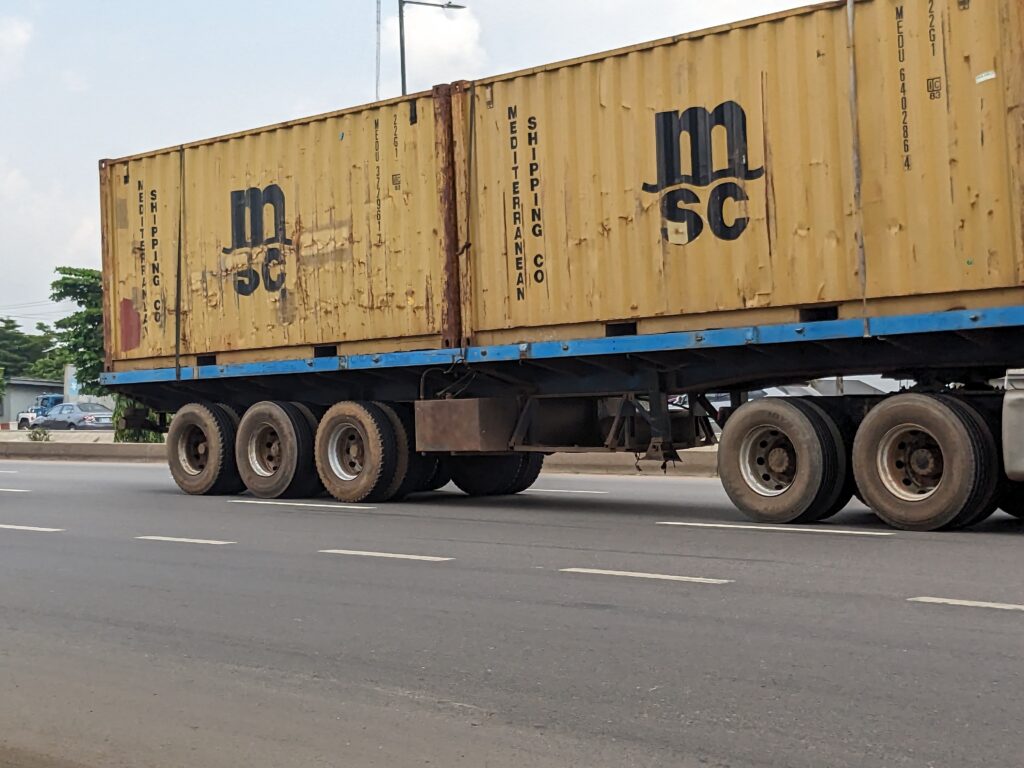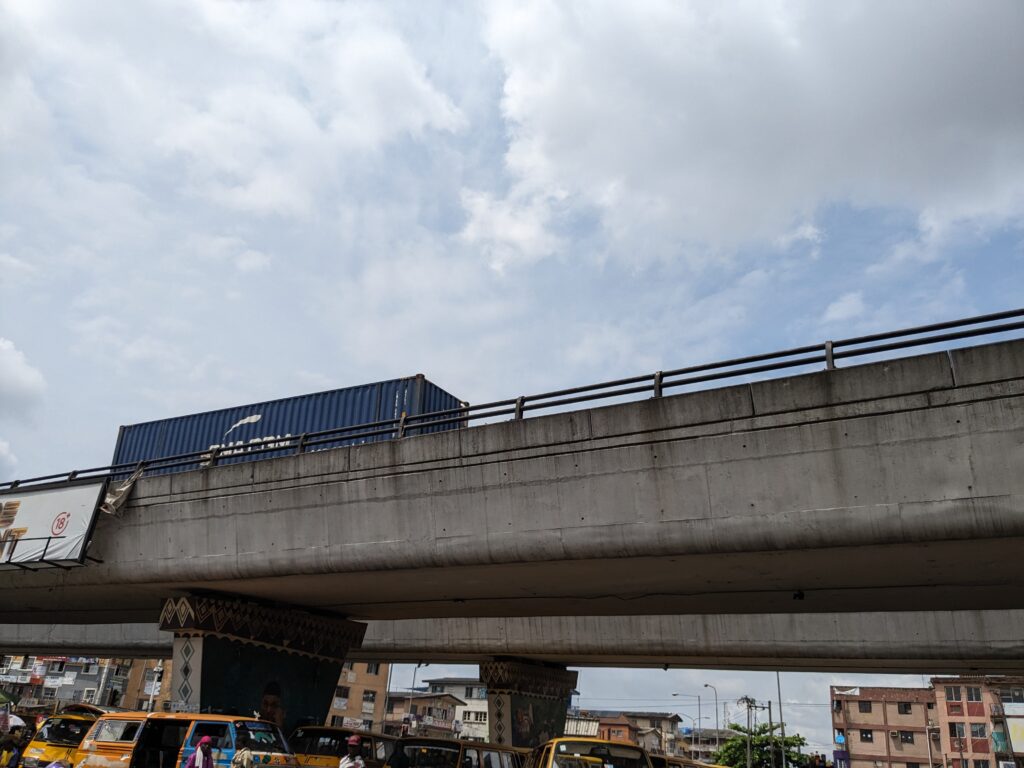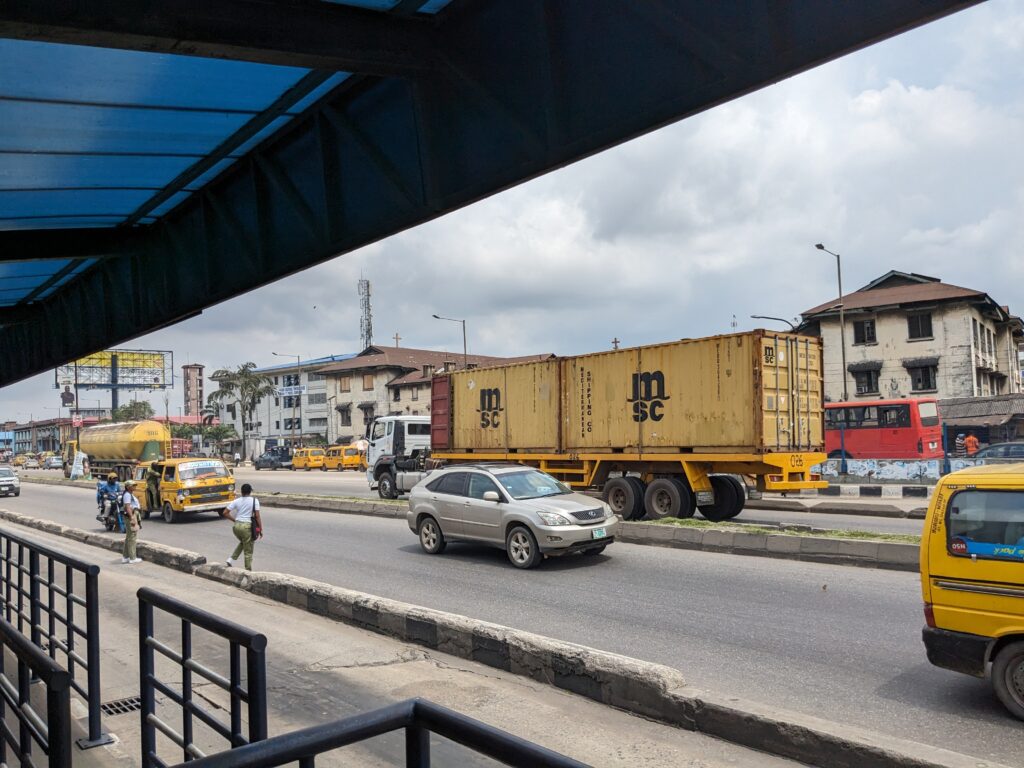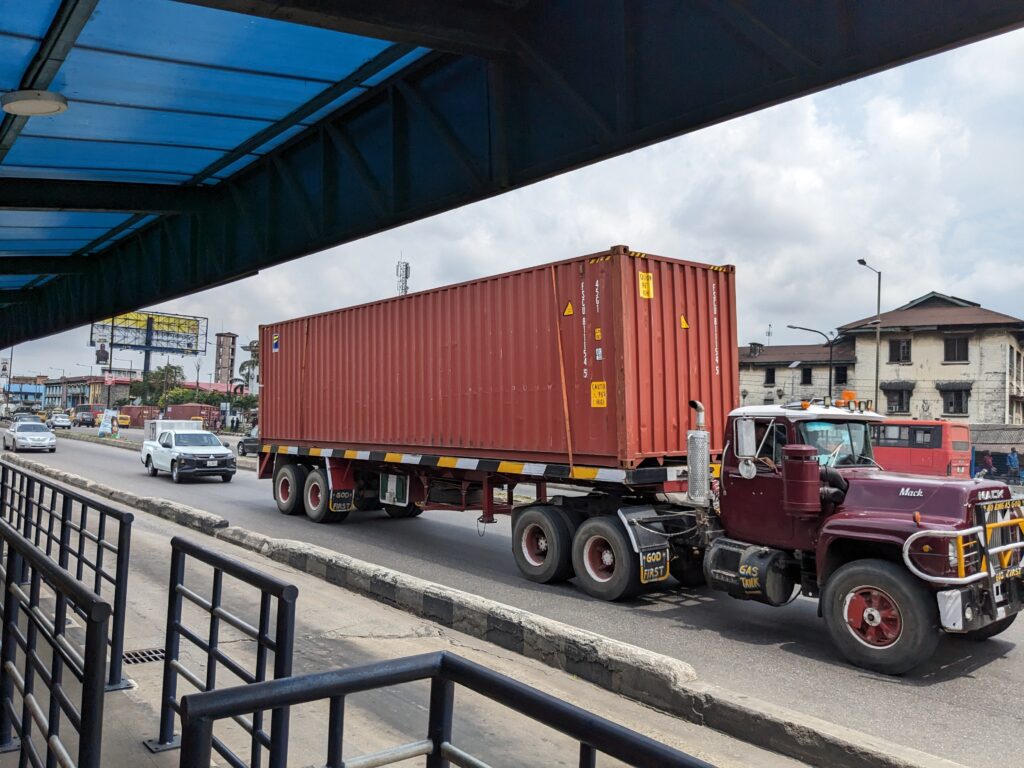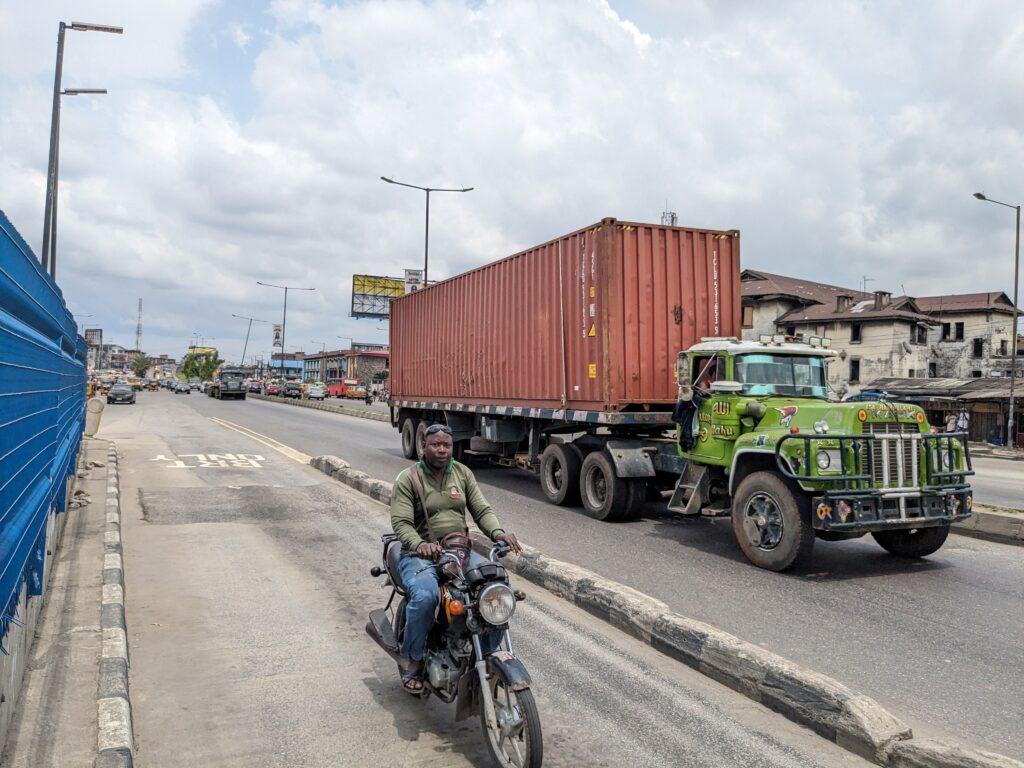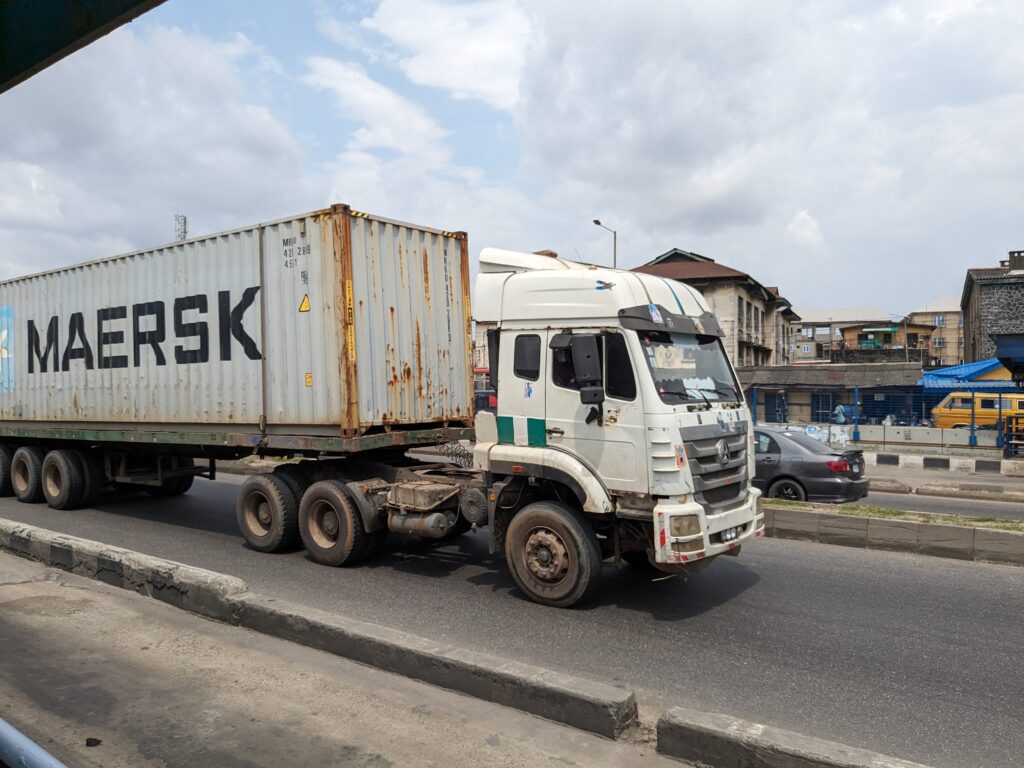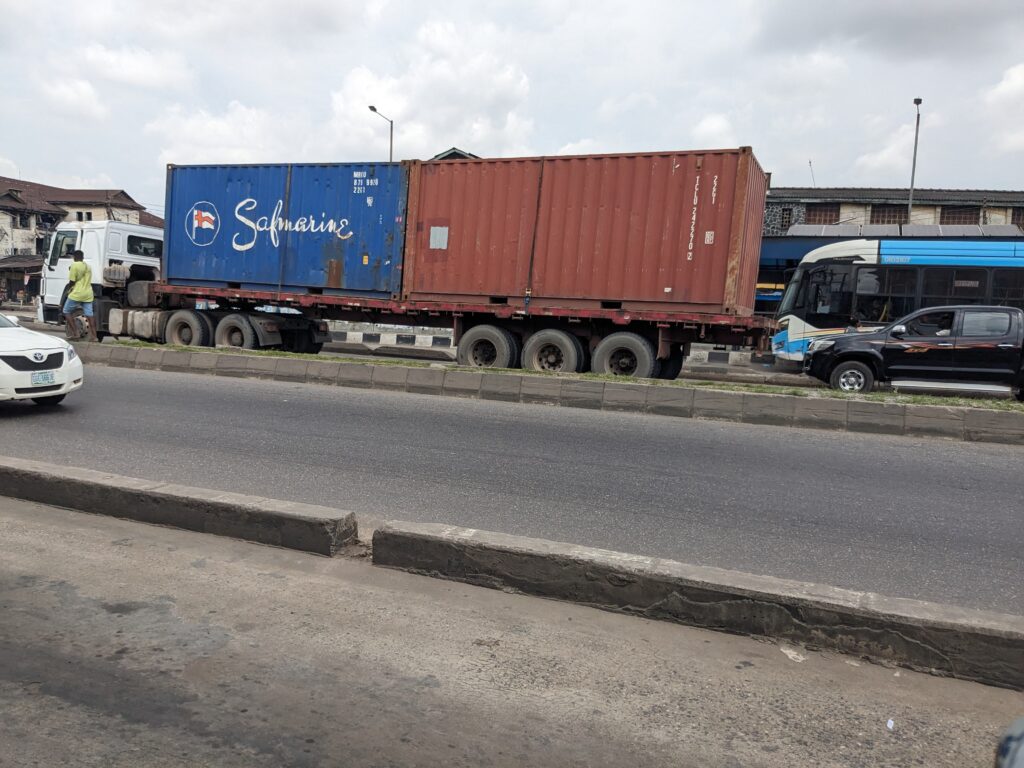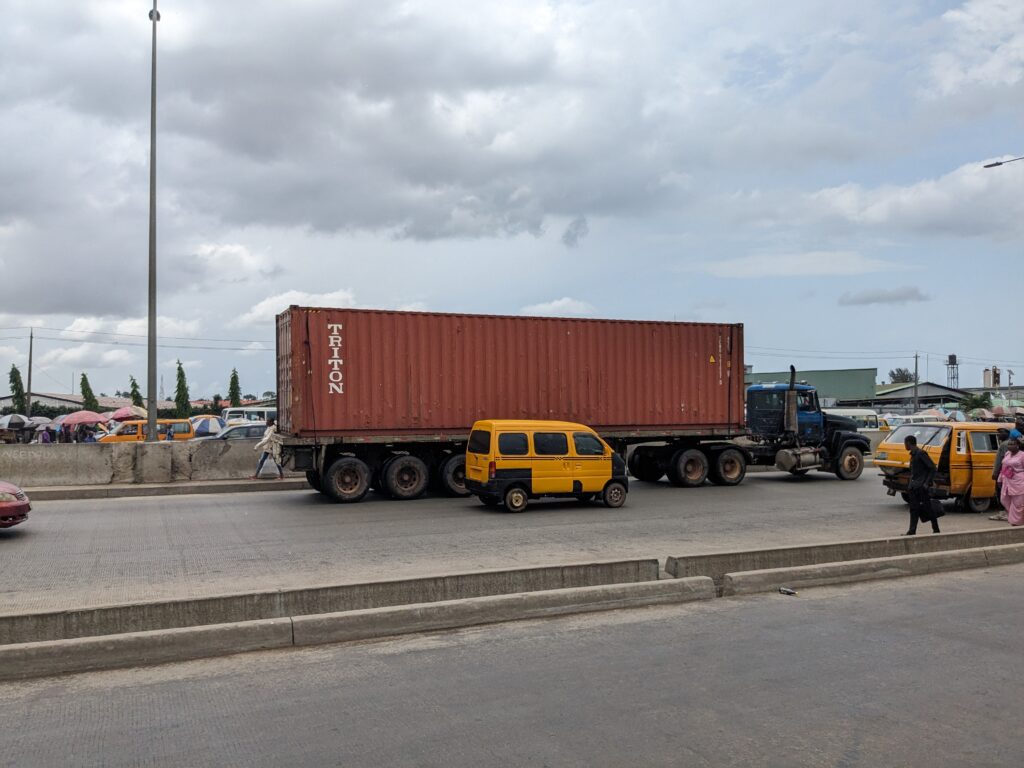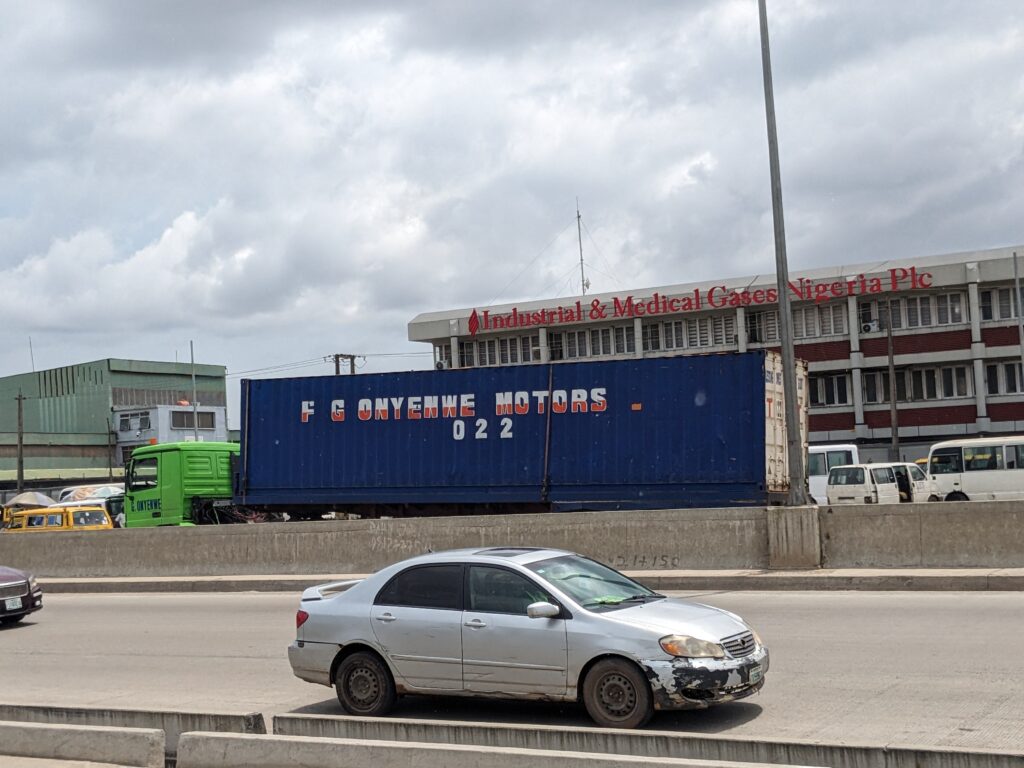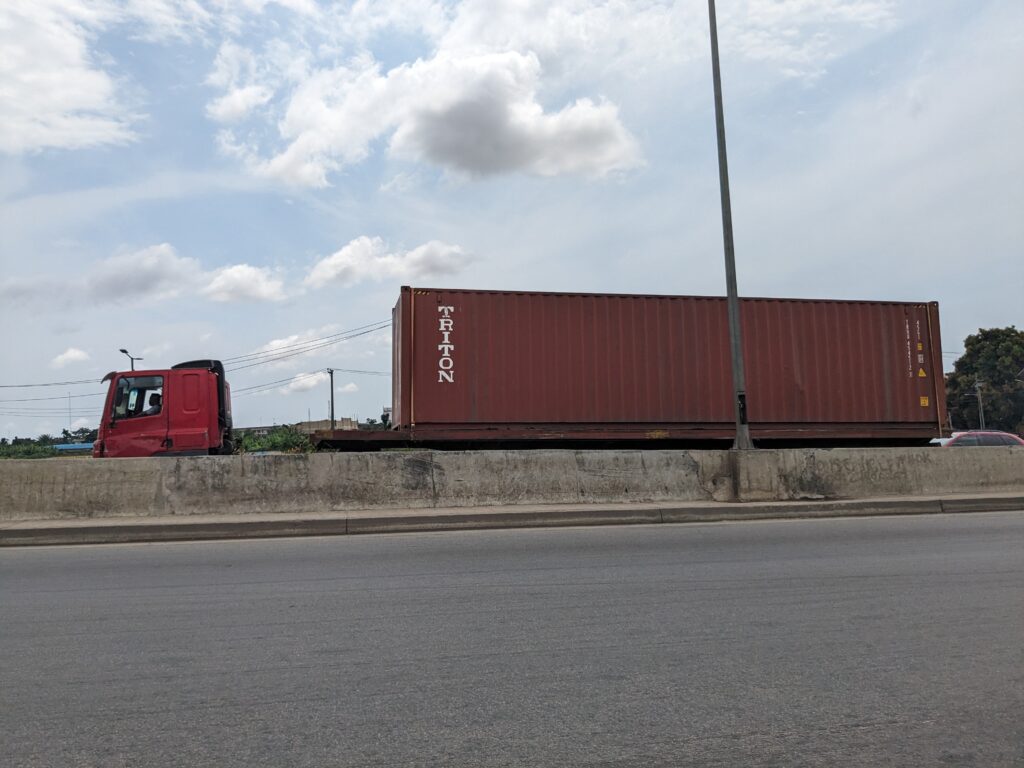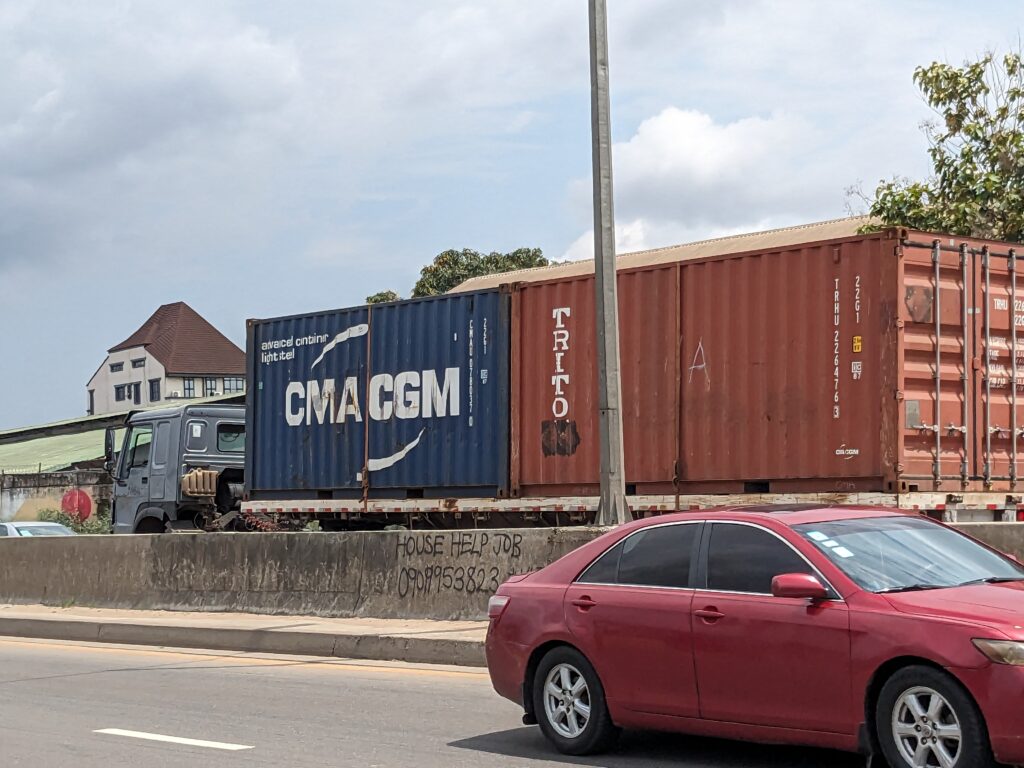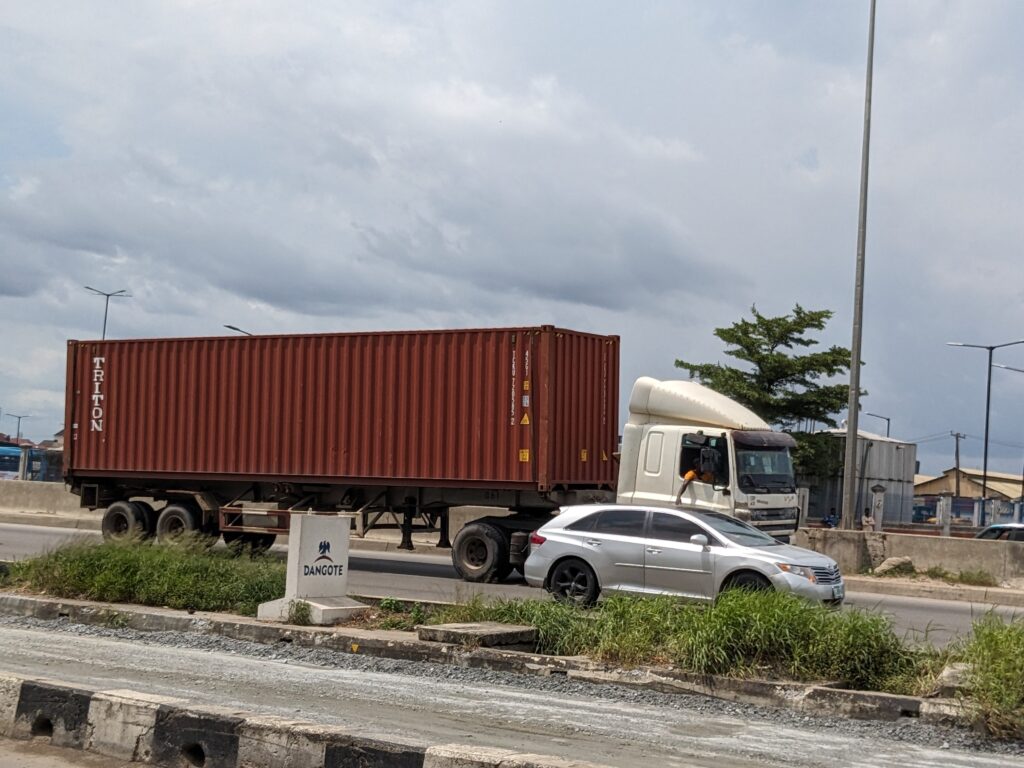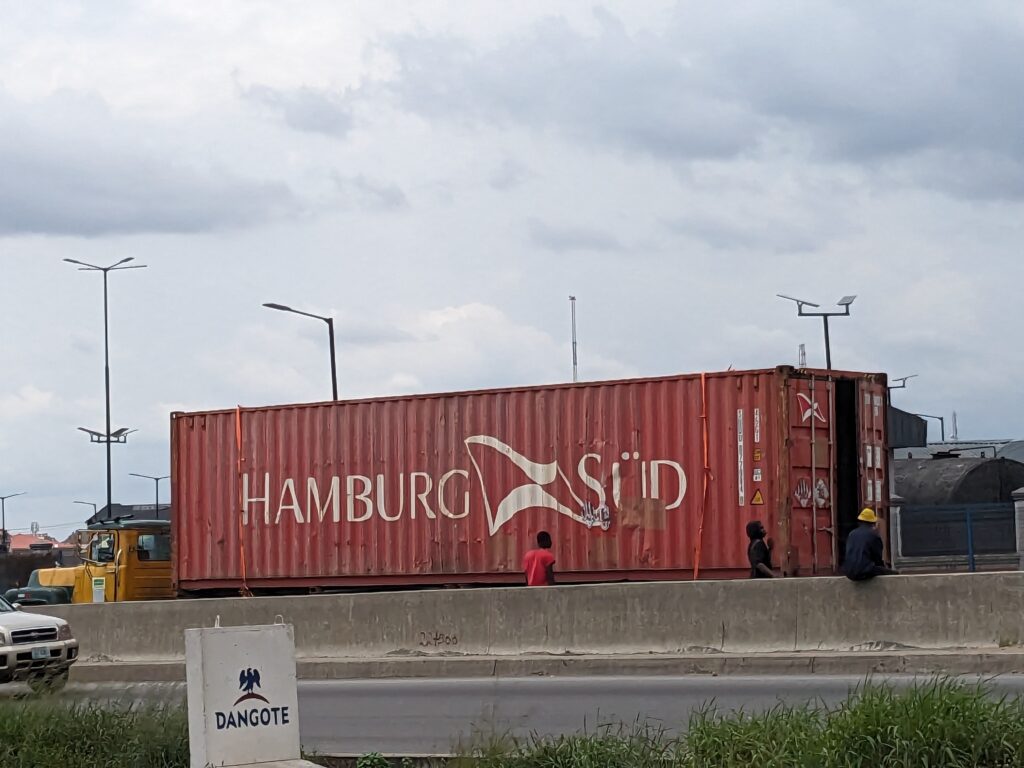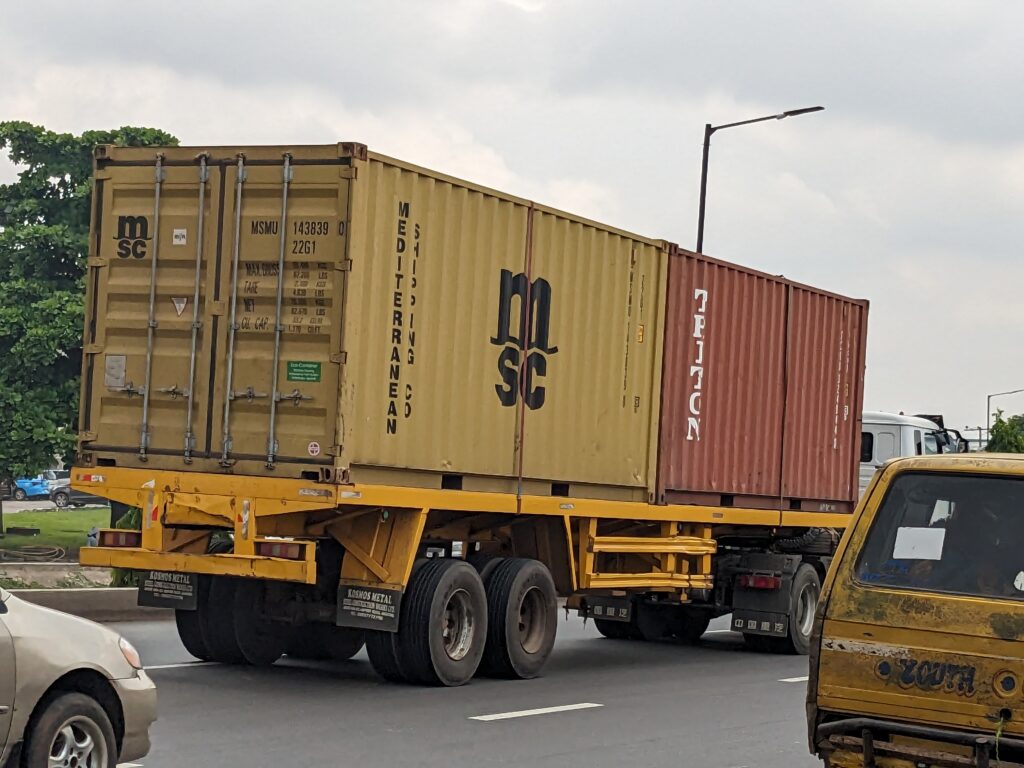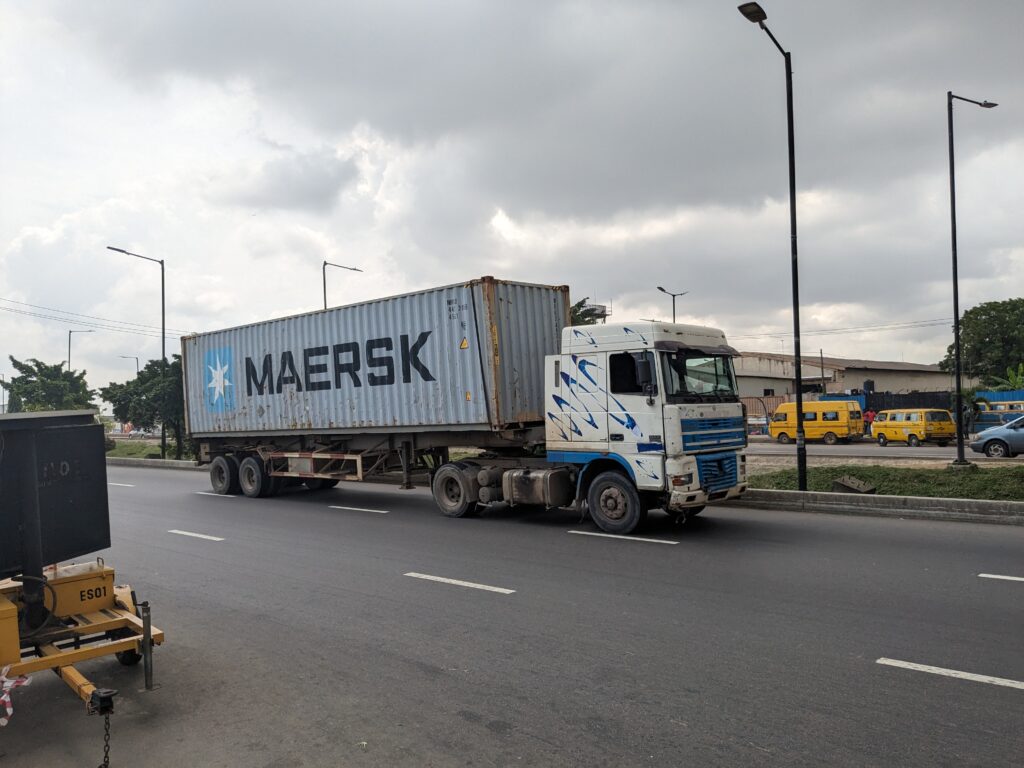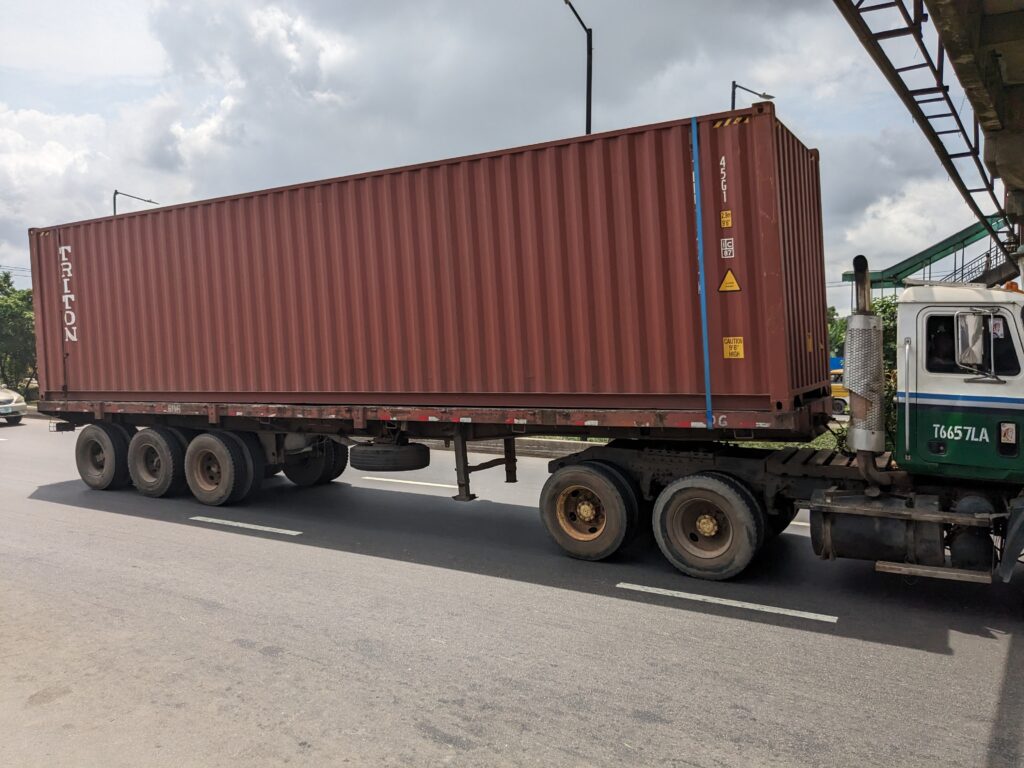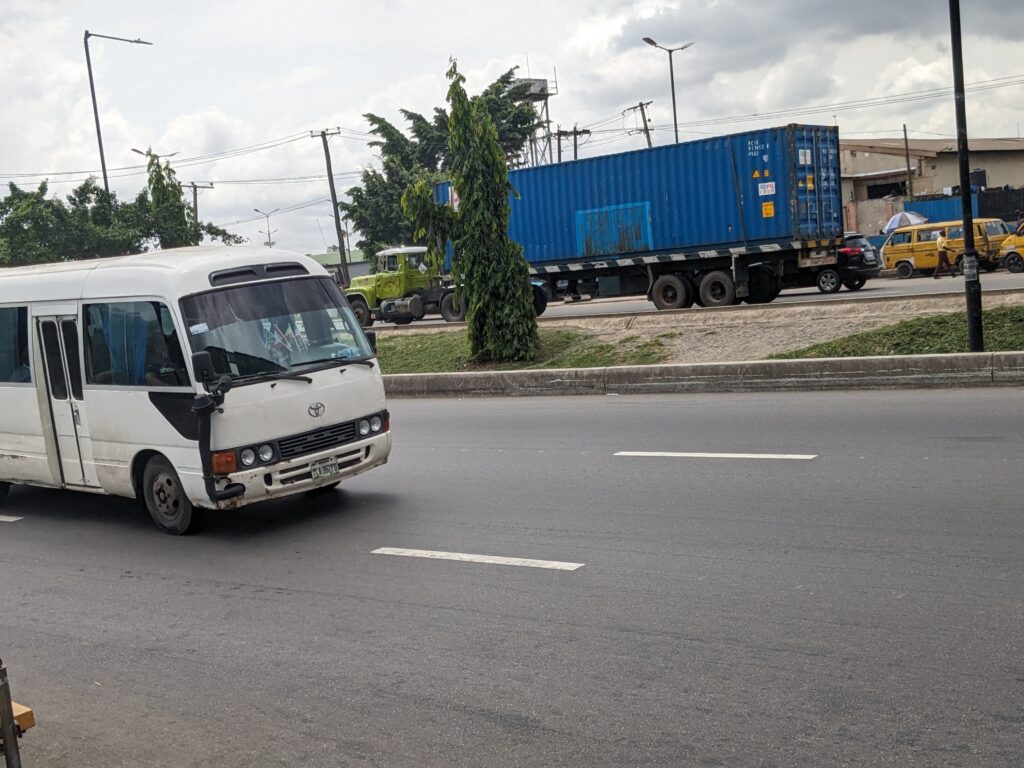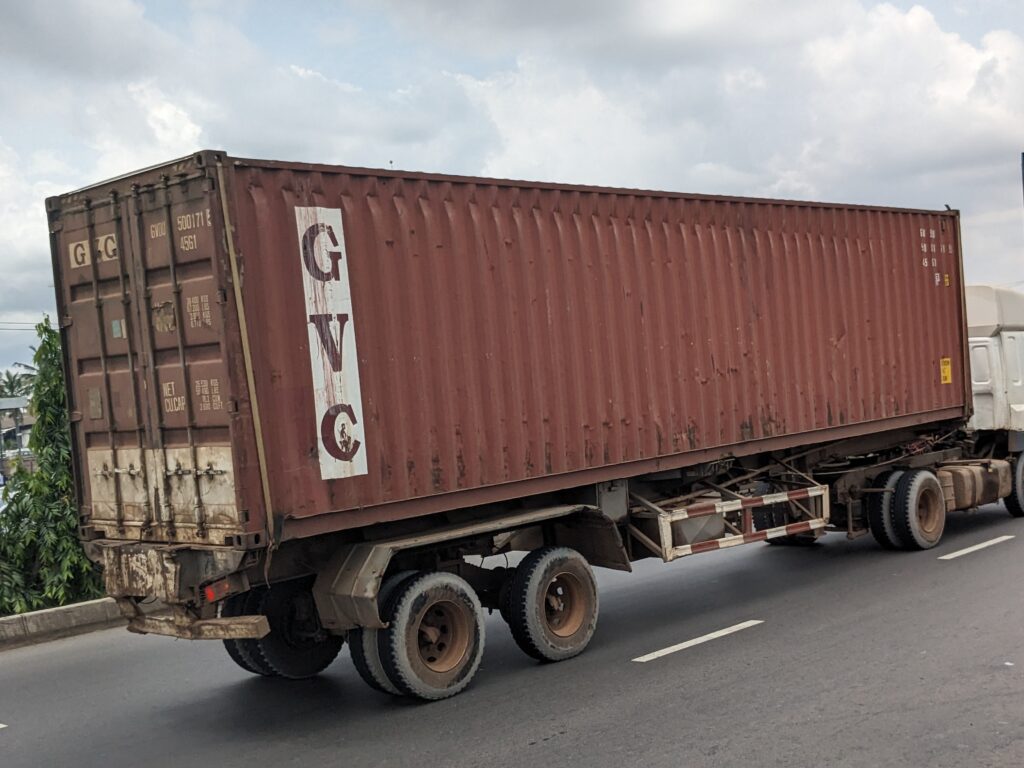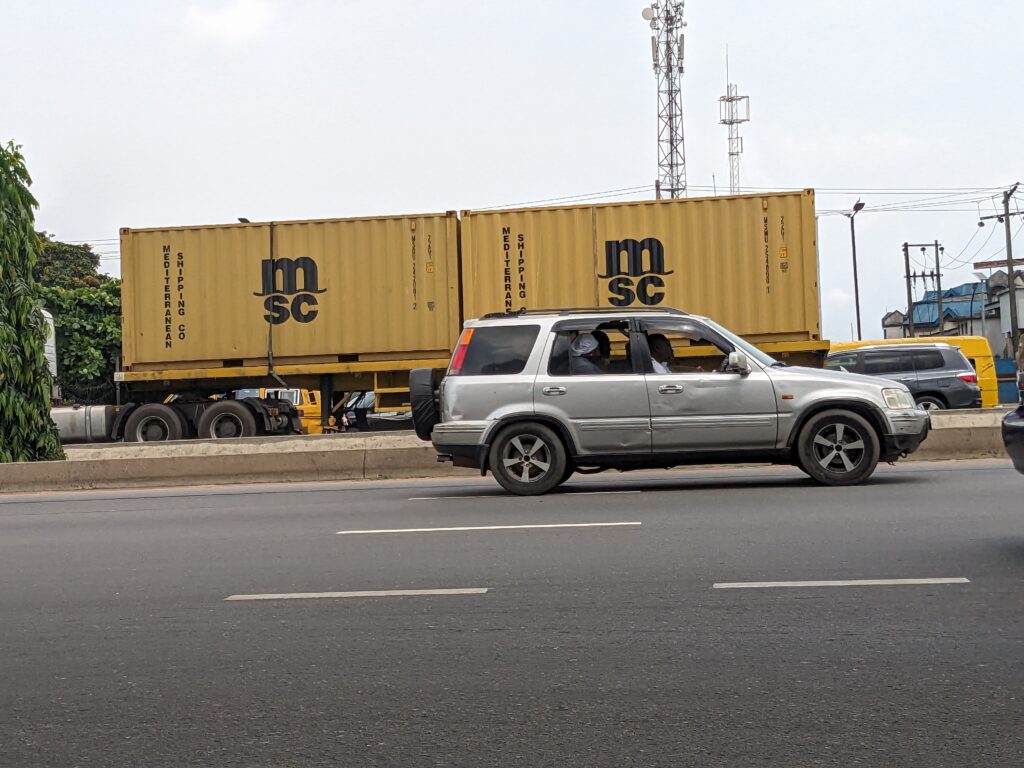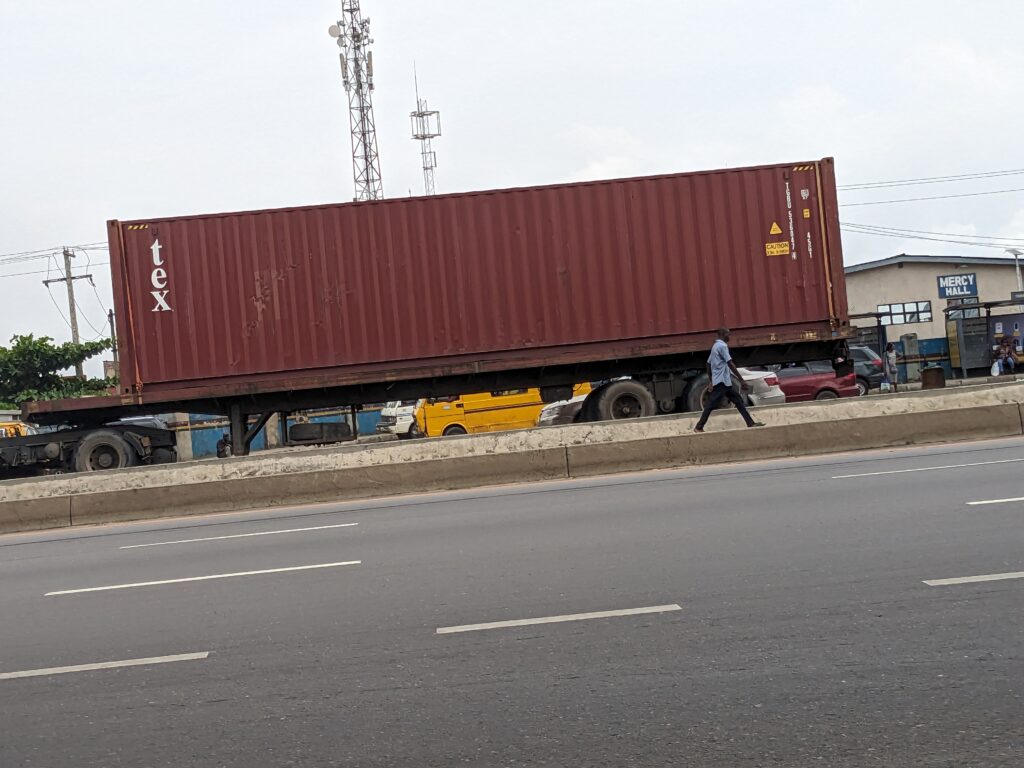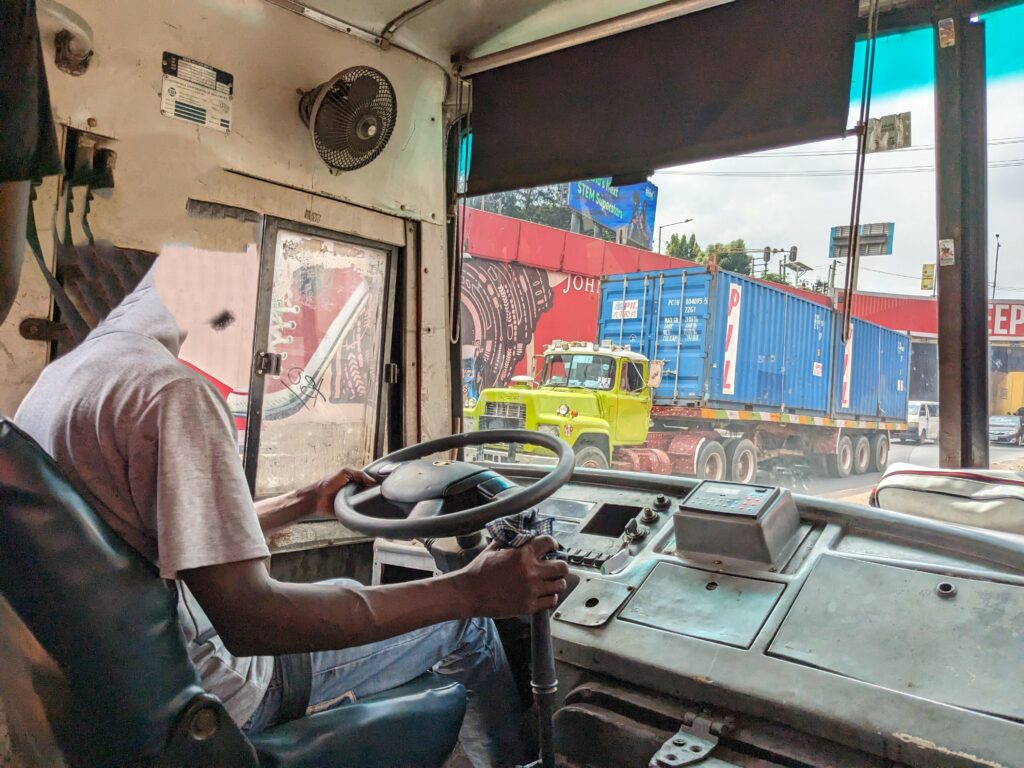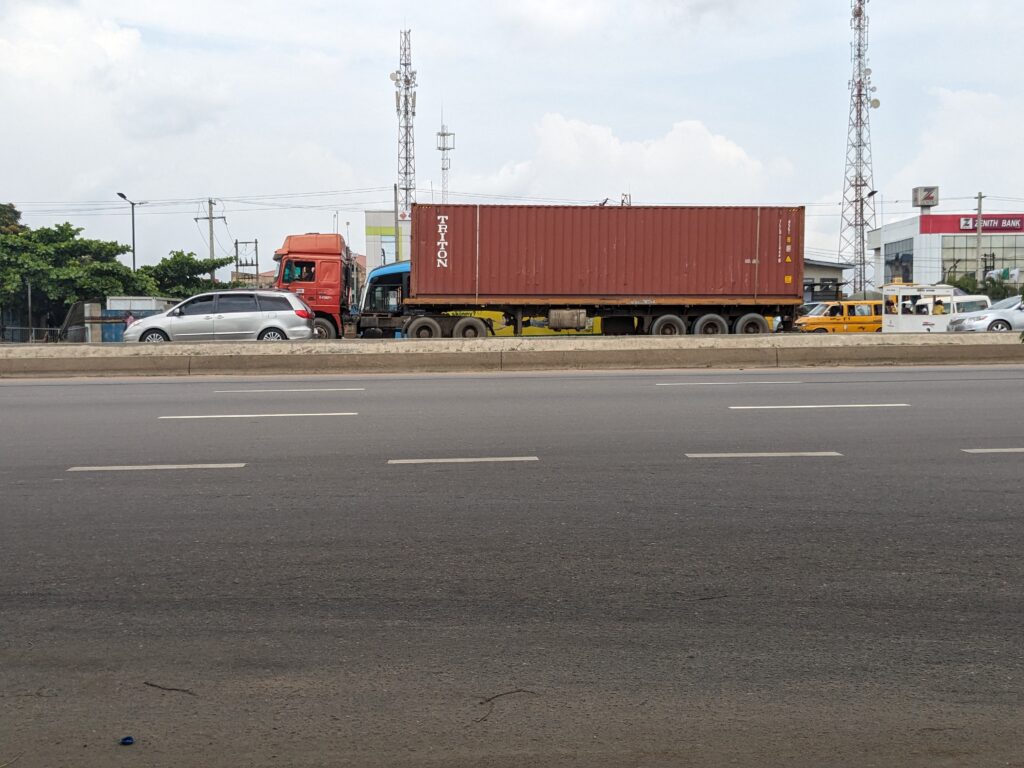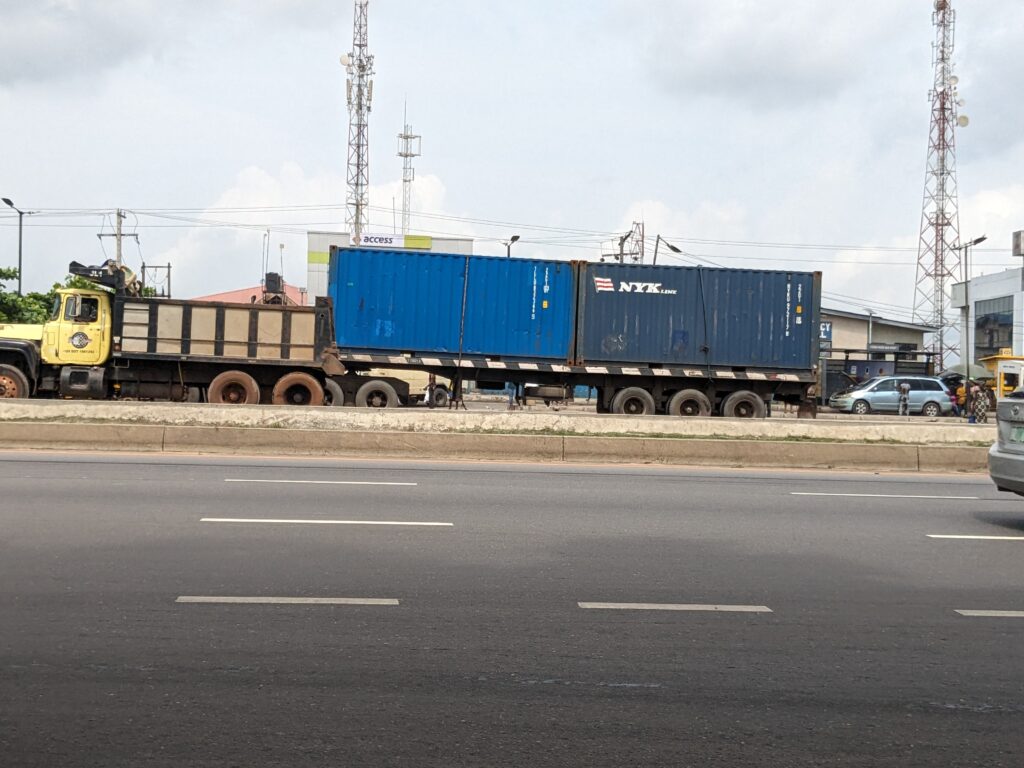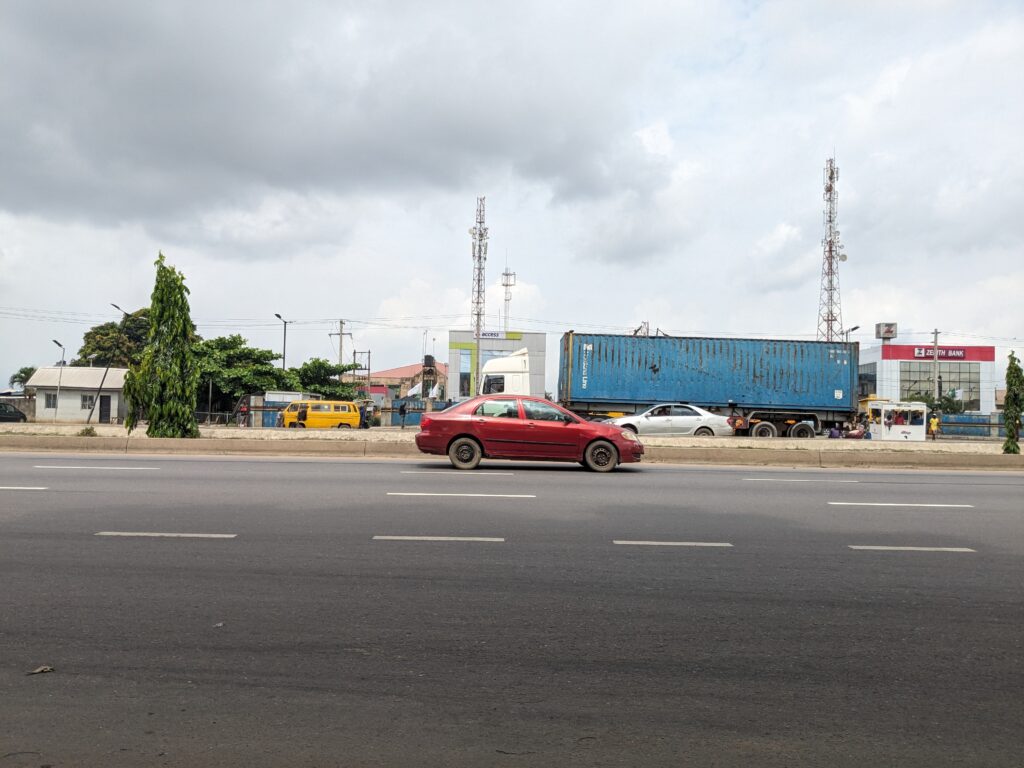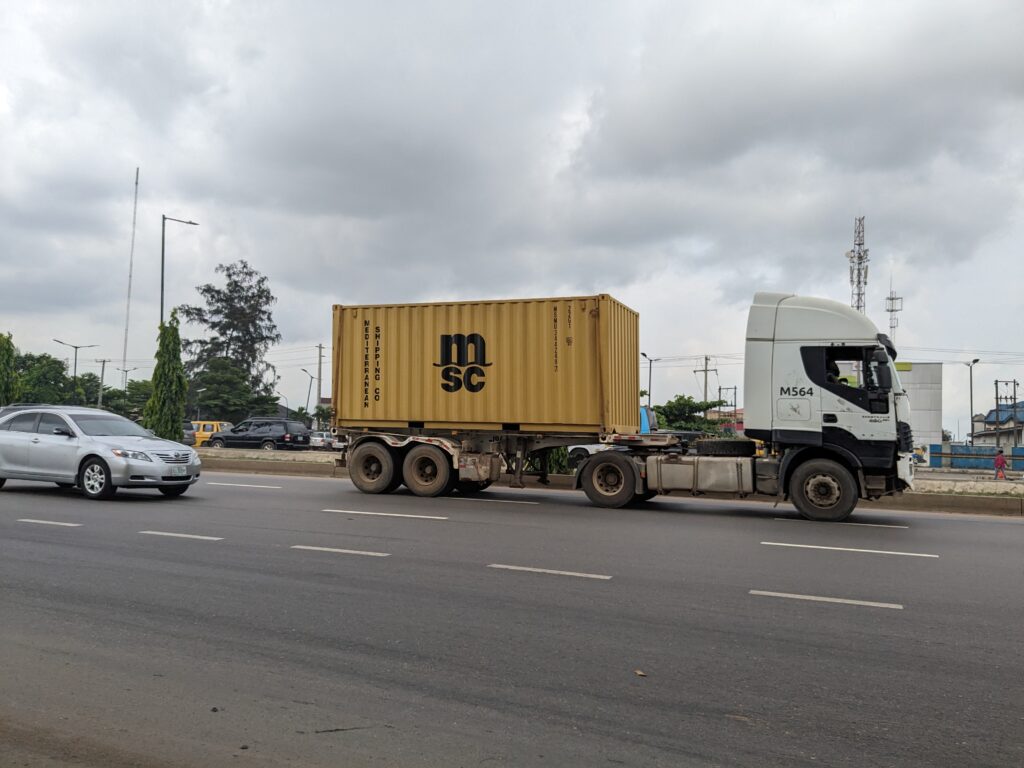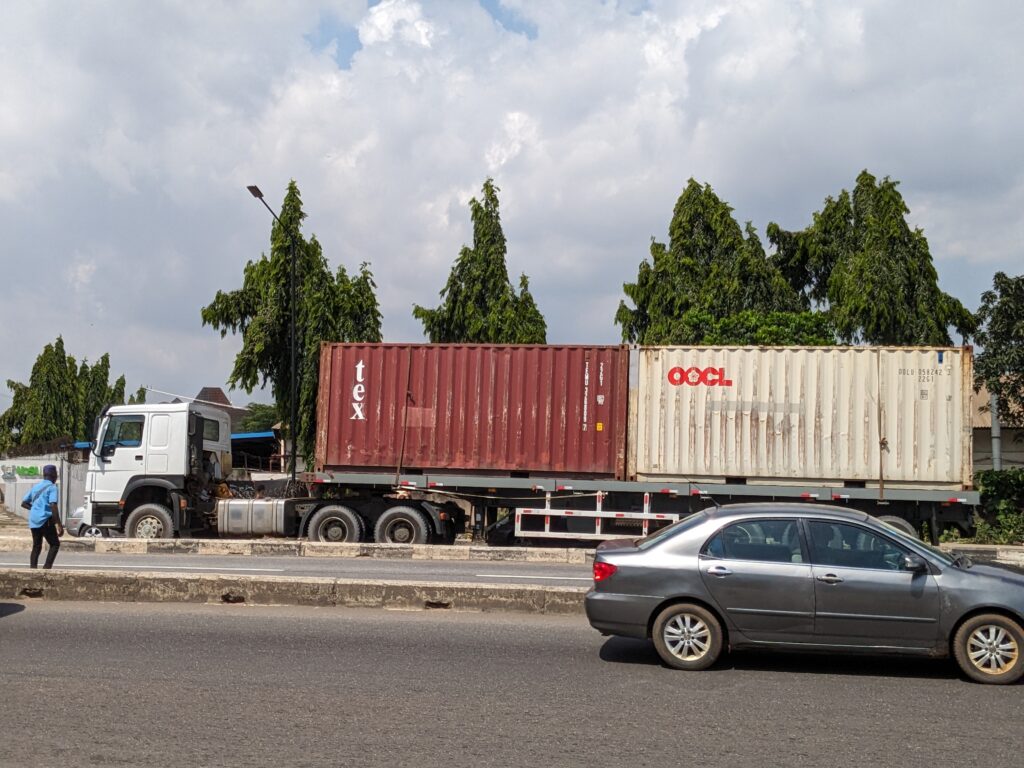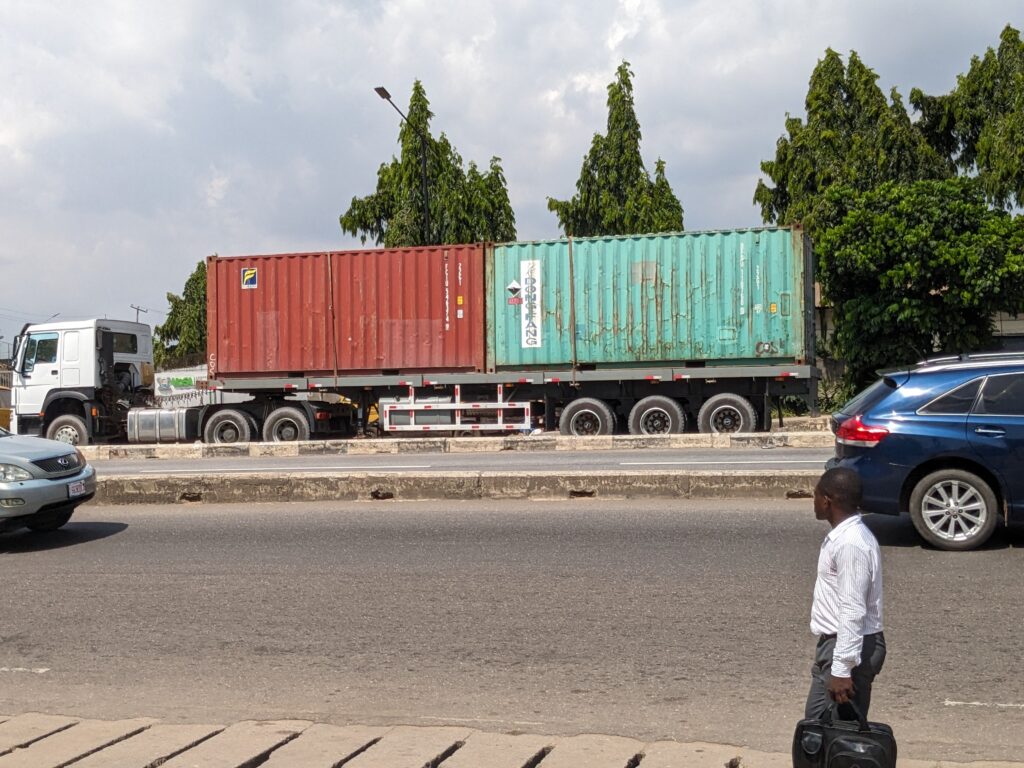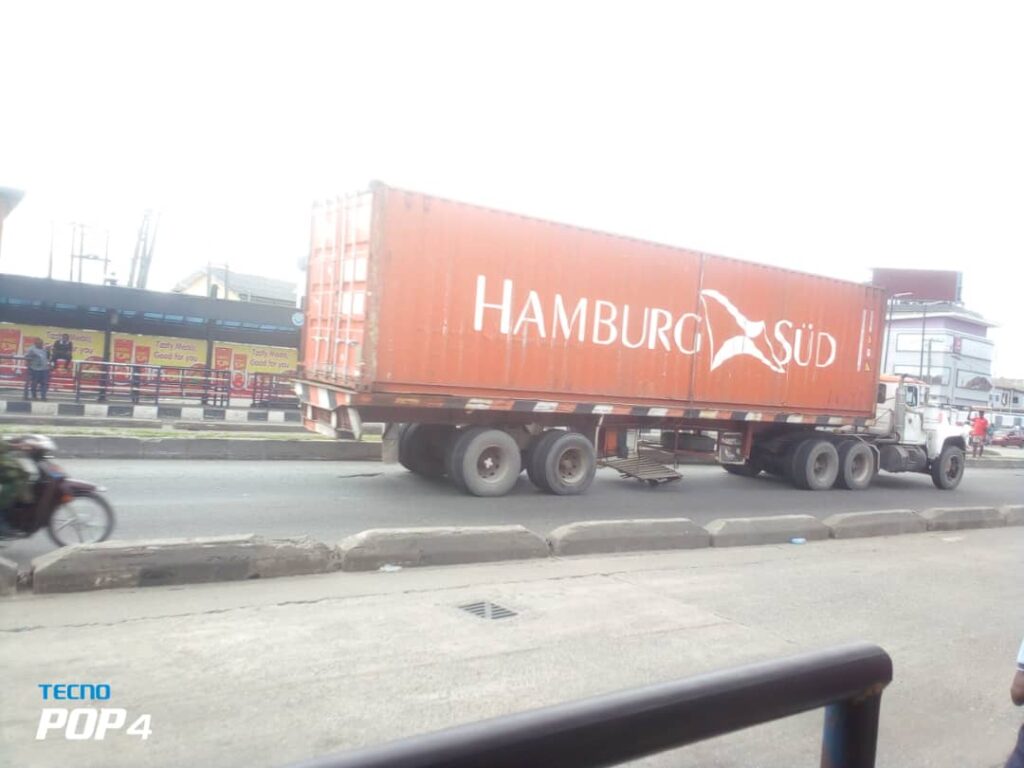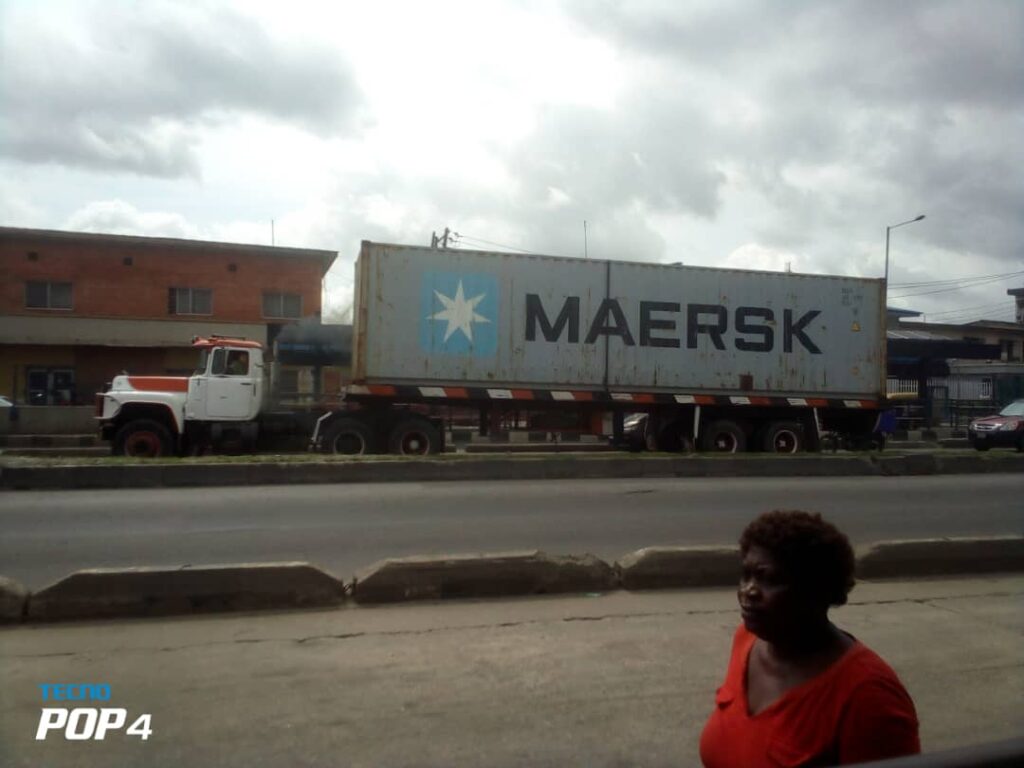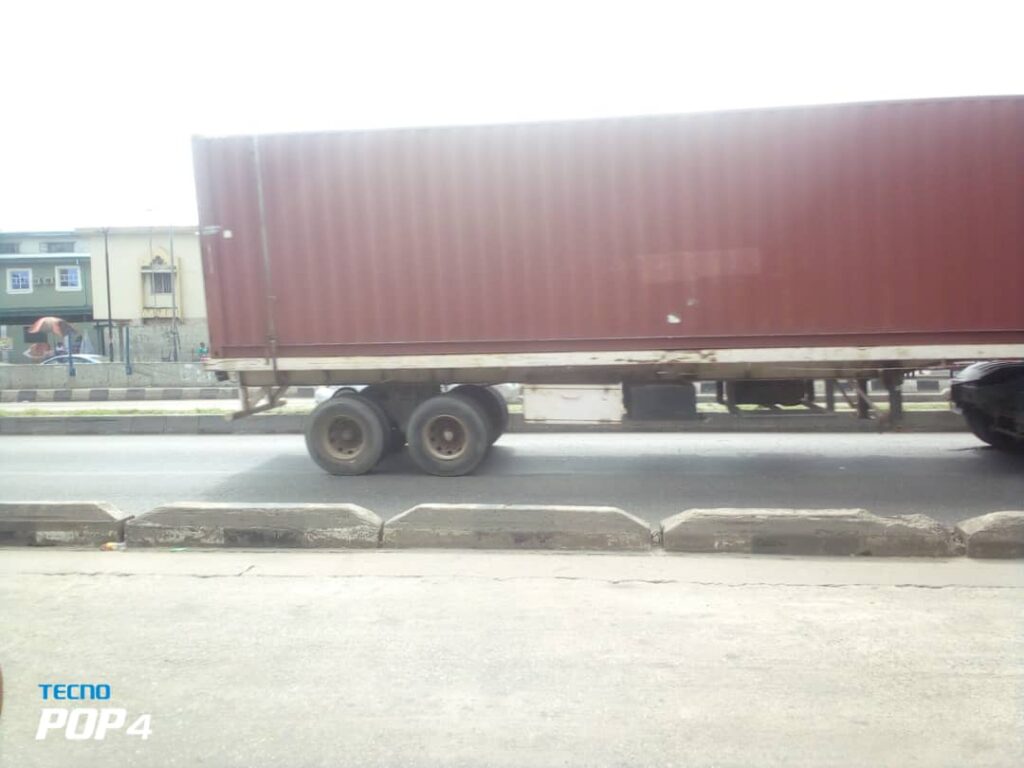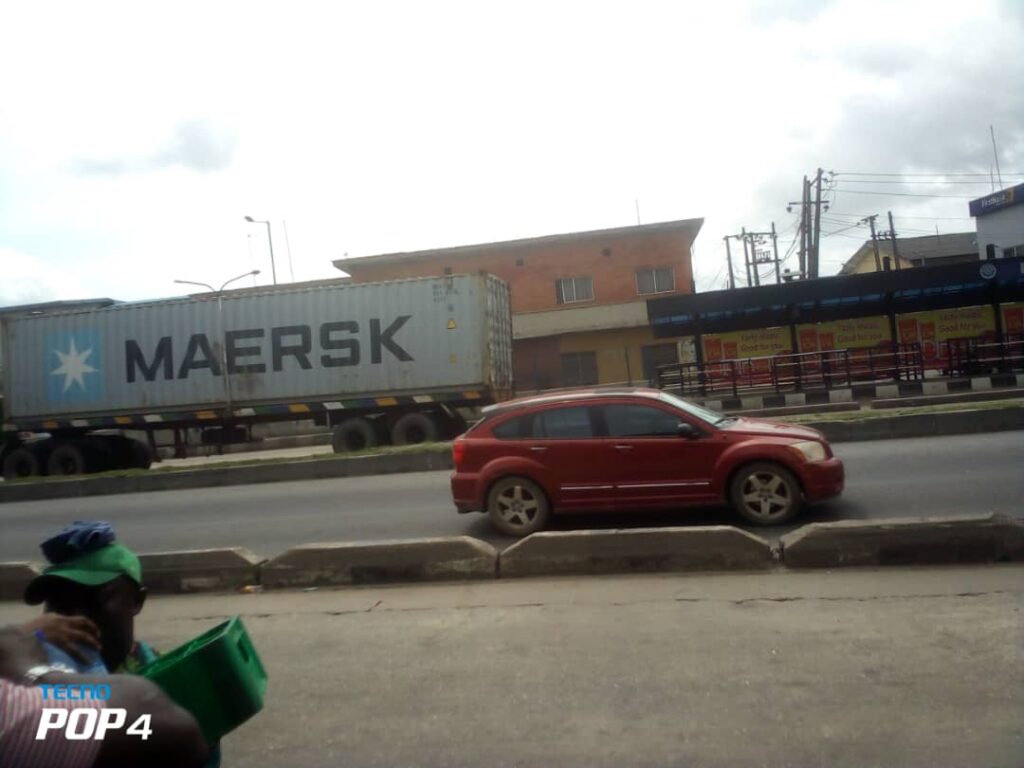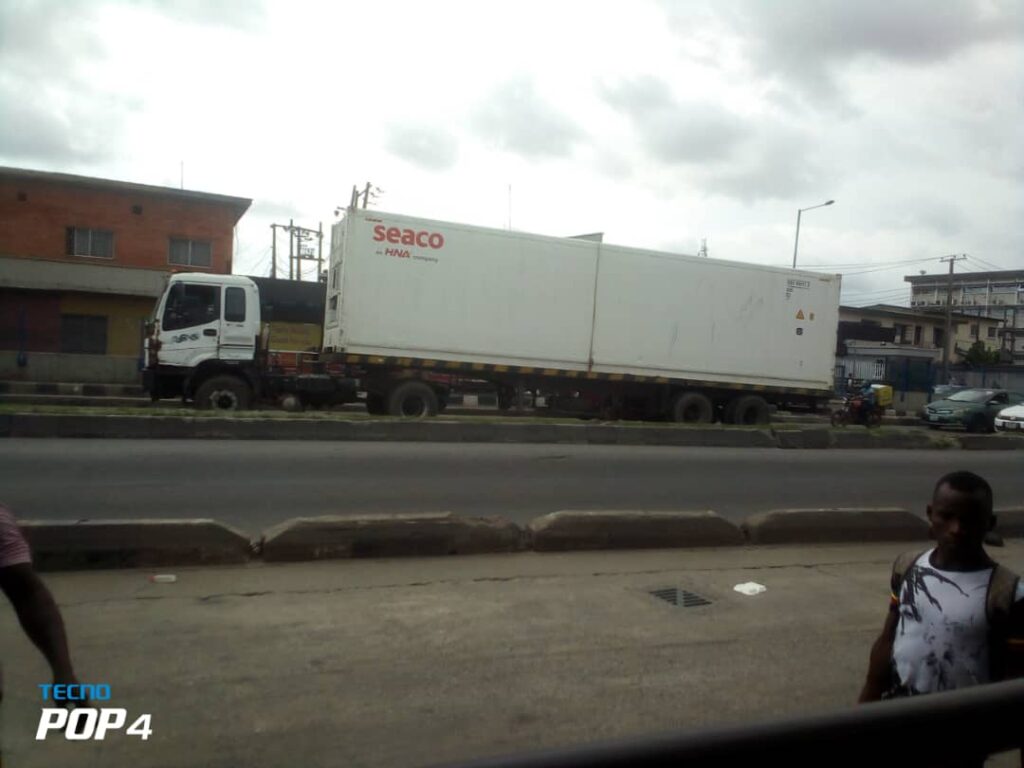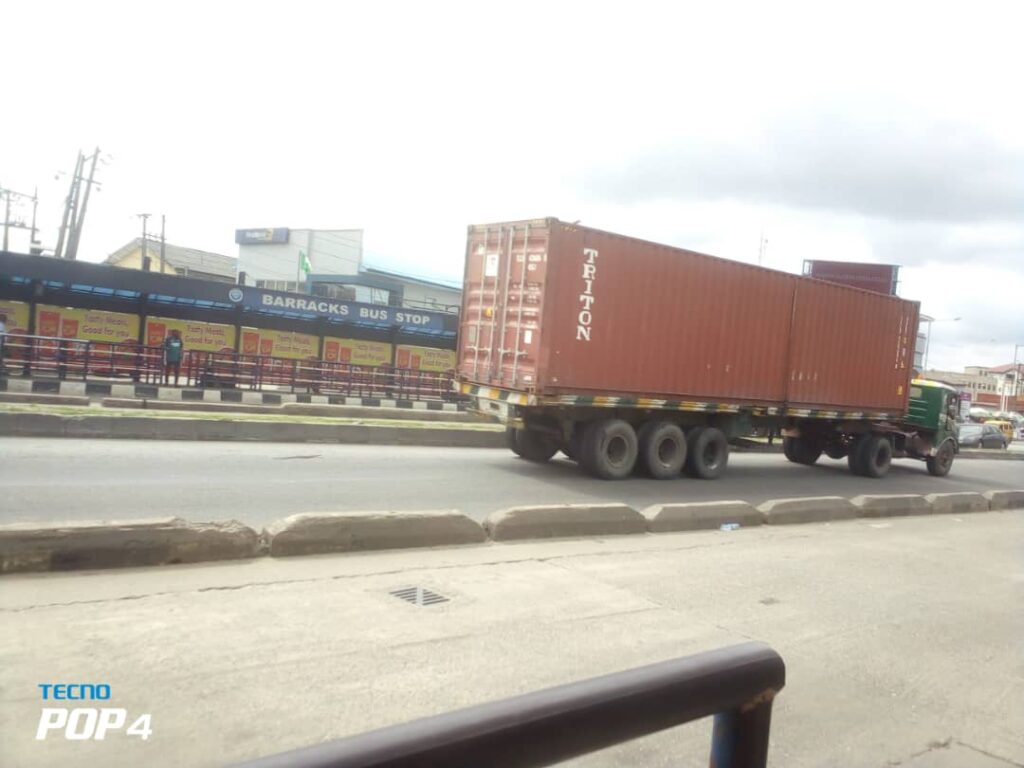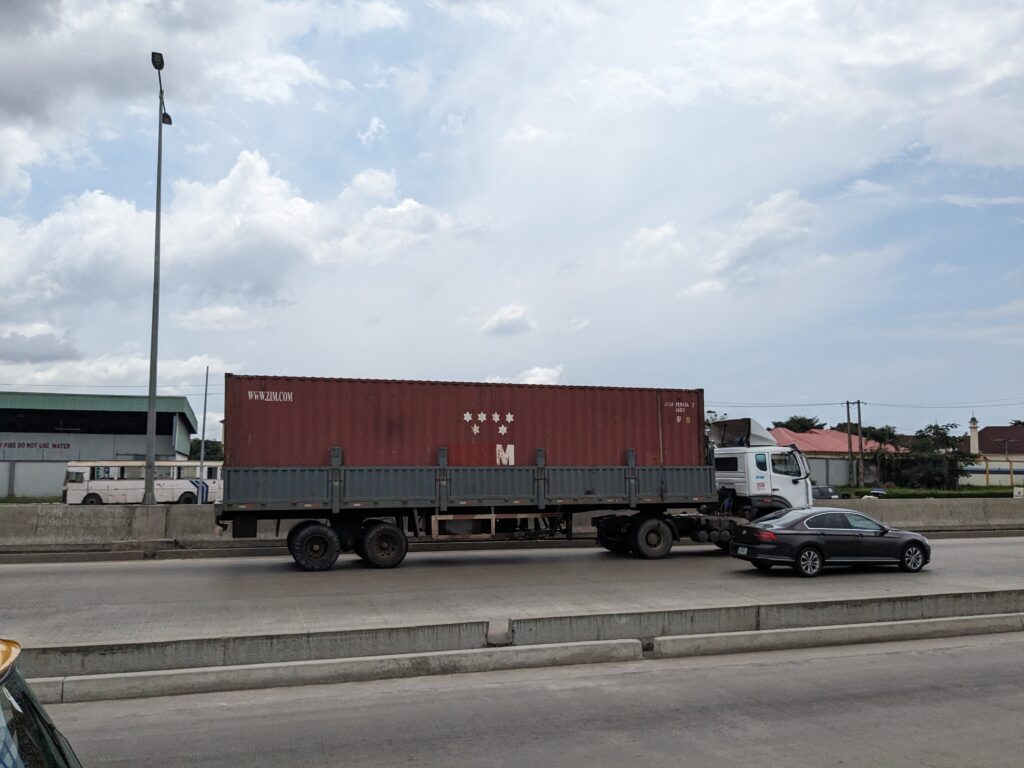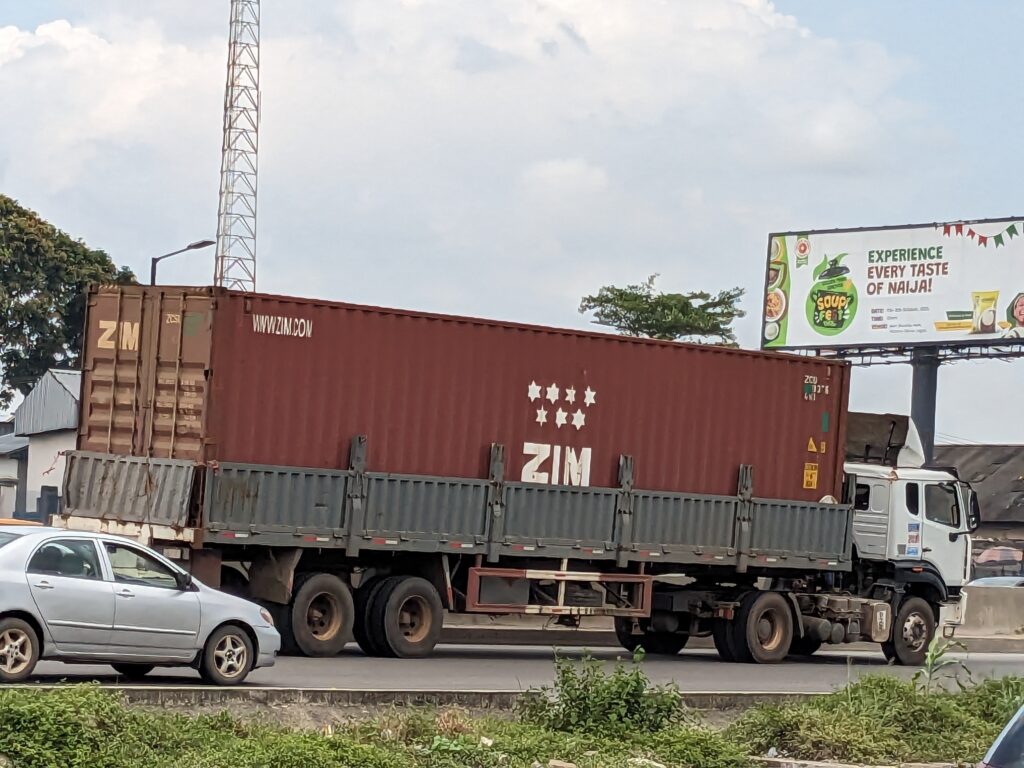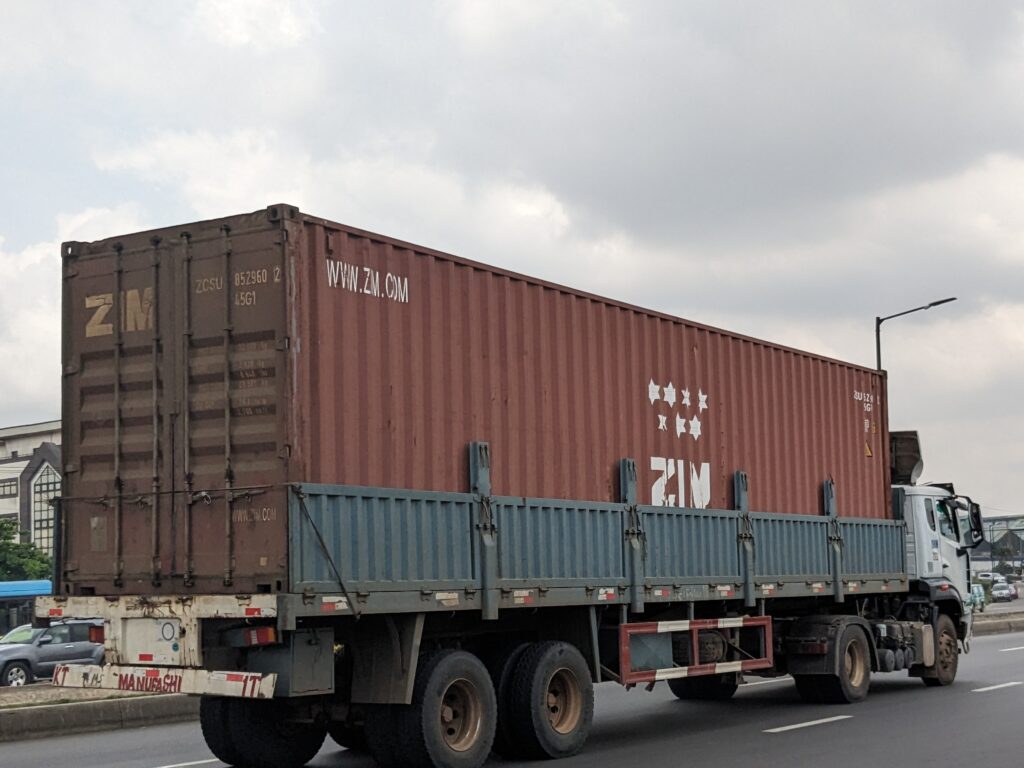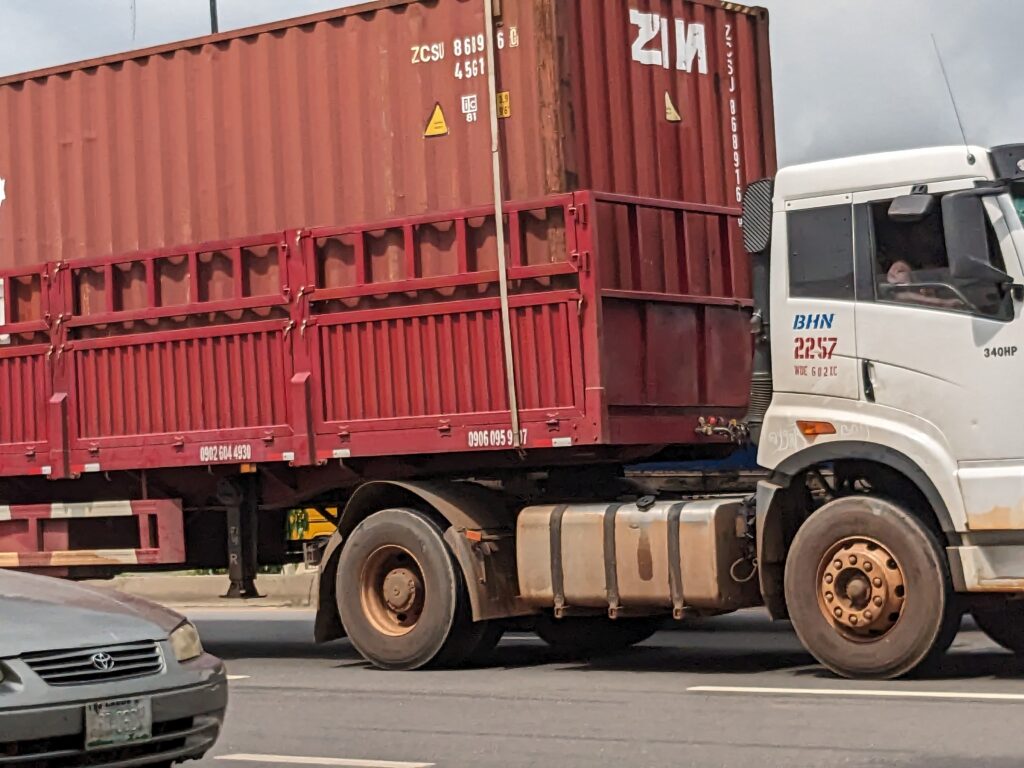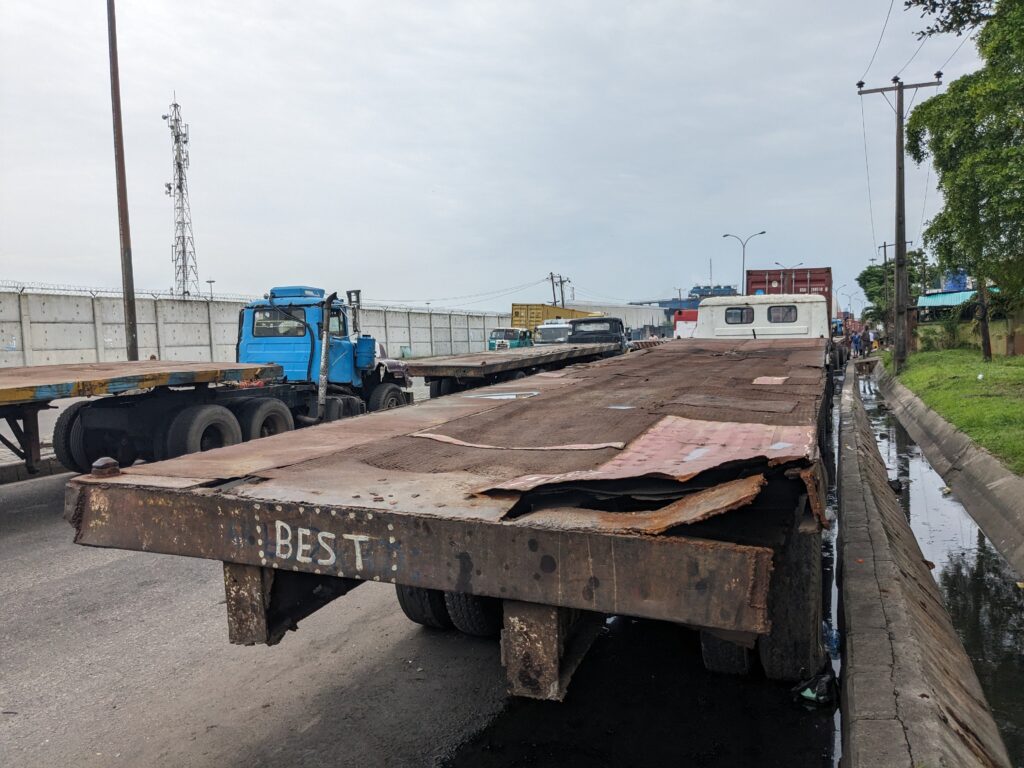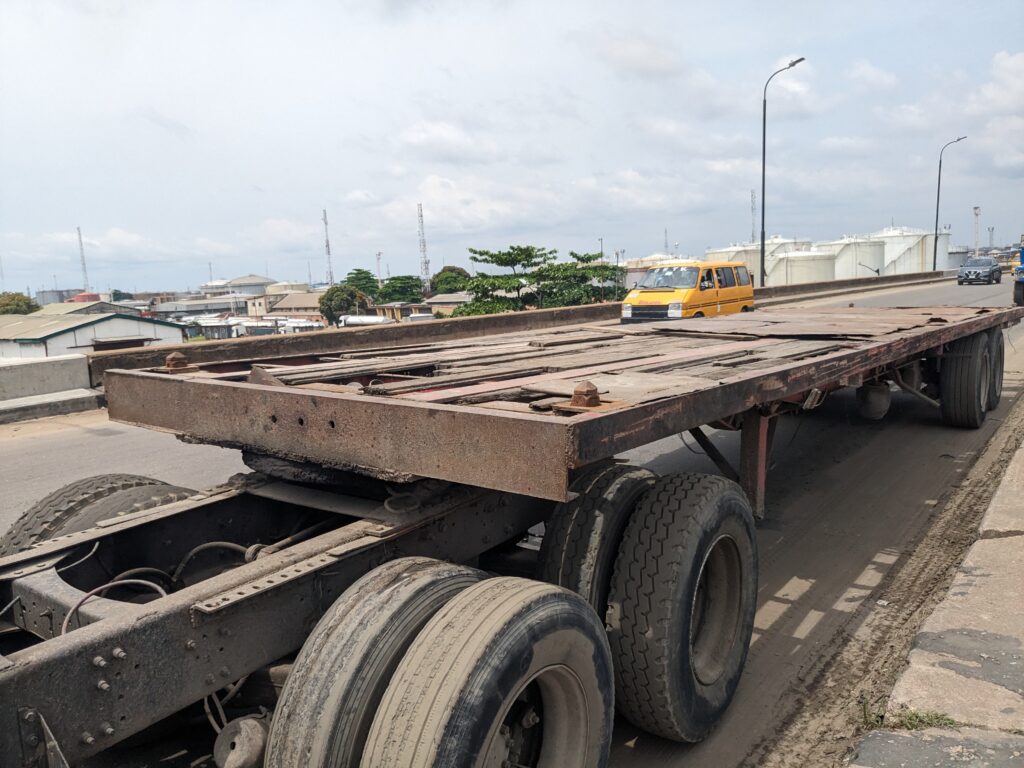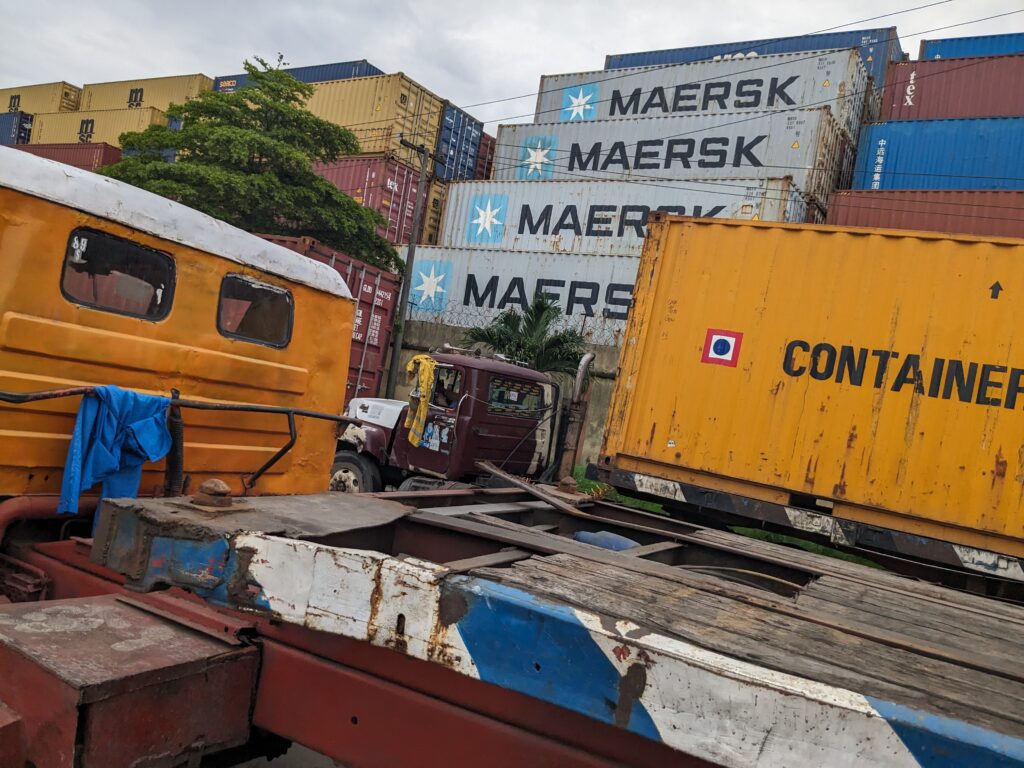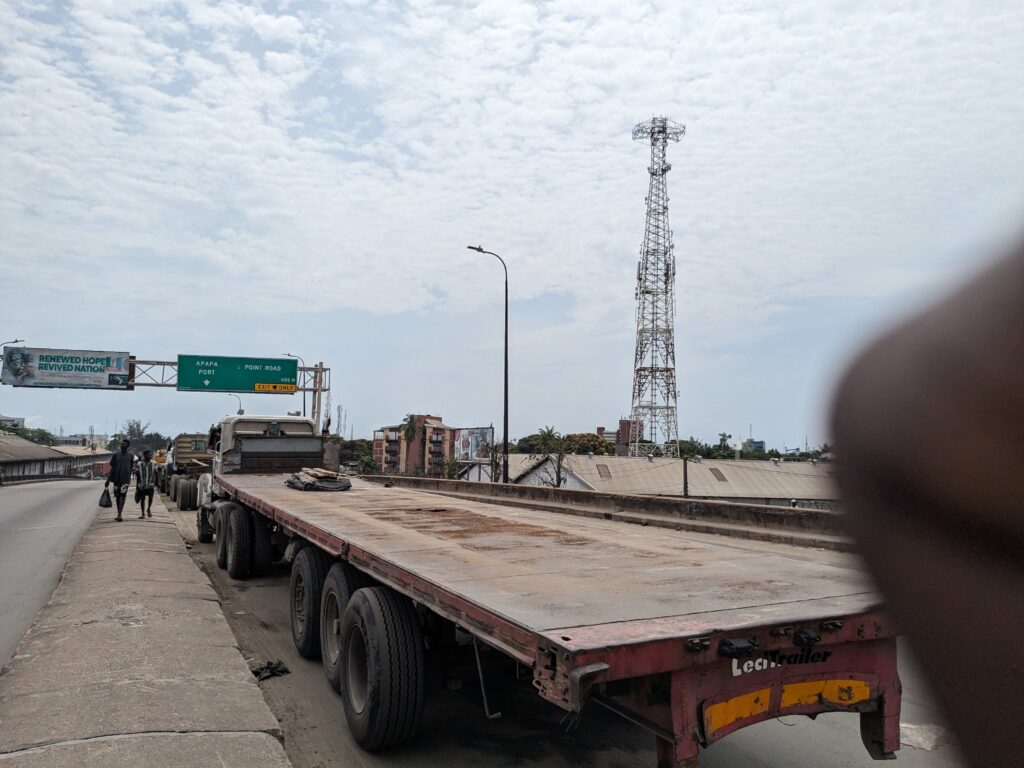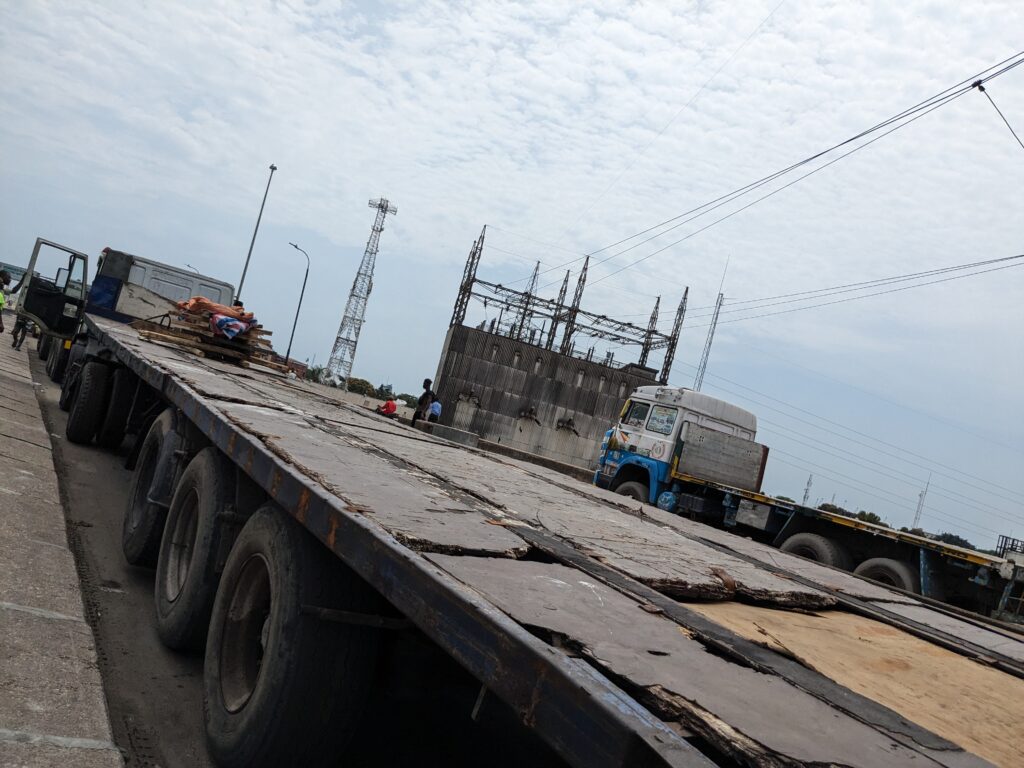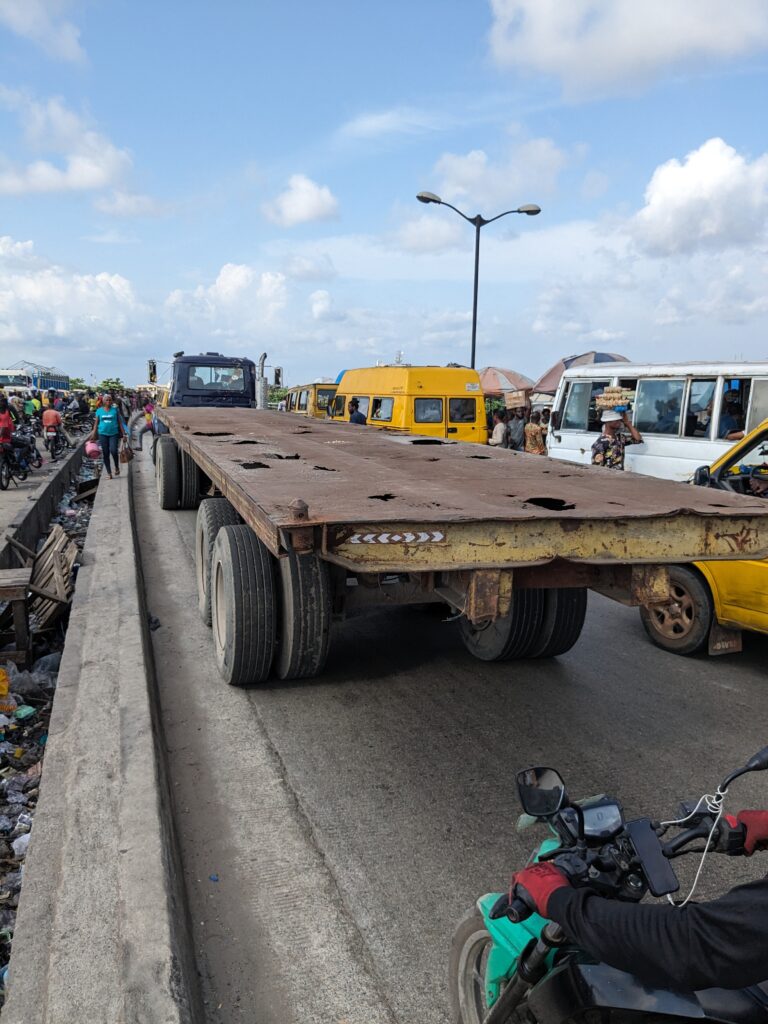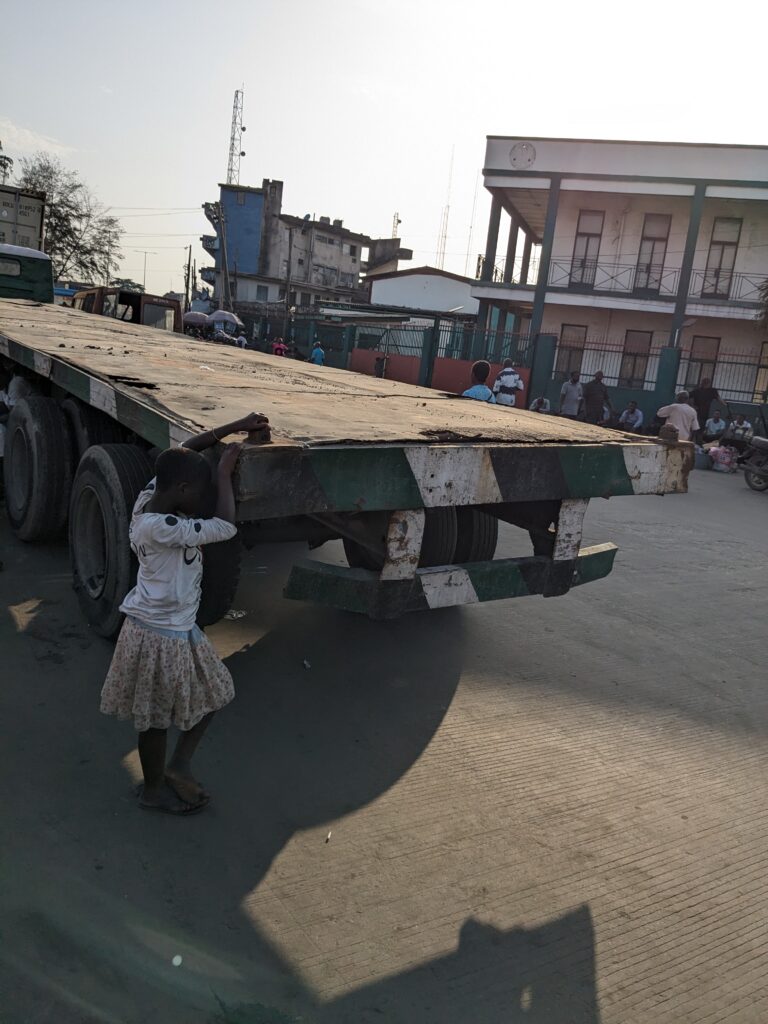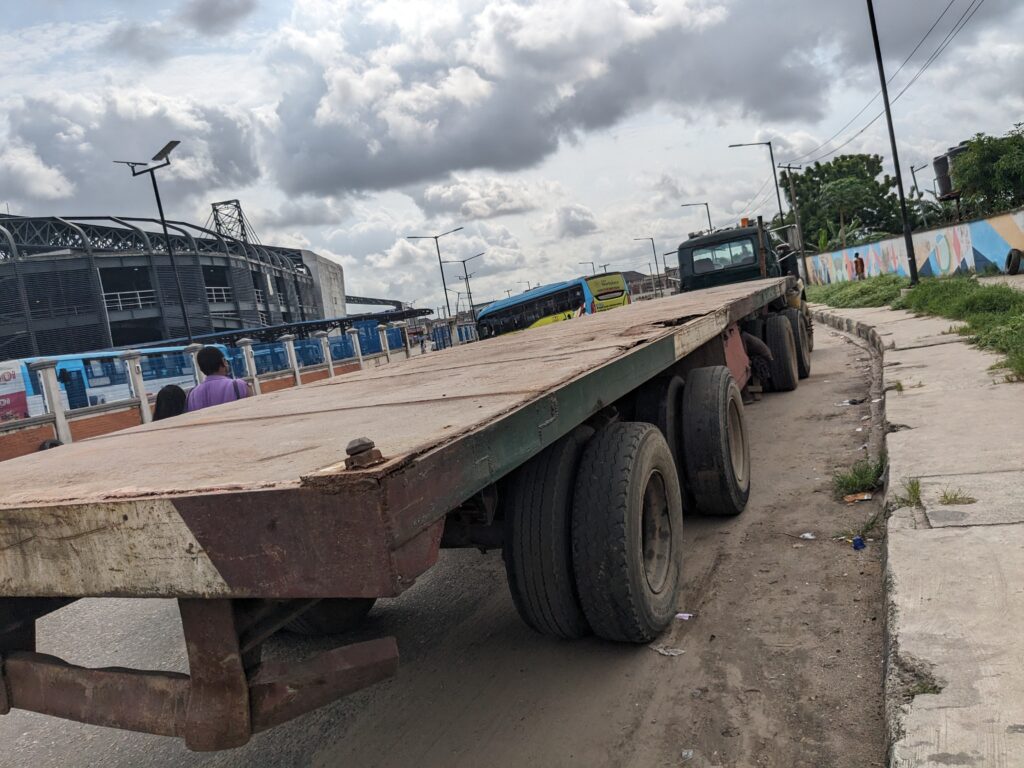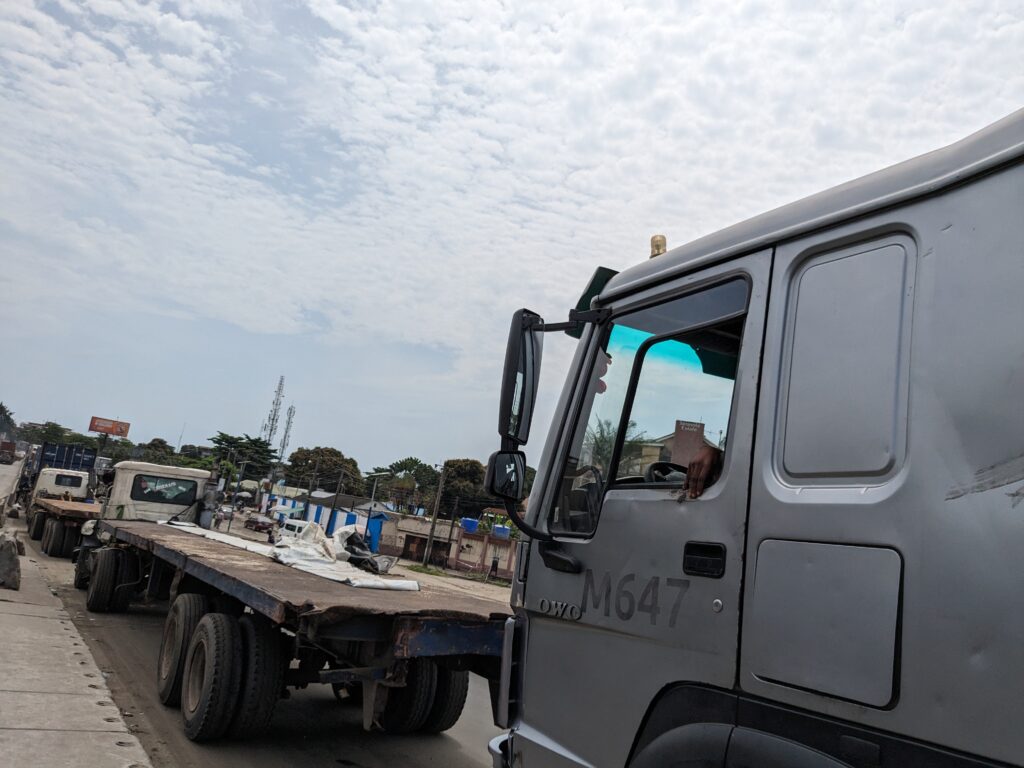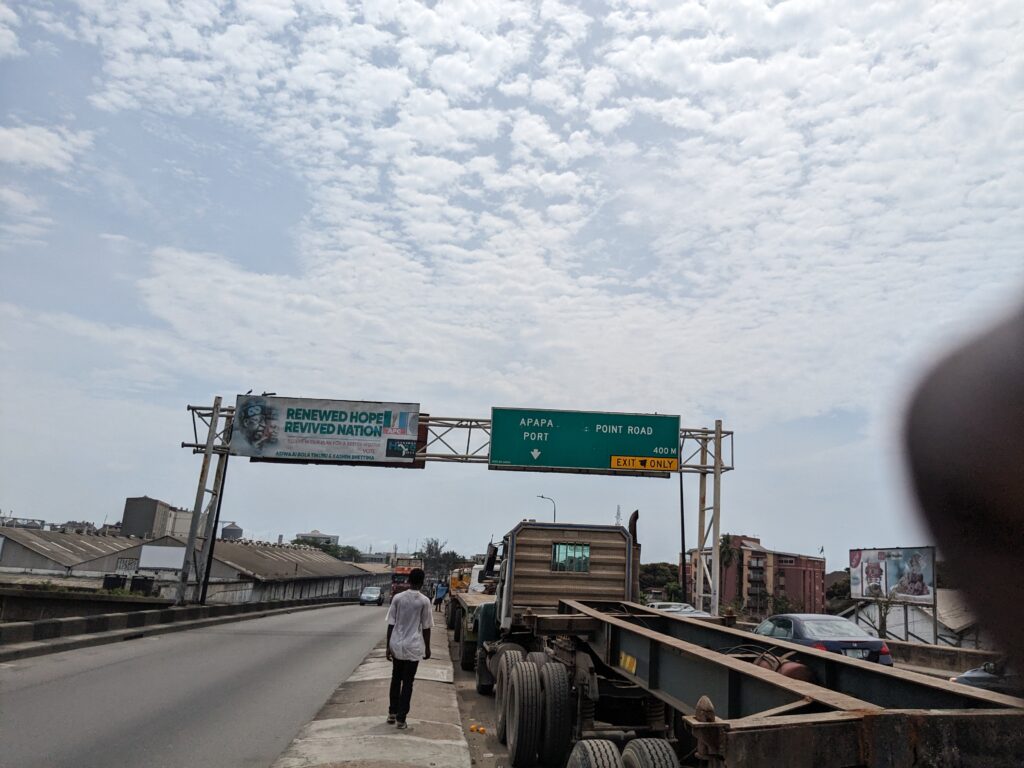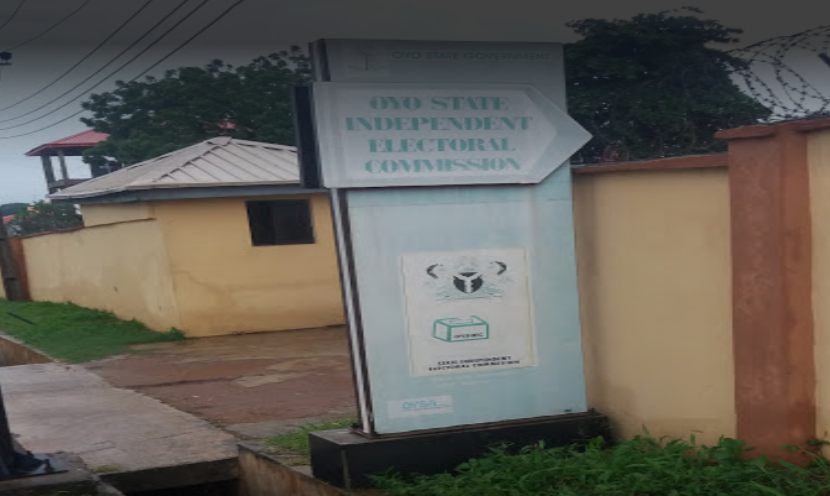The number of cargo containers falling off in transit and fatally affecting the Lagos State residents has made the state seek reforms that will stop the perennial road carnage. Beginning on October 24, SODEEQ ATANDA spent six days traversing some parts of the state where road traffic crashes involving cargo containers have either killed or wounded people to observe the adherence of drivers to these reforms.
The greatest nightmare of many Lagos residents is the odd-defying daily traffic congestions that could extend a 10-minute trip beyond an hour. If caught in traffic with a container-bearing truck, one is likely going to experience fleeting thoughts of the container falling. These thoughts alone are a killer. On January 29, ten persons on a bus were compressed to death by a flatbed trailer in Ojuelegba. The trailer terminated their lives abruptly by landing its 20-foot container on the city bus. One passenger’s hand glided out as if calling for help. One survived. Nine others – four adult males, three adult females and two children – died! It was a battle for rescue personnel extricating their bodies from the flattened vehicle with number plate KTU 921 YD.
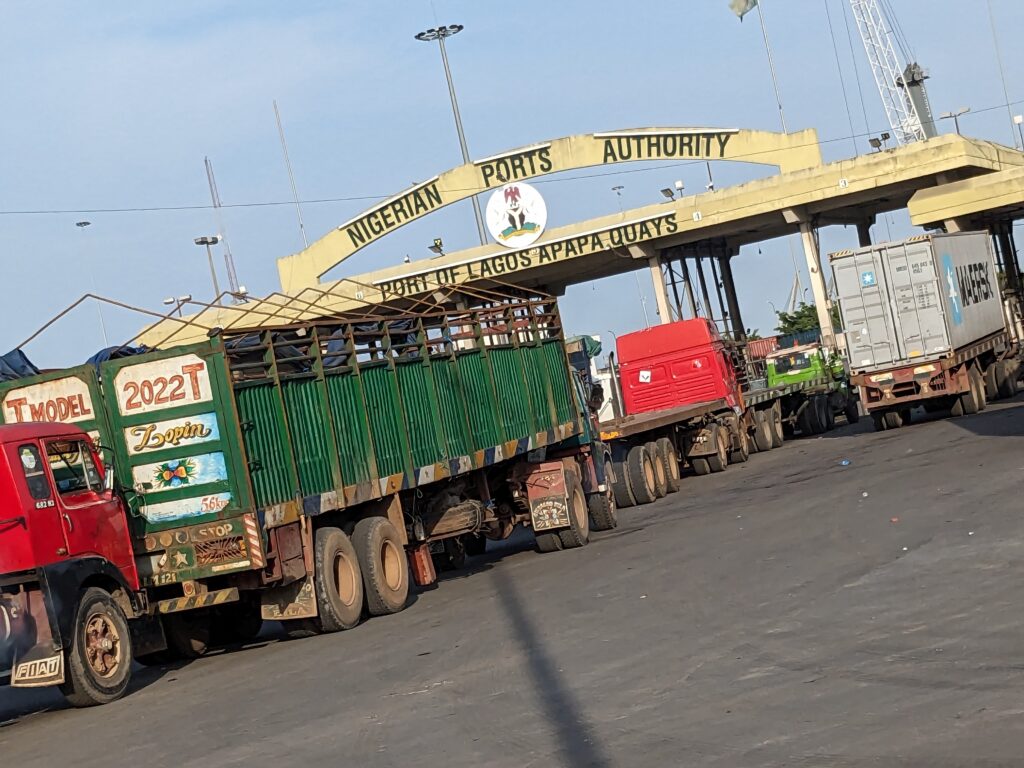
Hearing the news, Governor Babajide Sanwo-Olu quickly condoled the bereaved and ordered a probe of the incident. “The accident will be thoroughly investigated so as to prevent a recurrence of such tragic incidents,” he said. The Federal Road Safety Corps (FRSC), the federal government traffic regulator, swiftly declared it a result of “human error”. That was what Segun Ogungbemide, then Lagos sector commander, said their investigation showed.
In April the previous year, an unnamed man was in his car when a container came crashing on his car, killing him instantly. In September 2015, three persons, including a couple, were killed when a container landed like a thunderstorm on their cars in Ojuelegba, while others were injured.
Since the governor ordered a probe, similar incidents have not only reoccurred in various degrees here, here and here in Ojuelegba, but they have also happened multiple times at several places in the coastal city. Such ‘human error’ continues to happen in the state. In a state with one of the highest rates of road crashes in Nigeria, authorities have repeatedly pledged commitments to tackling the savage killing.
How properly battened were these containers before skidding off the truck? Who was supposed to be sanctioned for that tragic ‘human error’? All of these were not explained. The FRSC merely told the public that ‘human error’ killed nine persons in January. The governor might have accepted that as an authoritative report, and the grieving families might also have been told to accept it as their own reality. But these individuals are just a fraction of the victims of the nonchalance and absolute low regard for safety precautions that characterise the haulage service industry in Nigeria.
Infogram
Infographic designed by Daniel Ojukwu/FIJ
MONITORING TRUCK TRAFFIC
Ojuelegba links directly to Apapa Port, and it also connects the mainland with the island. The underpass of the curved four-lane flyover connects Yaba, Mushin and Surulere. The port handles about 5.75 million tons of cargo each year, the largest in the country. All of this explains why the Ojuelegba corridor records a high volume of truck traffic. This route has gained a fearsome reputation in the state.
What I set out to do was monitor how compliant truckers are with safety precautions: Do they strap containers to their flatbeds? How healthy do their trucks look like? Are security agencies doing roadside inspection of rickety trucks and enforcing the law?
READ ALSO: Tyres of a Container-Laden Truck Burst on Lagos Road
In four days, I saw more than 400 moving trucks. The number tripled in the last two days that he spent in the heavily polluted Apapa Wharf and Tin Can Island environments. This reporter counted more than 1000 trucks, most of which were not safety conscious.
In Ojuelegba alone, I saw more than 100 trucks either coming from or going to the port in four hours. Most of the trucks latched their containers to their flat decks. Many trucks carried two 20-foot containers each without tying them to the flatbeds. In most cases, 40-foot containers were just placed on the flat decks without straps. It was the same story at other locations this reporter visited.
Of course, some trucks used twist locks on the corner castings of their flatbeds. It is also true that some trucks used latching belts for the security of their shipments. But it was noticeable that the belts were not firm, leaving them to be controlled by airflows and slapping against the containers. Such straps were more susceptible to shake and loose during transit, making the containers shift even with a minor turbulence.
Additionally, I found that some drivers used tiny, weak and cut and join straps on their containers. Some drivers even tied ropes to their containers though the loops using bare hands. Straps meant for small trucks transporting lightweight goods were used to latch fully-loaded containers. The tension of the straps was low and could not in any way have secured the containers or withstood the containers’ weight. It could pass for a showy attempt to probably pass an impression that they were law-complaint.
On cargo securement system, the International Standard Organisation recommends the use of twist locks and ratchet straps. These instruments exist in various dimensions and specifications. Trucks in Lagos State largely do not operate by this standard, yet many of them are deemed roadworthy with relevant permits issued by government authorities.
PICTURES SHOW 258 DANGEROUS TRUCKS
FIJ found that truckers freely flout transport regulations throughout the state and have been emboldened by poor law enforcement system. In fact, Lagos State is not alone. Many of the trucks we saw on Ibadan highway too did not latch their containers. FIJ found 258 vehicles that mostly drove on the road without properly securing their containers.
Trucks with no straps at all. These images were taken at various locations, including Apapa and Tin Can Island. Photo Credit: Sodeeq Atanda/FIJ.
A hundred and twenty-seven trucks had no trap at all, while 77 trailers had one (whether they were transporting two 20-foot containers on one flatbed or 40-foot containers). Forty vehicles used two straps, while four had good protection. FIJ saw 10 lorries with defective corrugated flatbeds, making containers not to align properly on them. Some hauling bodies no longer qualified as flatbeds, as they were curvy.
Trucks that used a single weak strap. Images taken at various locations, including Apapa and Tin Can Island. Photo Credit: Sodeeq Atanda/FIJ.
For every driver, safety comes first – safety of the load and of lives –according to standard road regulations. The reverse is the case for many drivers in Lagos State. Most of these drivers drive in contravention of the Lagos extant road safety laws unchecked.
Trucks that used double but weak straps. Images taken at various locations, including Apapa and Tin Can Island. Photo Credit: Sodeeq Atanda/FIJ.
Various cargoes are transported within and outside of Lagos State daily. FIJ saw flatbed trucks transporting bundles of corrugated metal sheets, construction and factory equipment without strong straps.
Trucks considered relatively secure in transit. Photo Credit: Sodeeq Atanda/FIJ.
Clearly, the problems with the haulage industry are many, and they can only be resolved through top-level techniques. Some of the issues are bad driving culture, alcohol consumption and road infrastructure deterioration. However, bad roads are out of consideration for crashes in Ojuelegba and Oshodi.
Trucks with damaged flatbeds waiting in a queue in Apapa Wharf and Tin Can Island. Photo Credit: Sodeeq Atanda/FIJ.
TRUCKERS VIOLATE LAWS, TRAFFIC OFFICERS LOOK AWAY
There were separate contingents of traffic officers at all of the places I visited: NPA security, police officers, Federal Road Safety Corps (FRSC) officials, Vehicle Inspection Officers (VIO) and Lagos State Traffic Management Authority (LASTMA). Although their lawful duties include ensuring drivers adhere responsibly to traffic regulations, this reporter observed that their interest appeared to be ensuring free traffic flow and extortion of money from truckers.
LASTMA oversees and manages road traffic in Lagos State. Its officers control vehicular movements and enforce traffic regulations, one of which is the Lagos State Transport Reform Law 2018, within the state. Part II of the transport law under the schedule of vehicle inspection offences and penalties prescribes that “driving a trailer or other vehicle carrying containers unlatched and not properly secure” attracts an impoundment and a penalty of N250,000.
I was privy to a conversation between an NPA traffic official in front of Rasaki Akanni Okoya Plaza and his colleagues on October 30. They discovered that one of the trucks in the queue could not go into reverse and this round-faced, black-complexioned man told his colleagues, “We are not supposed to pass this truck. Let us do our job so that we will not be blamed.” What he said meant nothing to his colleagues. The truck manager persuaded them and the truck was allowed to join others waiting to go into the port. Before then, the manager of the truck had narrated how a driver at their company killed someone when a container fell on a car. He said the owner of the car insisted he would collect N2 million because his car was completely damaged.
This medium asked Kebe, a trucker at Apapa Wharf, why most truckers do not use tie-down straps to secure their containers. “Belts are useful, but not in all situations,” he said. “They cannot prevent a container from falling down. Only inexperienced drivers use them.” He also showed me a video of their leader in a king’s palace to show their displeasure with extortion by area boys.
I asked Kebe if he knew it is against the law not to use straps, and he said, “We are only risking it, but laws are only effective when they are first made in this state. When they started mandating us to use straps, everybody was frightened. But today, that is no longer the case because no one has the time to enforce any law again.”
I also spoke with Haruna, an Oyo State-born driver, at wharf. He explained that drivers within Lagos State, referred to as local drivers, could use straps because it is part of their rules but inter-state drivers were not bound by any law to use straps.
Sheriff, also a driver, believes it is not the job of any officer at Tin Can Island to check whether drivers secured their containers. He provided an insider’s information during a scheduled interview about how each terminal works and reiterated the position of the earlier-mentioned drivers on why drivers prefer to save their vehicles than allow it get damaged when a container falls.
“There are three terminals here – PTML terminal, TICT and Port and Cargo. At PTML, your trailer must have an extra tyre, full headlight, complete twist locks, safety boots, helmets, among others, and cannot carry a load beyond your tonnage capacity. Oftentimes, truckers like to give bribes to carry shipment beyond what their vehicles can carry, but the guys at this terminal would not take that from you. They are very strict.
“TICT terminal focuses on full headlight, safety boots, helmets and fire extinguisher. There, you can carry any tonnage regardless of your vehicle’s capacity. They might say you cannot carry the tonnage indicated in your delivery order, but with an unusual amount of money, you are good. A vehicle’s flatbed cut into two recently because of an overload. Port and Cargo does the same thing. The long and short of this is that public safety starts from the terminals, and once they compromise, there will be problem outside.”
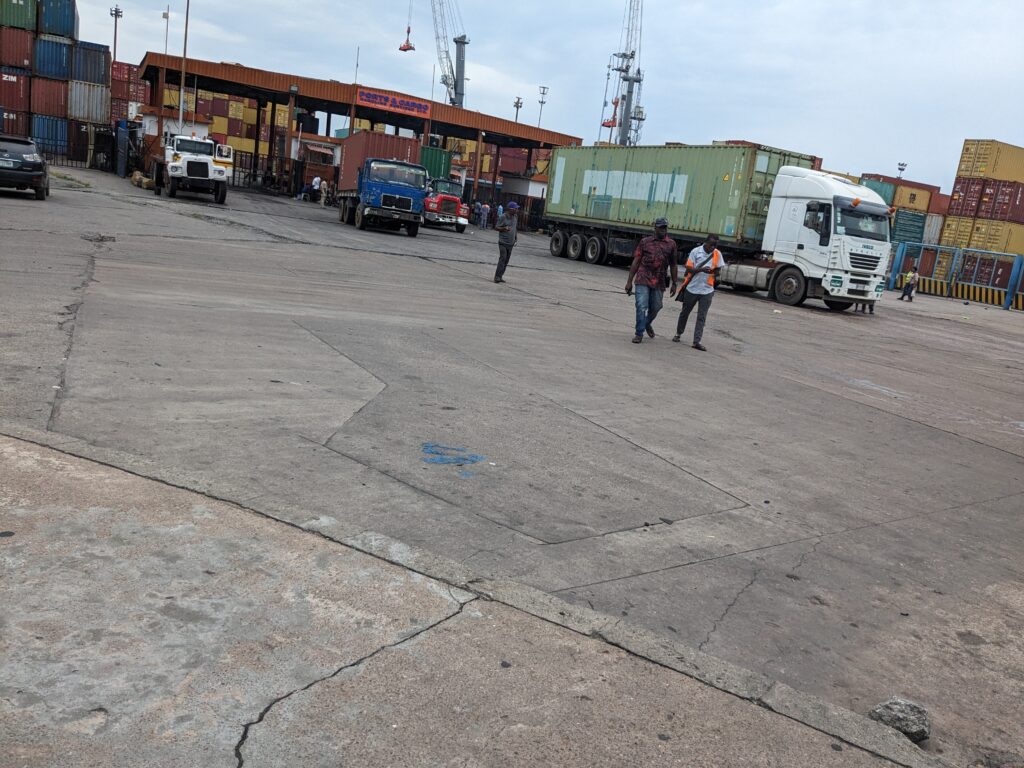
READ ALSO: Another Container Truck Accident Traps Vehicles, Leaves 3 Persons Hospitalised in Lagos
Greed-driven managers also create chaos for the public. They intentionally receive delivery orders beyond their flatbed trailer load limits, take some cuts and remit the normal price to their boss. Sheriff told me that most truckers don’t use latching belts in order to prevent their vehicles from tumbling if their containers fall down in transit. Asked if that means they don’t care if lives are lost, he said, “You might be right. But it also boils down to freight agents. Some agents will insist you must latch their container.”
The NPA recently introduced a minimum safety standard (MSS) policy that requires a yearly-renewable sticker to be issued to truckers to certify that their trucks are fit for use. This process is being bypassed. I met Olalekan, a sticker agent at Apapa Wharf, who promised to help me get a sticker even if my truck does not possess most requirements.
The only documents he required me to produce were FRSC roadworthiness and vehicle papers with an N18,000 processing fee. He said the process only became stricter recently. “I could do it for you before without bringing your trailer, but that has changed recently. Don’t mind if you don’t have side mirrors, a fire extinguisher and other features. There’s a way we do it. I will video your truck from a side and that’s what I will show the officers,” Olalekan said on October 31 while standing beside a demarcated area being used by security officials some distance away from the wharf entrance, showing me some stickers that he had procured for his clients.
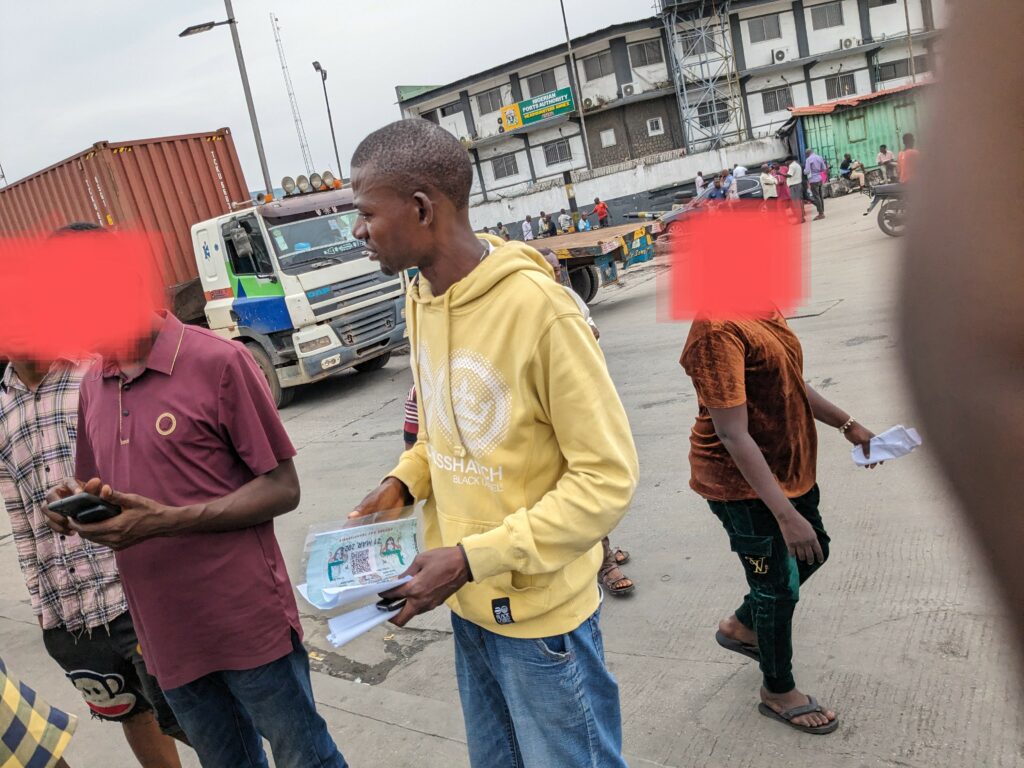
On its website, the NPA posted some checklists for truckers. The fact, however, is only a fraction of trucks in Lagos State can boast of meeting those requirements. The roads will be safe if the policy is upheld, but it remains un-impactful.
LASTMA did not respond to FIJ’s public record request for data specific to container crashes from 2019 to September 2023. On a follow-up visit to the agency’s head office, Bolaji Oreagba, LASTMA’s general manager, told an office clerk that they would phone this reporter, but that had not been done at press time.
CONTAINER SAFETY METHODS
With this high level of violation, I expected to see state or federal security operatives or a special task force do routine checks to track violations,a s Gbenga Omotoso, Lagos information and strategy commissioner, said after the January incident. “Ministry of Transportation and Nigeria Ports Authority (NPA) should meet urgently to find a lasting solution to the menace of falling trucks; and all the laws governing the operations of trucks and related vehicles must be enforced with more vigour and diligence,” he had said.
But there was nothing like enforcement of all the laws governing the operations of trucks, even at the doorstep of NPA. All of the traffic managers I saw were not out to do anything of such. The Ojuelegba corridor remains unrestricted to heavy-duty vehicles despite several tragedies. On September 29, Oluwaseun Osiyemi, Lagos transportation commissioner, stated that the government would repair the damaged barriers on the bridge. As of the time I filed this story, only site-cast concretes were on the tail of the bridge when driving inward Fadeyi.
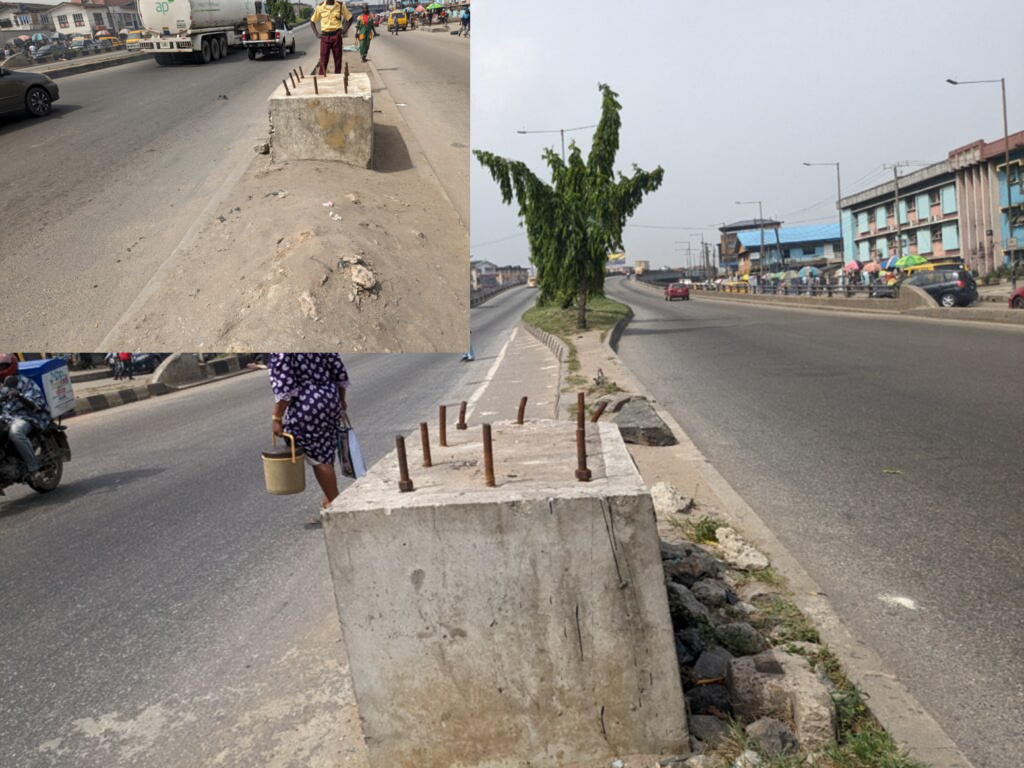
While the Lagos transport law mandates truckers to latch their containers, the MSS policy is interested particularly “in case of billets, pipes and other general cargo carriages, the carriage must be fixed with tension ropes/latching belts.” The transport law also fails to determine how containers are to be strapped, how straps are needed depending on the tonnage of the containers, and what types of straps are permitted, among others.
On how to properly strap a container, US Cargo Control, a company trading in tie-downs and other trucking and transportation products, has this to say. “Depending on the weight and length of a cargo, the number of straps vary. If your cargo is shorter than 5 feet but weighs more than 1,000 pounds or is between 5 and 10 feet, then you would need to have two straps. Keep in mind that for the first 10 feet of length, it must be secured by two tied-owns. Then for every additional 10 feet, you would add one tie-down. We recommend that if you are transporting 10,000 pounds or more, then to use at least four tie-downs. Be sure to use corner protectors to protect your straps.”
There are separate methods of securing containers. It would seem the most popular in Nigeria are twist locks and strappings. Peerless explains that the length or weight of a container determines the number of straps needed to secure it. A five-foot or less than 1,100 pounds container needs one strap, over 1,100 pounds but 5 feet or less needs two straps, 10-foot requires two straps and one strap for every additional ten feet. For context, this shows a 20-foot container needs a minimum of two straps, while a 40-foot container requires four straps.
An NPA official claimed in March that they did not allow trucks to leave the port without securing their containers properly. “Another action of the truckers that we find alarming is the unlocking of latches or locks that were used to fasten the container to the truck inside the port. When trucks pick containers inside the port, port officials ensure that the containers are fastened to the truck,” he told Tribune Newspaper.
Contrary to that statement, we can confirm that most drivers pick containers and leave the port without latching their containers. Nobody checked them. NPA security, clerks at the port’s entrance, and any other form of traffic agency at both ports did not inspect trucks before the start of trips.
EXPERTS’ RECOMMENDATION
Taiwo Folorunsho, a safety and risk management expert at Cedrus Safety Services Limited, explained that the law placed duty of care on truck drivers, just like every business owner, to ensure proper management of risks associated with their business.
“By law, every organisation is responsible for managing the risks associated with their activity. The broader term for this responsibility is duty of care: caring for people involved in that activity and the public. But in this part of the world, we have people who engage in business and just want to get by without consideration for the safety of others, and that is why we are in this situation where containers fall regularly and harm people many times,” he said.
READ ALSO: Bill to Tackle Deadly Petrol Tanker Accidents Yet to Become Law 4 Years After Proposal
“Trucking industry is a big deal in many parts of the world, and this reflects in the kind of investments they make, including application of latest technologies, personnel training, vehicle maintenance and public enlightenment. These investments worth it because we are talking about loss of lives, but truckers here are not alive to their responsibility and I think they are emboldened by the weak law enforcement.
“Vehicle inspection is another factor. Cargo inspection barely exists in the state. It should be mandatory for safety and compliance, and could be done by a special task force at intervals during transit. It is what has to be diligently done if the government is really serious about its commitment to protecting the citizenry. It will reduce any chance for drivers to unlatch their vehicles before reaching their destination.
“How the cargoes inside a container is unitised is equally as important as properly hooking and strapping the container itself. If the content of a container isn’t well packaged, it will make the container unsafe during transit. There are many multifaceted dynamics to be considered in addressing these safety problems.”
The Ojuelegba bridge is peculiar. It is curved in shape, and this means drivers would turn while driving. So if the container is not properly hooked and the truck is not healthy, there is a chance their load will fall, according to the expert.
FIJ phoned Adebayo Taofiq, LASTMA’s head of public affairs and enlightenment department, on November 14 for comments, but he declined to speak. “The directive I have from the general manager is that you should call the commissioner for transportation,” he said.
Ensuring safer highways is fundamental to the United Nations’ Sustainable Development Goal 9, which focuses on building resilient and sustainable infrastructure, and promoting inclusive and sustainable industrialisation. Nigeria’s haulage industry, which belongs to this category, is having a poor showing miles away from the goal.
This report was produced with support from the Wole Soyinka Centre for Investigative Journalism (WSCIJ) under the Collaborative Media Engagement for Development Inclusivity and Accountability project (CMEDIA) funded by the MacArthur Foundation
Subscribe
Be the first to receive special investigative reports and features in your inbox.


